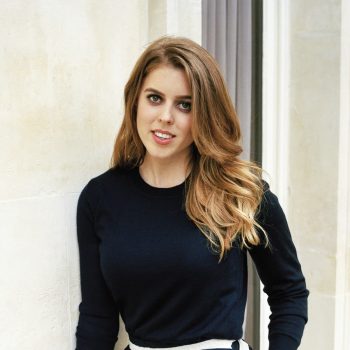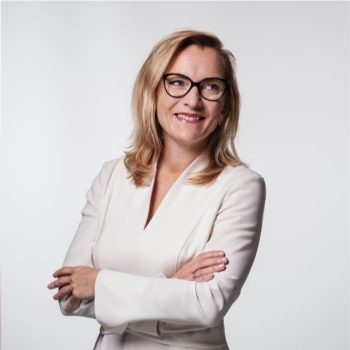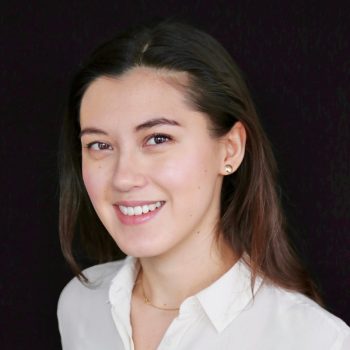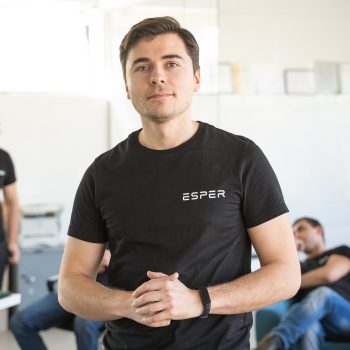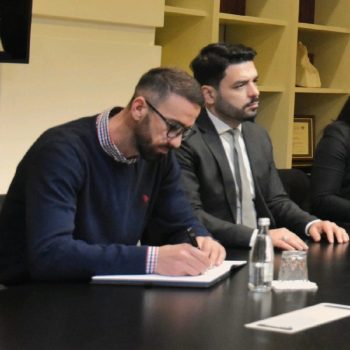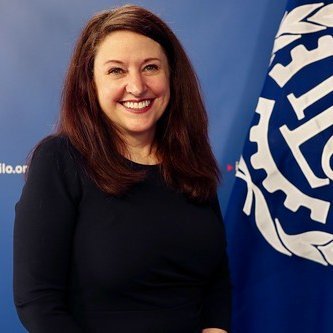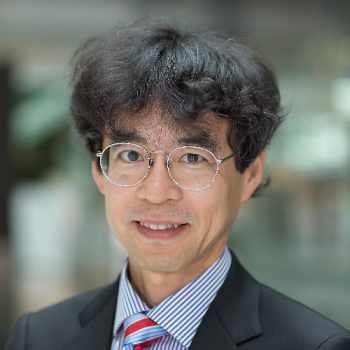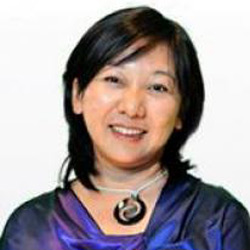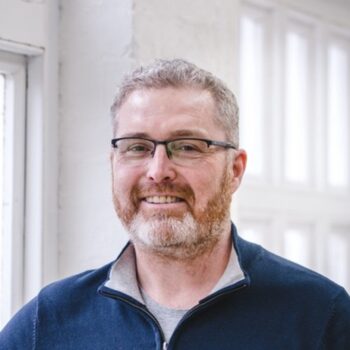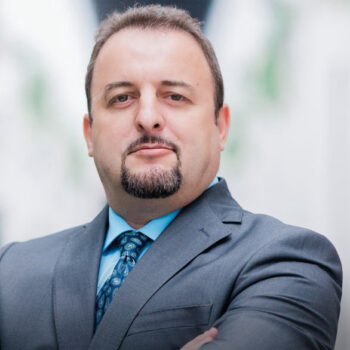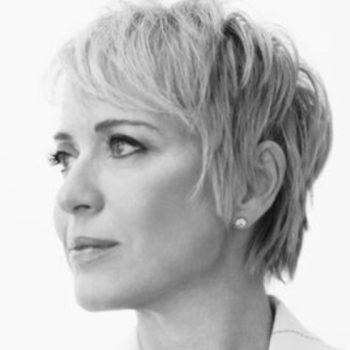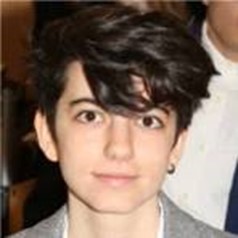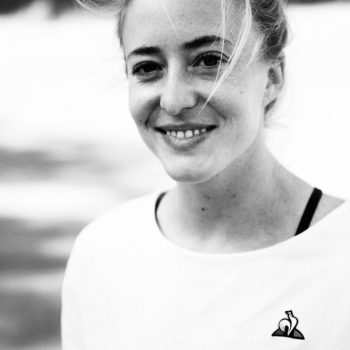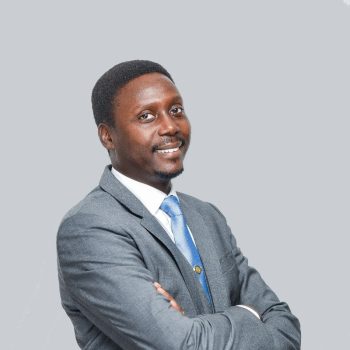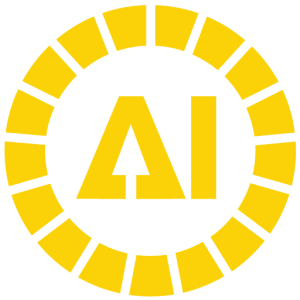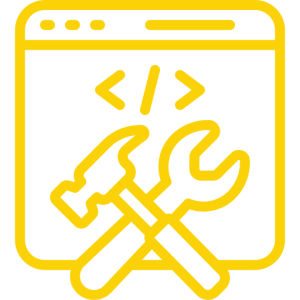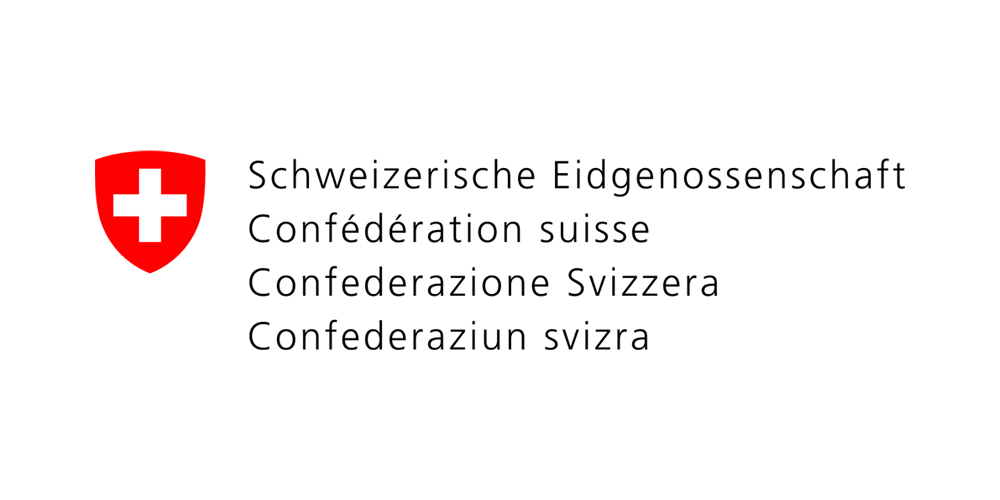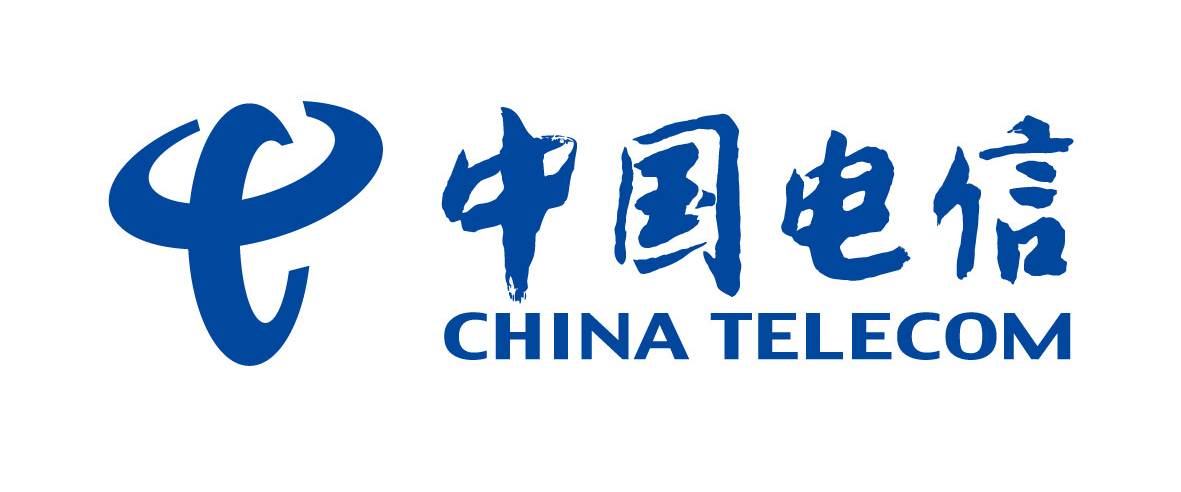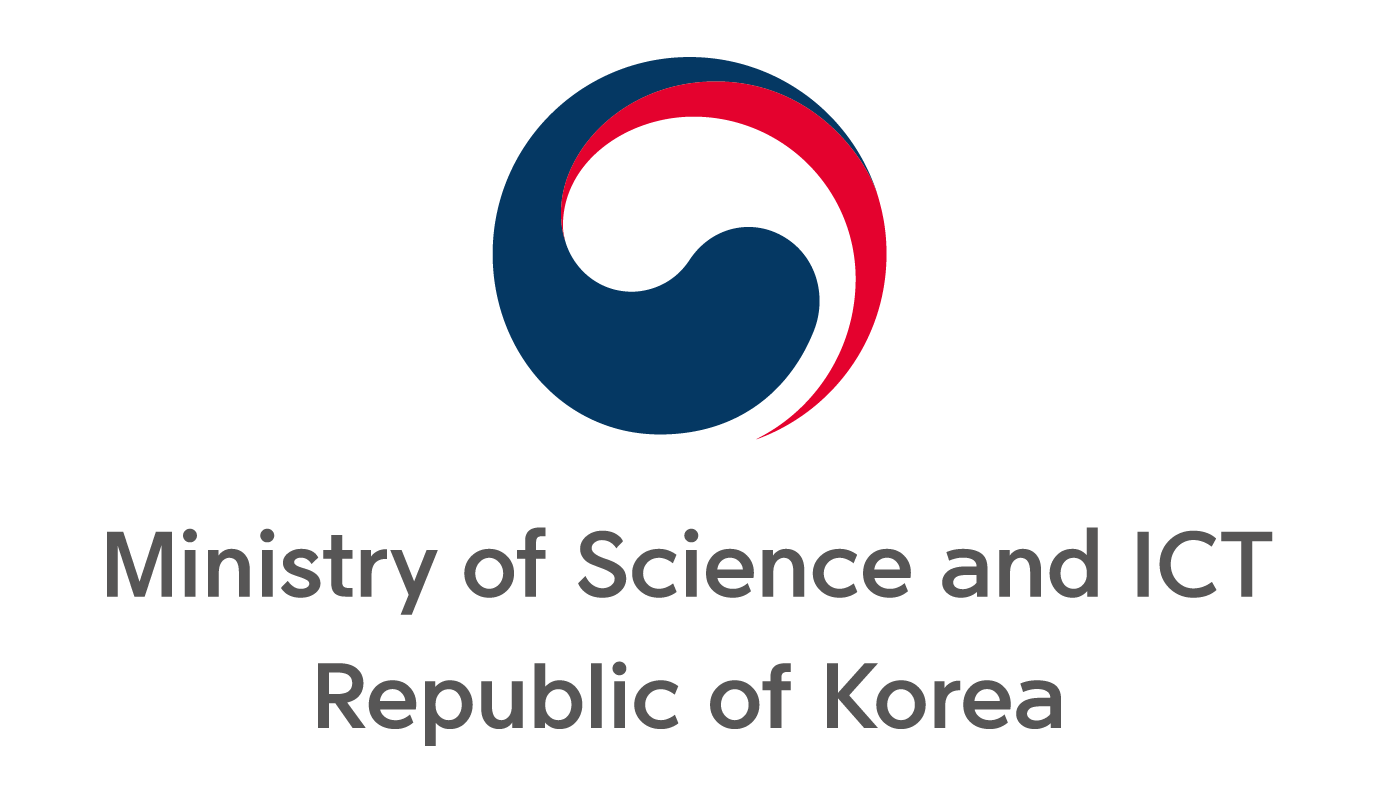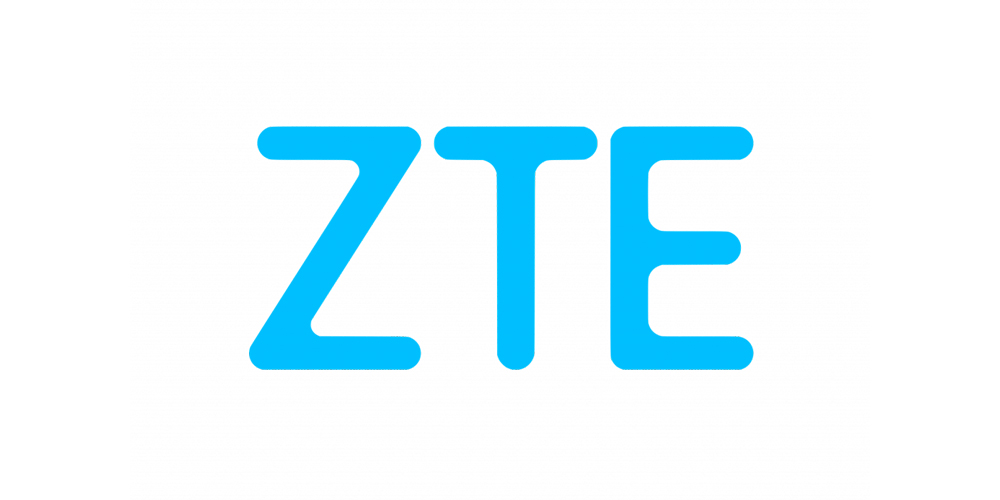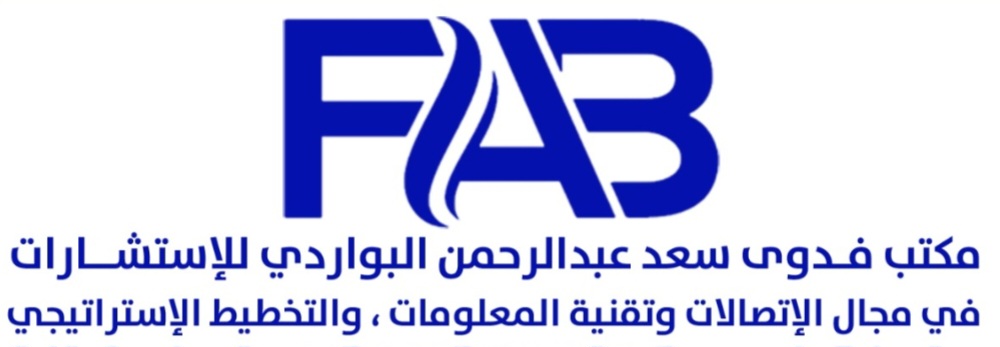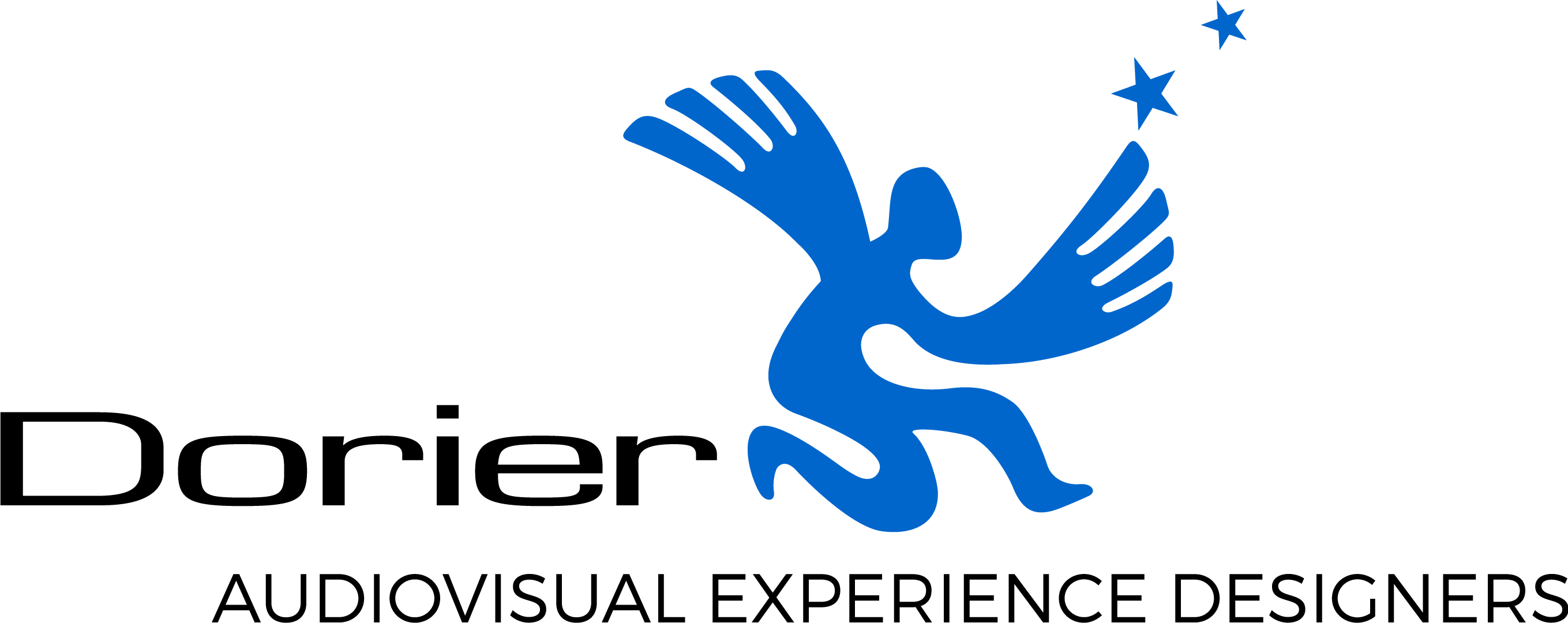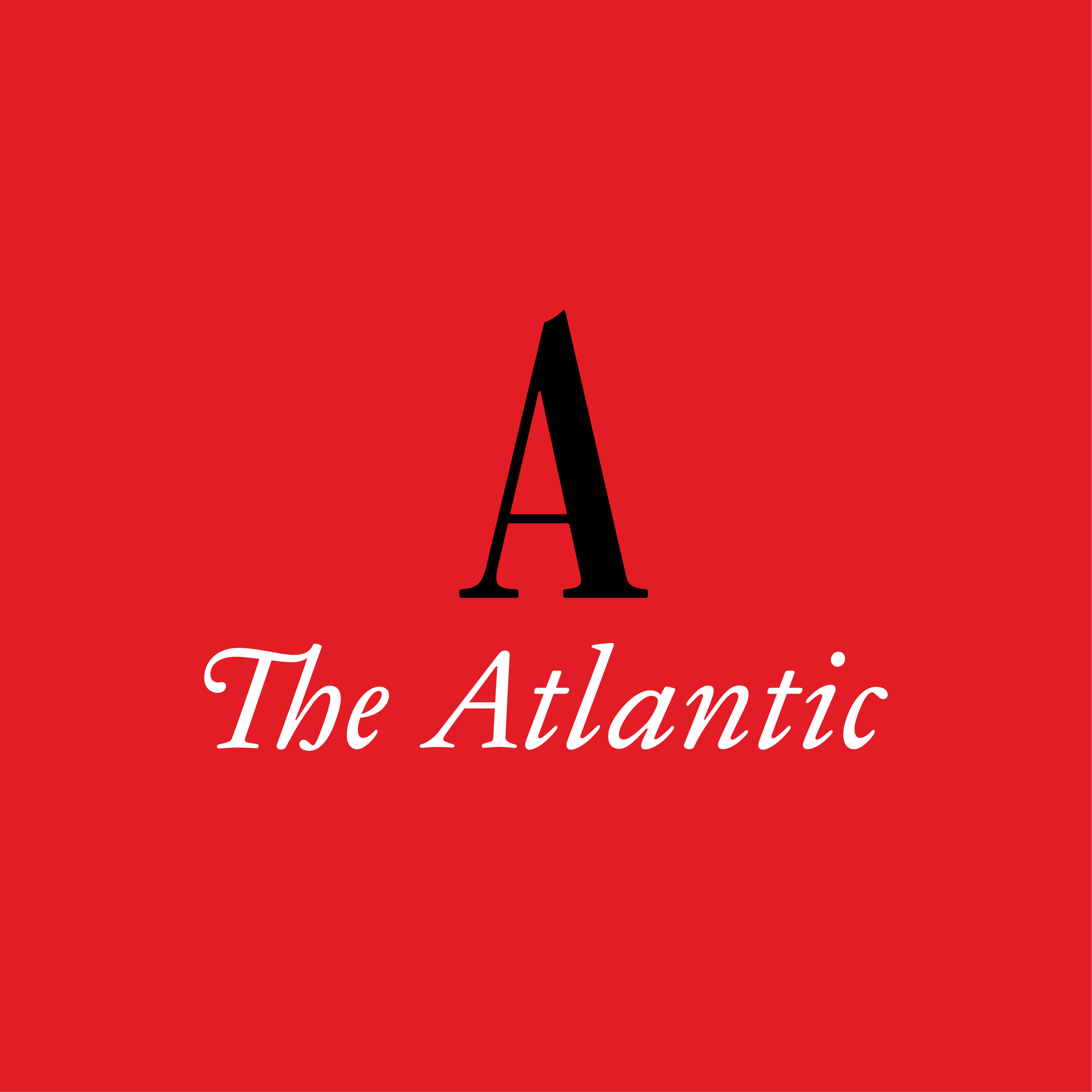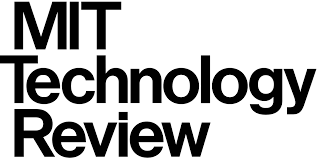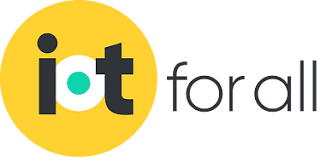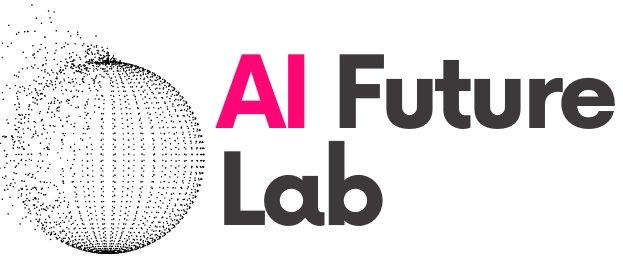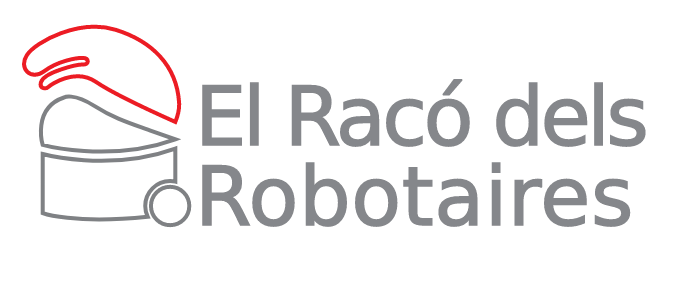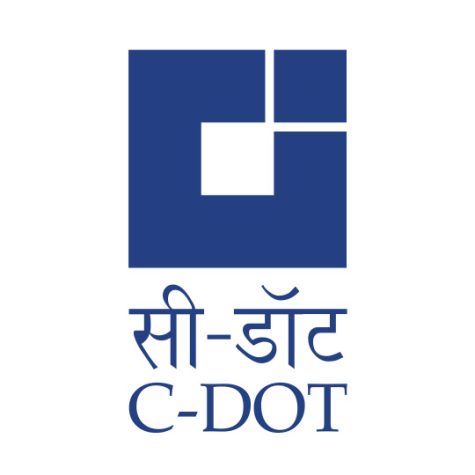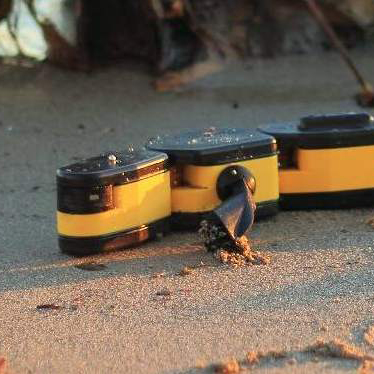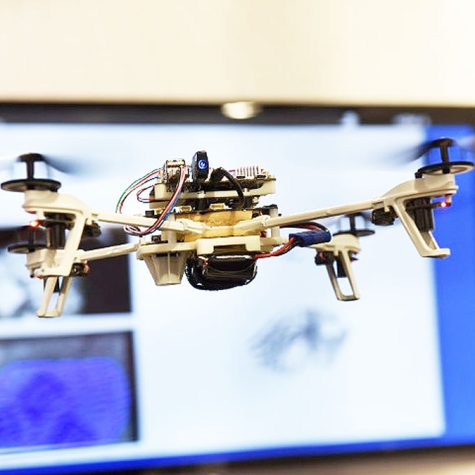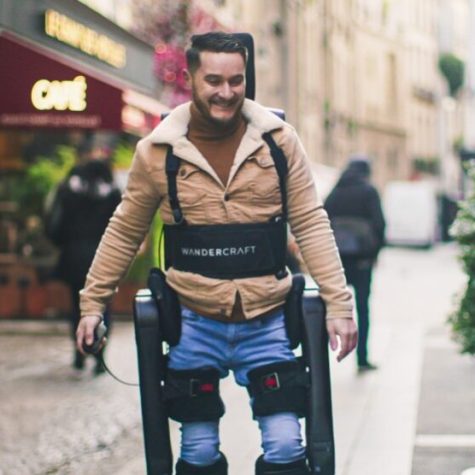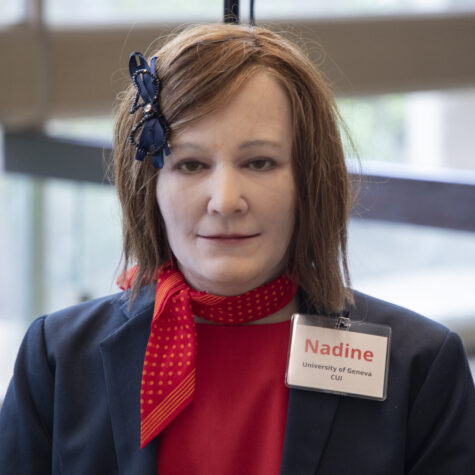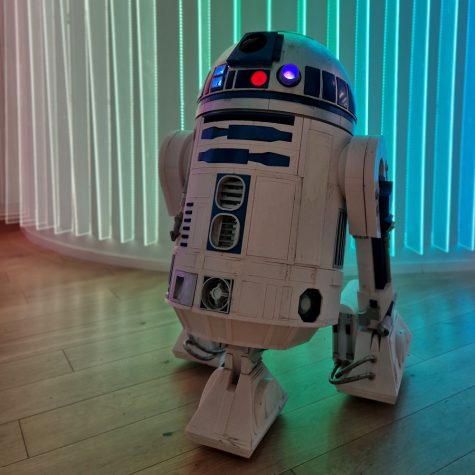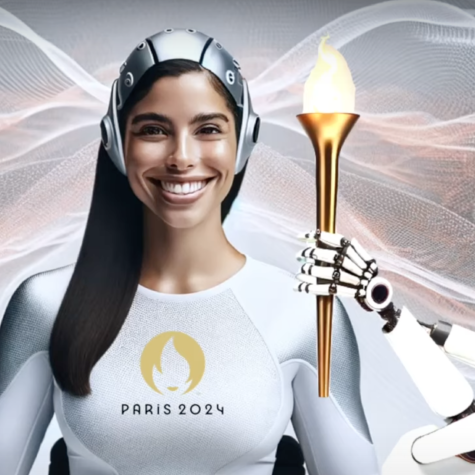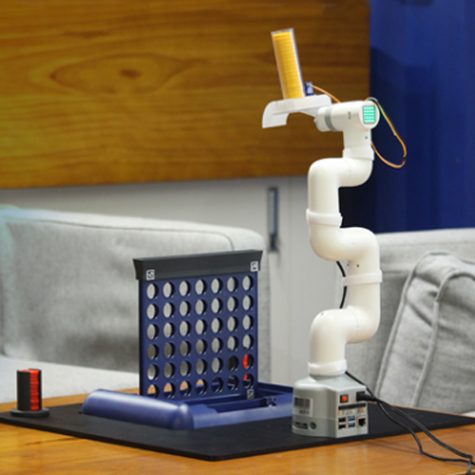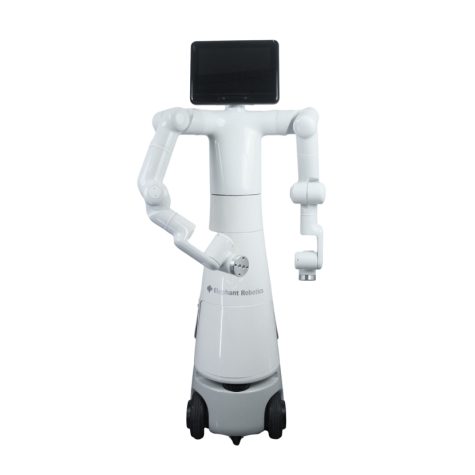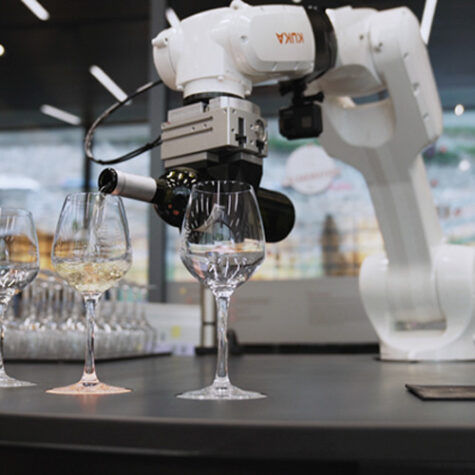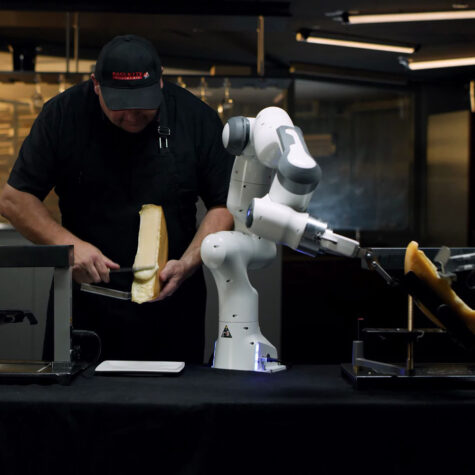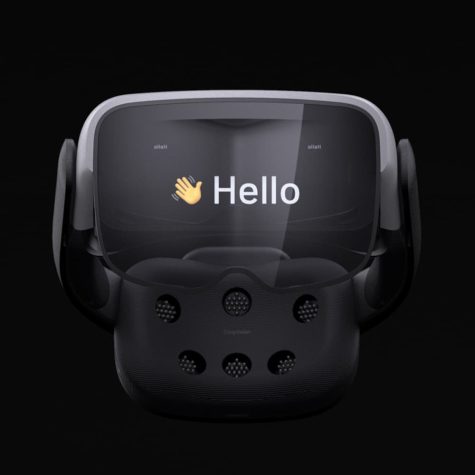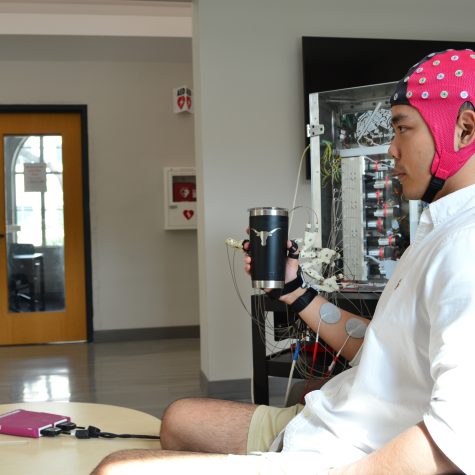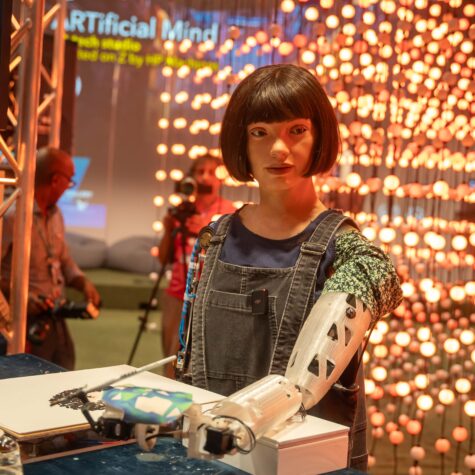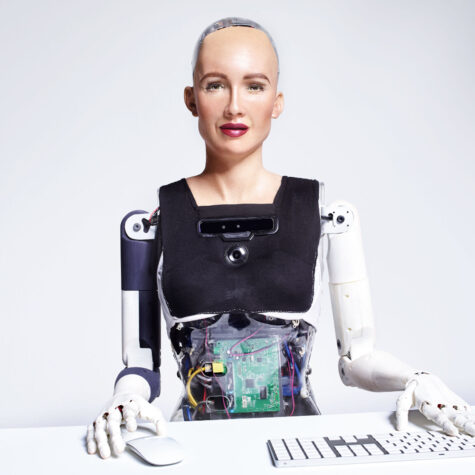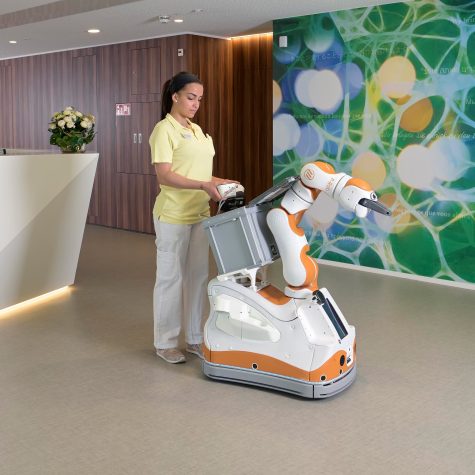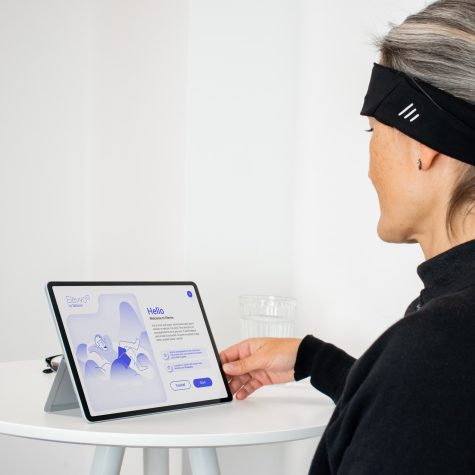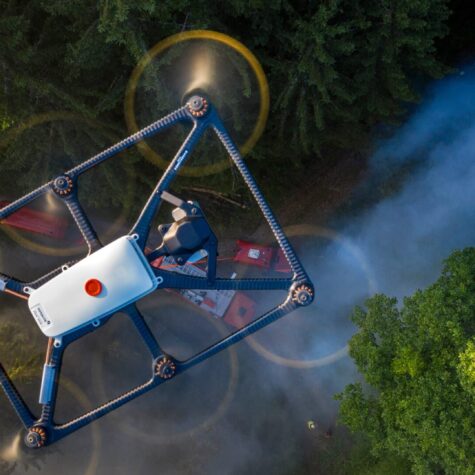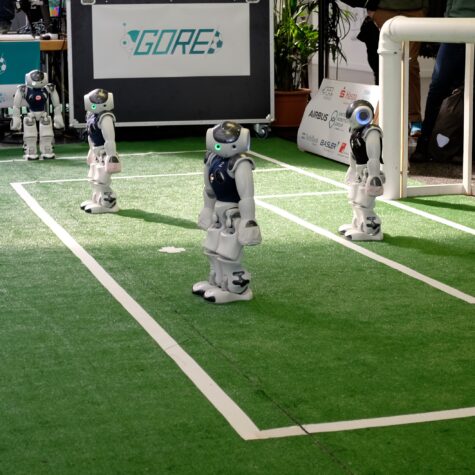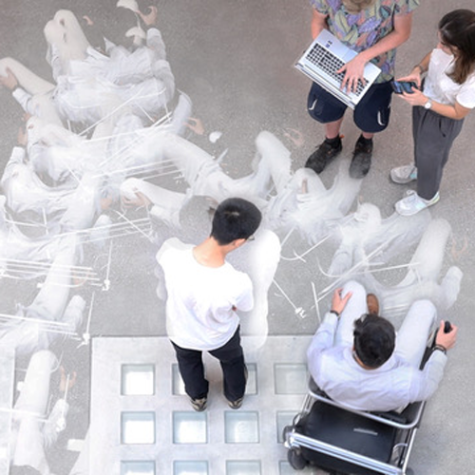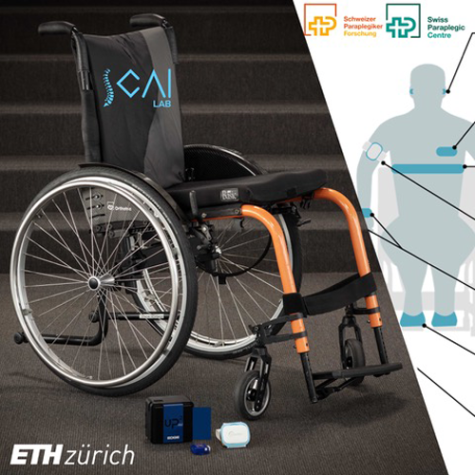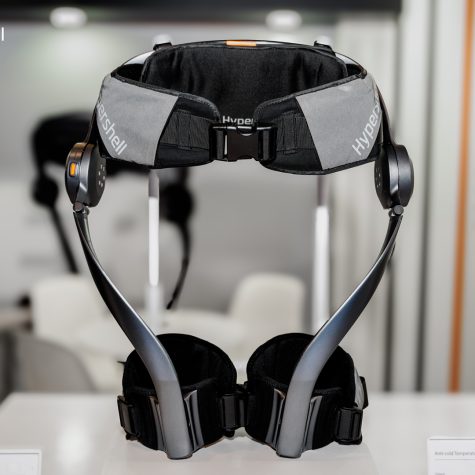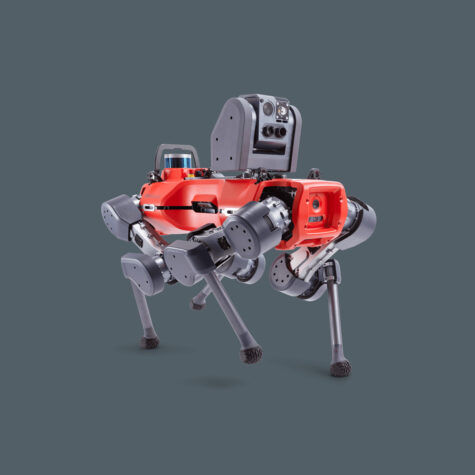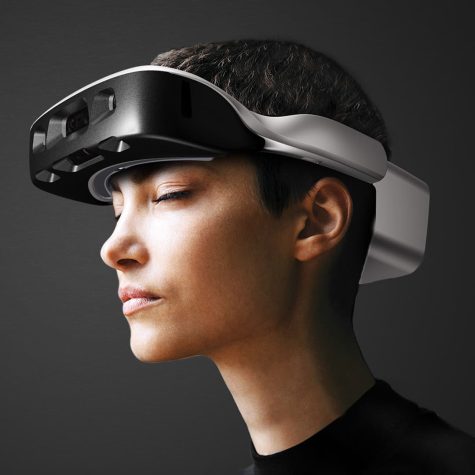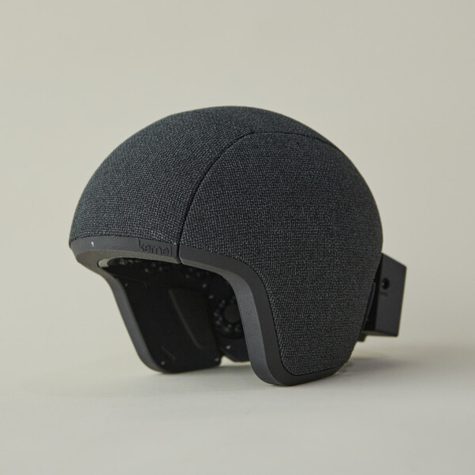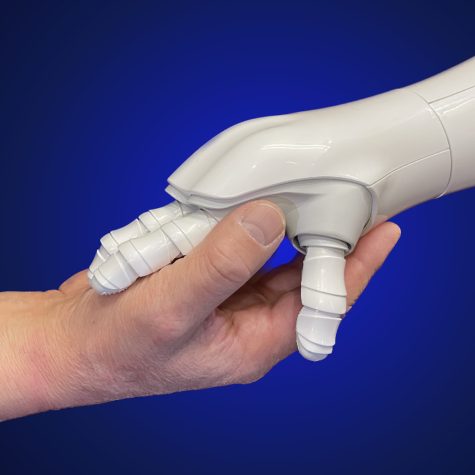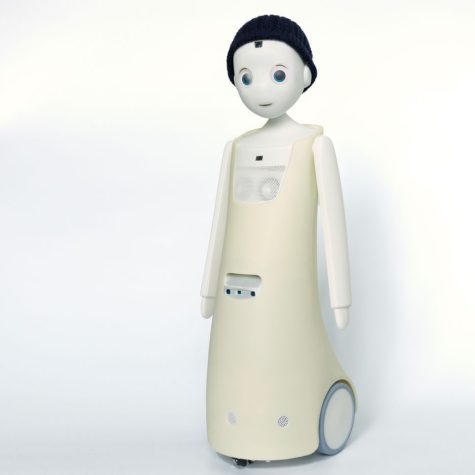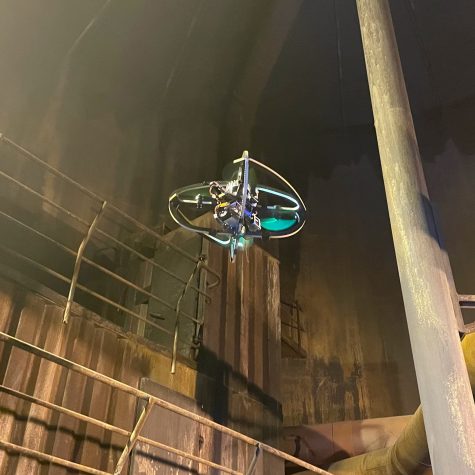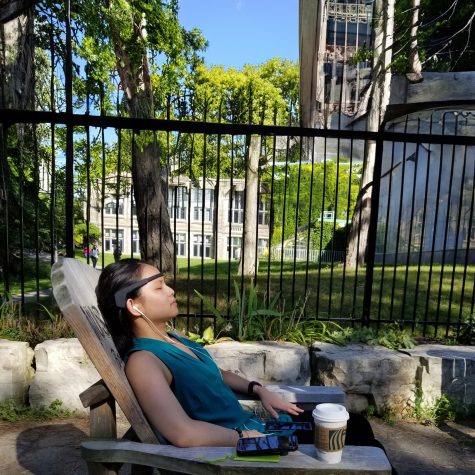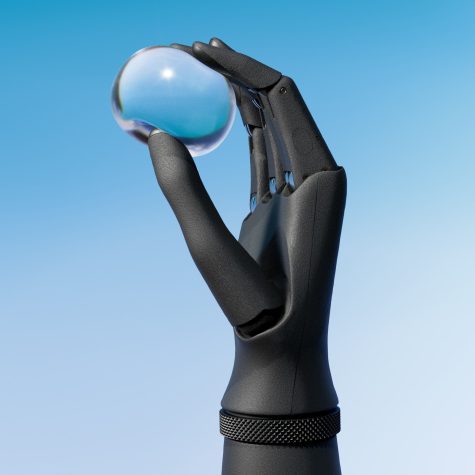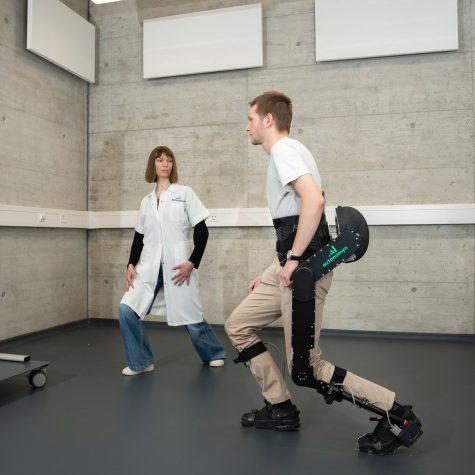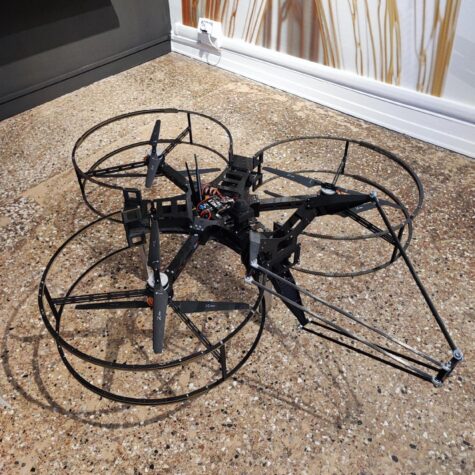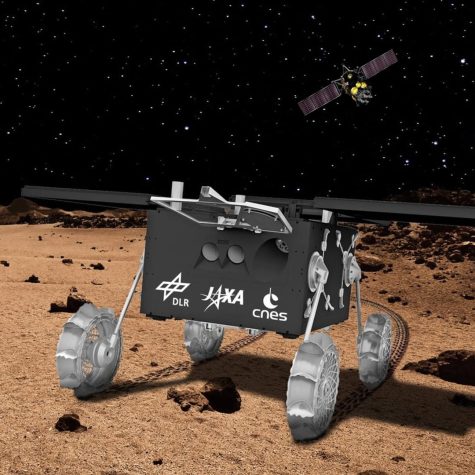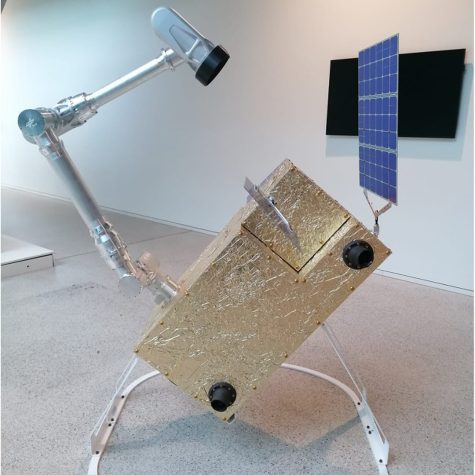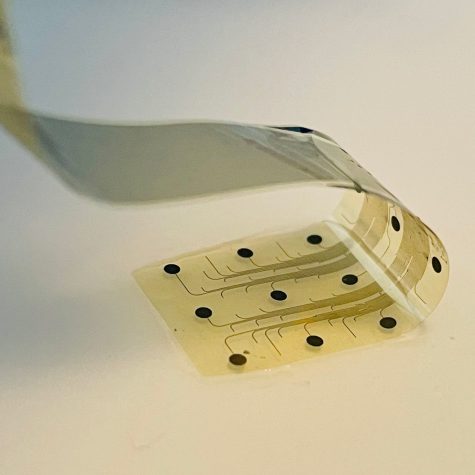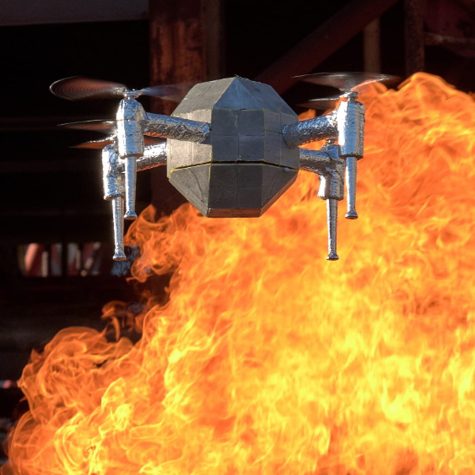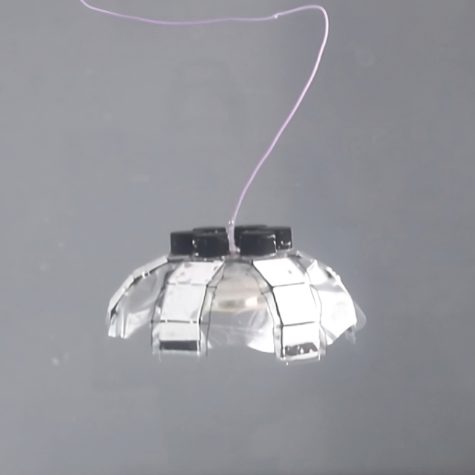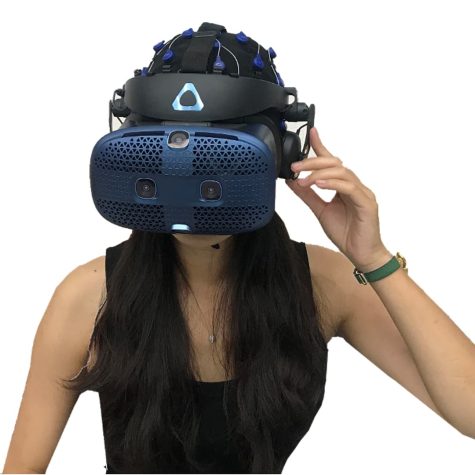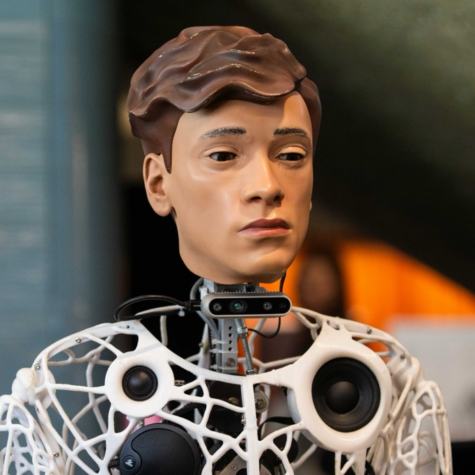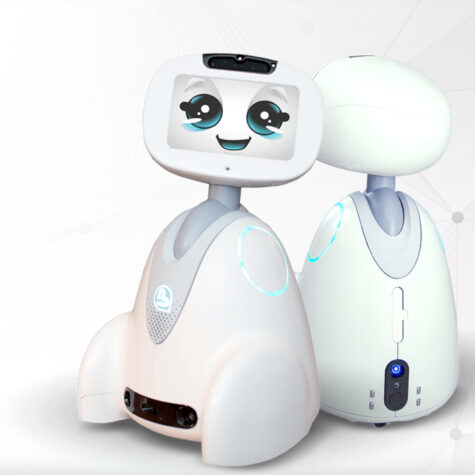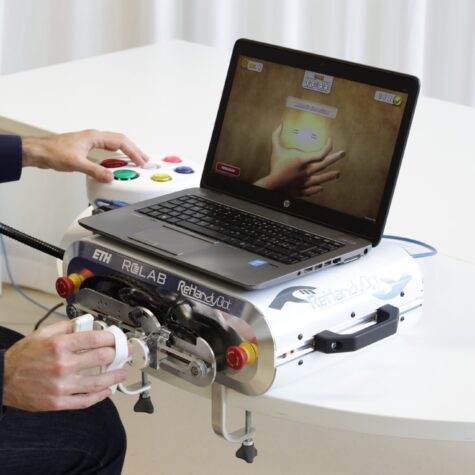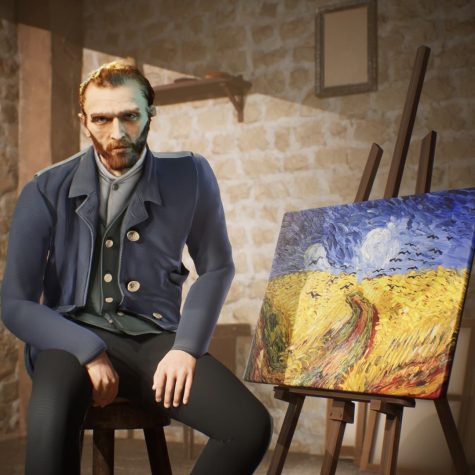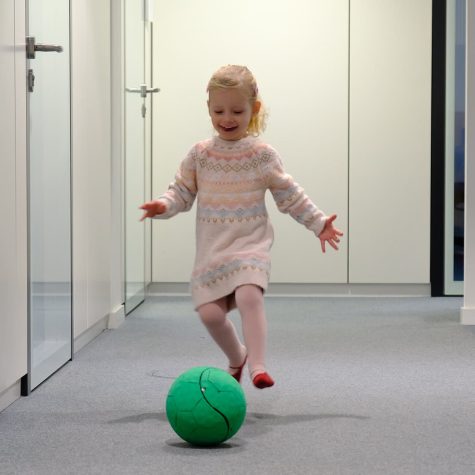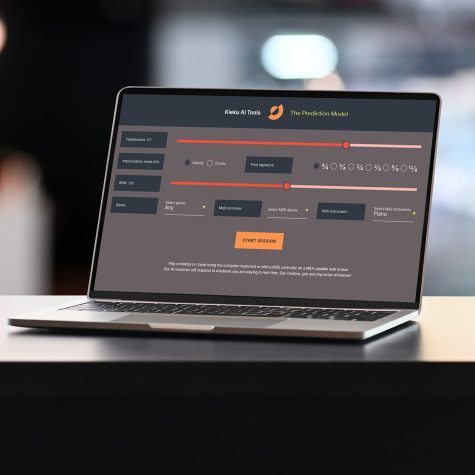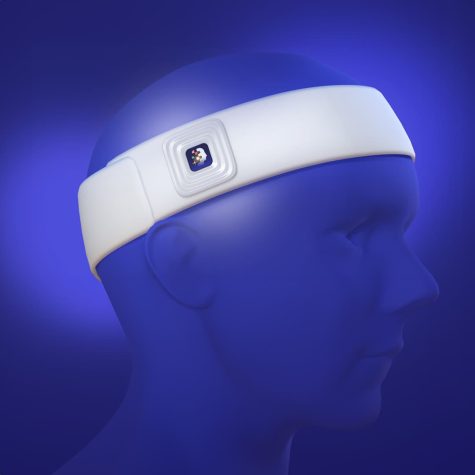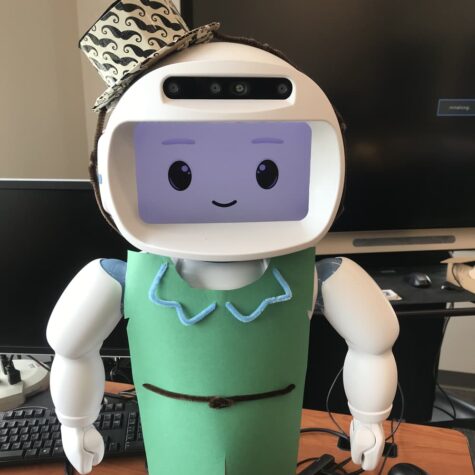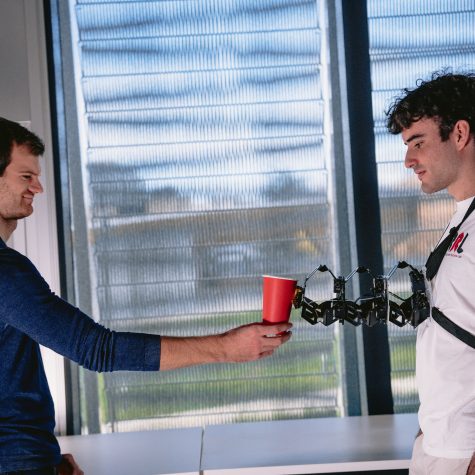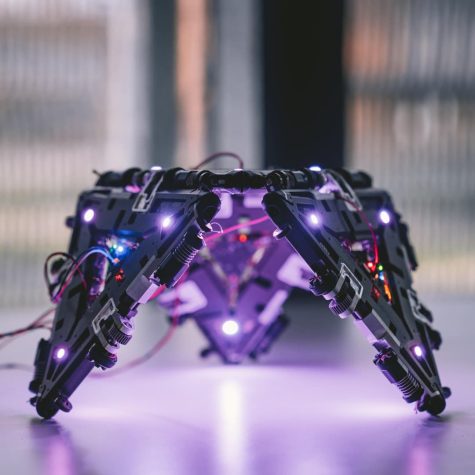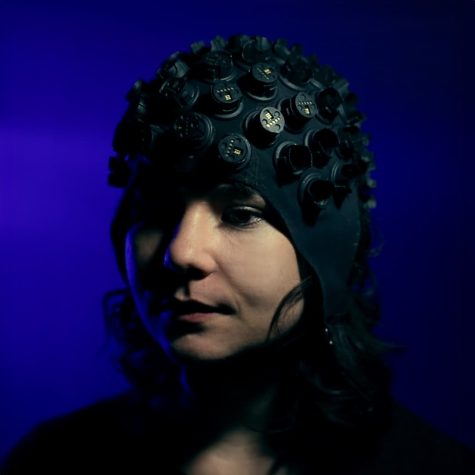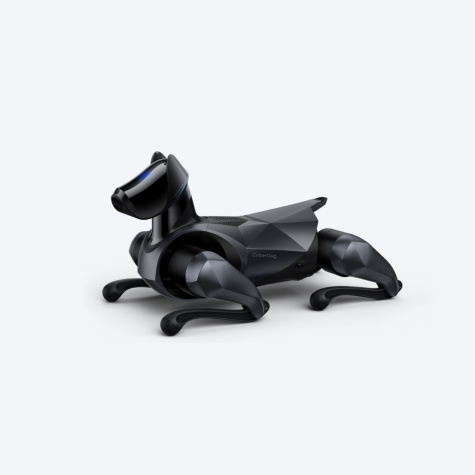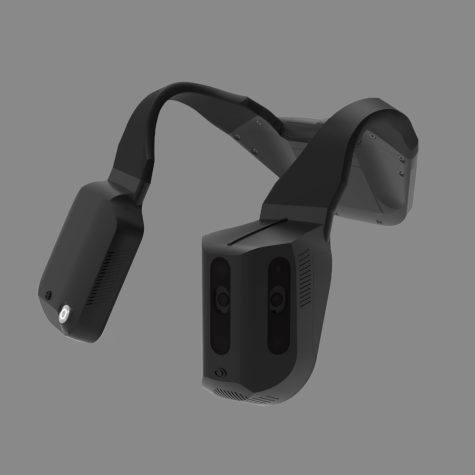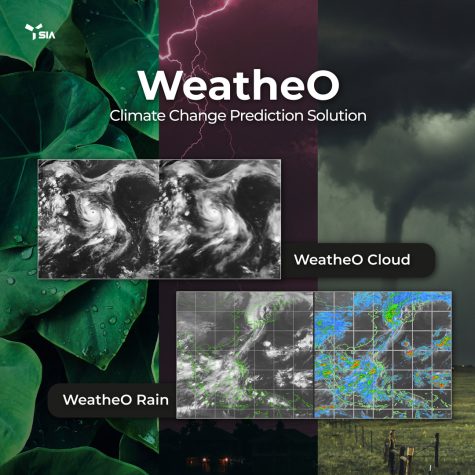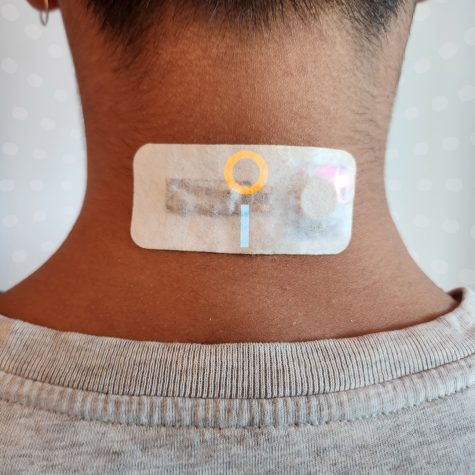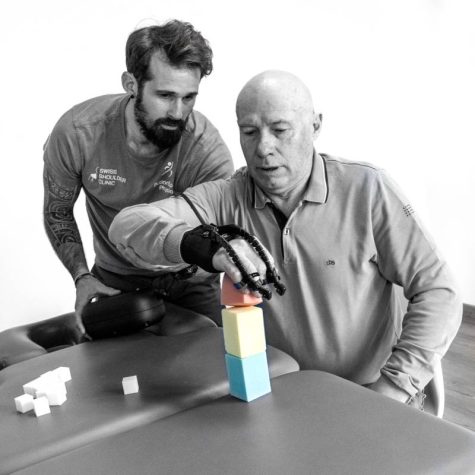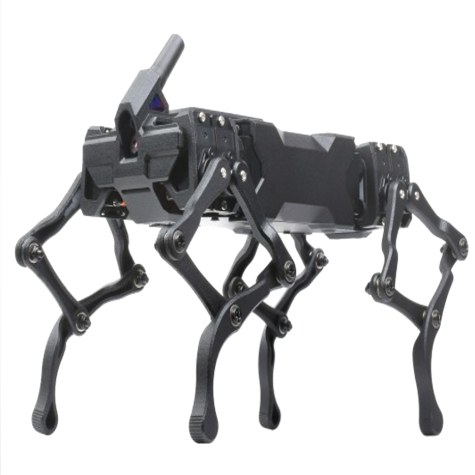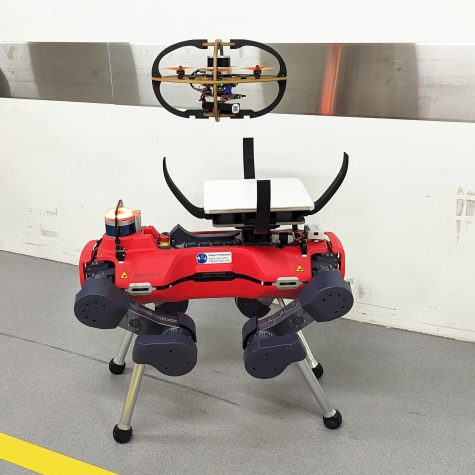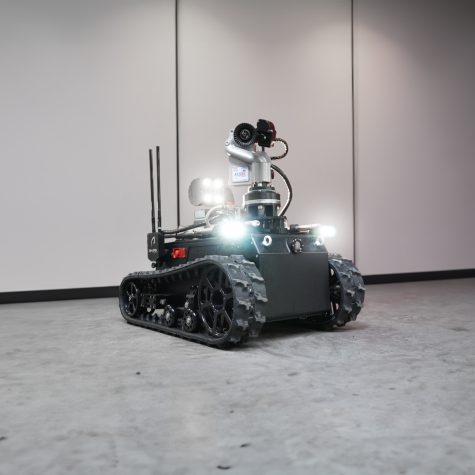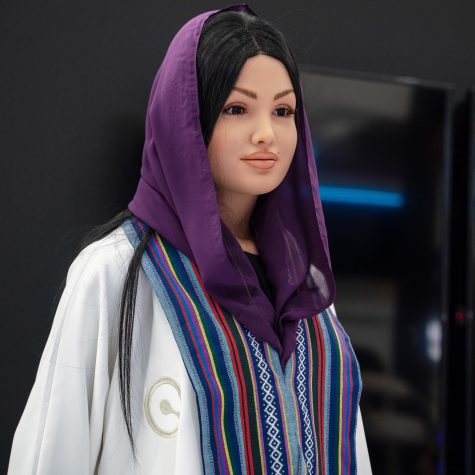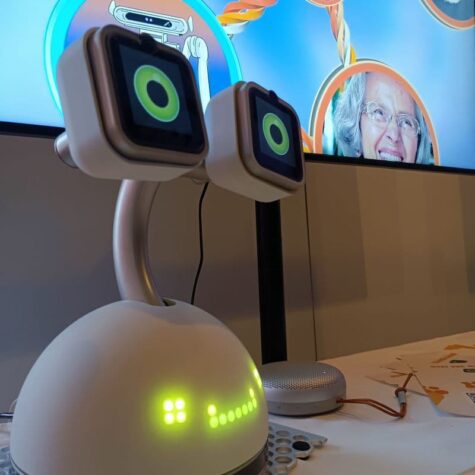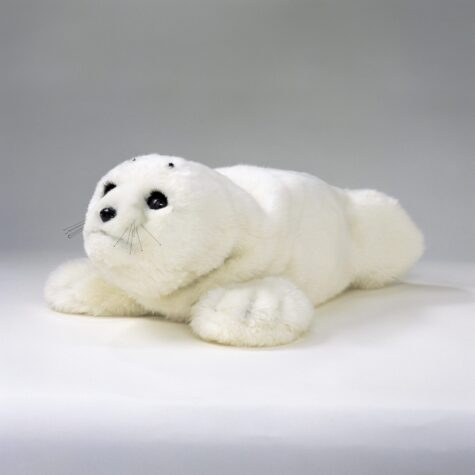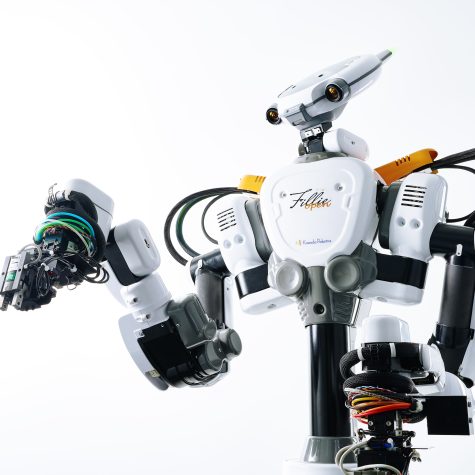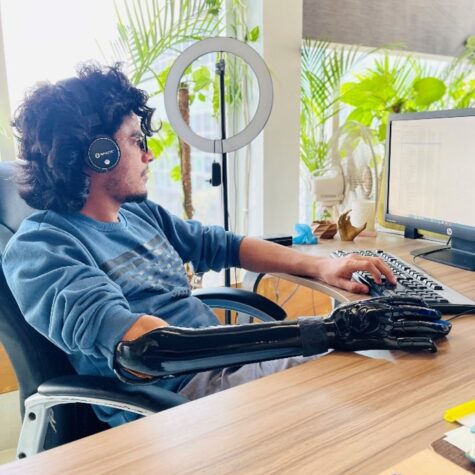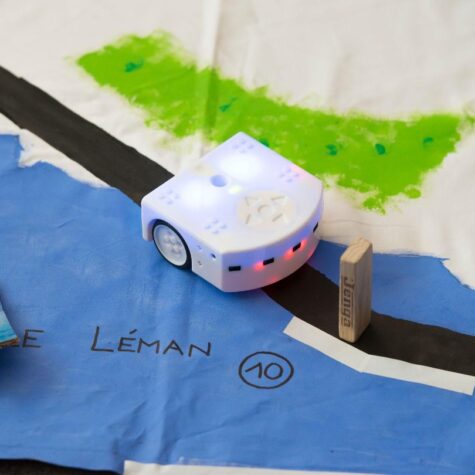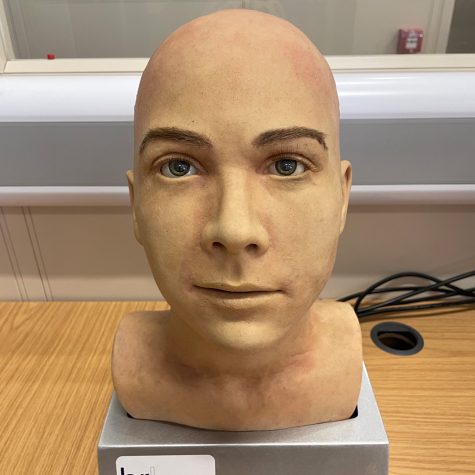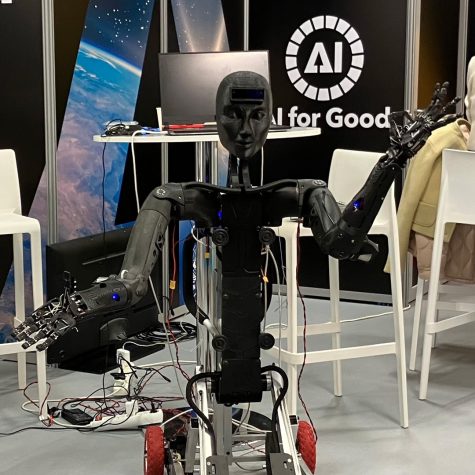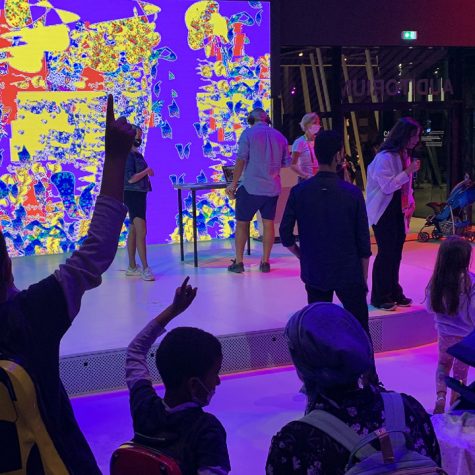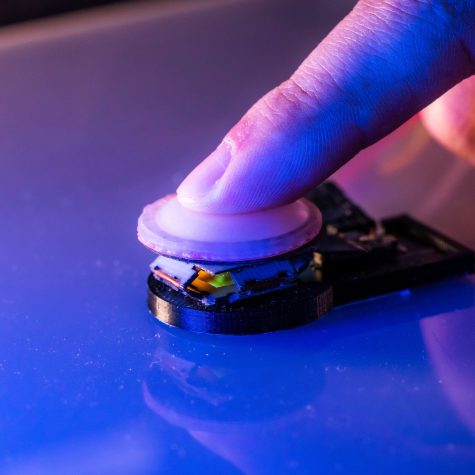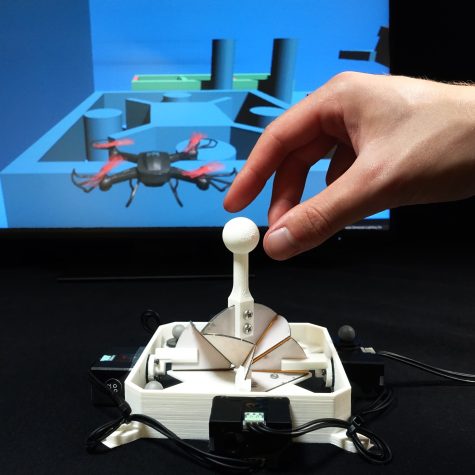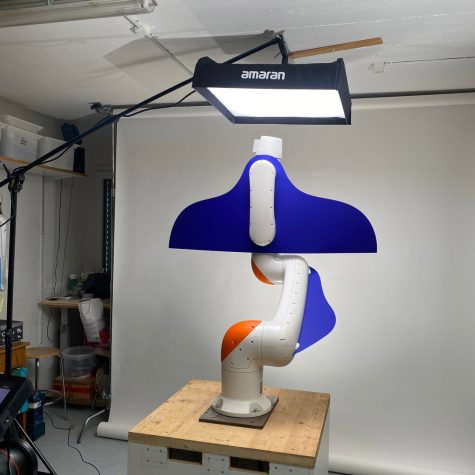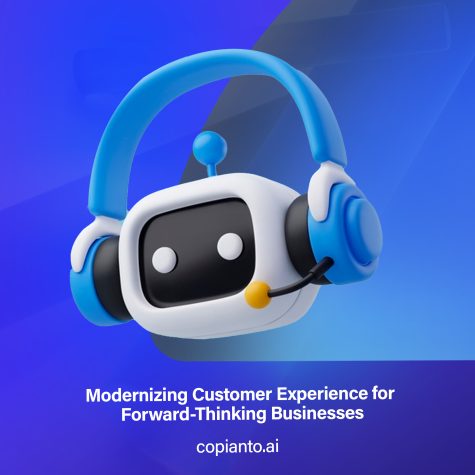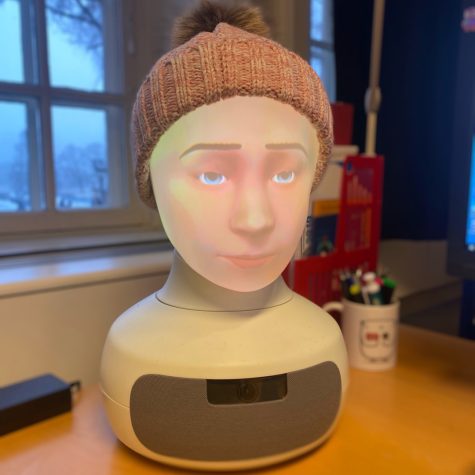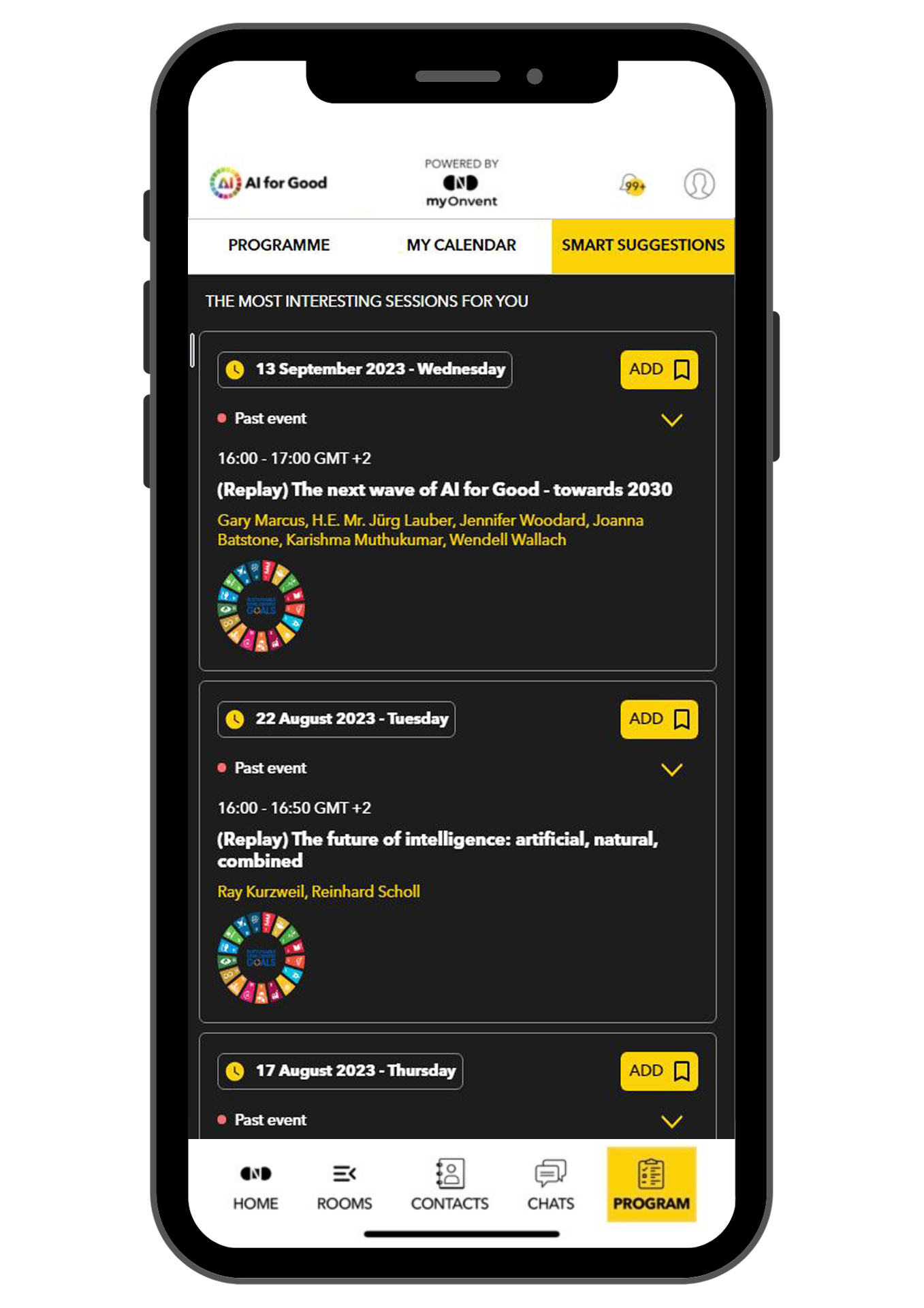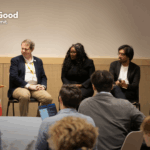
Sustainable Development Goals

Sustainable Development Goals

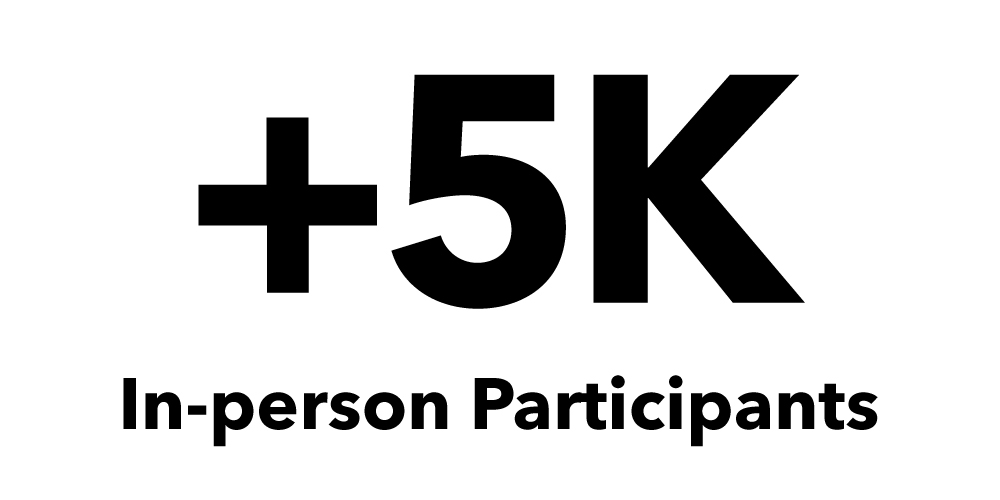


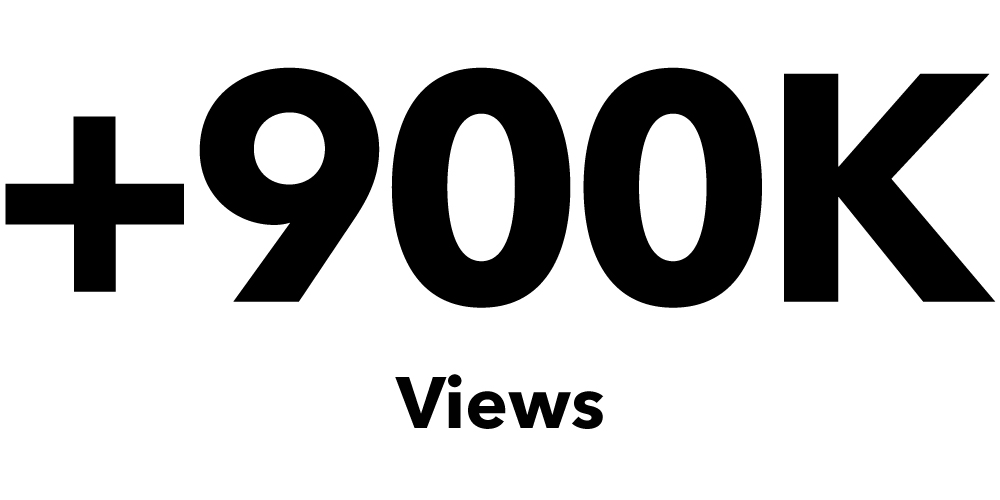
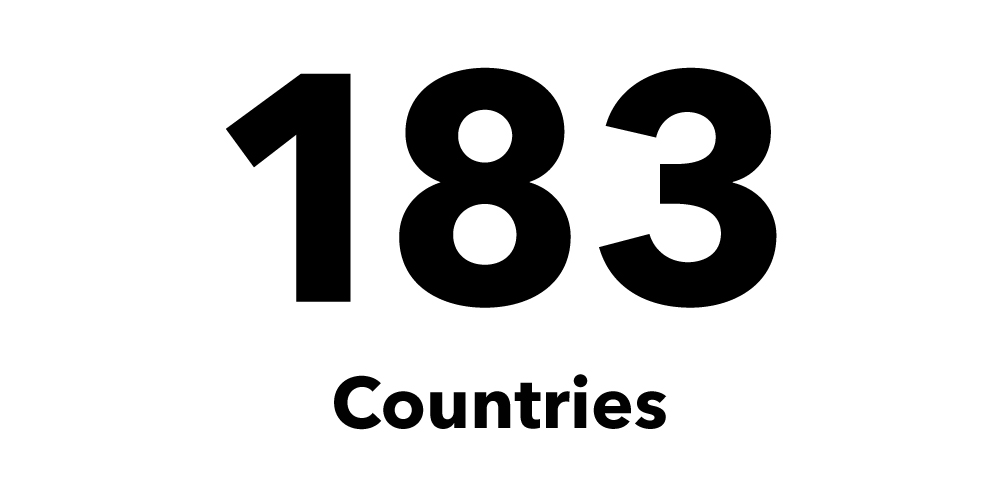

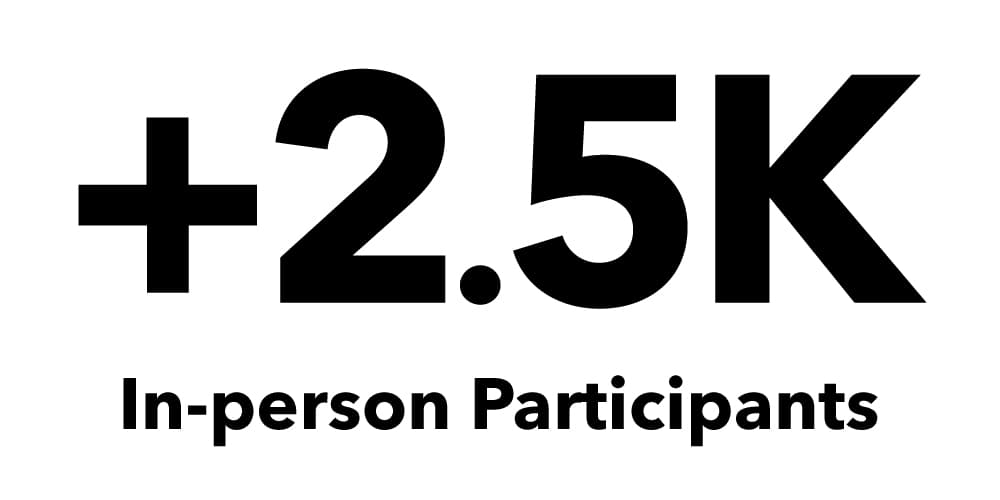




The Goal

Identify
practical applications of AI

Accelerate
progress towards the UN Sustainable Development Goals

Scale
solutions for global impact
The AI for Good Global Summit is the leading action-oriented United Nations platform promoting AI to advance health, climate, gender, inclusive prosperity, sustainable infrastructure, and other global development priorities. AI for Good is organized by the International Telecommunication Union (ITU) – the UN specialized agency for information and communication technology – in partnership with 40 UN sister agencies and co-convened with the government of Switzerland.
Organized by
 | 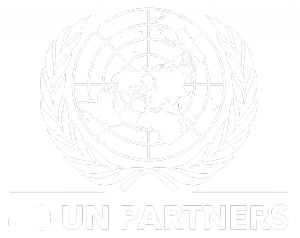 |  |
Summit Speakers

António Guterres, the ninth Secretary-General of the United Nations, took office on 1st January 2017.Having witnessed the suffering of the most vulnerable people on earth, from refugee camps to war zones, the Secretary-General has centered his efforts on ensuring human dignity for all. In a period of unprecedented global challenges, he has drawn on his commitment to the UN Charter to mobilize people and launch action to respond to the COVID-19 pandemic, address the climate emergency, advance gender equality, and achieve ambitious 21st century reforms to enhance the Organization’s vital efforts to secure peace, sustainable development, human rights and humanitarian aid.
Prior to his appointment as Secretary-General, Mr. Guterres served as United Nations High Commissioner for Refugees from June 2005 to December 2015, heading one of the world’s foremost humanitarian organizations during some of the most serious displacement crises in decades. The conflicts in Syria and Iraq, and the crises in South Sudan, the Central African Republic and Yemen, led to a huge rise in UNHCR’s activities as the number of people displaced by conflict and persecution rose from 38 million in 2005 to over 60 million in 2015.
Before joining UNHCR, Mr. Guterres spent more than 20 years in government and public service. He served as prime minister of Portugal from 1995 to 2002, during which time he was heavily involved in the international effort to resolve the crisis in East Timor.
As president of the European Council in early 2000, he led the adoption of the Lisbon Agenda for growth and jobs, and co-chaired the first European Union-Africa summit. He was a member of the Portuguese Council of State from 1991 to 2002.
Mr. Guterres was elected to the Portuguese Parliament in 1976 where he served as a member for 17 years. During that time, he chaired the Parliamentary Committee for Economy, Finance and Planning, and later the Parliamentary Committee for Territorial Administration, Municipalities and Environment. He was also leader of his party’s parliamentary group.
From 1981 to 1983, Mr. Guterres was a member of the Parliamentary Assembly of the Council of Europe, where he chaired the Committee on Demography, Migration and Refugees.
For many years Mr. Guterres was active in the Socialist International, a worldwide organization of social democratic political parties. He was the group’s vice-president from 1992 to 1999, co-chairing the African Committee and later the Development Committee. He served as President from 1999 until mid-2005. In addition, he founded the Portuguese Refugee Council as well as the Portuguese Consumers Association DECO, and served as president of the Centro de Acção Social Universitário, an association carrying out social development projects in poor neighbourhoods of Lisbon, in the early 1970s.
Mr. Guterres is a member of the Club of Madrid, a leadership alliance of democratic former presidents and prime ministers from around the world.
Mr. Guterres was born in Lisbon in 1949 and graduated from the Instituto Superior Técnico with a degree in engineering. He is fluent in Portuguese, English, French and Spanish. He is married to Catarina de Almeida Vaz Pinto and has two children, a stepson and three grandchildren.
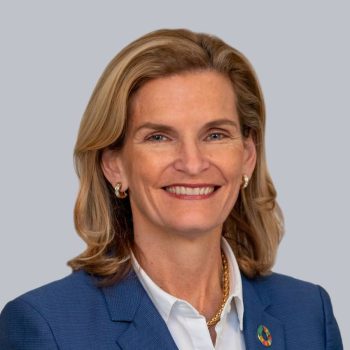
Doreen Bogdan-Martin took office as Secretary-General of the International Telecommunication Union (ITU) on 1 January 2023. Ms Bogdan-Martin was elected as ITU’s first-ever female Secretary-General by Member States at the Union’s Plenipotentiary Conference in Bucharest, Romania.
Ms Bogdan-Martin was previously the Director of the ITU Telecommunication Development Bureau. She took office on 1 January 2019, becoming the first woman in ITU history to hold one of the organization’s top elected management positions.
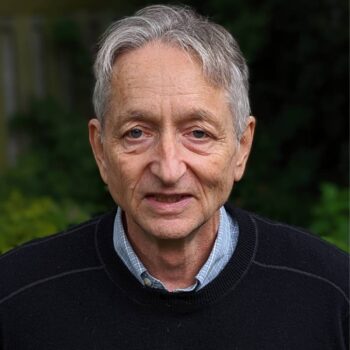
Geoffrey Hinton received his BA in Experimental Psychology from Cambridge in 1970 and his PhD in Artificial Intelligence from Edinburgh in 1978. He did postdoctoral work at Sussex University and the University of California San Diego and spent five years as a faculty member in the Computer Science department at Carnegie-Mellon University. He then became a fellow of the Canadian Institute for Advanced Research and moved to the Department of Computer Science at the University of Toronto. He spent three years from 1998 until 2001 setting up the Gatsby Computational Neuroscience Unit at University College London and then returned to the University of Toronto where he is now an emeritus distinguished professor. From 2004 until 2013 he was the director of the program on “Neural Computation and Adaptive Perception” which is funded by the Canadian Institute for Advanced Research. From 2013 to 2023 he worked half-time at Google where he became a Vice President and Engineering Fellow.
Geoffrey Hinton is a fellow of the Royal Society, the Royal Society of Canada, the Association for the Advancement of Artificial Intelligence and a former president of the Cognitive Science Society. He is an honorary foreign member of the American Academy of Arts and Sciences, the US National Academy of Engineering and the US National Academy of Science. He has received honorary doctorates from the University of Edinburgh, the University of Sussex, the University of Sherbrooke and the University of Toronto. His awards include the David E. Rumelhart prize, the IJCAI award for research excellence, the Killam prize for Engineering , The NSERC Herzberg Gold Medal, the IEEE Frank Rosenblatt medal, the IEEE James Clerk Maxwell Gold medal, the NEC C&C award, the BBVA award, the Honda Prize, the Princess of Asturias Award and the ACM Turing Award.
Geoffrey Hinton designs machine learning algorithms. His aim is to discover a learning procedure that is efficient at finding complex structure in large, high-dimensional datasets and to show that this is how the brain learns to see. He was one of the researchers who introduced the back-propagation algorithm and the first to use backpropagation for learning word embeddings. His other contributions to neural network research include Boltzmann machines, distributed representations, time-delay neural nets, mixtures of experts, variational learning, products of experts and deep belief nets. His research group in Toronto made major breakthroughs in deep learning that have revolutionized speech recognition and object classification.

Sam Altman has experienced a meteoric rise through the pantheon of American software engineers, and became one of the most well-known entrepreneurs in the world in 2022 with the emergence of ChatGPT, an Artificial Intelligence chatbot that was a vast improvement on previous chatbots and had a free interface that anyone could sample.
Born in Chicago, Illinois, US in 1985, Altman grew up in St. Louis, Missouri, and received his first computer at the age of eight. He was hooked on them from then and headed to Stanford University in 2004 to study computer science. But after just one year, he dropped out to start his life as a software engineer and entrepreneur, forming Loopt, a social network mobile app that was location based. He was a hit with Silicon Valley investors, who dropped more than $30 million into the idea, but it couldn’t seem to acquire enough users. He sold it when he was 26 in 2012 for $43.4 million, though.
In 2011, he went to work for Y Combinator, a startup accelerator that has launched more than 4,000 companies including heavy hitters like Reddit, Twitch, Stripe, DoorDash, Airbnb, and Dropbox. He was named president of Y Combinator in 2014 and expanded his role to president of the YC Group in 2016. He kept expanding the group with an equity fund and a non-profit research lab, but eventually took a move from president to Chairman of the Board as he began to focus on OpenAI, which he had been a founding member of in 2015 along with the likes of Elon Musk, Peter Thiel, and Amazon Web Services.
After four years of only doing research, OpenAI switched to a for-profit mentality, announcing it would start licensing its technologies to harness the power of Artificial Intelligence. That started in 2020 with GPT-3, a natural language model that could translate between languages. In 2021, OpenAI added DALL-E, which could generate digital images from natural language descriptions.
The company came into the public eye at the end of 2022 when it debuted the free preview of ChatGPT, its latest AI-powered chatbot. The following month, Microsoft invested $10 billion in OpenAI and ChatGPT was integrated into the Bing search engine. In 2023, he was named one of Time Magazine’s 100 most influential people. He was previously named Forbes’ top investor under 30 in 2015.
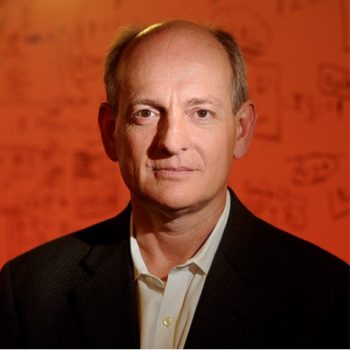
Stuart Russell received his B.A. with first-class honours in physics from Oxford University in 1982 and his Ph.D. in computer science from Stanford in 1986. He then joined the faculty of the University of California at Berkeley, where he is Professor (and formerly Chair) of Electrical Engineering and Computer Sciences and holder of the Smith-Zadeh Chair in Engineering. He is also an Adjunct Professor of Neurological Surgery at UC San Francisco and Vice-Chair of the World Economic Forum’s Council on AI and Robotics.
Russell is a recipient of the Presidential Young Investigator Award of the National Science Foundation, the IJCAI Computers and Thought Award, the World Technology Award (Policy category), the Mitchell Prize of the American Statistical Association and the International Society for Bayesian Analysis, the ACM Karlstrom Outstanding Educator Award, and the AAAI/EAAI Outstanding Educator Award. In 1998, he gave the Forsythe Memorial Lectures at Stanford University and from 2012 to 2014 he held the Chaire Blaise Pascal in Paris. He is a Fellow of the American Association for Artificial Intelligence, the Association for Computing Machinery, and the American Association for the Advancement of Science.
His research covers a wide range of topics in artificial intelligence including machine learning, probabilistic reasoning, knowledge representation, planning, real-time decision making, multitarget tracking, computer vision, computational physiology, global seismic monitoring, and philosophical foundations. His books include “The Use of Knowledge in Analogy and Induction”, “Do the Right Thing: Studies in Limited Rationality” (with Eric Wefald), and “Artificial Intelligence: A Modern Approach” (with Peter Norvig). His current concerns include the threat of autonomous weapons and the long-term future of artificial intelligence and its relation to humanity.

Tristan is Co-Founder & Executive Director of the Center for Humane Technology (CHT), a nonprofit organization whose mission is to align technology with humanity’s best interests.
He regularly briefs heads of state, technology CEOs, and US Congress members, in addition to mobilizing millions of people around the world through mainstream media.
“Harris is the closest thing Silicon Valley has to a conscience.”The Atlantic
Tristan has explored the influences that hijack human attitudes, behaviors, and beliefs, from his childhood as a magician to his coursework in Stanford’s Persuasive Technology Lab to his leadership as a Design Ethicist at Google. Today, he studies how major technology platforms wield dangerous power over our ability to make sense of the world and leads the call for systemic change.
In 2020, Tristan was featured in the two-time Emmy-winning Netflix documentary, The Social Dilemma. The film unveiled how social media is dangerously reprogramming our brains and human civilization. It reached over 100 million people in 190 countries across 30 languages.
As a co-host of the top-rated technology podcast, Your Undivided Attention, he explores the drivers behind social media’s race for attention, its destabilization of society, and potential solutions.
Learn more about Tristan’s work and get involved at the Center for Humane Technology.
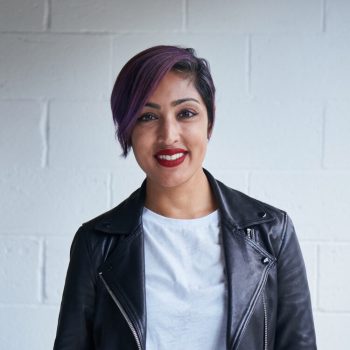
Dr. Rumman Chowdhury is a data scientist and social scientist. She is the CEO of the tech nonprofit Humane Intelligence, which builds a community of practice around evaluations of AI models, as well as the United States Science Envoy for Artificial Intelligence. Dr. Chowdhury is also Responsible AI Fellow at Harvard University’s Berkman Klein Center for Internet and Society. Previously, Dr. Chowdhury was the Director of the ML Ethics, Transparency, and Accountability (META) team at Twitter, as well as the as Global Lead for Responsible AI at Accenture Applied Intelligence. She was named one of Time’s 100 most Influential People in AI, BBC’s 100 Women, Worthy Magazine’s Top 100, recognized as one of the Bay Area’s top 40 under 40 and named by Forbes as one of Five Who are Shaping AI. Chowdhury holds two undergraduate degrees from MIT, a master’s degree in Quantitative Methods of the Social Sciences from Columbia University, and a doctorate in political science from the University of California, San Diego.
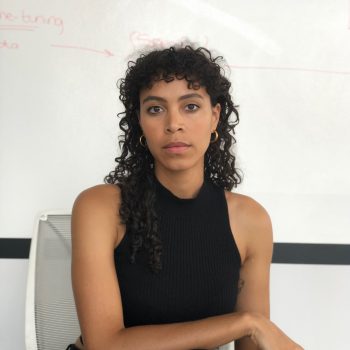
Pelonomi is CEO of Lelapa AI – A socially grounded research and product lab developing language technology for African languages. Lelapa AI has a mission to enable a noticeable uptick in the quality of life on the African continent. It aspires to do so through expanding the capacity of problem-solving Africans with resource efficient language AI. Pelonomi is also trustee of a girl scholarship fund and director of a community-based NPC. Pelonomi is drawn to the curiosities of community and connection in how they can inform imaginings of a better future, such that we can assist that future in arriving well. TIME 100 most influential people in AI. TED speaker. Bloomberg Catalyst 2023

Dr. Fatmah Baothman is the CEO of Alothaim Investment AI and R&D Company, a Member of the Global Future Council on the Future of Artificial Intelligence by the World Economic Forum. Dr. Fatmah is a national technology strategist, AI advisor, and AI Business Development & Innovation, she officially represented women in several events, the latest was at the UN for Saudi NGOs sector of the kingdom. A member of the G20-S20 Task Force and working group G20 Digital Agenda Presidency Transfer. She was the first woman in the Middle East with a doctorate in Modern Artificial Intelligence in 2003; she graduated from the School of Computing and Engineering with the Alumni Roll of Honor from the University of Huddersfield; she won several international awards and many local trophies. She is listed among AI GCC & Arab experts by MIT Technology Review. She worked with Apple and CISCO to enter the Saudi market. She founded the computer science department, the Saudi Engineering Committee for Women, which was the main derive for establishing the engineering colleges in the Western region for ladies. She founded the IEEE Chapter for Women and is the founder and board president of the AI Society. She has held various administrative positions, supervised hundreds of students in technology & AI business projects, and has several quality AI publications and book translations.
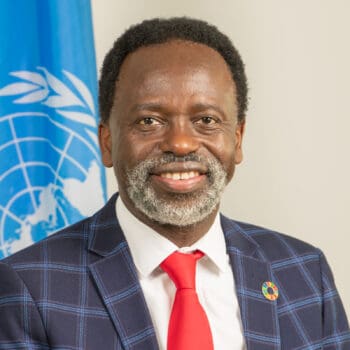
Prof. Marwala has been a visiting scholar/professor at universities in the USA, the UK, China, and South Africa. He has extensive academic, policy, management, and international experience, and is a co-holder of five patents. His research has been multi-disciplinary, involving the theory and applications of artificial intelligence to engineering, social science, economics, politics, finance, and medicine. He has served on a variety of global and national policymaking bodies, and has worked with such United Nations entities as UNESCO, UNICEF, WHO, and WIPO.
Prof. Marwala is, inter alia, a Fellow of the American Academy of Arts and Sciences, The World Academy of Sciences, the Academy of Science of South Africa, and the African Academy of Sciences.
Among the awards that Prof. Marwala has received are the Order of Mapungubwe (South Africa’s highest honour) and the Academy of South Africa’s Science-for-Society Gold Medal. He was named the 2021 IT Personality of the Year by the Institute of IT Professionals South Africa.

Linear thinking no longer applies in a world that is changing at an exponential rate. Since 2015, I have been researching, interpreting and discussing how emerging technologies will dramatically change every aspect of our lives. As a serial technology entrepreneur and investor, former regulator and analyst, I bring a multi-disciplinary perspective to my understanding of emerging trends.
My 2021 book, “The Exponential Age: How Accelerating Technology is Transforming Business, Politics and Society,” lays out a framework for thinking about the future that business and government leaders have no choice but to embrace as they plan forward.
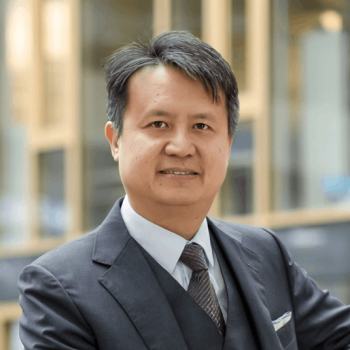
In accepting his appointment on May 8, 2020, Mr. Tang pledged that he would be guided by the interests and needs of all Member States. He said that his work and that of the Secretariat will be conducted on the principles of integrity, transparency and accountability.
Outlining his priorities for the future of the Organization, Mr. Tang said that WIPO’s work will be channeled toward the construction of an inclusive, balanced, vibrant and forward-looking global IP ecosystem that serves the interests of all countries and their stakeholders.
Prior to his appointment as WIPO Director General, Mr. Tang served as Chief Executive of the Intellectual Property Office of Singapore (IPOS). Mr. Tang also presided as Chair of WIPO’s Standing Committee on Copyright and Related Rights (SCCR) from May 2017 until his appointment as Director General.
Mr. Tang is a graduate of the National University of Singapore (Bachelor of Law, Honors) and the Georgetown University Law Center (Master of Laws, Distinction).

I am Professor of Responsible Artificial Intelligence at the Department of Computing Science at Umeå University, Sweden, where I lead the AI Policy Lab .
I am Wallenberg Scholar (2024) and Senior Advisor on AI Policy to the Wallenberg Foundations. I am a member of the Royal Swedish Academy of Engineering Sciences (IVA), and Fellow of the European Artificial Intelligence Association (EURAI) and of ELLIS (European Laboratory for Learning and Intelligent Systems). I am also Guest Professor at the Civic AI Lab, University of Amsterdam, and Honorary Professoral Fellow at the University of Melbourne.
Given the increasing importance of understanding the societal, ethical, and legal impact of AI, I am deeply involved in international AI governance, policy, and strategy initiatives. I am currently co-chair of the ACM Tech Policy Council, member of UNESCO’s High-Level Expert Group on the Implementation of the UNESCO AI Ethics Recommendation, and member of the OECD Expert Group on AI Futures. I am also founder of ALLAI, the Dutch AI Alliance, and former member of the United Nations High-Level Advisory Body on AI, the European Commission High-Level Expert Group on Artificial Intelligence, and co-chair of the World Economic Forum Global Future Council on Artificial Intelligence. As part of UNESCO’s AI Ethics Experts Without Borders, I advise governments worldwide on the development and operationalization of national AI strategies.
My research focuses on the interconnections between people, organizations, technology, and policy, with a strong emphasis on responsible and governance-aware AI systems. My work spans from formal and computational models of agency, norms, and institutions to applied AI policy, evaluation frameworks, and socio-technical system design, combining theory, engineering, and methodological design.
I have held major leadership roles in the AI research community, including Program Chair of AAMAS 2024 and Ethics Chair of AAAI 2024, and I currently serve on multiple international advisory boards and expert panels.
In recognition of my work, I am recipient of the AI Policy Leader 2025 Award (CAIDP), AI and Ethics Professional of the Year 2022, and the Medal of Honour of the City of Oeiras (Portugal). I have published over 300 peer-reviewed articles with over 19,000 citations. My newest book, The AI Paradox, is published by Princeton University Press (2026).
I regularly speak internationally on AI ethics, governance, and policy, advise public and private organizations, and contribute to major journals, conferences, and policy processes.
I also actively communicate about AI and its societal impact and can be followed on LinkedIn or Bluesky, or through my blog Thinking in Public.
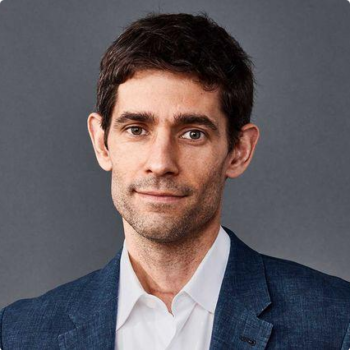
Nicholas Thompson is the CEO of The Atlantic, a position he has held since 2021. During that time, the publication has won three National Magazine Awards for General Excellence, three Pulitzer Prizes, and been named Digiday’s Publisher of the Year. It has also significantly grown revenue, while reaching the highest level of subscribers in its 167-year history. Thompson is also the former editor-in-chief of WIRED, where he built successful subscription and affiliate revenue businesses. While at WIRED he also wrote and edited multiple stories that were cited in front of Congress and one that was turned into an Academy Award winning film. Another of his stories was recently turned into a documentary for HBO Max.
Thompson is a cofounder of The Atavist, a multimedia CMS that was sold to WordPress, and Speakeasy.ai, which was sold to Amplica Labs. He previously served as editor of NewYorker.com. He is a life member at the Council on Foreign Relations, a board member at The National Committee on American Foreign Policy, the author of The Running Ground and The Hawk and the Dove: Paul Nitze, George Kennan, and the History of the Cold War, and a former contributor to CNN and CBS News. He films a daily video on tech policy for Linkedin and has roughly two million followers across social media platforms. Thompson has long been a competitive runner. In 2021, he set the American record for men aged 45 and older in the 50K race, and in 2025, he became the top-ranked runner in the world in his age group for the 50-mile run. He is a Phi Beta Kappa graduate of Stanford where he earned degrees in Earth Systems, Political Science, and Economics.
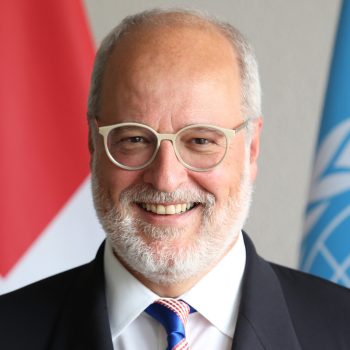
Alexandre Fasel has taken up his position as State Secretary for Foreign Affairs on 1 September 2023. From June 2021 onwards he served as the Special Representative for Science Diplomacy of the Swiss Federal Department of Foreign Affairs. As Ambassador of Switzerland in the United Kingdom from autumn 2017, he contributed to the implementation of the Swiss Government’s ‘Mind the Gap’ strategy on Brexit. During the course of his career he has engaged with the topics of European integration, the interface between foreign and domestic policy, foreign policy analysis and policy formulation as well as multilateral
diplomacy, the latter as Head of the UN Division at the Federal Department of Foreign Affairs and as Permanent Representative of Switzerland to the Office of the United Nations and other International Organisations in Geneva.
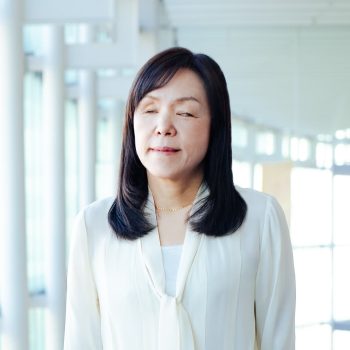
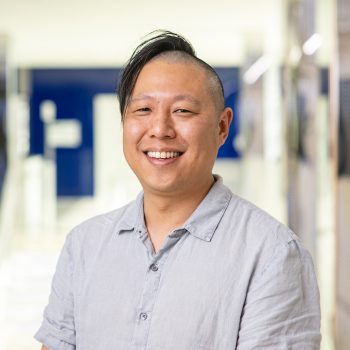
Hao Li is CEO and Co-Founder of Pinscreen, a startup that builds cutting edge AI-driven virtual avatar technologies, as well as Associate Professor at the Mohamed bin Zayed University of Artificial Intelligence (MBZUAI). He was previously a Distinguished Fellow of the Computer Vision Group at UC Berkeley and Associate Professor of Computer Science at the University of Southern California, where he was also Director of the USC Institute for Creative Technologies. Hao’s work in Computer Vision and Graphics focuses on 3D digitization and neural synthesis for immersive technologies and content creation. His research involves the development of novel deep learning, data-driven, and geometry processing algorithms. He is known for his seminal work in avatar creation, facial animation, hair digitization, dynamic shape processing, as well as his recent efforts in AI media synthesis and deepfake detection. He was also a visiting professor at Weta Digital, a research lead at Industrial Light & Magic / Lucasfilm, and a postdoctoral fellow at Columbia and Princeton Universities. He was named top 35 innovator under 35 by MIT Technology Review in 2013 and was also awarded the Google Faculty Award, the Okawa Foundation Research Grant, as well as the Andrew and Erna Viterbi Early Career Chair. He won the Office of Naval Research (ONR) Young Investigator Award in 2018 and was named named to the DARPA ISAT Study Group in 2019. In 2020, he won the ACM SIGGRAPH Real-Time Live! “Best in Show” award. Hao was speaker at the World Economic Forum in Davos in 2020 and exhibited at SXSW in 2022. His startup, Pinscreen, was recipient of the Epic Megagrants in 2021, and in 2022, Hao was featured in the first season of Amazon’s documentary re:MARS Luminaries. Hao obtained his PhD at ETH Zurich and his MSc at the University of Karlsruhe (TH).

Gita Gopinath is the First Deputy Managing Director of the International Monetary Fund (IMF) as of January 21, 2022. In that role she oversees the work of staff, represents the Fund at multilateral forums, maintains high-level contacts with member governments and Board members, the media, and other institutions, leads the Fund’s work on surveillance and related policies, and oversees research and flagship publications.
Ms. Gopinath previously served as the Chief Economist of the Fund from 2019-22. In that role, she was the Economic Counsellor of the Fund and Director of its Research Department. She helmed thirteen releases of the World Economic Outlook, including forecasts of the impact of the Covid-19 pandemic on the global economy. She co-authored the “Pandemic Paper” on how to end the COVID-19 pandemic that set globally endorsed targets for vaccinating the world and led to the creation of the Multilateral Task Force made up of the leadership of the IMF, World Bank, WTO, and WHO to help end the pandemic and the establishment of a working group with vaccine manufacturers to identify trade barriers, supply bottlenecks, and accelerate delivery of vaccines to low- and lower-middle income countries. She also worked with other Fund departments to connect with policy makers, academics, and other stakeholders on a new analytical approach to help countries respond to international capital flows via the Integrated Policy Framework.
Prior to joining the IMF, Ms. Gopinath was the John Zwaanstra Professor of International Studies and of Economics at Harvard University’s economics department (2005-22) and before that she was an assistant professor of economics at the University of Chicago’s Booth School of Business (2001-05). Her research, which focuses on International Finance and Macroeconomics, is widely cited and has been published in many top economics journals. She has authored numerous research articles on exchange rates, trade and investment, international financial crises, monetary policy, debt, and emerging market crises.
Ms. Gopinath is an elected fellow of the American Academy of Arts and Sciences and of the Econometric Society, and a member of the Group of Thirty. She has previously served as the co-director of the International Finance and Macroeconomics program at the National Bureau of Economic Research (NBER), a member of the economic advisory panel of the Federal Reserve Bank of New York and a visiting scholar at the Federal Reserve Bank of Boston.
Ms. Gopinath was born in India and is a U.S. national and an overseas citizen of India. She has received numerous awards and commendations. In 2021, Financial Times named her among the ‘25 most influential women of the year’, the International Economic Association named her the Schumpeter-Haberler Distinguished Fellow, the Agricultural & Applied Economics Association recognized her with the John Kenneth Galbraith Award, and the Carnegie Corporation named her among ‘Great (American) Immigrants’.

Jim Zemlin’s career spans three of the largest technology trends to rise over the last decade: mobile computing, cloud computing, and open source software. Today, as executive director of The Linux Foundation, he uses this experience to accelerate innovation in technology through the use of open source and Linux.
At The Linux Foundation, Jim works with the world’s largest technology companies, including IBM, Intel, Google, Samsung, Qualcomm, and others to help define the future of computing on the server, in the cloud, and on a variety of mobile computing devices. His work at the vendor-neutral Linux Foundation gives him a unique and aggregate perspective on the global technology industry.
Jim has been recognized for his insights on the changing economics of the technology industry, and he is a regular keynote speaker at industry events. He advises a variety of startups, including Splashtop, and sits on the boards of the Global Economic Symposium, Open Source For America, and Chinese Open Source Promotion Union.
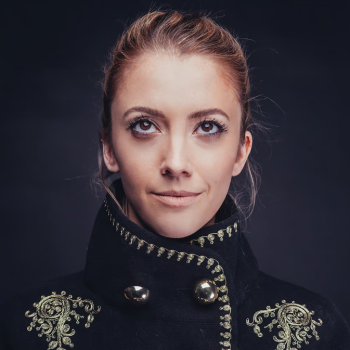
Taryn Southern is an award-winning storyteller, AI strategist and artist at the intersection of AI and human potential. As a pioneering content creator, she amassed more than 1 billion views on her content before achieving a number of other firsts, including composing the world’s first AI pop album and directing a Tribeca Film documentary on brain-computer interfaces. As a breast cancer survivor and head of special projects at Blackrock Neurotech, Taryn is passionate about the application of technology to restore function and bring independence to patients. As a speaker and artist, she has been invited to present at companies like Google, Dell, Gartner, Lenovo, Morgan Stanley and Deloitte on how to harness the creative powers of AI. Her work has been featured in Fast Company, Wired, Forbes, Psychology Today, Harvard Business Review, Vanity Fair, Billboard, and more.
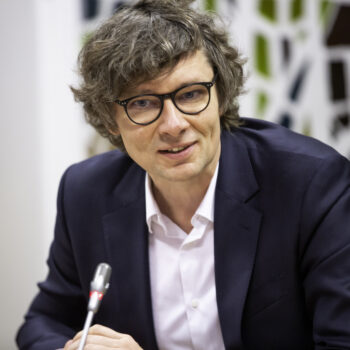
Tomas Lamanauskas is Deputy Secretary-General of the International Telecommunication Union, elected at the ITU Plenipotentiary Conference of 2022, and taking up duties as of January 2023.
His 25 years of experience spans across sectors of telecoms and digital policy, regulation and strategy, stemming from executive level positions in agencies, companies, and organizations across Europe, the Middle East, the Caribbean and the Pacific region.
As Deputy Secretary-General of ITU, Tomas focuses on the financial sustainability and operational excellence of the organization. He also works to raise the digital industry’s ambition in fighting the climate crisis through the Green Digital Action initiative and promotes investments into the digital infrastructure as well as digital resilience through the Digital Infrastructure Investment Initiative and other efforts. Additionally, Tomas contributes to the global efforts to harness the opportunities and mitigate challenges of new technologies, in particular Artificial Intelligence, including through his role as a co-chair of the United Nations Inter-Agency Working Group on AI. He is also playing a key role in ensuring ITU’s support to other UN-wide development and governance efforts, including through the World Summit of the Information Society process and membership at the Operational Steering Committee of the UN Joint SDG Fund.
Tomas holds Master’s Degrees in Public Administration (Harvard), Leadership and Strategy (London Business School), Telecommunications Regulation and Policy (The University of the West Indies) and Law (Vilnius University).

Dr. Ebtesam Almazrouei is a pioneering force in artificial intelligence (AI) and advanced technology, with a wealth of experience spanning both government and the private sector. Her exceptional expertise in artificial intelligence, supercomputing, telecommunications, semiconductors, technology governance, advanced technology, and strategic innovation has positioned her at the forefront of AI leadership globally, earning recognition among H2o.ai’s world’s top 100 AI leaders. As a thought leader, entrepreneur, and patent inventor, Dr. Almazrouei has been instrumental in pioneering cutting-edge AI models and fostering global AI policy frameworks.
Dr. Ebtesam Almazrouei plays a key role in shaping AI strategies and frameworks, and building international collaborations on a global scale. She serves as Chairperson of the United Nations AI for Good Impact Initiative and as a Senior AI Consultant for the International Telecommunication Union (ITU), playing a critical role in shaping global AI policies, technology governance, and regulation frameworks.
Dr. Almazrouei’s exceptional contributions have garnered her notable honors, including the Leading AI Women in the World list, the Global Leadership Women in Tech® MENA Award, and a spot among the Top 100 Global Tech Speakers. She also holds various advisory roles and board memberships across various international organizations.
As the CEO and Founder of AIE3, Dr. Almazrouei continues to drive AI innovation, developing scalable AI solutions, building capacity, and leading industry-wide advancements. She previously held senior executive roles, including Executive Director, Acting Chief AI Researcher, and Founder of the AI Cross Center Unit (AICCU) at the Technology Innovation Institute (TII). She established and led the AI Cross Center, driving strategic planning and development. Dr. Ebtesam Almazrouei directed and spearheaded the development of the Falcon Large Language Models (LLMs)—Falcon 7B, 40B, and 180B. These AI models have made significant strides in AI research and development in the world, particularly in open-source generative AI models. Additionally, she developed NOOR, the first and the largest Arabic LLM in 2022.
Dr Ebtesam Almazrouei is the first Emirati woman to hold a Ph.D. in Artificial Intelligence for Wireless Communication Engineering and Computer Science. Her vision is to leverage AI to address global challenges and drive meaningful societal impact.
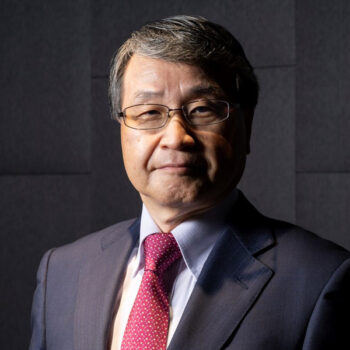
Seizo Onoe took office as Director of the Telecommunication Standardization Bureau (TSB) at the International Telecommunication Union (ITU) on 1 January 2023.
Before his election as TSB Director by ITU Member States, he completed an over 30-year career with Japanese mobile operator NTT DOCOMO. In 2021, he became Executive Vice President and Chief Standardization Strategy Officer for the Nippon Telegraph and Telephone (NTT) Corporation and a Fellow of NTT DOCOMO, INC. From 2017, he served as NTT DOCOMO’s Chief Technology Architect and President of its subsidiary DOCOMO Technology.
Between 2012 and 2017, he served as NTT DOCOMO’s Chief Technology Officer and Executive Vice President, a Member of the Board of Directors, and Managing Director of R&D Innovation Division. Earlier, he served as Senior Vice President and Managing Director of NTT DOCOMO’s R&D Strategy Department and Managing Director of the company’s Radio Network Development Department.
As TSB Director, he heads the part of ITU responsible for the coordination of technical standards and collaborative standardization processes that enable the interconnection and interoperability of information and communication technologies (ICTs) worldwide.
Mr Onoe is committed to facilitating open and inclusive standardization processes, along with promoting digital technologies to address global issues, building a new ecosystem that reflects evolving technologies, and strengthening cooperation and collaboration in ICT standardization worldwide.
Known in the industry as “the father of LTE” (Long-Term Evolution), he helped upgrade the wireless broadband standard for mobile devices and networks. He now aims for global outreach to bridge standardization gaps, deliver the benefits of technology widely and speedily, and ensure meaningful and affordable broadband access for everyone.
Mr Onoe holds a Master’s degree in electronics from the Kyoto University Graduate School of Engineering.

Vincent Vanhoucke is a Distinguished Engineer at Waymo. His research has spanned many areas of artificial intelligence and machine learning, from speech recognition to computer vision and robotics. His Udacity lecture series has introduced over 100,000 students to Deep Learning. He founded the Robotics research team, now part of Google DeepMind, and is President of the Robot Learning Foundation, which organizes the Conference on Robot Learning, now in its eighth year. He holds a doctorate from Stanford University and a diplôme d’ingénieur from the École Centrale Paris.
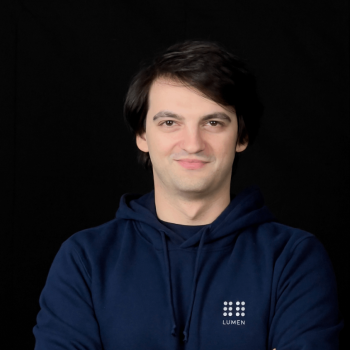

Professor Renée Cummings is an artificial intelligence (AI), data and tech ethicist, and the first data activist-in-residence at the University of Virginia’s (UVA) School of Data Science where she was named professor of Practice in Data Science. She is also a nonresident senior fellow at The Brookings Institution and a distinguished member of the World Economic Forum’s Data Equity Council. She is also a criminologist, criminal psychologist, therapeutic jurisprudence specialist, and a community scholar at Columbia University. She also serves as co-director of the Public Interest Technology (PIT) University Network, at UVA, and is on the board of advisors of the Carnegie Council for Ethics in International Affairs.
Committed to stretching the imagination of data science, reimagining the relationship between data and society, and redefining the data power structure, Renée works at the intersection of technology, power, and society. She examines the ethical implications of data on society, exploring the impact of AI on duty of care and due process, expanding our understanding of the ethical risks of AI and how to build ethically resilient, rewarding, responsible, sustainable, justice-oriented, and trauma-informed AI for the benefit of all.
At the School of Data Science, her research focuses on data justice, data trauma, algorithmic policing, surveillance technology, and AI for criminal justice reform; using data to enhance police accountability and transparency and improve police practices, fairness, and decision-making accuracy through community engagement and public interest technology. Justice, equity, diversity, and inclusion are critical aspects of her work as she promotes inclusive innovation and ethical AI.
Her work extends to include data, democracy, representation, identity, and governance, critically examining data rights, algorithmic justice, social justice, and design justice through a criminal justice lens. Renée also specializes in AI leadership, AI policy development, AI governance, public sector AI, AI risk management, AI crisis communication, building ethical AI and using AI to save lives. Renée is committed to using AI to empower and transform, helping governments and organizations navigate the AI landscape and develop future AI leaders.
Committed to justice, equality, empowerment, and democracy, Renée is a champion for the voices of the historically underrepresented in STEM and technological advancement and increases the visibility and amplifies the voices of vulnerable communities in AI and new and emerging technologies, forcing us to stretch the ethical imagination of AI. Through her activism and research, Renée is creating space for people without power to participate meaningfully in the process of designing, developing, deploying, and adopting AI.
Through rigorous thinking, meaningful participation, and scholarship, Renée advocates for AI we can trust. Renée is on the frontline of ethical AI, generating real time justice-oriented solutions to the consequences of AI and the impacts of data and technology on society. A thought-leader, motivational speaker, and mentor, Renée has given a multitude of talks to conferences, groups, and policymakers, and is a recognized expert who lectures, nationally and internationally on ethical data science and ethical AI. Renée has mastered the art of creative storytelling, science communication and deconstructing complex topics into critical everyday conversations that inform and inspire.

Lane Dilg is the Head of Strategic Partnerships on the Global Affairs Team at OpenAI, where she supports OpenAI’s mission of ensuring that artificial general intelligence benefits all of humanity. Prior to joining OpenAI, Lane spent more than 15 years in the public sector, including advising U.S. Department of Energy leadership on the deployment of billions of dollars in public investment in clean energy technologies; managing a city through the COVID-19 pandemic; drafting and defending precedent-setting public health, affordable housing, and worker protection laws; counseling CXO leadership of a global research university and leading health care system; prosecuting child exploitation offenses as a federal prosecutor; and serving as counsel on the U.S. Senate Judiciary Committee Subcommittee on Terrorism, Technology, & Homeland Security. Lane is a graduate of Yale Law School, Harvard Divinity School, and the University of North Carolina at Chapel Hill.

Dr. Le Lu leads the global Medical AI R&D efforts for Alibaba DAMO Academy since August 2021. He had worked at PAII Inc., leading the division of Bethesda Research Lab, after more than five productive years at National Institutes of Health, Clinical Center, Radiology and Imaging Science Department, and from NVIDIA AI-Infra division. He was a senior staff scientist at Siemens corporate research and Siemens Medical Solutions from 2006 until 2013. Le is an IEEE Fellow (Computer Society) on medical imaging, AI and oncology imaging; an MICCAI society board member, IEEE Signal Processing Society Distinguished Industrial Speaker (2021-2023), also serves as an Associate Editor for IEEE Trans. Pattern Analysis and Machine Intelligence (IF: 24.3) and IEEE Signal Processing Letters and Frontiers in Oncology. Le received his Ph.D. degree of Computer Science from Johns Hopkins University in the U.S. in 2007. He published 250+ peer-reviewed articles and leading conference papers including Nature Medicine, Nature Communications, Annals of Surgery, Radiology, Clinical Cancer Research, IEEE TMI, MediaIA, CVPR/AAAI/ICCV/ECCV/NeurIPS/MICCAI/IPMI, with overall citations of 23880 by January 2024. He won many best paper or best paper finalist awards in RSNA, MICCAI and other leading clinical conference. He published the most cited IEEE TMI paper in the last 10 years, and the most cited medical imaging paper in IEEE CVPR in the last 10 years. He is the co-inventor of more than 100 US/PCT/CN patents (granted & pending).
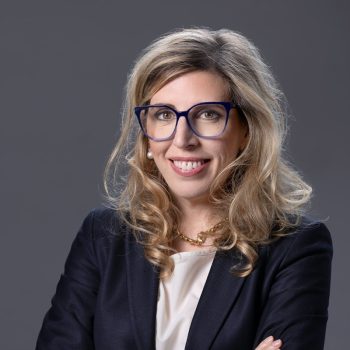
I’m a learner and a shaper, I like equally strategy and execution and believe on evolution through creativity and de-learning. I really get motivated by big challenges and like to execute in global environments. I believe in teams and the power of culture and collective thinking. People make companies and is the most important asset of all, a motivated team will conquer the world.
I have more than 15 years of expertise in healthcare (Medical Devices in Neuromodulation, Diabetes & others) in addition to consumer goods experience. Love to cross-pollinate ideas between the scientific and FMCG worlds.I realised soon the brain is one of our most important organs, the one that keep us human and sane and thus I have dedicated most of my time to it. Attracted by brain interfaces I joined the world’s biggest Medtech, Medtronic, to lead the most advanced neural interface program at that time in Deep Brain Stimulation (DBS). For 10 years in DBS I managed complex businesses in this field and a P&L of more than $140M together with large local and global teams that generated high single to double digit growth % YOY. In recent years I got involved in Value Based Healthcare where I drove the expansion of the first VBHC provider model in Diabetes for Medtronic signing a major deal in Saudi Arabia and winning the European VBHC prize in 2017 amongst other milestones. (Diabeter, a Harvard Business School Case). Having implemented and expanded successfully such a major program, I understood the importance of delivering solutions driven by the outcomes that matter to patients as a means to patient empowerment and healthcare sustainability.
Having been for that long in the corporate side I decided it was time to make a key contribution to the speed of critical innovation and recently co-founded INBRAIN Neuroelectronics in the field of Bioelectronics with an incredible team coming from the nanoscience field, Medtronic and Philips. With VBHC principles, we are building the next generation of neural interfaces with graphene, the material that provided the Nobel Prize to Geim and Novoselov from Manchester University in 2010. Thus we are a spin-off from Graphene Flagship’s partner the Nanoscience & Nanotechnology Institute of Catalonia (ICN2). With the new physics graphene delivers, we are decoding brain and nerve signals into breakthrough and sustainable medical solutions!
My motto is” The best way to predict the future is to create it” P. Drucker

Brendan is the Vice President of Policy & Government Relations for Boston Dynamics, the world’s leading developer of agile robots that autonomously navigate uneven terrain, stairs, and even doorways using legs and arms. In this role, he collaborates with policymakers and stakeholders on a wide range of policy and ethics issues relating to the integration of beneficial robots into society. Previously, Brendan was in charge of global public policy for DJI, the world’s leading manufacturer of consumer drones. A technology advocate, thought-leader, and champion of pragmatic solutions to the concerns that are raised by emerging technologies, Brendan has served on U.S. federal and state policy advisory committees, testified in the U.S. Congress and the U.K. House of Commons, and is often quoted in the media on technology policy and law.
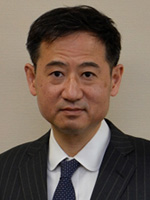
Career:
- Joined Ministry of Posts and Telecommunications (MPT)
2007. Director, Terrestrial Broadcasting Division, Information and Communications Policy Bureau, Ministry of Internal Affairs and Communications (MIC)
2008. Director, Terrestrial Broadcasting Division, Information and Communications Bureau, MIC
2012. Director, Telecommunications Policy Division, Telecommunications Business Department, MIC
- Counselor, Minister’s Secretariat, MIC
- Counselor, Global ICT Strategy Bureau, MIC
2017. Deputy Director-General for IT Strategy, Commerce and Information Policy Bureau, Ministry of Economy, Trade and Industry (METI)
- Deputy Director-General, Information and Communications Bureau, MIC
- Director-General for Policy Coordination
2021. Director-General of the Information and Communications Policy Bureau
- Vice-Minister for Policy Coordination (International Affairs)
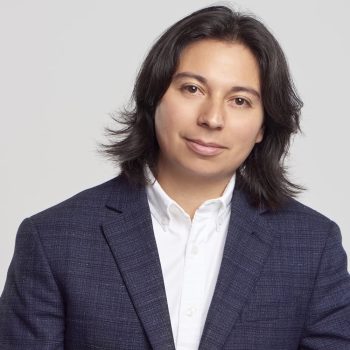
Dr. Alcaide is a neuroscientist, inventor and the CEO and founder of Neurable. As a researcher at the University of Michigan Direct Brain Interface Laboratory, he has worked extensively to develop brain-computer interface technology for people with amputations, severe cerebral palsy and amyotrophic lateral sclerosis. His honors include the National Science Foundation Fellowship, McNair and Ford Foundation Fellowship. Alcaide is a two-time Neuroscience Innovators Award winner, a Rackham Merit Fellow and recognized as Medtech 35 Under 35 and a Zell Lurie Top 20 Entrepreneur. Ramses was named a 2021 Next 1000 member by Forbes magazine as a top 1000 entrepreneur in the world.
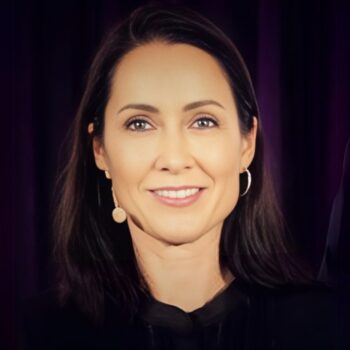
Anja Kaspersen, serving as the Director for Global Markets Development at the IEEE (Institute of Electrical and Electronics Engineers), plays a significant role in the realm of technology and AI systems governance. Her work at IEEE is centered around Frontier Issues and Emerging Spaces, where she focuses on the thoughtful advancement of technology.
As a Senior Fellow at the Carnegie Council for Ethics in International Affairs, Kaspersen co-leads the AI and Equality Initiative. This role is dedicated to fostering a nuanced approach to ethics in technology and AI governance and international affairs, emphasizing the promotion of informed public civic ethics and engaging in meaningful discourse.
Previously, Kaspersen held the position of Director at the United Nations Office for Disarmament Affairs in Geneva and served as the Deputy Secretary-General of the Conference on Disarmament. In these roles, she was pivotal in highlighting the effects of emerging technologies on international security, especially in arms control and non-proliferation dialogues.
Her extensive background includes positions with the United Nations, the European Union, the International Committee of the Red Cross, the World Economic Forum, and a diplomatic career with the Norwegian Government. Her experience in the private sector and academic roles has provided her with deep and varied insights. These experiences have equipped her with a unique blend of diplomatic expertise and proven leadership in complex processes, combining technical knowledge, anthropological curiosity, and political savvy.
Kaspersen also serves on the Standing Committee on Ethical Matters of INTERPOL,is involved with the International Military Council on Climate and Security and is an alumna International Gender Champion.
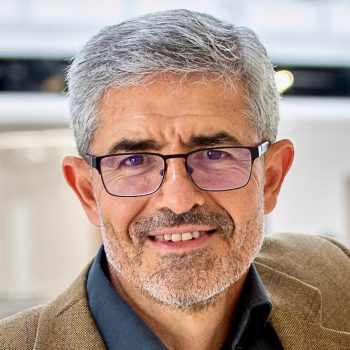
Dr. José del R. Millán is a professor and holds the Carol Cockrell Curran Chair in the Chandra Family Department of Electrical and Computer Engineering at The University of Texas at Austin. He is also a professor in the Department of Neurology at Dell Medical School, professor (by Courtesy) in the Department of Biomedical Engineering, faculty of the Mulva Clinic for the Neurosciences, and member of the Institute for Neuroscience. He is co-director of the UT CARE Initiative and associate director of Texas Robotics.
Dr. Millán received a PhD in computer science from the Technical University of Catalonia, Barcelona, in 1992. Prior to joining UT Austin, he was a research scientist at the Joint Research Centre of the European Commission in Ispra (Italy) and a senior researcher at the Idiap Research Institute in Martigny (Switzerland). Most recently, he was Defitech Foundation Chair in Brain-Machine Interface at the École Polytechnique Fédérale de Lausanne in Switzerland (EPFL).
Dr. Millán has made several seminal contributions to the field of brain-machine interfaces (BMI), especially based on electroencephalogram signals. Most of his achievements revolve around the design of brain-controlled robots. He has received several recognitions for these seminal and pioneering achievements, notably the IEEE-SMC Nobert Wiener Award in 2011, elevation to IEEE Fellow in 2017, and elected Fellow of the International Academy of Medical and Biological Engineering in 2020. In addition to his work on the fundamentals of BMI and design of neuroprosthetics, Dr. Millán is prioritizing the translation of BMI to people who live with motor and cognitive disabilities.

Anka Reuel is a Computer Science Ph.D. Student at Stanford University. Her research focuses on enabling organizations to develop and deploy responsible, socially beneficial AI systems. Most recently, she published an op-ed in The Economist with Gary Marcus, calling for international coordination on AI governance. She is also an advocate for more collaboration between the field of technical AI safety and AI governance and is a founding member of KIRA, an independent German think tank facilitating the discourse across academia, policymakers, and civil society in the field of responsible AI. Anka is a Fellow at the Carnegie Council for Ethics in International Affairs and an incoming Stanford HAI Graduate Fellow

Dr Bilel Jamoussi, a distinguished engineer and diplomat, is the Deputy Director of ITU Telecommunication Standardization Bureau and Chief, Study Groups & Policy Department (SPD) in Geneva, Switzerland.
His primary mission is to establish the international standards essential for ensuring global telecommunications and ICT interoperability, promote universal, meaningful connectivity and champion sustainable digital transformation.
Key achievements under his tenure have been important new standards, ensuring increased industry engagement, bolstering cooperation with other standardization bodies, as well as leading in emerging tech discussions and building strategic partnerships.
Before 2010, he held executive roles, including Director of Standards for Nortel, and contributed to over 90 international standards bodies. With a PhD in Computer Engineering from Pennsylvania State University, he is an IEEE Senior Member and has served on the IEEESA Board of Governors. A key voice in the global ICT arena, he is a regular keynote speaker at events like the Global Cybersecurity Forum and is frequently interviewed by top media outlets.
Fluent in Arabic, French, and English, with knowledge in Spanish and German, Bilel’s global perspective has been shaped by living and working in Tunisia, Canada, the USA, and Switzerland.
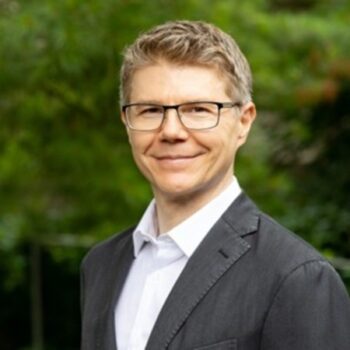
Robert Opp is the Chief Digital Officer of the United Nations Development Programme, the United Nations’ global sustainable development organization working across 170 countries globally. UNDP adopted its second Digital Strategy in 2022, which sets out a vision to create a world in which digital is an empowering force for people and planet. Rob leads the agency’s digital transformation, an organization-wide effort, to accelerate achievement of the Sustainable Development Goals and ensure no one is left behind.
Under his leadership, UNDP’s Chief Digital Office supports more than 120 countries in building open, inclusive and rights-based digital transformations. It also brings expertise, insights and lessons from the country-level to inform global digital policy, to ensure that technologies, including digital public infrastructure and artificial intelligence accelerate sustainable development. Robert also leads UNDP’s own internal digital transformation effort.
Prior to this role, Robert served as Director of the Innovation and Change Management Division within the United Nations World Food Programme (WFP) where he established an in-house ‘Zero Hunger’ innovation accelerator and created an award-winning crowdfunding smartphone app, ShareTheMeal.
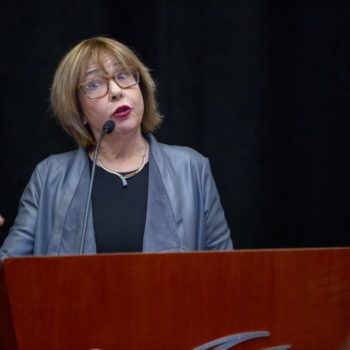
Robin Raskin is a long-time journalist, author, publisher, event producer and advocate for integrating technology into lifestyle. She was one of the early editors of PC Magazine, and one of the first women in technology publishing. Later she founded FamilyPC and helped to create Yahoo!Tech as well as other tech-forward publications. She’s the author of 6 books on kids and technology and appeared regularly on CBS and other networks.
In 2008 she founded Living in Digital Times (LIDT), the producers of a number of conferences and expos at CES (the Consumer Electronics Show) and at conferences and events worldwide. The company’s trademark events include: The Last Gadget Standing, Digital Health Summit, FashionWare, Fitness Tech Summit, Kids@Play Summit, High Tech Retailing, Wearable Tech Summit and others. Raskin successfully sold the company in January 2020 and continues to consult for CTA and other technology clients. Her newest endeavor, the Virtual Events Group, focuses on the newly empowered virtual events industry and how we’ll meet now and in the future. She writes a weekly column about the intersection of technology and the economy for Techonomy.
Raskin plays an active role in high-tech policy issues. She has served on the National Academy of Sciences committee to explore Internet Safety, is a Trustee of the CTA Foundation, and is a director of the Global Industry Council founded under UNESCO. She won a lifetime achievement award from the CTA in 2020.
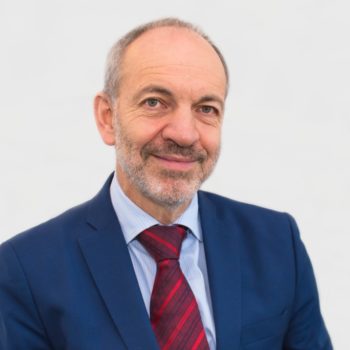
Dr. Reinhard Scholl is former Deputy to the Director of the Telecommunication Standardization Bureau (TSB) since September 2002. Previously he has been with Siemens in Munich, Germany and with ETSI (European Telecommunications Standards Institute). He has also served on the ICANN Board. He received a Ph.D. in physics from the University of Illinois, USA.

Mounir Tabet took up his official functions as Deputy Executive Secretary of the Economic and Social Commission for Western Asia (ESCWA) on 7 September 2018.
Prior to that, Mr. Tabet served as the UNDP Country Director for Iraq (2016-2018), where he oversaw the programme on stabilization and transition.
From 2013 to 2016, Mr. Tabet served as the United Nations and UNDP Resident Coordinator in Tunisia, providing various services to the transition, including electoral support, constitution-making, parliamentary effectiveness and anti-corruption. From 2007 to 2013, Mr. Tabet was the Country Director of UNDP Egypt, where he led United Nations support to development efforts. From 2004 to 2007, Mr. Tabet was the Senior Programme Advisor for the Regional Bureau for Arab States at UNDP in New York. Between 1989 and 2003, Mr Tabet served in a variety of country and headquarter positions with UNDP. Prior to joining UNDP, he worked with the North-South Institute, the International Development Research Centre in Ottawa, and the University of Ottawa.
Mr. Tabet completed an MA in Public Administration at Harvard University. He also holds an MA in Economics from the University of Ottawa.
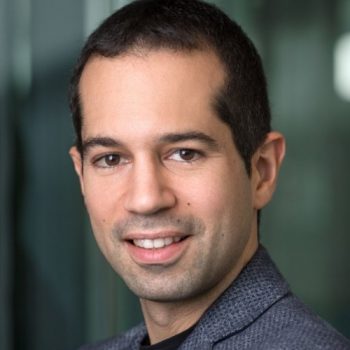
Davide Scaramuzza is a Professor of Robotics and Perception at the University of Zurich. He did his Ph.D. at ETH Zurich, a postdoc at the University of Pennsylvania, and was a visiting professor at Stanford University and NASA Jet Propulsion Laboratory. His research focuses on autonomous, agile navigation of mobile robots using standard and event-based cameras. He made fundamental contributions to visual-inertial state estimation, autonomous vision-based agile navigation of micro flying robots, and low-latency perception with event cameras, which were transferred to many products, from drones to automobiles, cameras, AR/VR headsets, and mobile devices. He pioneered autonomous, vision-based navigation of drones, which inspired the algorithm of the NASA Mars helicopter. In 2022, his team demonstrated that an AI-powered drone could outperform the world champions of drone racing. He received several awards, including a IEEE Technical Field Award, the IEEE Fellowship, the IEEE Robotics and Automation Society Early Career Award, a European Research Council Consolidator Grant, a Google Research Award, and many paper awards. In 2015, he co-founded Zurich-Eye, today Meta Zurich, which developed the head-tracking software of the Meta Quest. In 2020, he co-founded SUIND, which builds autonomous drones for precision agriculture. Many aspects of his research have been featured in the media, such as The New York Times, The Guardian, The Economist, and Forbes. He co-authored the book “Introduction to Autonomous Mobile Robots,” published by MIT Press, which has sold over 10 thousand copies worldwide and is among the most used textbooks for teaching mobile robotics. He has been consulting the United Nations on disaster response, the Fukushima Action Plan, disarmament, and AI for good.
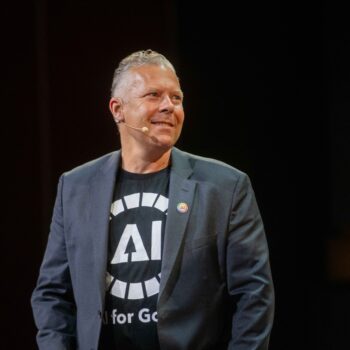
Based in Geneva, Switzerland, Frederic Werner is a recognized leader at the intersection of artificial intelligence, technology, and global development. As the Chief of Strategic Engagement at ITU, the United Nations’ specialized agency for Digital Technologies, and Chief of Strategy and Operations for AI for Good, Frederic drives initiatives that shape the future of AI’s role in solving humanity’s greatest challenges.
Frederic is a co-creator of the United Nations AI for Good Global Summit, a landmark platform connecting AI innovators with real-world problem owners to collectively advance the Sustainable Development Goals (SDGs). Under his stewardship, AI for Good has become a global hub for innovation, collaboration, and actionable solutions, redefining how AI is used for social good.
At ITU, Frederic leads transformative strategic initiatives, driving global collaboration in digital transformation and standards development to address critical challenges. His leadership ensures the organization remains a leader in setting international standards and leveraging AI to advance the SDGs.
Before joining ITU, Frederic held pivotal roles that shaped global ICT collaboration. As Communications & Program Director of ETIS in Brussels, he established a pan-European network of CIOs and cybersecurity leaders. Earlier, as Head of Marketing and Communications at the European Organization for Conformity Assessment, he spearheaded capacity-building projects with the European Commission, strengthening ICT infrastructures in EU candidate countries.
A recognized figure in the AI sphere, Frederic is a regular keynote speaker and panellist at global tech and AI events, such as Davos, Vivatech, SXSW, World AI Festival Cannes, AI Africa Expo, World AI Summit Amsterdam, AWS Reinvent and GITEX to name a few. His insights on AI capacity building, governance and standards have led to numerous interviews and features across international media, books, and podcasts.
Academically, Frederic holds a B.A. in Business & Human Resources Management with a Communications Minor from Vrije Universiteit Brussel, an MBA in International Business from United Business Institutes, a Technical MBA in Telecoms Technology from Informa Telecoms, and a certificate from the MIT Sloan School of Management on AI’s Business Strategy Implications.
Having lived in diverse countries such as Belgium, Senegal, the United Kingdom, the Philippines, Austria, Turkey, Hungary, and Switzerland, Frederic brings a unique and global perspective to his partnerships and collaborations.
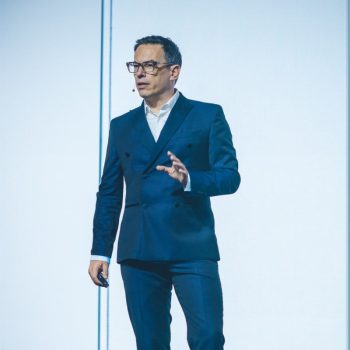
Olivier Oullier, PhD, is the CEO and co-founder (with Paul Barbaste) of Inclusive Brains, a startup developing Multimodal Cognitive AI Agents™️ to power Brain-Computer Interfaces (BCIs) that enable digital and physical environments to adapt in real time to how people feel and who they are, regardless of their physicality, abilities, or special needs.
In partnership with Allianz Trade, Inclusive Brains developed Prometheus BCI, a multimodal AI interface that enabled three non-invasive BCI world premieres in the past 12 months:
- The first mind-controlled torch relay during the Paris 2024 Olympics;
- The first tweet exchange (without any vocal command or physical interaction) with none other than President Macron, live from the stage of the 2024 AI for Good Summit;
- The first-ever parliamentary amendment finalized and sent “hands off” during the AI Action Summit in Paris to the President of the Assemblée Nationatile.
Oullier is also the founder of the Assistive Tech & AI for Inclusion Impact Initiative (AT4i) with fellow Young Global Leaders of the World Economic Forum. Together, they support the funding and execution of impact projects that improve the lives of people with disabilities and special needs.
He serves as Chairman of Biotech Dental Group’s Institute for Artificial Intelligence and is a Visiting Professor of Human-Computer Interaction at the Mohamed Bin Zayed University of Artificial Intelligence (MBZUAI) and Professor of Behavioral & Brain Sciences at Aix-Marseille University.
Oullier’s previous roles include: President of EMOTIV, the global leader in portable brain-sensing solutions; Global Head of Strategy in Health and Healthcare and Executive Committee Member at the World Economic Forum (WEF); Scientific Adviser to the French Prime Minister in charge of the Neuroscience and Public Policy Program.
He has (co-)authored more than 250 scientific, medical, business, and opinion pieces in leading publications including Nature, The New York Times, The Wall Street Journal, and Fortune. He regularly contributes to The National (UAE) and Les Echos (France), and is also the host and producer of the podcast “The Centaurs.”
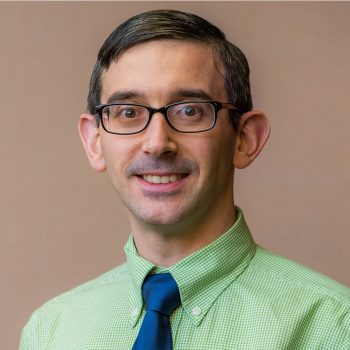
Dr. Rubin is a critical care neurologist at Massachusetts General Hospital and Instructor of Neurology at Harvard Medical School. As a faculty member of the Center for Neurotechnology and Neurorecovery, he conducts research focused on the application of computational neuroscientific principals to clinical problems encountered in clinical neurology to drive the development of novel tools and technologies to improve the outcomes of patients with neurologic injury.
Dr. Rubin received his B.S. from Cornell University and his M.D./Ph.D. from Columbia University College of Physicians and Surgeons. He completed an internship in internal medicine at Brigham and Women’s Hospital and neurology residency and neurocritical care fellowship at Massachusetts General Hospital and Brigham and Women’s Hospital.
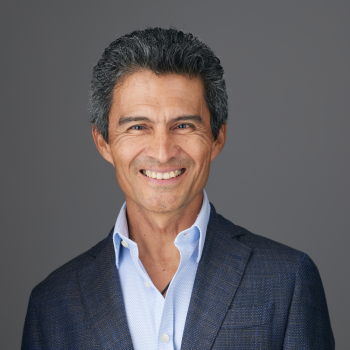
Dr. Jose ‘Pepe’ L Contreras-Vidal is Hugh Roy and Lillie Cranz Cullen Distinguished Professor, director of the U.S. National Science Foundation Industry-University Cooperative Research Center for Building Reliable Advances and Innovations in Neurotechnology (IUCRC BRAIN) at the University of Houston, and an elected Fellow of the IEEE and AIMBE for his pioneering contributions to development of brain-machine interfaces for controlling wearable exoskeletons for rehabilitation, and for mapping art-evoked brain activity. He led the first comprehensive knowledge integration assessment of the global state of clinical trials of implantable brain-computer interfaces (iBCI) published in Nature Reviews Bioengineering. His work at the nexus of art and science is opening new windows to study the neural basis of human creativity while advancing the understanding of the arts as an active neuromodulator of brain function with applications to the development of personalized arts prescriptions. His art-science team received the Chamber Music America’s 2025 Interdisciplinary Collaboration of the Year for “Meeting of Minds”, which was performed at the United Nations’ 2024 AI for Good” Summit in Geneva, Switzerland. Dr. Contreras-Vidal is a member of the National Advisory Board for Medical Rehabilitation Research at the U.S. National Institute of Health. His career development in biomedical engineering was highlighted by the journal Science.
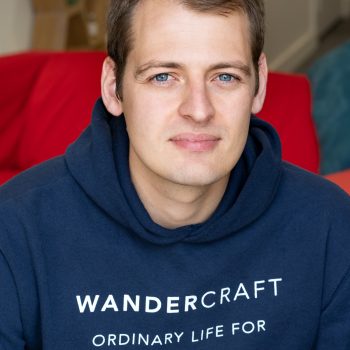
Nicolas Simon founded Wandercraft in 2012, a global leading deep tech company in autonomous walking exoskeletons that designs and markets exoskeleton robots enabling paraplegic individuals to walk again. The company’s mission is to fulfill the promises of walking robotics to assist people with disabilities in regaining their mobility by developing, manufacturing, and marketing autonomous walking exoskeletons.
Their exoskeletons, named Atalante, have been on the market since 2019 and are used in rehabilitation and neurology in Europe and the USA. In 2022, Wandercraft enabled 600 patients to take more than 3 million steps. Wandercraft is also developing a personal version of the exoskeleton for use in urban environments and at home. A graduate of École Polytechnique, Nicolas Simon underwent multidisciplinary scientific training before specializing in electrical engineering. He then completed his education with an MSc in Computer Science, specializing in the field of Artificial Intelligence and learning at Imperial College London.

Dr Robert F Trager is Senior Research Fellow at the Blavatnik School of Government. He is Co-Director of the Oxford Martin AI Governance Initiative, and International Governance Lead at the Centre for the Governance of AI. He is a recognised expert in the international governance of emerging technologies, diplomatic practice, institutional design, and technology regulation. He regularly advises government and industry leaders on these topics.
Dr Trager has written two books and numerous articles in leading social science journals, including the American Political Science Review, International Organization, International Security, Foreign Affairs and many others. His award-winning research has been covered in popular press outlets like the New York Times, Economist, Financial Times, Washington Post, NPR, Fortune, Foreign Policy, and Foreign Affairs. From 2017–2021, he was the Assistant Director for Research of the Burkle Center for International Relations. He was Associate Editor of one of the international relations field’s leading journals, the International Studies Quarterly, and sat on the boards of the Institute for Global Cooperation and Conflict, the Berkeley Risk and Security Lab, and the Burkle Center. Before moving to the University of Oxford, Dr Trager was Professor of Political Science at the University of California, Los Angeles and held faculty positions at Yale University and an Olin Fellowship at Harvard University.

World-renowned musician and BBC TV broadcaster LJ Rich presents on the international technology show, BBC Click. In the last year she’s delivered lines at 75mph from the UK’s tallest thrill ride, performed to a drone in the sea off the Welsh Coast – and learned to rap on camera thanks to a mind-reading AI headset.
LJ’s many innovative projects coupled with a wide knowledge of tech trends bring a unique spark to her professional speaking engagements. A highly accomplished pianist, she uses music to connect the emotional and rational minds of audiences, unlocking creative thinking and solving real-world problems. She believes AI/Machine Learning can be a companion to creativity and regularly uses it to enhance her original works. LJ also loves eating and singing, trains and planes, and solving difficult puzzles.
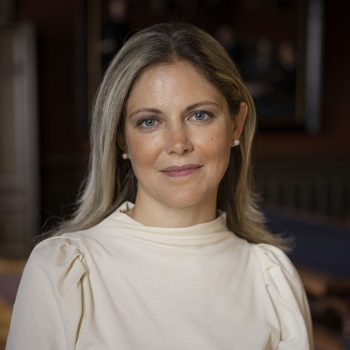
GGinevra Castellano is a Professor in Intelligent Interactive Systems and Director of the Uppsala Social Robotics Lab at the Department of Information Technology of Uppsala University. She is the founder and director of the Uppsala Social Robotics Lab. Her research is in the area of social robotics and human-robot interaction, addressing questions on how we can build human-robot interactions that are ethical and trustworthy, including robot ethics, robot autonomy and human oversight, gender fairness, robot transparency and trust, human-robot relationship formation, both from the perspective of developing computational skills for robotic systems, and their evaluation with human users to study acceptance and social consequences. Castellano has also an interest in governance of AI and robotics and has recently published a paper on a framework for a socio-legal robotics in the International Journal of Social Robotics. She has been / is Principal Investigator of several national and EU-funded projects on ethical and trustworthy human-robot interaction, in application areas spanning education, healthcare, and transportation systems (e.g. automotive and multi-drone systems). She has published over 150 papers on these topics, receiving over 5300 citations. From 2012 to 2016 she was the coordinator of the EU FP7 EMOTE (EMbOdied perceptive Tutors for Empathy-based learning) project, which developed educational robots to support teachers in a classroom environment. Castellano was a General Chair at the ACM International Conference on Intelligent Virtual Agents (IVA) 2017 and the ACM/IEEE Conference on Human-Robot Interaction (HRI) 2023. She was the recipient of the 10-Year Technical Impact Award at the ACM International Conference on Multimodal Interaction 2019 and the Frontiers in Robotics and AI 2021 Outstanding Associate Editor Award. She is an Associate Editor of Frontiers in Robotics and AI and the ACM Transactions on Human-Robot Interaction, and a member of the Board of the Swedish AI Society and the Steering Committee of the ACM/IEEE Conference on Human-Robot Interaction.
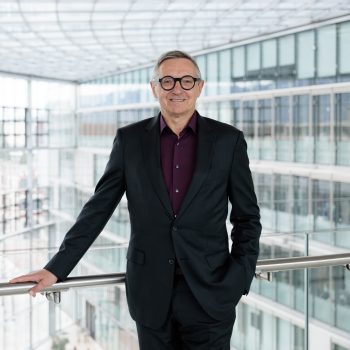
Prof. Dr. med. Erwin Böttinger joined the Wyss Center as Chief Executive Officer (CEO) in April 2023.
Erwin has a longstanding track record in personalized medicine, with emphasis on genomics and digital technologies. Before joining the Wyss Center, he was instrumental in building the Charles Bronfman Institute for Personalized Medicine and the Hasso Plattner Institute for Digital Health at Mount Sinai, at the Icahn School of Medicine at Mount Sinai in New York City, both with a strong translational focus. He was also the principal architect of the Mount Sinai’s BioMe™ Biobank.
Erwin served as founding director of the Digital Health Center at the Hasso Plattner Institute for Digital Engineering and University Potsdam, and as CEO of the Berlin Institute of Health, Berlin, Germany, where he was responsible for BIH’s forward-looking strategy ‘Personalized Medicine – Advanced Therapies’.
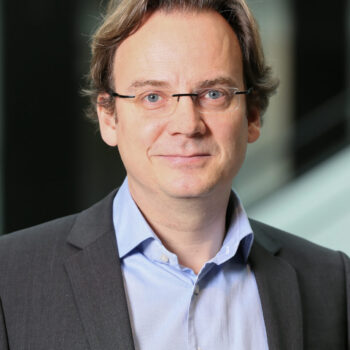
Auke Ijspeert is a professor at EPFL (the Swiss Federal Institute of Technology in Lausanne, Switzerland), IEEE Fellow, and head of the Biorobotics Laboratory (https://www.epfl.ch/labs/biorob). He has a B.Sc./M.Sc. in physics from the EPFL (1995), and a PhD in artificial intelligence from the University of Edinburgh (1999). His research interests are at the intersection between robotics and computational neuroscience. He is interested in using numerical simulations and robots to gain a better understanding of animal locomotion and movement control, and in using inspiration from biology to design novel types of robots and locomotion controllers (see for instance Ijspeert et al, Science, Vol. 315, 2007 and Ijspeert, Science Vol. 346, 2014). He is also interested in assisting persons with limited mobility using exoskeletons and assistive furniture. With his colleagues, he has received paper awards at ICRA2002, CLAWAR2005, IEEE Humanoids 2007, IEEE ROMAN 2014, CLAWAR 2015, and CLAWAR 2019. He is associate editor for the International Journal of Humanoid Robotics and the IEEE Transactions on Medical Robotics and Bionics. He is also a member of the Board of Reviewing Editors of Science magazine.
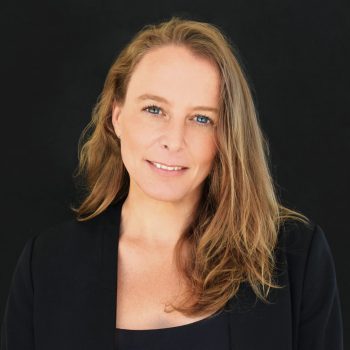
María López Valdés holds a Mathematics degree, a Computer Science Ph.D. from the University of Zaragoza, and an MBA from the IE Business School. She is the CEO and co-founder of Bitbrain, a leading neurotechnology company in the development of advanced brain monitoring equipment and brain-computer interfaces for scientific research and health. In 2023, Bitbrain was awarded Entrepreneurship in Healthcare Technology 2023 by the Innovative Spanish Federation of Healthcare Technology Companies for the application of neurotechnology and AI to the prevention of neurological disorders.
As a strategic leader, María is part of the Board of Management of Ibercaja Banco and the Board of AIITIP Technology Center, an advisory member of the Chamber of Commerce of Zaragoza, and an expert in Netexplo, an international observatory of trends in the digital world.
In addition, she is a regular speaker at forums on innovation, scientific research, and entrepreneurship, and collaborates as a researcher and lecturer at numerous academic institutions such as Imperial College London, the University of Bremen, the Complutense University of Madrid, and IE Business School.
Ranked 5th in the Choiseul Institute’s “100 Economic Leaders for Tomorrow” ranking in Spain, her leadership and innovative vision have earned her more than 20 national and international awards, including the Anita Börg Award from Google and the Ibero-American Innovation Award from the Ibero-American General Secretariat.
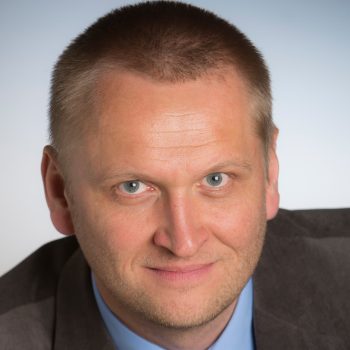
Prof. Dr. Gernot Müller-Putz is head of the Institute of Neural Engineering and its associated Laboratory of Brain-Computer Interfaces. He received his MSc in electrical and biomedical engineering, his PhD in electrical engineering and his habilitation and “venia docendi” in medical informatics from Graz University of Technoloy. Since 2014 he is full professor for semantic data analysis. He interested in brain-computer interface research based on EEG and ECoG, mainly for movement restoration and re-establishing of communication. He has also managed numerouse international projects, mainly funded by EU. Furthermore, he organized and hosted the Graz Brain-Computer Interface Conference over the last two decades in Graz, the next one in preparation for 2024. In 2015, he was awarded with an ERC Consolidator Grant “Feel your Reach” from the European Research Council. In 2017 he received the Ludwig-Guttman Award from the German Medical Spinal Cord Injury Association (DMGP). He is currently member of the Board of Directors of the International Brain-Computer Interface Society, and he is founding member and scientific Co-Director of the NeuroIS Society. Since October 2023, he is Dean of the department for Computer Science and Biomedical Engineering at TU Graz.
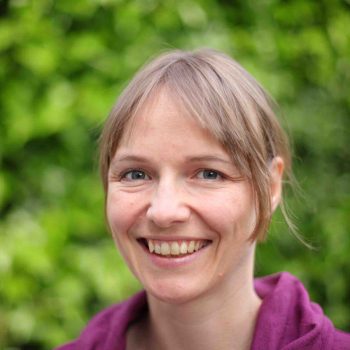
In 2004, Heike Vallery graduated with honors from RWTH Aachen University with a Dipl.-Ing. degree in Mechanical Engineering. Since then, she has been working on robot-assisted rehabilitation and prosthetic legs, in close collaboration with clinicians and partners from industry. In 2009, she earned her Dr.-Ing. from the Technische Universität München and then continued her academic career at ETH Zürich, Khalifa University and TU Delft. Today, she is a full professor at RWTH Aachen and TU Delft, and also holds an honorary professorship at Erasmus MC in Rotterdam. Heike Vallery received numerous fellowships and awards, such as the 1st prize of the euRobotics Technology Transfer Award 2014, and recently an Alexander-von-Humboldt professorship to join RWTH Aachen. Her main research interests are in design and control of minimalistic robotics.
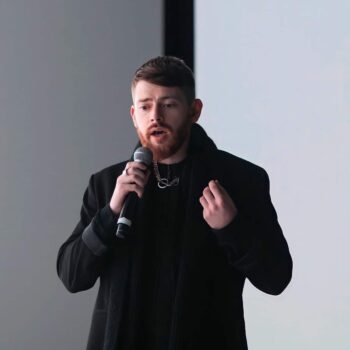
Harry Yeff is a London-born Creative Director and founder of R100 Studios. Yeff has forged a partnership with ITU, seeking out artists who push the boundaries of human and machine collaboration. Specialising in a blend of grassroots emergent curation and strategic insight for global arts and cultural initiatives and institutional collaboration. His research delves into how art, fueled by emergent technologies, can prepare society for present and future opportunities in a new creative and work landscape.
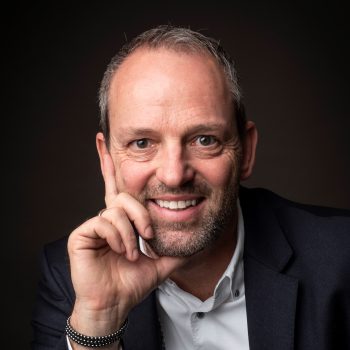
Robert Riener studied Mechanical Engineering at TU München, Germany, and University of Maryland, USA. He received a Dr.-Ing. degree in Engineering from the TU München in 1997. After postdoctoral work from 1998-1999 at the Centro di Bioingegneria, Politecnico di Milano, he returned to TU München, where he completed his Habilitation in the field of Biomechatronics in 2003. In the same year he became assistant professor at ETH Zurich and Spinal Cord Injury Center of the University Hospital Balgrist (“double-professorship”); since 2010 he has been full professor for Sensory-Motor Systems at ETH Zurich, and since 2016 also full professor of medicine at the medical faculty of the University of Zurich. Since 2012, Riener is member of the Department of Health Sciences and Technology, which he was chairing as head 2016 – 2018. He was guest professor at USC Los Angeles and SSSA Pisa, and he still is at SJTU Shanghai. Riener has published more than 500 peer-reviewed journal and conference articles, 36 books and book chapters and filed 26 patents. Riener’s research focuses on the investigation of the sensory-motor interactions between humans and machines including the development of powered prostheses, exoskeletons, and ML approaches applied to neurorehabilitation. Riener is the initiator and organizer of the CYBATHLON, which was honored with the European Excellence Award, the Yahoo Sports Technology Award and two REIMAGINE Education Awards. In 2018 Riener obtained the honorary doctoral degree from the University of Basel. In 2022 Riener became president of the ICORR (International Consortium of Rehabilitation Robotics). Since 2019, Riener is AAAS Leshner Leadership Fellow and since 2023 he is member of the Swiss Academy of Technical Sciences (SATW).
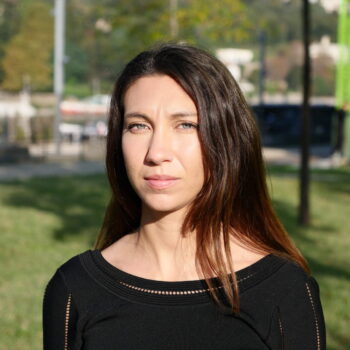
Pascale Davies is a technology reporter, who has a particular focus on European tech and artificial intelligence. She has been working as a journalist for over ten years, and has worked as a journalist for Reuters, Forbes and is currently with Euronews. She is also an official moderator for the United Nations’ AI for Good Summit.
She is interested in how technology impacts society, its possibilities, and how it intertwines with geopolitics. She also has a keen interest in the start-up ecosystem, particularly in France.
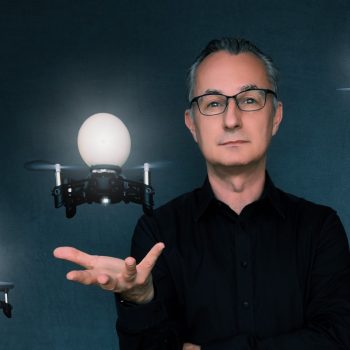
Marco Tempest is a frequent keynote speaker at tech conferences around the world, a Directors Fellow at the MIT Media Lab and a creative consultant at the NASA Jet Propulsion Laboratory. Marco is executive director of the NYC MagicLab, a science consortium exploring illusion and digital technology. Applications include media, marketing, entertainment and the prototyping of future technologies via immersive experiences. Marco is deeply embedded in the tech industry and has regular interactions with product teams in an advisory capacity or as consultant or developer for prototype consumer technologies.
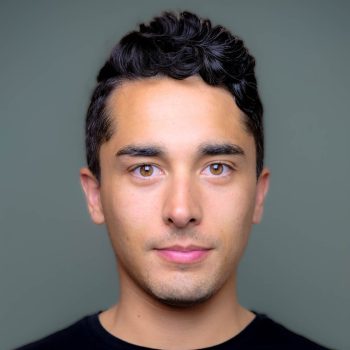
Dr. Sumner L. Norman is a pioneering figure at the nexus of neuroscience, engineering, and impact-driven entrepreneurship. His research in brain-machine interfaces (BMIs) is forging new paths in neurotechnology to transform the lives of those with neurological injuries and diseases. Sumner co-founded Forest Neurotech, a nonprofit focused research organization that is ushering in a new generation of neurotechnology. Forest was founded on the principles of Sumner’s research at Caltech, where he pioneered ultrasound-based BCIs – a high-performance technique that offers a minimally invasive approach to monitoring and stimulating brain-wide function. In addition to research, Sumner has been active in state and federal government advocacy for scientific research, education, and innovation.
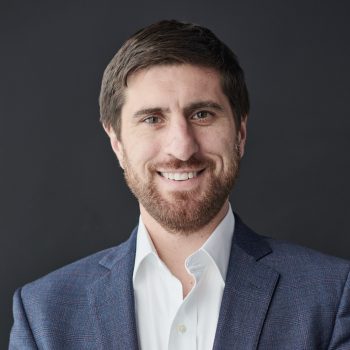
Ryan Field is the CEO of Kernel, a neurotechnology company dedicated to building actionable insights from high-quality brain data. He previously led the Kernel Flow team and served as CTO, overseeing the concept, design, and development of the category-defining Kernel Flow brain imaging system.
Ryan is an inventor with more than 20 granted US patents and a published researcher with over a decade of experience building complex sensing systems. He holds a PhD from Columbia University in Electrical Engineering and previously worked at Intel and Quanergy.
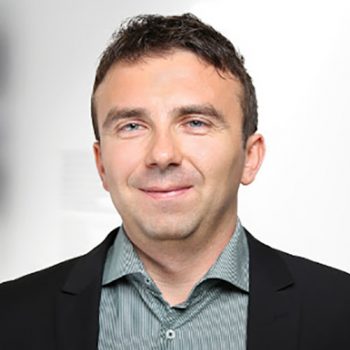
Wojciech Samek is a professor in the Department of Electrical Engineering and Computer Science at the Technical University of Berlin and is jointly heading the Department of Artificial Intelligence at Fraunhofer Heinrich Hertz Institute (HHI), Berlin, Germany.
He studied computer science at Humboldt University of Berlin, Heriot-Watt University and University of Edinburgh and received the Dr. rer. nat. degree with distinction (summa cum laude) from the Technical University of Berlin in 2014.
During his studies he was awarded scholarships from the German Academic Scholarship Foundation and the DFG Research Training Group GRK 1589/1, and was a visiting researcher at NASA Ames Research Center, Mountain View, USA. Dr. Samek is associated faculty at the BIFOLD – Berlin Institute for the Foundation of Learning and Data, the ELLIS Unit Berlin and the DFG Graduate School BIOQIC, and member of the scientific advisory board of IDEAS NCBR. Furthermore, he is a senior editor of IEEE TNNLS, an editorial board member of PLoS ONE and Pattern Recognition, and an elected member of the IEEE MLSP Technical Committee. He is recipient of multiple best paper awards, including the 2020 Pattern Recognition Best Paper Award, and part of the expert group developing the ISO/IEC MPEG-17 NNR standard. He is the leading editor of the Springer book “Explainable AI: Interpreting, Explaining and Visualizing Deep Learning” (2019), co-editor of the open access Springer book “xxAI – Beyond explainable AI” (2022), and organizer of various special sessions, workshops and tutorials on topics such as explainable AI, neural network compression, and federated learning.
Dr. Samek has co-authored more than 150 peer-reviewed journal and conference papers; some of them listed by Thomson Reuters as “Highly Cited Papers” (i.e., top 1%) in the field of Engineering.

Prof. Dr. Philipp Hacker, LL.M. (Yale), holds the Chair for Law and Ethics of the Digital Society at the European New School of Digital Studies (ENS) at European University Viadrina Frankfurt (Oder). Prior to joining ENS, he served as an AXA Postdoctoral Fellow at the Faculty of Law of Humboldt University of Berlin; a Max Weber Fellow at the European University Institute, and an A.SK Fellow at WZB Berlin Social Science Center. His research focuses on the intersection of law and technology. In particular, he analyzes the impact of tracking technologies, AI, and the IoT on consumer, privacy, and anti-discrimination law. He often cooperates with computer scientists and mathematicians, especially on questions of explainable AI and algorithmic fairness.

Professor Sarah Hammer is Executive Director at the Wharton School of the University of Pennsylvania, leading financial technology initiatives as well as Wharton Cypher Accelerator, which supports leading global businesses that are leveraging financial technology. Hammer is also Adjunct Professor at the University of Pennsylvania Law School. Hammer is also Affiliated Scholar at the Penn Program on Regulation.
Previously, Hammer was Managing Director of the Center for Innovation in Finance and Senior Director of the Alternative Investments Program at Wharton. Hammer also led the launch of the University of Pennsylvania’s first digital asset, unique 3D intellectual property that memorializes the invention of the mRNA technology which enabled the COVID-19 vaccines.
Hammer is also a board member of the International Telecommunications Union (ITU) at the United Nations. The ITU is the UN specialized agency responsible for information and communication technology. She is also an advisor at the World Economic Forum, the Dubai International Finance Centre, and the Digital Dollar Project for Central Bank Digital Currency.
Previously, Hammer was Acting Secretary of the Department of Banking and Securities for Pennsylvania, having led the Department through the banking crisis of March 2023. The Department regulates and supervises ~290,000 bank and non-bank financial entities, totaling $3.5 trillion in AUM.
Hammer was also previously Acting Deputy Assistant Secretary for Financial Institutions and Director of the Office of Financial Institutions Policy at the US Department of the Treasury. In this role, she led the Department’s policy responsibilities involving financial institutions, as well as oversaw the Federal Insurance Office and the Office of Critical Infrastructure Protection and Compliance Policy (cybersecurity).
While at U.S. Treasury, Hammer also led the cross-functional team conducting a full review and report on the financial regulatory framework. Hammer also served on the board of the Securities Investor Protection Corporation (SIPC) and assisted the U.S. Treasury Secretary in fulfilling responsibilities on the board of the Pension Benefit Guaranty Corporation (PBGC).
Hammer has held various leadership positions throughout financial services in general management, portfolio management, trading, marketing, research, and analytics at the Vanguard Group, PIMCO, JP Morgan Chase, BlackRock, and Tudor Investments.
Hammer earned a J.D. from the University of Pennsylvania Law School, an M.B.A. from the Wharton School, and a Master of Studies from Oxford University.

Degree with honours in Physics, PhD in Geodesy and Cartography. She is Professor of “GIS” and “The Copernicus Green Revolution for sustainable development” at Politecnico di Milano (PoliMI) and a member of the School of Doctoral Studies in Data Science at “Roma La Sapienza” University. From 2006 to 2011 she lectured GIS at the ETH of Zurich and from 1997 to 2011 she was the Head of the Geomatics Laboratory of PoliMI (Campus Como). From 2011 to 2016 she was the Vice-Rector of PoliMI for the Como Campus. Currently, she is the coordinator of the Copernicus Academy Network for the PoliMI and the Head of the GEOLab, the Interdepartmental Lab to which 7 Departments of POLIMI are contributing.
She is Vice President of the ISPRS Technical Commission on Spatial Information Science, a former member of ESA ACEO (Advisory Committee of Earth Observation); co-chair of the United Nations Open GIS Initiative, chair of the UN-GGIM (Global Geospatial Information Management) Academic Network, mentor of the PoliMI Chapter of YouthMappers (PoliMappers), one of the three curators of the geospatial series of the AI for Good, organized by ITU in partnership with 40 UN Sister Agencies.
Her research activity is in the field of geomatics. Her interests have been various, starting from geodesy, radar-altimetry and moving later to GIS, webGIS, geospatial web platform, VGI, Citizen Science, Big Geo Data, geoAI. She is participating and leading research on these topics within the frameworks of both national and international projects and scientific networks. One of her main interests is in Open-Source GIS, where she plays a leading worldwide role.
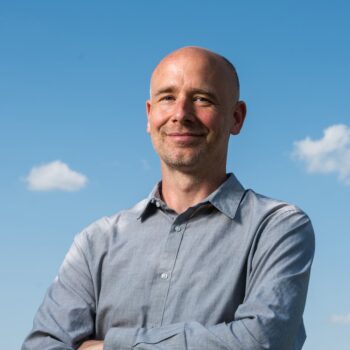
Philip Stier is Professor of Atmospheric Physics and Head of Atmospheric, Oceanic and Planetary Physics in the Department of Physics at the University of Oxford. He also heads the Climate Processes Group and serves on the steering group of the Oxford Climate Research Network.
Philip’s research addresses physical climate processes in the context of anthropogenic perturbations to the earth system as the underlying cause of climate change and air pollution. His key interests lie in aerosol and cloud physics, their interactions and their role in the climate system. Aerosols are small liquid or solid particles suspended in air of both anthropogenic and natural origin. Cloud droplets form on aerosol particles, so man-made changes in aerosol (precursor) emissions also affect the physics of clouds.
He is also Principal Investigator for a European Research Council project on the highly uncertain effects of aerosols on precipitation, and he leads the new Marie Skłodowska-Curie Innovative Training Network iMIRACLI, which brings together leading climate and machine learning scientists from academia and industry across Europe to educate a new generation of climate data scientists.
Philip is passionate about the power of interdisciplinary approaches to address complex questions around the causes and impacts of climate change. Through the Climate Processes Group, Phillip combines work on global climate models, earth observations from satellites and surface and aircraft based in-situ measurements, as well as detailed process models with theory to improve our understanding of the climate system.

Markus Reichstein is Director at the Max-Planck-Institute for Biogeochemistry, and Professor for Global Ecology at the University of Jena. He is founding co-director of the ELLIS (www.ellis.eu) program “Machine Learning for Earth and Climate Science” and the recently established ELLIS Unit Jena (www.ellis-jena.ai) within the Michael-Stifel-Center Jena for Data-driven and Simulation Science Jena. and member of the German National Committee Future Earth for Sustainability research. He has been serving as lead author for the IPCC, as member of the German Committee Future Earth on Sustainability Research, and the Thuringian Panel on Climate for advising the state on climate protection and adaptation.
Markus’s main research interests revolve around the response and feedback of ecosystems (vegetation and soils) to climatic variability with an Earth system perspective. Of specific interest is the interplay of climate extremes with ecosystem and societal resilience. He is addressing these topics with a combination of artificial intelligence and classical modelling approaches to exploit the wealth of experimental, ground- and satellite-based Earth observations together with theoretical knowledge. Recent awards for his research include the Piers J. Sellers Mid-Career Award by the American Geophysical Union (2018), and the Gottfried Wilhelm Leibniz Preis by the German Science Foundation (2020).
He is also Principal Investigator in the European Research Council Synergy Grant USMILE dedicated to the development and application of machine learning for a better Earth system understanding and modelling. Furthermore, Markus is chairing the Global Research Program and Knowledge-Action Network “Emergent Risks and Extreme Events – Reducing Disaster Risks under Environmental Change” (www.risk-kan.org).
Markus is excited about linking system thinking with data-driven science and artificial intelligence for understanding complex systems, such as the climate-environmental-societal system and believes that such approaches can help societies become more resilient and sustainable.
A recent Perspective highlights how artificial intelligence can support climate science by enhancing process understanding and improving predictions across scales (Reichstein et al., 2025: https://www.nature.com/articles/s41467-025-57640-w ).
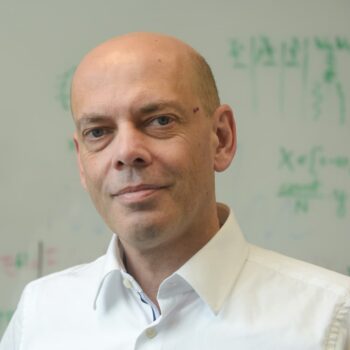
Joachim Denzler is a full Professor of Computer Vision at the University of Jena. He has been the founding Director of the Michael-Stifel-Center Jena for Data-driven and Simulation Science and recently established the ELLIS Unit Jena (www.ellis-jena.ai) as well as the Director of the Institute of Data Science of the German Aerospace Center (DLR). Joachim’s main research interests revolve around the analysis, prediction and understanding of complex dynamical systems, including applications from medicine, psychology and earth system sciences. Fine-grained object classification, active learning and causal inference for time-series analysis are of particular interest. He addresses these topics with the development and application of machine learning methods, including deep learning, and aspects from explainable AI. Joachim is a member of the board of the Thuringia Center for Learning Systems and Robotics (www.tzlr.de) with the mission to transfer research results from AI to industry. Joachim is excited about the potential of using applications as drivers for basic research, especially to contribute to our society’s urgent and pressing problems, like climate change and biodiversity loss.
Joachim published more than 500 papers at international conferences and journals with around 10000 citations and an h-index of 45, according to google scholar. He is a PC member and reviewer of major conferences (NeurIPS, ICCV, ECCV, CVPR, ICLR) and Journals (IEEE TPAMI, IJCV, etc.). His group consists of 15 PhD students and receives funding from the German Research Foundation (DFG), Federal Ministry of Science (BMBF), and EU, as well as from industrial projects. He is a member of IEEE and IEEE Computer Society.
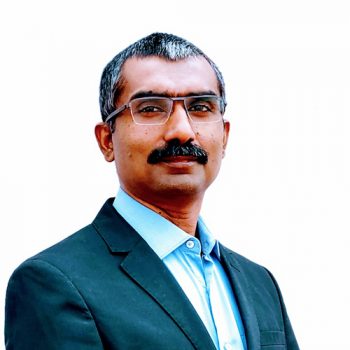
Vishnu has hands-on experience in the field of Telecom industry for more than 25 years, developing and implementing standards, and holds many international granted patents.
Vishnu currently works as an independent consultant, is a Vice Chair of ITU Focus Group on Autonomous Networks and the co-convener of ITU Correspondence Group on datasets. Previously, he was a co-editor of ITU-T Focus Group specifications on Machine learning in 5G.
His current passion includes coordinating standards initiatives, industry bodies, open source and academia, mentoring student projects and coordinating the ITU “AI/ML in 5G“ Challenge across the globe. He also curates and moderates webinars under the ITU Machine learning 5G webinar series and AI for Good.
Vishnu was nominated as Scientific Advisory Board Associate (SABA) member of Motorola Networks and is a senior member of IEEE. He holds a Masters degree in Computer Science and Engineering from Indian Institute of Technology, Delhi.
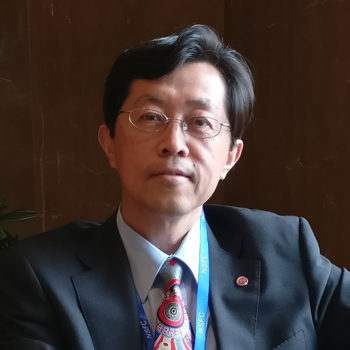
Lihui Wang is a Professor and Chair of Sustainable Manufacturing at KTH, Sweden. He is also the Director of Centre of Excellence in Production Research (XPRES) – one of the five national strategic research centres at KTH. He has served as the President (2020-2021) of North American Manufacturing Research Institution (NAMRI) of Society of Manufacturing Engineers (SME), and the Chairman (2018-2020) of Swedish Production Academy. In 2020, he was elected one of the 20 Most Influential Professors in Smart Manufacturing by Society of Manufacturing Engineers.
He received his PhD and MSc from Kobe University (Japan) in 1993 and 1990, respectively, and BSc in China in 1982. He was an Assistant Professor of Kobe University and Toyohashi University of Technology (Japan) prior to joining National Research Council of Canada (NRC) in 1998, where he was a Senior Research Scientist before moving to Sweden in 2008. His research interests are presently focused on real-time monitoring and control, human-robot collaboration, brain robotics, digital twin, cyber-physical and sustainable production systems. His research work has won one Best Poster Award in Switzerland (2003), four Best Paper Awards in Germany (2002), USA (2016), Serbia (2020) and Sweden (2020), and two Outstanding Paper Awards in Mexico (2008) and USA (2016). In 2021, he received the Best Paper Award of Journal of Manufacturing Systems. He is also an eight-time winner of NRC Institute Awards on Excellence and Leadership in R&D, Multidisciplinary Collaborative Research, Global Reach, and Outstanding People.
Professor Wang has published 10 books, 15 conference proceedings and 32 journal special issues. He has authored or co-authored in excess of 600 scientific articles in archival journals, books, and peer-reviewed conference proceedings in the above research areas. In addition to the research work, he is actively engaged in various committee and community activities. He was the Conference Chair of FAIM 2004 and CIRP CMS 2018, a member of Grant Selection Committee (GSC-20 for Industrial Engineering) of Natural Sciences and Engineering Research Council of Canada (2004-2007), the Chair of the Scientific Committee of NAMRI/SME during 2016-2018, and a member of Technical Committee 282 (Machinery Safety) of Swedish Standards Institute (2014-2017). He is the Editor-in-Chief of International Journal of Manufacturing Research, Editor-in-Chief of Journal of Manufacturing Systems, Editor-in-Chief of Robotics and Computer-Integrated Manufacturing, Editor of Journal of Intelligent Manufacturing (2007-2019), Associate Editor of International Journal of Production Research, and an Editorial Board Member of other 17 international journals. He is also a Fellow of The Canadian Academy of Engineering (CAE), a Fellow of The International Academy for Production Engineering (CIRP), a Fellow of SME, a Fellow of ASME, and a registered Professional Engineer in Canada.

Chris Albon is the Director of Machine Learning at the Wikimedia Foundation. Before that, Chris was the Director of Data Science in three previous roles and founded Yonder AI. He has worked in mission-driven technology companies and nonprofits for over ten years, including disaster relief, healthcare, humanitarian aid, anti-corruption, conservation, and free knowledge. Chris has a Ph.D. in quantitative political science from the University of California, Davis.
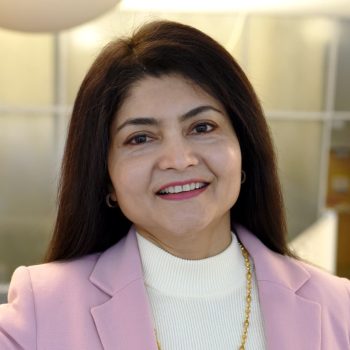
Dr. Khan is actively engaged in advancing the emerging field of NeuroRobotics through her research endeavors. Her work entails a creative fusion of neuroscience, robotics, and engineering, with a particular focus on human-robot interactions, autonomous behaviors, and intelligent sensor systems. This multidisciplinary approach leverages her expertise in computer science and engineering, complemented by her commitment to healthcare and patient well-being. Notably, her research holds great promise for addressing persistent issues related to chronic neurodegenerative conditions, such as dementia and elderly care.
Recognized for her contributions, Dr. Khan has earned the Research Initiative in Bioinformatics award, Scholarly and Creative Activity Award and has successfully secured research funding totaling $3,545,436. And is a nationally and internationally recognized speaker having given 37 invited talks in the last year and a half. Her current groundbreaking research is centered on the deployment of humanoid robots in nursing homes, with the aim of enhancing the quality of life for residents in these facilities. Through a collaboration with Monarch Healthcare Management, 16 robots are placed at eight nursing homes across Minnesota to assist nurses and staff with care of residents who have mild, intermediate and late stages of dementia and Alzheimer’s disease. This research has been featured in many media avenues including, Forbes, MPR, FOX, PBS documentary NOVA, CBS evening News by Norah O’ Donnel, NY Times , NPR , Science Times, Daily Mail- UK news, Yahoo Finance, IOT World Today, Axios News, PBS North documentary “In This Place”, ACM News, Star Tribune, Canada Bay Today etc.
Furthermore, Dr. Khan is deeply passionate about empowering women in the field of computing. She serves as the chair of the Women in Computing committee for the Swenson College of Science and Engineering and has secured grants amounting to $1,345,422 to support her initiatives aimed at fostering inclusivity and a sense of belonging for women in computer science. These funds are dedicated to human resource development in STEM, with a particular focus on addressing gender disparities.
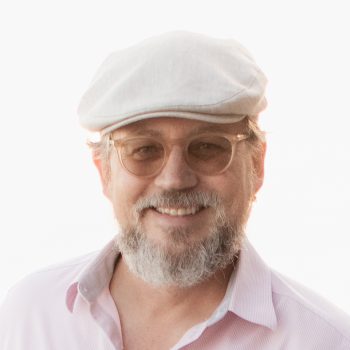
Andreas is the Founder & CEO of Cognixion, the Assisted Reality company based in Santa Barbara, California and Toronto, Ontario. Cognixion ONE is a brain-computer interface that is integrated with an augmented reality display. It has wide ranging implications as foundational technology for a future metaverse where our mind and body are immersed into the user experience. Their primary focus is ensuring that the future of AR is universally accessible with the help of biological sensors and intuitive user interfaces and designed to assist millions of people with complex disabilities using their face, eyes and now brain as a direct control interface for mobile and AR, and is addressing the needs of a half billion people worldwide with physical and communication challenges. Cognixion is recognized as a top 21 neurotech startup to watch, recently received FDA Breakthrough Device designation, won the prestigious Red Dot Best of the Best Award for AR/VR and nominated for the Red Dot Luminary Award (top 5 products in the world), the Gold Edison Award and Singularity Global Grand Challenge, plus over 25 international patents.
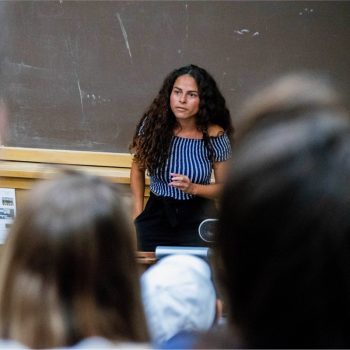
Sage Lenier is an activist working to build an education system that enables the next gen to become climate solutionists. She got her start teaching her own program at UC Berkeley, which broke records for largest-ever student-led class. Her work has been featured in The New York Times, The World Economic Forum, and Teen Vogue, and has brought her to speak at public forums around the world. TIME Magazine named her a 2023 Next Generation Leader for her work with Sustainable & Just Future.
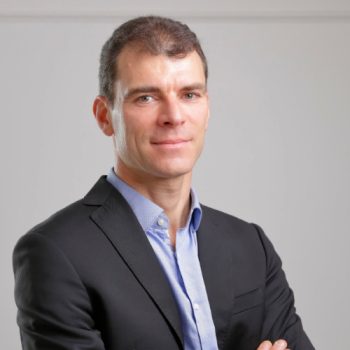
Born in 1975, Georges graduated with a master’s degree and a PhD degree in Quantum Physics from the group of Philippe Grangier, which is now headed by Antoine Browaeys. He pioneered the technology that is now at the heart of Pasqal, being the very first to demonstrate the control of single atom with optical tweezers. He then moved to industry, where he developed high tech products in fields as diverse as biotechnology, defense or semiconductors. He worked for 14 years as a project manager, bringing photonic technologies to the market. He developed high-resolution fluorescence imagers for biotech, thermal camera and sight for the defense industry, and contact-less sensors for the control of silicon wafers. In his last position he was leading a team of 10 engineers and PhDs in charge of developing the new products and technologies of Unity SC. His experience was accumulated both in Startup/SME and in big corporates (Safran Group with more than 70000 employees). He is the author of 9 patents.
In 2018, resuming his thesis work, he worked on the creation of the first French hardware company dedicated to quantum computing. He co-founded Pasqal in March 2019, with the vision to leverage the technology developed at Institut d’Optique in Palaiseau (France) for more than 10 years to build quantum processors based on neutral atoms ordered in large 2D arrays.
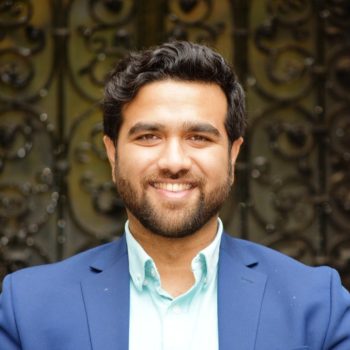
Saurabh Bhaskar Shaw is a translational neuroscientist focused on using machine learning and artificial intelligence (AI) to better understand the brain, and to develop cheap and accessible neurotechnologies to improve diagnosis and treatment of mental health disorders, such as PTSD and ADHD. He has a PhD in Neuroscience, a Master’s degree and a Bachelor’s degree in Electrical and Biomedical Engineering from McMaster University. He has also completed a postdoctoral fellowship in the Department of Psychiatry at Western University and recently was a Senior Data Scientist with the neurotech company Cognixion Inc. He has founded PropelFocus with the intention of using AI to improve the everyday lives of those living with ADHD. His passion for the advancement of the neurotechnology community and more widespread neuroscience education has led him to found the Hamilton chapter of NeuroTechX, with the objective of unifying interdisciplinary researchers, industry partners and clinicians with a common interest in applying neurotechnologies to improve health outcomes. He is currently an Adjunct Research Professor at Western University and leads industry relations at NeuroTechX for the NeuroTech Micro-credential Program partnership with Queen’s University.
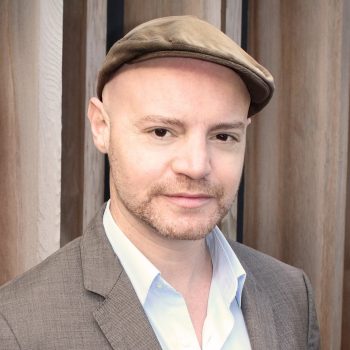
Sid Kouider is a Neuroscientist and Director of Research & Engineering at Snap. Previously, Sid was the founder and CEO of NextMind, a neural interface spin-off from his Paris Lab at École Normale Supérieure. His startup NextMind was recently acquired by Snap. Sid was previously working on brain imaging and neural decoding of perception in humans, and his work now focuses entirely on the development of non-invasive brain-computer interfaces. Nextmind’s technology utilizes a wearable electroencephalogram to detect and read neural activity in the cortex. Mind-controlled interfaces of this nature are particularly well-suited for augmented reality applications.
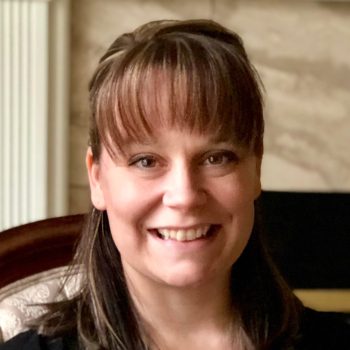
Sherrie Caltagirone is the founder and executive director of Global Emancipation Network (GEN), a leading data analytics and intelligence nonprofit dedicated to countering human trafficking and child exploitation. She brings two decades of counter-trafficking experience with significant experience in international partnerships, legislation, and tool development. Sherrie serves as a distinguished research scholar at North Carolina State University, leads several international working groups on trafficking and child exploitation, and has served as an expert witness in pivotal litigation in the field. Caltagirone is driven by research on the use of data analytics and AI/ML models to combat trafficking, measuring criminal economies, and ethical technology and research designs. She received her degree in international relations summa cum laude from American University.
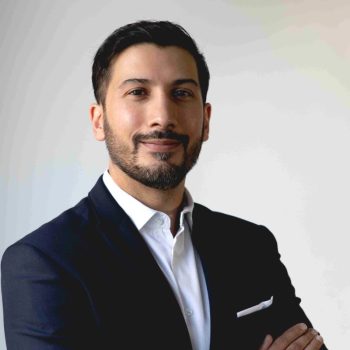
15 years Senior Executive in Europe & Middle East. Leading sales, strategy, commercial management, partnering & business development across technology sector – contributing 6X revenue growth over last 4 years.
Currently Board Member & commercialization advisor in two Fintech/ Metaverse AI start-ups: Fictive Reality (Sweden) – AI Training in the Metaverse (www.fictivereality.com/) & Deephound (UK) an AI based due diligence company (deephound.co/). Led pre-series/ series A fund-raising rounds (5+MUSD) and GTM launch strategy
Advisor to boutique VC & largest crowd-funding platform in MEA – evaluating 100+ startups in terms of GTM & ROI
Awarded Global Sales Professional of the Year 2020 for large 5G break-in deal in UAE (2021). Proven consultative methodology, led & sold contracts of over 1BUSD.
Created innovative customized offerings e.g. pioneering the global first 2G to 4G launch (saving the client 300MUSD in license fees) & the first satellite Core/ Cloud transformation project (new 2 year 54+ dedicated resource project)
Former Executive Advisory Board member to Ericsson Global CEO Hans Vestberg (now CEO Verizon). Helped launch an algorithmic trading startup in the City of London. Former Foresight Analyst at the United Nations
Proven track record in selling/ delivering on customer in Digital Transformation (including a 220,000 Man-day mega project) 5G break-in deals, Cloud and Core, OSS/ BSS, AI/ IOT Enterprise solutions and kickstart of Metaverse projects
Key skills: Negotiation, Business Development, financial analysis P&L ownership, communication handling, customer resolution management, market analysis, creative thinking/ offerings, collaborations & partnerships, presentation/ cloud based solutioning, IT/network transformations, enterprise solutions offerings (End to End)- getting the right deal done.
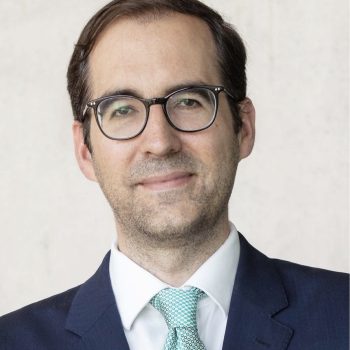
Olivier Lambercy is Adjunct Professor and the co-Director of the Rehabilitation Engineering Laboratory at ETH Zurich in Switzerland. He obtained the PhD degree from the National University of Singapore in 2009. His research focuses on the development and clinical application of technological solutions to improve upper limb assessment, therapy and assistance after neurological injuries, with a specific interest on robotic tools to support hand function. He is a board member of the International Consortium for Rehabilitation Robotics, a member and principal investigator at the Singapore-ETH Center as part of the Future Health Technologies program, and serves as Associate Editor for the Journal of Neuroengineering and Rehabilitation since 2017.
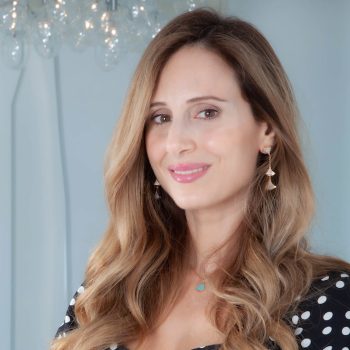
Yalda Aoukar is the Co-Founder and Managing Partner of Bracket Capital, a leading private markets investor based in Los Angeles. Yalda is also the President of Bracket Foundation, the philanthropic venture arm of Bracket Capital. She is a fierce advocate of technology for social good especially as it relates to solving the world’s most pressing global challenges. In 2019, Bracket Foundation issued a leading publication on how Artificial Intelligence can combat online child sexual exploitation and abuse. The publication was presented on the sidelines of the United Nations General Assembly that same year and resulted in a multi-year partnership with UNICRI (the United Nations Interregional Crime and Justice Research Institute). In 2022, Bracket Foundation published the sequel to its initial whitepaper which explores the dangers and vulnerabilities on children of the Metaverse and Online Social Gaming Platforms. The paper prompted Big Tech companies to review their user experience practices to make sure their products were safer by design for children and teens. Yalda is a champion for women’s empowerment and entrepreneurship in Venture Capital and other financial sectors, where women are traditionally underrepresented. In addition to investing in leading technology companies, she serves as an adviser to governments and policy makers on digital development in diverse fields such as Biotech, Food Security, Artificial Intelligence Integration and Education Technology. She sits on the board of the United Nation’s AI for Safer Children Initiative, as well as the World Innovation Summit for Education (WISE) Accelerator. Yalda holds a Master in Public Policy (MPP) from the Harvard Kennedy School of Government. Yalda spends her time between London, Los Angeles and the Middle East with her husband and three children.

Lance Pierce is the CEO of NetHope. NetHope is a consortium of nearly 60 leading global nonprofits representing 60% of the world’s international aid delivered through NGOs annually, united with major technology companies and funding institutions to design, fund, implement, adapt, and scale innovative approaches to solve some of the world’s most complex humanitarian, development, and conservation challenges. Over his career Lance has been a strategic advisor and executive with companies and non-profits; building new ventures and partnerships for sustainable investing, climate, corporate responsibility, international development, and policy. Lance’s NGO executive roles include President of CDP North America, the world’s largest platform for investors, corporations and cities to share data, manage performance and build action programs on climate change, energy, water, forests and supply chains, and Executive Director/Chief Operating Officer of leading sustainability organization, Ceres, where he oversaw policy and strategic planning, launched signature program initiatives and co-founded the $22 trillion Global Investor Coalition. In CSR and corporate public affairs, he served Director, Corporate Issues Management for former Fortune 11 food and consumer goods company, Altria Group, focused on human rights, marketplace issues and economic impact in supply chains. Lance has been a consultant and advisor to global consumer brands, leading NGOs and UN agencies on strategic program development and South-South cooperation. He is a Senior Program Fellow at the Harvard Corporate Responsibility Initiative and Executive Advisor at the Boston College Center for Corporate Citizenship, Senior Advisor in the Sustainable Finance Cluster at the University of Maryland Center for Global Sustainability, board member of Swiss international development organization, Helvetas, and former Track Advisor to the Clinton Global Initiative. Lance has been a speaker at The White House, high level industry and investor conferences, the UN climate negotiations and has appeared in global media including CNN, Fox, Wall St Journal, New York Times, CNBC, Fast Company, Forbes, and others.

Irakli Beridze, PhD, is the Head of the Centre for Artificial Intelligence and Robotics at UNICRI, United Nations. More than 25 years of experience in leading multilateral negotiations, developing stakeholder engagement programmes with governments, UN agencies, international organisations, private industry and corporations, think tanks, civil society, foundations, academia, and other partners on an international level. Mr Beridze is advising governments and international organizations on numerous issues related to international security, scientific and technological developments, emerging technologies, innovation and disruptive potential of new technologies, particularly on the issue on crime prevention, criminal justice and security. He is supporting governments worldwide on the strategies, action plans, roadmaps and policy papers on AI. Since 2014, Initiated and managed one of the first United Nations Programmes on AI. Finding synergies with traditional threats and risks as well as identifying solutions that AI can contribute to the achievement of the United Nations Sustainable Development Goals. He is a member of various international task forces, including the World Economic Forum’s Global Artificial Intelligence and Global Future Council, the United Nations AI Inter Agency Task Force, the High-Level Expert Group on Artificial Intelligence of the European Commission. He is frequently lecturing and speaking on the subjects related to technological development, exponential technologies, artificial intelligence and robotics and international security. He has numerous publications in international journals and magazines and frequently quoted in media on the issues related to AI. Irakli Beridze is an International Gender Champion supporting the IGC Panel Parity Pledge. He is recipient of recognition on the awarding of the Nobel Peace Prize to the OPCW in 2013.

Baroness Joanna Shields OBE is a tech industry veteran, parliamentarian, and passionate advocate for responsible technology that benefits humanity. With over three decades of experience, she has built companies, products, and platforms that have transformed markets and reshaped industries. She has held executive roles at tech giants Facebook, Google, Aol and RealNetworks, where she scaled operations globally and delivered exponential growth in revenue and users. As a startup CEO, Joanna led Bebo and Veon to successful acquisitions and transformed BenevolentAI into a leader in AI drug discovery. Currently, as the founder of Precognition, she advises government and business leaders on AI solutions for a better future.
Joanna has served in government as the UK Minister for Internet Safety & Security, Digital Economy Adviser to the Prime Minister, UK Ambassador for Digital Industries, and Chair/CEO of TechCityUK. She is a life peer in the House of Lords and a leading global advocate for the protection of children online. She founded the WeProtect Global Alliance in 2014, which today has over 100 member countries working to combat online sexual abuse and child exploitation.
Baroness Shields has also served on various private, public, and charitable sector boards, including as Chair of the TechCity Investment Corporation and non-executive board member of the London Stock Exchange Group and Save the Children UK.
An influential voice on responsible AI, Joanna serves on the World Economic Forum’s Global Future Council on AI and the Transatlantic Commission on Election Integrity and was twice elected Co-Chair of the Global Partnership on Artificial Intelligence (GPAI). The uniting theme of her work today is advancing safe and responsible AI development for the benefit of all in society.

Caitlin Kraft-Buchman is CEO/Founder Women at the Table – a gender equality & systems change think tank based in Switzerland. She is Co-Founder/Leader A+ Alliance for Inclusive Algorithms – a global coalition ensuring a world where machine learning does not wire already biased systems into our future. A+ Alliance is a leader of the UN’s Generation Equality Action Coalition for Technology & Innovation for Gender Equality.
Caitlin leads the AI & Equality: Human Rights Toolbox initiative – a global multidisciplinary community that works for a human rights-based approach to AI development. She is co-founder of the International Gender Champions – with hubs in Geneva, New York, Vienna, Nairobi, The Hague & Paris which brings together female & male heads of organizations, including the UN Secretary-General, to break down gender barriers. She serves on the IGC Global Board. She also serves as Civil Society lead for the World Benchmarking Alliance’s Collective Impact Coalition for Digital Inclusion, and on the Strategic Board of the French government’s Laboratory for Women’s Rights Online. She was a founding member of the team that conceived and drafted UNECE’s Gender-Responsive Standards Initiative in 2018.
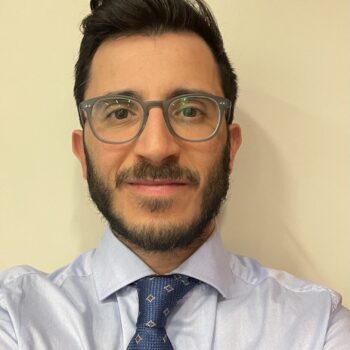
Dr Matteo Barbarino is currently the lead fusion scientist at the International Atomic Energy Agency (IAEA). He is also responsible for the Agency’s cooperation in the area of fusion energy with ITER, PPPL and ASIPP and around AI with ITU. Matteo works for the IAEA since 2017. Before joining the Agency, he worked at laser fusion laboratories in the USA and in Europe.
Matteo is the technical adviser for the International Group of Legal Experts on Fusion Energy (FELEX) and a member of the ITPA Coordinating Committee, the IEA Fusion Power Coordinating Committee, the CICLOP Group, and the UN HLCP InterAgency Working Group on AI (IAWG-AI).
Matteo holds a PhD and MSc in Physics from Texas A&M University and a BSc in Electrical Engineering from University of Catania.
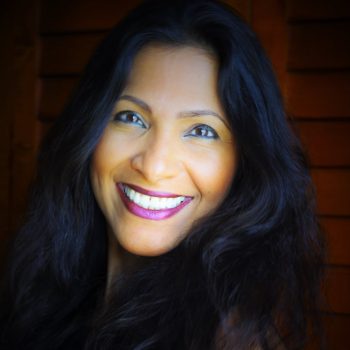
Mia Shah-Dand is a social entrepreneur, technologist, and educator who advises large organizations on the responsible adoption of new and emerging technologies. She is the CEO of Lighthouse3 tech advisory group, founder of Women in AI Ethics™, and creator of “100 Brilliant Women in AI Ethics™” list. Mia is known for her leadership on gender equality and equity in tech as well as her advocacy for inclusion of diverse ethical perspectives in AI design and development. Mia is on the Carnegie Council’s Artificial Intelligence & Equality Initiative Board of Advisors and Anita Borg Social Impact Abie Award Selection Committee. Her work has been featured in Forbes, BBC, and Politico.

Mike supervises the UK OCCIT (Online CSEA Covert Intelligence Team). The team have a responsibility for identifying emerging threats, trends and technologies, and assessing them for their likely impact on child safety. The team provide insights into areas such as the evolution of the AI risk, offender use of technology, impact of AI/VR on offender pathways, and the changing online environment.

Thomas Schneider is Ambassador and Director of International Affairs at the Swiss Federal Office of Communications (OFCOM) in the Federal Department of the Environment, Transport, Energy and Communications (DETEC). He is a long-standing expert in digital governance and in the governance of the information and knowledge society and artificial intelligence. He is leading the Swiss delegation in various key international fora in these fields.
Since 2003, he has been coordinating the Swiss activities with regard to the implementation and follow-up of the UN World Summit on the Information Society (WSIS). From 2014-2017, he was the chair of ICANN’s Governmental Advisory Committee (GAC) and in this role negotiated the compromise among governments regarding the “IANA Stewardship transition”, the biggest reform in the ICANN system. He was responsible for the organization of the 12th UN Internet Governance Forum (IGF) in Geneva in December 2017 on behalf of the Swiss government and co-chair of the IGF’s Multistakeholder Advisory Group in 2017. Since 2020, he is vice-chair of the OECD’s Committee for Digital Economy Policy, and vice-chair of the Council of Europe’s Steering Committee on Media and Information Society (CDMSI) – which he chaired from 2018-2019 – and a member of the bureau of the CoE’s Ad Hoc Committee on Artificial Intelligence (CAHAI). He is the president of the EuroDIG Support Association (since 2012). He has been participating in the meetings of the UN Secretary General’s High Level Panel on Digital Cooperation, as personal advisor of former Swiss president, Ms. Doris Leuthard (2018-2019).

Ambassador Ernst Noorman has a long career within the Ministry of Foreign Affairs, as well as within other ministries. Before taking up his new position as Ambassador at Large for Cyber Affairs one and a half month ago, he has served the past 13 years as ambassador for the Kingdom of the Netherlands in Burkina Faso, Suriname, Afghanistan, and Colombia respectively.
Before that he worked amongst others at the Ministry of Finance in the Euroteam, responsible for the introduction of the euro in the Netherlands, and for the Ministry of Home Affairs and Kingdom Relations, where he was responsible for the financial negotiations leading to the constitutional changes of the Caribbean part of the Kingdom of the Netherlands.
As a junior diplomat he has served in India and Tanzania.
Ambassador Noorman obtained his master’s degree in economics at the University of Amsterdam, the city where he was born and presently is living with his wife.
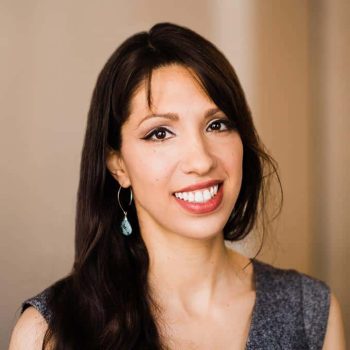
Emilia Javorsky MD, MPH is the Director of the Futures Program at The Future of Life Institute, where she leads work on imagining and architecting futures that realize benefits of emerging technology, while mitigating risks. By training Emilia is a physician-scientist and entrepreneur working on the invention, development, and translation of medical technologies. She is also a scientist and mentor at the Wyss Institute at Harvard. She has authored over a dozen publications and is an inventor on several patents. Previously she was a Fulbright-Schuman scholar to the European Union, Young Pioneer of the World Frontiers Forum, Forbes 30 Under 30, Global Shaper of the World Economic Forum. She is passionate about ensuring that emerging technologies are deployed safely, ethically, and for the betterment of humanity.

His Excellency Mr. Jürg Lauber is Permanent Representative of Switzerland to the United Nations and other Organizations in Geneva. Prior to this appointment in September 2020, Ambassador Lauber served as Permanent Representative of Switzerland to the United Nations in New York since 2015, During this time, he also served as President of the Burundi Configuration of the Peacebuilding Commission. Previously, he was Deputy Permanent Representative of Switzerland to the United Nations Office at Geneva from 2009 to 2011, and Permanent Representative of Switzerland to the Conference on Disarmament.
Before joining the Federal Department of Foreign Affairs in 1993 he worked in peacekeeping missions in Namibia (UNTAG) and Korea (Panmunjom). Between 2007 and 2009 he served as chef de cabinet to the president of the International Criminal Court in The Hague, Netherlands. Between 2011 and 2015 he served as head of the United Nations and International Organizations Division in Bern. Jürg Lauber has a law degree from the University of Zurich.
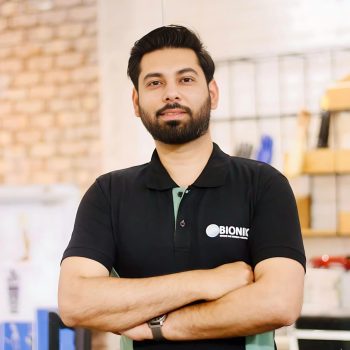
Anas Niaz, Co-Founder & CVO of Bioniks, a leader in AI-driven bionic limbs. Visionary entrepreneur empowering over 600 individuals globally. Entrepreneurial journey began in 2015 , when he launched Viscous.co, a product designing and development company. Realising the burden of disability and vision to create a better and inclusive society he founded Bioniks in 2016. He is recognized in Forbes 30 under 30 , Award-winner in The Startup Gen and GITEX GLOBAL and in Forbes, Saudi Gazette, Deutsche Welle, and Futurism.
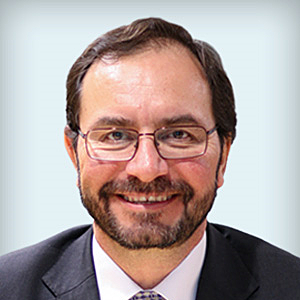
Sergio Mujica started out as ISO Secretary-General in 2017. ISO is a leading international organization in standardization with a membership of about 165 national standards bodies. ISO standards support global trade, drive inclusive and equitable economic growth, advance innovation and promote health and safety to achieve a sustainable future. Under Sergio’s leadership, ISO approved a new Strategy 2030, which is fully aligned with the United Nations Sustainable Development Goals, with a vision of “making lives easier, safer and better”.
Combining his experience as Deputy Secretary-General at the World Customs Organization in Brussels from 2010 to 2017 and several leadership positions in the government of Chile, Sergio has unique global perspectives of international trade and sustainability. He is a tireless advocate for International Standards as ways of reducing barriers and fully realizing the role of international trade in growing economies.
Sergio is fully committed to integrity, transparency and the highest ethics across every part of ISO, as well as to gender equality. As an International Gender Champion, he is a member of a leadership network that brings together female and male decision-makers determined to break down gender barriers and make gender equality a working reality in their spheres of influence.
Sergio obtained his law degree at the Pontificia Universidad Católica de Chile and completed his master’s in international law at the American University in Washington D.C. (USA).
In 2021, the ISO Council reappointed Sergio as Secretary-General for a second five-year term (until July 2027).

A research and scientific leader in Artificial Intelligence, Alessandra is the Sr. Director of AI and Data Science at Shutterstock. Alessandra has over 18 years’ experience in research and innovation gained whilst working in academic and commercial environments. Alessandra is passionate in advanced analytics, machine learning, and computational models with the focus of transferring innovation from research to products.
As Co-chair of the UNESCO Women for Ethical AI Platform and Global President of Women in AI (a non-profit do-tank working towards gender-inclusive AI that benefits global society) Alessandra is working with a strong community of women to foster diversity , inclusion and equality for women and minorities while encouraging a global ethical approach in AI. In an advisory capacity, Alessandra also serves as the Governance Committee Chair at the Science Foundation Ireland Center for Research Training in Machine Learning.
Among several awards, Alessandra won the 2024 Grace Hopper and the 2021 XV International Prize “Le Tecno-visionarie” in the AI - Industrial Research category. In her previous role Alessandra was Head of Analytics Research at Nokia Bell Labs where she was leading research teams in several locations while driving changes across different activities like her contributions to the Nokia AI Ethics Advisory Board.
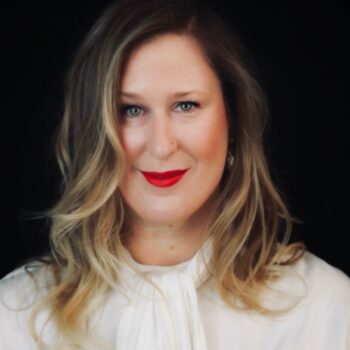
Sasha Rubel is Head of Public Policy for Generative AI at Amazon Web Services (AWS) for Europe, Middle East, and Africa. She previously led UNESCO’s work on AI and digital innovation for over 12 years, including as representative to the European Commission, G7, OECD, African Union, Economic Commission for Africa, and Sahel on these matters. Sasha is involved in international AI governance initiatives as a founding member of the Global Partnership on AI, member of the OECD AI Network of Experts, and member of Ireland’s AI Advisory Council. Franco-American with a large part of her life spent in Africa, she brings people together across countries, disciplines, and sectors to use technology to change their lives and the world for the better. She advises governments, companies, non-profits, and change-makers on how to unlock the potential of AI and data for the good of people and the planet through policies, partnerships, and capacity building. A former student of the Ecole Normale Superieure in Paris, Sasha received the Public Diplomacy Innovation Prize from the White House under President Obama, and undertook a PHD on responsible AI and the social impact of new technologies.
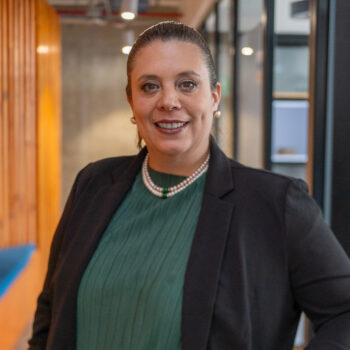
Lina María Duque Del Vecchio holds a Law degree from the Pontificia Universidad Javeriana, with a specialization in Business Law and a Master’s degree in Law from the Universidad Externado de Colombia.
She has held several positions at the Communications Regulation Commission (CRC), including Executive Director, Coordinator of Legal Advisory and Dispute Resolution, Acting Executive Coordinator (General Secretariat), Acting Commissioner for the Communications Session, and Legal Advisor.
As Coordinator of Dispute Resolution, she led sensitive and high-impact matters in the industry, contributing significantly to the effective implementation of regulatory policies—particularly those aimed at fostering competition and safeguarding user rights. Her outstanding performance resulted in the CRC being recognized by the National Agency for Legal Defense of the State (ANDJE) as one of the entities with the highest judicial defense success rate, achieving 95% effectiveness.

Javier Juárez Mojica has been Commissioner of the Federal Telecommunications Institute (IFT) since October 2016 and acting chairman since March 2022. He is an honorary member of the Commission on Ethics in Scientific Knowledge and Technology (COMEST) of the United Nations Educational, Scientific and Cultural Organization (UNESCO), has been member of the OECD Expert Group on Artificial Intelligence (AIGO), former Vice-chair of the Working Party on Communication Infrastructures and Services Policy (CISP) at the OECD (2019-2021), former president of the Technical Committee on 5G networks deployment in Mexico, and currently serves as chair of the Small Operators Committee.
Commissioner Juárez has devoted a professional career of more than 15 years to the study of telecommunications and to the promotion of innovation and competition in this sector. He has participated in conferences and lectures on interconnection, community and indigenous networks, local loop unbundling, virtual mobile operators, Internet of Things, Artificial Intelligence (A.I.), cybersecurity, and digital transformation, among others.
Author of the books Mi Neighbor is a Robot (Penguin Random House 2022) and The Future of Computing in Mexico: Proposals from the Mexican Academy of Computing (2018), as well as of several articles and book chapters on telecommunications regulation (2007) and the challenges of living with A.I.

Dr. Aminu Maida is the Executive Vice Chairman and Chief Executive Officer of the Nigerian Communications Commission (NCC). He was appointed into office on the 11th of October 2023 by President Bola Ahmed Tinubu GCFR.
Dr. Maida is a highly accomplished technology executive with extensive experience spanning across the telecommunication and payments industries. Throughout his illustrious career, Dr. Maida has consistently demonstrated his expertise in leading cutting-edge innovations, managing cross-functional teams, and driving growth for businesses in competitive markets.
With a solid academic background, Dr. Maida holds a Ph.D. in Electrical & Electronic Engineering from Bath University, UK, a Masters in Engineering in Information Systems Engineering from Imperial College London, as well as a Post Graduate Diploma in Entrepreneurship from Cambridge Judge Business School. His educational credentials have played an instrumental role in shaping his ability to tackle complex technical challenges and devise robust, future-proof strategies.
Throughout his career, Dr. Aminu Maida has successfully managed teams of engineers, developers, and researchers, fostering a collaborative and innovative work environment. His expertise in strategic planning, business development, technology transformation, and project management have contributed significantly to the growth and expansion of the companies he has worked with.
Prior to his appointment as the Executive Vice Chairman/ CEO of the NCC, Dr. Maida was the Executive Director, Technology and Operations at the Nigeria Inter-Bank Settlement Systems PLC (NIBSS) where he oversaw the day-to-day activities of the entire operations and IT infrastructure of NIBSS. Prior to this role he was the Chief Technology Officer at ARCA Payments Network, a Nigerian based FinTech, and before then he worked with the British Telecoms as a Lead Consultant as well as with Cisco Systems UK.
Dr. Maida’s technical prowess is further evidenced by the numerous patents he holds to his name in the areas of wireless communication and self-organizing networks.
He is an active participant in industry conferences and forums, where he shares his insights and experience with fellow professionals. He is committed to the ongoing advancement of technology in the telecommunication and payments sectors, mentoring young professionals, and contributing to research that shapes the future of these industries.

Mr Dick Christophe NG SUI WA was appointed Chairperson of the Information and Technologies Authority (ICT Authority) in February 2020. He has been a practising Barrister since 1991, is partner in the legal firm De Castelnau-Sui Wa and has extensive experience as a legal adviser and advocate.
He holds an LLB Honours from the University of London, United Kingdom; was called to the Bar at the Honourable Society of the Inner Temple, United Kingdom after succeeding in the Bar Professional Qualification of the Council of Legal Education. He also obtained a Diploma from the United Nations Research Institute, Geneva and a Certificate in Good Governance from the Commonwealth Association for Corporate Governance. In 2021, he completed his Master of Business Administration in Innovation and Leadership, University of Mauritius with Merit, as part of a programme delivered in collaboration with Ducere Global Business School, Australia.
Mr Ng Sui Wa has occupied high-level positions in several state institutions. He is currently a Board Member of the Independent Broadcasting Authority. From May 2018 to October 2019, Mr Ng Sui Wa served as Commissioner of the newly constituted Independent Police Complaints Commission as appointed by the President of the Republic of Mauritius. Mr Ng Sui Wa has also served as Chairman of the Board of Directors of the Trust Fund for Specialised Medical Care, the specialised health unit of the Cardiac Surgery and Neurosurgery Hospital where he was tasked with reforming the centre. At another juncture in his illustrious career, Mr Ng Sui Wa served as Chairman of the Mauritius Film Development Corporation (MFDC) by the Cabinet of Ministers and was given the responsibilities of developing the MFDC’s economic activities. Mr Ng Sui Wa was also Chairman of the Institute for Corporate Governance (Mauritius) in 2003-2004.
Mr Ng Sui Wa has been providing the leadership to enable the ICT Authority to meet the complex challenges of regulation in an age of ICT convergence and rapid technological advancements. Under his Chairmanship, he has ensured that ICT regulation plays its role as a nexus for sector transformation. His vision is to promote Mauritius as a strategic leader for ICT regulation in Africa. In a short span of time, the Authority has enhanced its international cooperation and signed agreements with its counterparts including regulators in India, France, Congo Brazzaville and Comoros.
Mr. Ng Sui Wa has been actively participating in a number of international forums including the Commonwealth Telecommunication Organisation where he steered Mauritius to Executive Committee membership. The ICTA Chairperson has also represented the Authority as one of the the high level speakers on the panel at the World Summit on Information Society (WSIS) Forum 2023. He was a panel member and speaker at the International Institute of Communication’s International Regulator’s Forum. Mr. Ng Sui Wa was also the Head of Delegation for Mauritius at the World Radiocommunication Conference 2023 in Dubai.
Bridging the Digital divide has been high on the agenda of the Authority under the Chairmanship of Mr Ng Sui Wa. Universal Service Fund projects implemented include the provision of 234 Free WiFi Zones across Mauritius as well as the setting up of a satellite link between Mauritius and Agalega, an island which is a dependency of the Republic of Mauritius. Since 2020, donations of ICT equipment have been made to non-governmental organisations (NGOs). The NGOs include those whose areas of work focus on the empowerment and rehabilitation into society of the former inmates and those specializing in the support to families of children with special needs. The ICT equipment (laptops, computers) donations form part of a policy of sustainable partnership between the Authority and civil society organisations. This partnership is a tangible contribution towards the goal of leaving no one behind (LNOB), the overarching promise in the 2030 Agenda of the United Nations Sustainable Development Goals (SDGs).

Dr. Mercedes Aramendía is the President of the Communications Services Regulatory Unit (URSEC) and the National Council of Innovation, Science and Technology (CONICYT) of Uruguay.
She holds a PhD in Legal Sciences from the University of Granada (with distinction cum laude), Spain; LLM in Law, Technology and Entrepreneurship from Cornell University Law School (Cornell Tech), United States; MBA from the EAE Business School, and Master in Business Management, Administration and Organization from the Camilo José Cela University, Spain; Lawyer and Master in Economic Administrative Law from the University of Montevideo, Uruguay.
She is the Professor and Director of the Postgraduate Course in Digital Transformation and Law at the University of Montevideo.

Dr.Sarana Boonbaichaiyapruck currently serves as the chairman of National Broadcasting & Telecommunications Commissioner of Thailand. He has a strong background as a cardiologist in Academic Medicine. His most recent post was the deputy dean at Ramathibodi Hospital, Mahidol University. Sarana was born and raised in Bangkok. He went to Assumption College for secondary school. He got his medical degree from Chulalongkorn University. After medical school he enrolled in the Residency Training in Internal Medicine at LA county/USC medical center and Fellowship in Cardiology at Kaiser Parmanente Hospital, both of which were in Los Angles. He got additional years of training in interventional cardiology at the Hospital of the Good Samaritan Los Angeles. He returned to Thailand in 1993 and has established cardiac intervention services at Ramathibodi Hospital where he has worked until April 2022. He has a passion in teaching medicine and challenging young physicians, from students to fellows, is part of his art. He worked his way up in Academia and proudly received his Clinical Professorship in 2018. Apart from medicine and cardiology he was selected to enact new and revise old laws at the National legislative Assembly. Because of his experience in Science, Legislation and in consumer protection such as medical device suitability and his study work on hospital expenses he was picked by the selection committee to be NBTC commissioner and later received the royal endorsement to be NBTC Chairman.

Karishma is a graduate student in public policy at Cambridge University. She previously studied cognitive science at the University of California, Irvine. As a college student, she developed one of the top entries (“Promoting Empathy-based AI”) during the National Science Foundation’s open call for future scientific directions and was featured for being among the youngest to advance in the competition shaping U.S. science over the next decade. Her research focuses on empathy in the context of emerging technologies.
Karishma was named Young Innovator to Watch at CES 2018 and is the youngest on record to earn the best abstract in Artificial Intelligence at Pediatrics 2040 for her medical innovation combining emojis, AI, and Brain-Computer Interface to help paralyzed patients communicate. In 2019, Karishma was selected to join an international cohort as one of five DLF Fellows from North America committed to solving global challenges. Through the unique campus scholarship and leadership program, she founded a campus organization (The Patient Project) and published a book on the medical humanities. The Patient Project reimagines patience for patients — to alleviate the wait in healthcare. Compassion in action, she launched wellness programs to address elder isolation and led the university initiative to promote altruism through handcrafted letters.
She is a national Phi Beta Kappa Key into Public Service Scholar, Barnes and Noble College Scholar, and a recipient of the Strauss Scholarship for Public Service. At 15, she founded a nonprofit for neuroscience outreach, advocated for a city-wide proclamation of Brain Week, and was featured at the international Brain Health Fair.
Her work has been featured in Forbes, Science Magazine, Mission Magazine, OC Register, and the Huffington Post. A Forbes profile described her as “an innovator and champion of AI for societal good.” As the youngest main-stage speaker at UN AI for Good Global Summit 2023, she currently leads an initiative at the UN sourcing global perspectives on AI and establishing a standard for public consultation in AI policymaking. At Cambridge, she was selected for a placement at the UK Department of Science, Innovation, and Technology (DSIT). Karishma is dedicated to merging commitments to innovation, technology policy, and health to shape the future of AI.
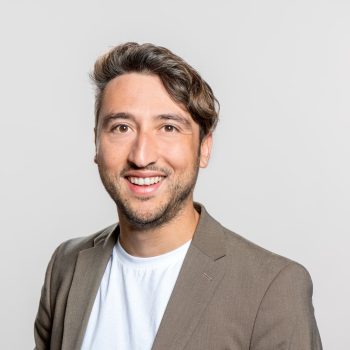
Marcello Ienca is the inaugural Professor of Artificial Intelligence Ethics and Neuroscience and the Deputy Director of the Center for Ethics and History of Medicine at the Medical School of the Technical University of Munich (TUM). He is also the Head of the Intelligent Systems Group at the Swiss Federal Institute of Technology in Lausanne (EPFL). His research spans a broad interdisciplinary terrain but focuses primarily on the science and ethics of intelligent systems of both biological and artificial nature. In addition, Ienca works actively in science and technology policy, serving as a commissioned expert or rapporteur for organizations such as the OECD, the Council of Europe, the UN and the EU Parliament. His articles have been published in journals such as Nature Medicine, Nature Biotechnology, Nature Machine Intelligence and covered by media outlets such as The New Yorker, The Times, The Guardian, BBC etc. Ienca is a board member of the International Neuroethics Society and the Neuroethics Lead of the International Brain Initiative.
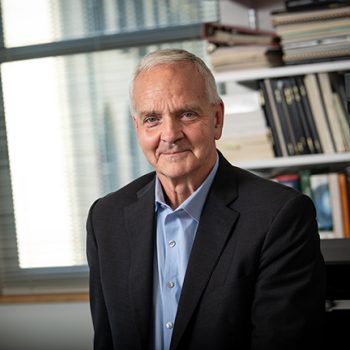
Martial Hebert became dean of Carnegie Mellon University’s world-renowned School of Computer Science in August 2019. A leading researcher in computer vision and robotics, he’s the sixth dean to lead the school since its inception in 1988.
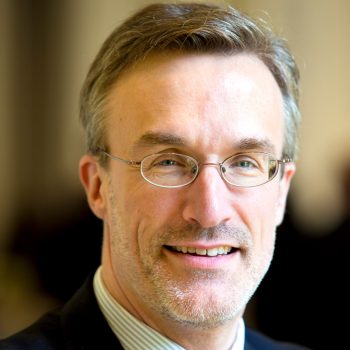
Cary Coglianese specializes in the study of administrative law and regulatory processes, with an emphasis on the empirical evaluation of alternative processes and strategies and the role of public participation, technology, and business-government relations in policymaking.
The author of more than 300 articles, book chapters, reports, and essays, Coglianese’s most recent book projects have included: Achieving Regulatory Excellence; Does Regulation Kill Jobs?; Regulatory Breakdown: The Crisis of Confidence in U.S. Regulation; Import Safety: Regulatory Governance in the Global Economy; and Regulation and Regulatory Processes. He has also recently written on climate change policy, public participation and transparency in federal rulemaking, the use of artificial intelligence by government agencies, voluntary environmental programs, and role of waivers and exemptions in regulatory law.
The founding director of the Penn Program on Regulation, he previously served as Penn Carey Law’s Deputy Dean for Academic Affairs. Prior to joining the Penn faculty, Coglianese spent a dozen years on the faculty at Harvard University’s John F. Kennedy School of Government where he taught courses in environmental policy, policy analysis, and research methods, founded and chaired the school’s Regulatory Policy Program, and was an affiliated scholar at the Harvard Law School. He has served as a visiting law professor at Stanford University and Vanderbilt University.
A Senior Fellow of the Administrative Conference of the United States (ACUS), a federal agency that develops recommendations for improving the administrative aspects of government, Coglianese has also served as a Public Member and the Chair of ACUS’s Rulemaking Committee. He has served as the chair and co-chair of several committees of the American Bar Association’s Section on Administrative Law and Regulatory Policy as well as a member of the Section’s governing Council.
At Penn, he teaches courses in administrative law, environmental law, regulatory law and policy, and policy analysis. The chair of Penn Carey Law’s Government Service and Public Affairs Initiative, he is a faculty affiliate of Penn’s Kleinman Center for Energy Policy and the Quattrone Center for the Fair Administration of Justice. In addition, he serves as the faculty director for Penn Carey Law’s executive education program on regulatory analysis and decision-making and teaches periodically in the Wharton School’s executive education program.
He is an elected member of the American Law Institute and the National Academy of Public Administration. He also founded the Law & Society Association’s international collaborative research network on regulatory governance, served as a founding editor of the international peer-reviewed journal Regulation & Governance, and created and now advises the daily production of The Regulatory Review, a global online publication covering issues of administrative and regulatory law and policy. He was also the creator and host of the podcast series, Race and Regulation, which focused on ways that regulation contributes to racial injustice as well as on how just regulatory policies can serve to combat inequalities in society.
In 2023, he was selected to serve as a member of an independent peer review panel providing feedback to the Office of Management and Budget on proposed revisions to its Circular A-4 on regulatory analysis. He has also served as the chair of a National Academy of Sciences committee that spent 17 months studying the implications for law and regulation of emerging trends in the maritime sector. He has previously served as a member of other Academy committees on performance-based regulation and on ways to improve federal inspections of offshore oil and gas development. He has also served on an Aspen Institute panel on energy governance, co-chaired an expert task force on water affordability issues for the American Water Works Association, and chaired a task force on transparency and public participation in rulemaking for the nonprofit organization OMB Watch. He has provided research and advice on various regulatory issues to the Alberta Energy Regulator (Canada), Environment Canada, the U.S. Department of Transportation, the U.S. Environmental Protection Agency, and the Organization of Economic Cooperation and Development (OECD).
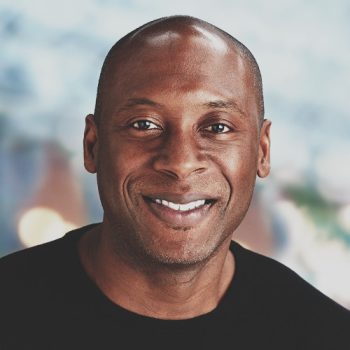
As Vice President of the Data Ethics Practice at SAS, I lead a global effort to build a better, more equitable future through fair, sustainable applications of data, artificial intelligence, and associated technologies. I believe that when organizations prioritize ethical data practices, we help mitigate harm to vulnerable populations and drive important human-centered innovations that improve our world.
Over the years, I’ve had the privilege to lead multiple teams that deliver proven, data-driven results across sectors. Whether advising marketing and sales alignment strategies or leading customer success through machine learning and artificial intelligence solutions in the health and life sciences industries, I help organizations make smarter decisions to achieve better business outcomes – and even save lives.
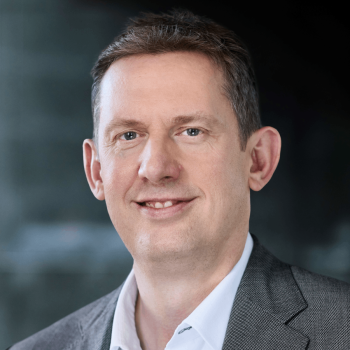
Prof. Dr. Christian Wolfrum has been Full Professor for Translational Nutrition Biology at the Institute of Food, Nutrition and Health at the ETH Zurich since January 2017.
Christian was born on July 17, 1972 in Bonn, Germany and studied Chemistry at the Westfälische Wilhelms Universität Münster, Germany. After his graduation, he spent six years as a postdoctoral fellow in the laboratory of Prof. Markus Stoffel at the Rockefeller University in New York, USA. In 2007 he moved to the ETH Zurich and in 2008 he was appointed Assistant Professor for Obesity Research. His research focuses on elucidating the molecular mechanisms underlying the altered adipocyte differentiation and maturation associated with obesity and other metabolic disorders.
Christian Wolfrum received several honors, including the H.P. Kaufmann Award (2000), the Young Investigators Award by the EFSTL (2004), the Starting Independent Researcher Grant from the ERC (2008) and the Rössler Award (2014).
Since 2023 he is Vice President for Research and a member of the Executive Board at ETH Zurich.
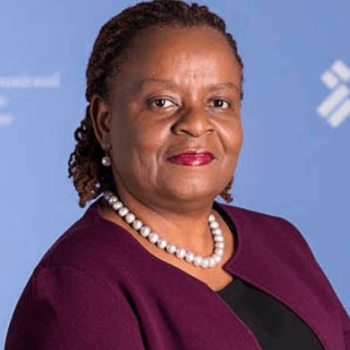
Dorothy (Ng’ambi) Tembo is a Zambian economist and trade and development expert. She is the deputy executive director of the International Trade Centre (ITC), a joint agency of the United Nations and the World Trade Organization.
Tembo served as the executive director of the Enhanced Integrated Framework from October 2008 until October 2013. She has also held several senior positions in the Government of Zambia, notably as Chief Trade Negotiator and Director of Foreign Trade in the Ministry of Commerce, Trade and Industry of Zambia from 2004 until 2008.
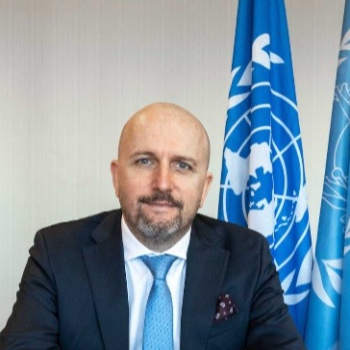
Marjan Osvald, from Slovenia, has been the Deputy Director General of the UPU International Bureau since the beginning of 2022, following his election by member countries at the Universal Postal Congress in Abidjan in September 2021.
During his over 25 years of experience at Pošta Slovenije, he built a solid track record as an executive in international postal relations and operations, successfully managing complex international projects. Marjan was also an active member of PostEurop, serving three terms as a Board member, and was a longstanding member of various steering committees within International Post Corporation. His involvement in research and innovation projects as part of the EU Horizon 2020 project team focused on cognitive logistics involving core technologies, such as artificial intelligence, the Social Internet of Things, and big data analytics.
Serving as the UPU National Quality of Service Coordinator at Pošta Slovenije, he received the 2014 Postal Technology Award for Digital Innovation of the Year, for the concept of new electronic postal customs procedures. However, his journey with the UPU began much earlier, with the Beijing Congress in 1999, and his dedication to the Union has been growing ever since.
Marjan, 55, is married with three children.
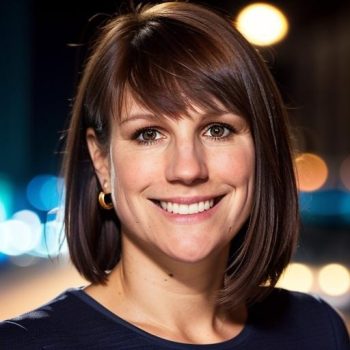
I am Professor of Law and Artificial Intelligence at the University of Tübingen and Director of the CZS Institute for Artificial Intelligence and Law. Previously, I worked at the the University of Oxford, the London School of Economics and the Max Planck Institute for Innovation and Competition. I have also been a Visiting Professor at LUISS University as well as an Affiliated Fellow at University College London.
My research focuses on law and artificial intelligence as well as on EU data law.
Previous projects have focused on the use of AI by public administrations, the explainability of AI, on access to data for environmental purposes, on the regulation of data intermediaries under the Data Governance Act and on the notions of the data controller and personal data under the GDPR. I am moreover author of Subnational Authorities in EU Law (Oxford University Press 2017) and Blockchain Regulation and Governance in Europe (Cambridge University Press 2018), an editor of the Cambridge Handbook on the Law of the Sharing Economy (which has also been translated into Korean) and Smart Urban Mobility.
I am a member of a number of expert committees on digitalization, including the Council of Europe’s ad hoc Committee on Artificial Intelligence and the European Commission’s Blockchain Observatory and Forum. I have moreover advised national institutions as well as the European Commission and the European Parliament on different occasions.
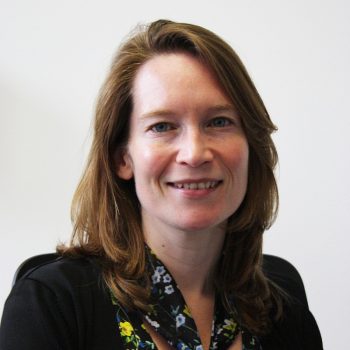
Dr Nora Ni Loideain is Director of the Information Law & Policy Centre, and Senior Lecturer in Law, at the University of London’s Institute of Advanced Legal Studies. Her research focuses on EU law, European human rights law, and technology regulation, particularly within the contexts of privacy and data protection. She has published on topics including AI, police use of facial recognition, health data and research in the Global South, the gendering of AI Digital Assistants, and cross border data transfers.
Nora holds BA, LLB, and LLM (Public Law) degrees from the National University of Ireland, Galway, and was awarded a PhD in law from the University of Cambridge. Previously, Nora held the posts of Visiting Lecturer in Law at King’s College London and Research Fellow and Affiliated Lecturer in Law at the University of Cambridge. In 2024, she will be a Visiting Research Fellow at the Australian National University undertaking work on the regulation of health data and AI digital assistants.
In 2019, Nora was appointed to the UK Home Office Biometrics and Forensics Ethics Group (BFEG) which provides independent expert advice ensuring the robustness of evidence underpinning biometrics and forensics policy development for public security within the Home Office. She is a member of the Board of Trustees for the British and Irish Legal Information Institute (BAILII) and an editor of leading law journal International Data Privacy Law (Oxford University Press). She is a Senior Fellow at the University of Johannesburg and an Associate Fellow at the University of Cambridge Leverhulme Centre for the Future of Intelligence (LCFI).
Prior to her academic career, Nora was a Legal and Policy Officer for the Office of the Director of Public Prosecutions of Ireland and clerked for the Irish Supreme Court. Her work on AI, human rights law, and data protection law, has been published by various leading institutions, including the BBC, The Guardian, Science, the House of Lords, and the United Nations. She has also been an expert advisor on legal matters, including AI and biometric systems, Brexit, surveillance, and cross-border data sharing, to the Alan Turing Institute, the House of Lords, Chatham House, and the European Union.
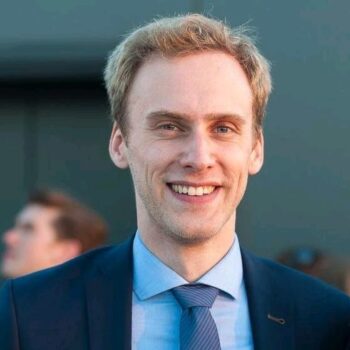
Digital enthusiast focusing on Artificial Intelligence, data and the EU’s digital transition. Soft spot for interinstitutional reforms and the better regulation agenda. Cooperative and pragmatic approach, always trying to strike a balance. Annoyed by stagnation, ideological mindsets and political power plays in the EU institutions and elsewhere. The good policy-maker is inclusive, willing to compromise and strives for constant renewal.
Graduated in politics and law, after specializing in Security Studies and Foreign Policy Analysis as well as in Constitutional and European Law. Studied Political Science (B.A.) at University of Bremen, Law (First German state examination / Dipl.-Jur.) at University of Freiburg / York / Münster, and International Relations (M.Sc.) at University of Edinburgh.
Started his professional life as Research Associate at the European Office of the Konrad-Adenauer-Foundation in Brussels, before moving to the European Parliament as Head of Office and Digital Policy Adviser for MEP Axel Voss (EPP Group) in mid-2017.
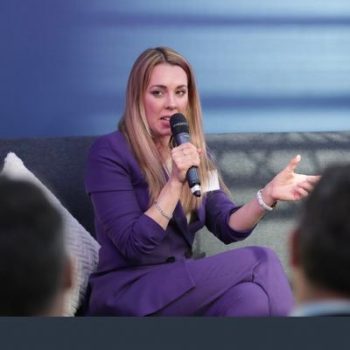
Dr Rachel Adams is the Principal Researcher at Research ICT Africa, where she Directs the AI4D Africa Just AI Centre, is the Director of the African Observatory on Responsible AI and is the Principal Investigator of the Global Index on Responsible AI.
Rachel is a member of the UNESCO Expert Committee for the implementation of the UNESCO Recommendation on the Ethics of Artificial Intelligence, an Associate Fellow at the Leverhulme Centre for the Future of Intelligence at the University of Cambridge, a Research Associate with the Information Law and Policy Centre at the University of London, and a Research Associate of the Tayarisha: African Centre of Excellence on Digital Governance at the University of Witwatersrand, Johannesburg. Rachel was previously a Chief Research Specialist at the Human Sciences Research Council, South Africa.
Rachel has published widely in areas such as AI and society, gender and AI, transparency, open data, and data protection.

Kitrhona Cerri is Executive Director leading the development of the TASC Platform. She has invested more than 15 years at the intersection of business and social impact building collaborations to scale action around knotty issues from human rights to the future of work. Kitrhona was previously the Director of Social Impact at the World Business Council for Sustainable Development (WBCSD), a CEO-led organization of over 200 international companies. She started her career at Accenture, serving clients across their public services, financial services, and international development practices.

Francesca Rossi is an IBM Fellow and the IBM AI Ethics Global Leader.
She is based at the T.J. Watson IBM Research Lab, New York, USA.
At IBM, she leads AI research projects and she co-chairs the IBM AI Ethics board.
Before joining IBM, she has been a professor of computer science at the University of Padova, Italy. She actively participates in many global multi-stakeholder initiatives on AI ethics: she is a member of the board of directors of the Partnership on AI and of the steering committee of the Global Partnership on AI.
She is a fellow of both the worldwide association of AI (AAAI) and of the European one (EurAI), and she will be the next president of AAAI.
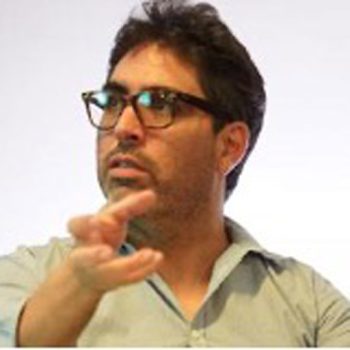
Jose has over two decades in the fields of foresight, futures studies, action research and critical globalization studies, working with dozens of governments, agencies and communities in over 20 countries. He is co-editor of the peer reviewed Journal of Futures Studies, and has published over 70 articles, chapters and papers in a number of journals and magazines. He holds a doctorate from Queensland University of Technology, winning their award for outstanding doctoral thesis. He recently co-founded the Participatory Futures Global Swarm, to amplify the use of participatory futures around the world to intervene in and to influence the public imagination of the future.
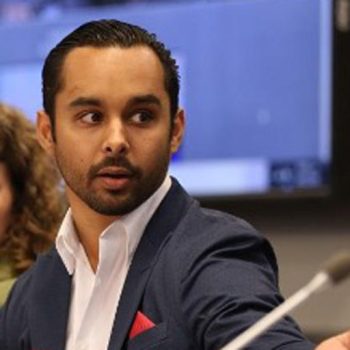
CEO of Emerging Rule and GENIA Latinoamérica. My focus is on transdisciplinary and exponential technologies, artificial intelligence, and international business. We provide tech and innovation expertise to drive the future and lead the present towards success. With a vision centered on cutting-edge AI and emerging technologies, we aim to redefine industries and empower individuals and businesses. Explore our projects and join us in shaping a future where technology enhances human potential and fosters sustainable growth.
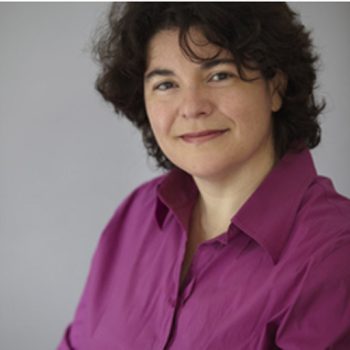
Caroline Gans Combe is an associate professor at INSEEC @ OmnesEducation, where she works on new paradigms of innovation and value creation, and teaches courses on data science, monitoring and impact indicators and related ethical issues. She is an independent expert for the European Commission in various fields such as health, ICT, data security, SME financing and ethics. In this respect, she chaired a working group on best practices in the use of data in research (ethical guidelines on data protection and privacy) and was appointed to the expert group assessing the growth potential of SMEs benefiting from the EU’s dedicated instrument.
A graduate of the Institut d’études politiques de Paris, she holds a master’s degree in ICT law, a Phd in language modelling, and is completing a thesis on new value paradigms: improving the financial valuation of economic agents by integrating cycles currently ignored in existing accounting methodologies and tools, and is an MIT-certified data scientist.

Stephanie Camarena is the founder of Source Transitions where she helps businesses and organisations detect, shape, and deliver differentiated perspectives on sustainability. She partners with clients to design transformative solutions with artificial intelligence for sustainability impact, and ensure they are delivered in a fair and ethically responsible manner. Stephanie is also on the board of several startups where she helps guide product and service development towards sustainable transitions impact.
Stephanie’s doctoral research at RMIT in Melbourne Australia leverages artificial intelligence with a human-centered focus to transition food systems. Practical outcomes of her research influenced institutional food programmes, digital agriculture research, farmers’ markets, systems thinking, interaction design, and design innovation. Finally, Stephanie volunteers with the Banksia Foundation where she is a domain-expert judge for sustainability awards, co-chairs the committee on farmlands and grasslands in the IEEE Planet Positive 2030 design framework and is a Responsible AI practitioner within the Australian CSIRO AI ecosystem.
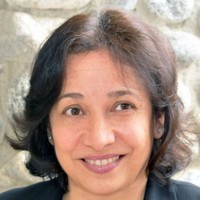
Mojdeh’s passion is to connect ideas and resources in order to help organizations transition towards growth and impact. She has served as an advisor and board member for various companies and non-profits, and is an experienced executive with a demonstrated history of profit generation and top-line growth, as well as strong returns in the venture capital and private equity industry. She is skilled in strategic partnerships, entrepreneurial ecosystem design and management, and growth oriented mergers & acquisitions.
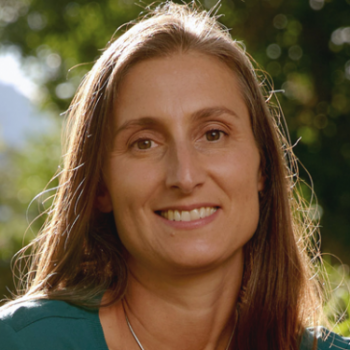
Claire Monteleoni is a Choose France Chair in AI and a Research Director at INRIA Paris, a Professor in the Department of Computer Science at the University of Colorado Boulder, and the founding Editor in Chief of Environmental Data Science, a Cambridge University Press journal launched in December 2020. She has previously held positions at University of Paris-Saclay, CNRS, George Washington University, and Columbia University. She completed her PhD and Masters in Computer Science at MIT and was a postdoc at UC San Diego. She holds a Bachelor’s in Earth and Planetary Sciences from Harvard. Her research on machine learning for the study of climate change helped launch the interdisciplinary field of Climate Informatics. She co-founded the International Conference on Climate Informatics, which turned 13 years old in 2024, and has attracted climate scientists and data scientists from over 20 countries and 30 U.S. states. She gave an invited tutorial: Climate Change: Challenges for Machine Learning, at NeurIPS 2014. She currently serves on the U.S. National Science Foundation’s Advisory Committee for Environmental Research and Education, and as Tutorials co-Chair for the International Conference on Machine Learning (ICML) 2024
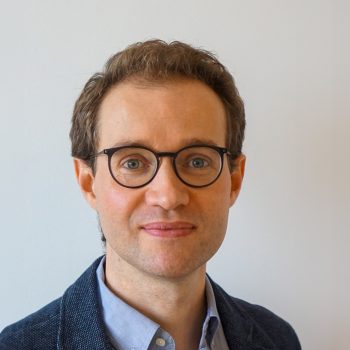
Jakob Hoydis is a Principal Research Scientist at NVIDIA working on the intersection of machine learning and wireless communications. Prior to this, he was Head of a research department at Nokia Bell Labs, France, and co-founder of the social network SPRAED. He obtained the diploma degree in electrical engineering from RWTH Aachen University, Germany, and the Ph.D. degree from Supéléc, France. He is an IEEE Fellow and 2023-24 Distinguished Industry Speaker of the IEEE Signal Processing Society. From 2019-2021, he was chair of the IEEE COMSOC Emerging Technology Initiative on Machine Learning as well as Editor of the IEEE Transactions on Wireless Communications. He is recipient of the 2019 VTG IDE Johann-Philipp-Reis Prize, the 2019 IEEE SEE Glavieux Prize, the 2018 IEEE Marconi Prize Paper Award, the 2015 IEEE Leonard G. Abraham Prize, the IEEE WCNC 2014 Best Paper Award, the 2013 VDE ITG Förderpreis Award, and the 2012 Publication Prize of the Supéléc Foundation. He has received the 2018 Nokia AI Innovation Award, as well as the 2018 and 2019 Nokia France Top Inventor Awards. He is a co-author of the textbook “Massive MIMO Networks: Spectral, Energy, and Hardware Efficiency” (2017). He is one of the maintainers and core developers of Sionna, a GPU-accelerated open-source link-level simulator for next-generation communication systems.
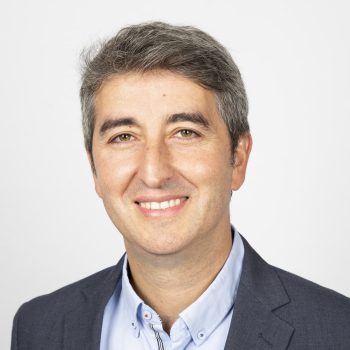
Zoran Utkovski is a principal researcher at the Fraunhofer Heinrich Hertz Institute in Berlin, Germany. He heads the Connected Intelligence and Robotics Group, which is part of the Department of Wireless Communications and Networks. He received a Dipl.-Ing. in electrical engineering (2000) from Sts. Cyril and Methodius University, Skopje, Macedonia, an M.Sc. degree (with distinction) from Chalmers University of Technology in Gothenburg, Sweden (2004), and a Dr.-Ing. Degree (summa cum laude) from Ulm University, Germany (2010). He is recipient of the Fulbright Fellowship and was a visiting scholar at New Jersey Institute of Technology and University Carlos III in Madrid. His research interests are in the areas of communication theory, machine learning, robotics, and complex systems theory. Dr.
Utkovski is involved in the “6G Research and Innovation Cluster (6G-RIC),” funded by the German Federal Ministry of Education and Research (BMBF) and coordinated by Fraunhofer HHI, where he serves as research coordinator of the working groups.
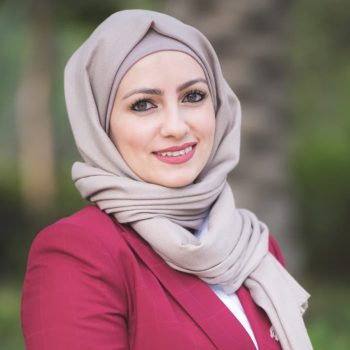
Lina Bariah (Senior Member, IEEE) received the M.Sc. and Ph.D. degrees in communications engineering from Khalifa University, Abu Dhabi, UAE, in 2015 and 2018, respectively. She is currently a Lead AI Scientist at Open Innovation AI, an Adjunct Professor at Khalifa University, and an Adjunct Research Professor, Western University, Canada. She was a Visiting Researcher with the Department of Systems and Computer Engineering, Carleton University, Ottawa, ON, Canada, in 2019, and an affiliate research fellow, James Watt School of Engineering, University of Glasgow, UK. She was a Senior Researcher at the technology Innovation institute. Dr. Bariah is a senior member of the IEEE, IEEE Communications Society, IEEE Vehicular Technology Society, and IEEE Women in Engineering. She is the founder and lead of Women in Machine Learning and Data Science (WiMLDS)-Abu Dhabi Chapter. She was recently listed among the100 Brilliant and Inspiring Women in 6G”, by Women in 6G organization. She was an Associate Editor for the IEEE Communication Letters, an Associate Editor for the IEEE Open Journal of the Communications Society, and an Area Editor for Physical Communication (Elsevier). She is a Guest Editor in IEEE Communication Magazine, IEEE Network Magazine, and IEEE Open Journal of Vehicular Technology.
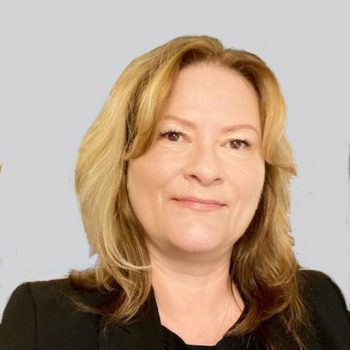
Cristina Badulescu works for Ericsson Group under the Research Area Network Architecture and Protocols. In the role of standardization project manager, she is managing and driving Ericsson standardization activities related to network automation that are done in several standards organizations. Cristina joined Ericsson in 1998 and has been a standardization delegate in various industry standardization bodies representing Ericsson since 2007. She worked with several mobile technologies, applications enablers and IMS, service and network exposure, network automation, management, orchestration, as well as cloud technologies. She has held several Chairperson/Vice-chair positions and rapporteurships in various standardization organizations since 2008, the last one being a Vice-chair of ETSI NFV ISG between 2017-2022.
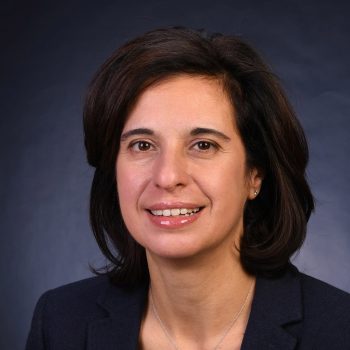
NADA GOLMIE (a Fellow of IEEE) received her Ph.D. in computer science from the University of Maryland at College Park in 2002. Since 1993, she has been a research engineer at the National Institute of Standards and Technology (NIST). From 2014 until 2022, she served as the chief of the Wireless Networks Division at NIST. She is currently a NIST Fellow in the Communications Technology Laboratory. Her research in wireless communications systems and protocols, propagation measurement and modeling, next generation wireless, and millimeter-wave communication systems led to over 200 technical papers presented at professional conferences and journals and contributed to international standard organizations and industry-led consortia. She is the author of “Coexistence in Wireless Networks: Challenges and System-level Solutions in the Unlicensed Bands,” published by Cambridge University Press (2006). She leads several projects related to modeling and evaluating future generation wireless systems and protocols, and serves as the chair of the NextG Channel Model Alliance.
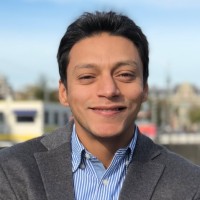
Karim Rabie is an ICT Architect with 18 years of experience in diverse fields of Networks, Mobility, OSS, Cloud & Orchestration domains. He currently holds the position of Principal Telco Architect at Red Hat, with previous Technical and consulting roles at NEC, Netcracker, Tech Mahindra, STC, Nokia, Huawei, Equinox, & Orange. He is recognized as one of the Telco industry leaders with solid community contribution delivering numerous Webinars and Sessions focusing on Cloud, 5G, AI, & Digital Transformation, in addition to being a former member of multiple working groups such as OPNFV End-user Advisory Group, ETSI NFV Network Operators Council, ITU 5G Machine Learning Focus Group, & CNTT Edge Working Group.

Niall McShane is the founder and Managing Director of Source Agility as well as the internationally recognised author of “Responsive Agile Coaching-how to accelerate your coaching outcomes with meaningful conversations”. Niall is a coach at heart and throughout his career has applied coaching in many situations; sports, life, leadership and for the last 12 years, agile and ways to work.
There are two consistent themes in all of the coaching Niall has delivered over the years; performance (getting the outcome) and growth (getting better). These two elements are central to his life and work at Source Agility. His overarching vision for the future of work (and his motivation for founding Source Agility) involves enabling organisations to get work done through the application of ways of working that promote tolerance, kindness and patience for fellow workers.
Niall is also involved in research and innovation projects using agility as governance model for delivery and policy making in fast changing technology environments.
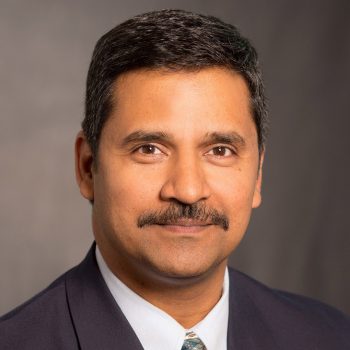
Azhar is a Global Chief Technologist, at Red Hat. His role is to work with Telcos worldwide to define new architectures and develop deployment models and strategies for Cloud and Virtualization.
Azhar is active in open-source communities such as xGVela, Anuket, Magma etc. Azhar is on the board of Magma Foundation, and he has driven several initiatives such as Virtualized Central Office Architecture, an Anuket community project, demonstrating first cloud native 5G network and how Central Offices can be virtualized/cloudified to drive new cost-effective way to deliver Residential, Business and Mobile services.
Azhar has more than 25 years of experience in the Networking, Telecommunications and Software industry. Prior to Red Hat, Azhar is a 17-year veteran of Cisco Systems where he ran many teams and projects from Software Product Management to Engineering development and Solutions delivery teams.
He has 9 Patents and is author of the book MPLS and Next-Generation Networks: Foundations for NGN and Enterprise Virtualization.
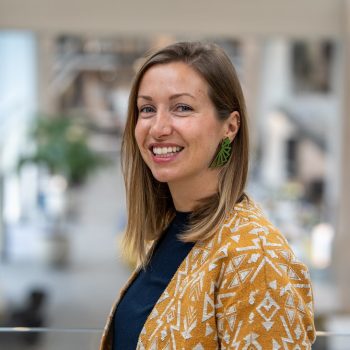
Fran Baker is Director of Sustainability & Social Impact at Arm, a world-leading semiconductor and software design company. Her work focuses on extending the benefits of technology to people and areas not currently prioritised. Working with impact partners on worldwide programmes, from social entrepreneurs to global organisations, Fran drives an impact strategy designed to deliver inclusive innovation through technology. Through this approach, she surfaces, catalyzes, and optimizes new opportunities, partnerships, and insights for social and sustainable impact at scale where technology can play a role. Fran has recently completed the inaugural AI Ethics & Society Masters programme at the university of Cambridge and continues her work as an independent researcher focusing on the sustainability of AI. In 2024, Fran has been recognised on the ‘100 Brilliant Women in AI ethics’ list and was a finalist in the Everywoman in technology ‘Tech for Good’ Award.
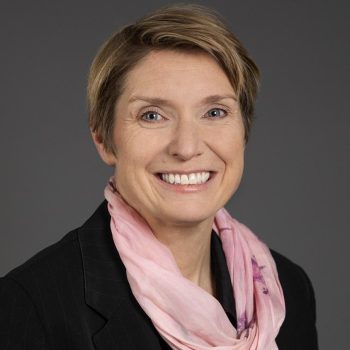
Andrea Dunbar, is the focus activity manager of data & AI at CSEM and a Professor of Practice at EPFL. She has a PhD in Physics from Trinity College, Dublin and an EMBA from EPFL. As a board member and start-up coach she puts into practice her know-how on innovation management, digital transformation, and value generation through AI & data in business.
Today, Andrea’s work focuses on machine learning, intelligent vision systems and multispectral systems. Her research areas are ultra-low power systems for a sustainable future including low power imagers, hierarchical computing, and resource aware ML training for IoT applications.
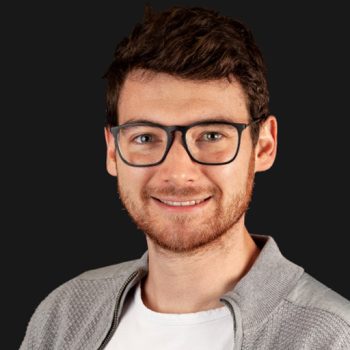
Simon Narduzzi is a Ph.D. candidate and researcher at the forefront of neuromorphic computing and edge AI, dedicated to exploring the intricacies of artificial and biological neural networks. His aim is to devise algorithms that boost the capability of smart embedded systems based on principles from neuroscience, while aiming for the overarching objective of leveraging technology for the greater good of society.
Simon earned his Bachelor’s degree in 2016 and Master’s degree in 2019 from the École Polytechnique Fédérale de Lausanne (EPFL), combined with a Minor in Computational Neurosciences. He is now advancing toward his Ph.D. at ETH Zürich, and is the author of several book chapters and papers presented at renowned technology conferences.
Simon is a founding member of the Swiss chapter of the TinyML Foundation and is engaged in pivotal European projects, emphasizing in making machine learning technology more accessible for edge computing His commitment to building partnerships and engaging in strategic initiatives is directed towards shaping a future that prioritizes sustainability and human-centric technologies.
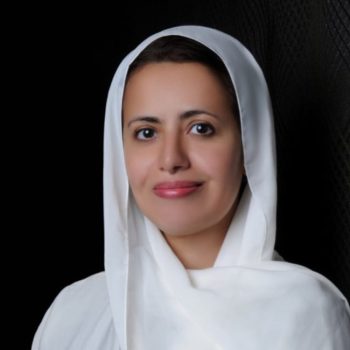
Ms. AlBawardi is a Certified Strategy and Business Planning Professional, as well as an IT/Performance Management Senior Consultant, with more than 22+ years of working experience.
Moreover, she is a certified trainer as well as an Elsevier reviewer for international AI & technical research papers and articles. Ms. AlBawardi is also a public speaker and a workshop presenter in several national and international conferences including: United Nations ITU IGF2023 in Kyoto Japan, as well as UN ITU AI for Good Summits 2024 and 2025 (with more than 150 international workshop attendees) in Geneva Switzerland.
Ms. AlBawardi is also an Author who have participated in writing several technical international publications, as well, including HiMSS Book of the Year (editions 2007, 2013 and 2018) in USA. She is also a USA Today Bestselling Author, as well as a weekly Columnist, with 200+ articles, in KSA digital journals, mainly about AI and Digital Economy themes.
Ms. AlBawardi has earned a Master’s degree in Computer Science from Boston University, USA, in 2003, as well as 2 certifications in Strategic Planning. Her Computer Science Bachelor Degree was from the American University in Cairo, in 1994, and she has also attended a Strategic Management course in Harvard University, USA, in 2019.
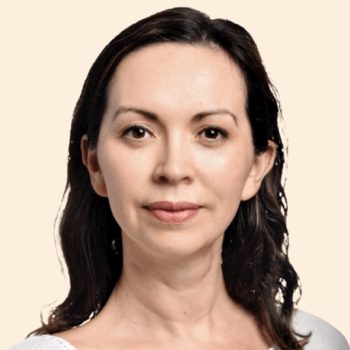
Stefanie M. Falconi, Ph.D. is on the Technology Division’s Emerging Technologies Team. She joined USAID as an AAAS Science & Tech Policy Fellow in 2022. With 15 plus years of experience working in frontier and emerging markets, she has led projects in Water and Climate Change issues in rural and megacities alike. She’s worked at the intersection of climate and technology highlighting the potential and limitations of technology in solving socio-economic problems.
Stefanie is an alum to the Faculty for the Future Fellowship, the Google sponsored Global Solutions Program Fellow, and World Economic Forum Global Futures Council. She holds a Ph.D. in Environmental Engineering from Johns Hopkins University. Originally from Ecuador, she always seeks to engage in immersive work in diverse settings.
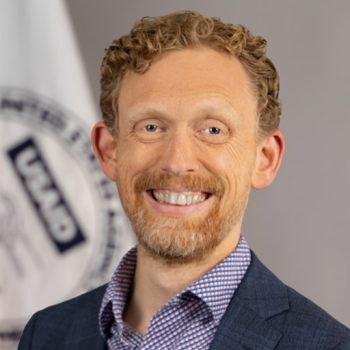
Craig is a Data Scientist at USAID’s Innovation, Technology, and Research Hub in the Bureau for Inclusive Growth, Partnerships, and Innovation. As part of USAID’s Emerging Technologies team, he’s working to integrate AI technologies throughout USAID’s work and promote the responsible, effective adoption of AI at USAID. Previous projects have focused on the development potential of emerging technologies including machine learning, blockchain technologies, biometrics, and quantum computing. For the last three years, he’s been leading the development of the Digital Ecosystem Country Assessment (DECA), which aims to help USAID Missions understand their digital operating environment and focuses on issues around digital infrastructure, access, governance, finance, and trade. Prior to coming to USAID in 2014, he studied mathematical models of biological rhythms at RIKEN in Kobe, Japan, and he received a PhD in Physics from Arizona State University.
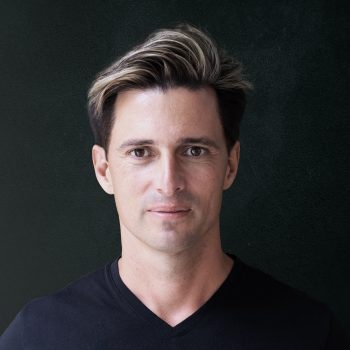
Vasco Pedro is a co-founder and chief executive officer of Unbabel, a company that removes language barriers by blending artificial intelligence with real time, human translations. A serial entrepreneur, Vasco has led Unbabel since 2013, taking it through Y Combinator and raising over $135 million in funding.

Dr. Ulrike Tagscherer is the Chief Innovation Officer at KUKA since May 2019 after joining KUKA in 2017. From 2015 until 2017 she was Deputy Department Head for Business Model Innovation at Fraunhofer Headquarters in Munich, Germany. There she was responsible for an internal accelerator for Fraunhofer researchers to create their own startup. Prior to this she spent 7 years as an innovation systems researcher at the Chinese Academy of Sciences, Beijing, China, in collaboration with the Fraunhofer Institute for Systems and Innovation Research in Karlsruhe, Germany.
From 2000 to 2008 Dr. Ulrike Tagscherer worked in the Department for International Business Development at Fraunhofer Headquarters and was heading several offices in different Asian countries.

Dr. Geiss brings to the position over twenty years of experience in peace and security, with focus on the impact of new technologies in these areas. Most recently, he served as Director of the Glasgow Centre for International Law and Security at the University of Glasgow and as the Swiss Chair of International Humanitarian Law with the Geneva Academy of International Humanitarian Law and Human Rights. He was a Visiting Professor at the Paris School of International Affairs at Sciences Po in Paris.
He has managed large-scale research projects and held multiple posts in academia, including as Visiting Professor for the University of Vienna (2017), Distinguished Guest Professor for the Institute for International Peace and Armed Conflict in Bochum (2016), and Visiting Fellow for the German Institute for International and Security Affairs in Berlin (2016). He was a Professor of Public International and European Law at the University of Potsdam (2011-2013) and Research Project Director for the Collaborative Research Center at the Freie Universität Berlin (2014-2017).
He served as Legal Adviser for the International Committee of the Red Cross (ICRC) Legal Division for Geneva/New York (2007-2010) and Geneva (2004-2005).
Dr. Geiss holds a Ph.D. in law from the University of Kiel and obtained an LL.M. in international legal studies from the New York University.

Aileen Black is a highly respected IT industry executive and general manager with a dynamic record of driving exponential growth results in public sector organizations. Her unique pedigree includes developing industry-changing technology and service businesses from the ground up, with proven experience in running large enterprise-class business units in excess of 600 million. Black has held executive positions at Google, VMware, EMC, and Oracle. With more than 30 years of experience building, managing, and motivating top-notch technology sales and professional services organizations, she has proven success with a deep understanding of the cloud, artificial intelligence, enterprise open source, big data, government contracting, sales, strategic alliances, marketing and the political landscape across the public sector market in addition to extensive media and public speaking across all forms of media including radio and television.

Irina Soeffky is Director for National, European and International Digital Policy at the German Federal Ministry for Digital and Transport. She has more than 15 years of experience in the public service and has worked extensively on international issues. She holds degrees in law and economics.
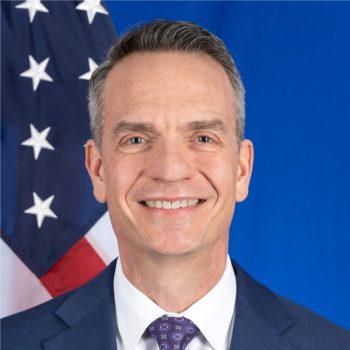
Steve Lang has been the Deputy Assistant Secretary for International Information and Communications Policy since November 2022. Previously he served as the Minister-Counselor for Economic Affairs at U.S. Embassy Tokyo (2020-2022) and in the Bureau of Economic and Business Affairs’ Office of International Communication and Information Policy as Director of both the Office of Multilateral Affairs (2017-2018) and the Office of Bilateral and Regional Affairs (2015-2017). From 2013 to 2015, Steve was the Political Counselor at the U.S. Embassy in Mexico City. Previously, he served as Deputy Director of the Office of Chinese and Mongolian Affairs at the Department of State (2011-2013) and as a Senior Analyst in the U.S. Trade Representative’s Office of Japan, Korea, and APEC Affairs (2010-2011). Prior tours include the U.S. Consulate-General in Guangzhou, China; the American Institute in Taiwan in Taipei; the Bureau of Western Hemisphere Affairs; the U.S. Embassy in Bangkok; and the U.S. Interests Section in Havana, Cuba. Before joining the State Department, Steve worked as an economist for the Department of Labor and is a graduate of Georgetown University

Professional with more than 16 years of experience in both the private and public sectors, with great capacity for teamwork, critical thinking, analysis and problem solving, and respect for professional hierarchy; prepared to face new challenges and willing to learn new disciplines.

Dr. Ott Velsberg is a renowned Estonian IT specialist and government official, known for his expertise in data governance and data science. As the current Chief Data Officer (CDO) of Estonia, he is responsible for driving the country’s data policy and initiatives related to the use of data and AI in the public sector. Velsberg has a wealth of experience in coordinating data governance and data science, with a focus on domains such as artificial intelligence, open data, citizen-centric data governance, data management, and digital transformation. Under his leadership, Estonia has gained a reputation as a trendsetter in data governance, open data, and artificial intelligence. With his passion for technology and data, he is making significant contributions to Estonia’s digital transformation and shaping the country’s future in data governance.
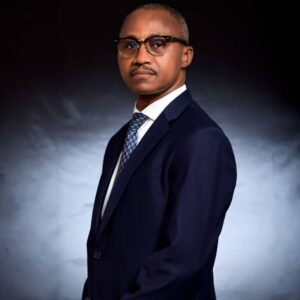
Mr. Célestin KADJIDJA is a computer engineer, with 30 years of experience in the field of networks and information systems management, in the banking, air transport and social security sectors.
Initially, he was trained at the Konstanz School of Engineering in Germany after his secondary studies at the Lycée National Léon MBA in Libreville, Gabon.
He began his professional career in the early 1990s in the banking sector. He subsequently moved into the air transport sector, then the healthcare sector, managing IT and telecom projects in the social security sector.
During his career, he held various positions, namely:
- Project Manager at the IT Department of BICIG Bank, BNP-Paribas Group;
- Deputy Director of Electronic Money at BICIG, BNP-Paribas Group;
- IT and Telecommunications Director at the national airline, Air-Gabon;
- Director of Information Systems of the National Social Security Fund (CNSS) of Gabon;
- Technical Advisor in Information Systems to the Director General of the CNSS;
- Technical Advisor in Information Systems Security to the Director General of the CNSS.
In August 2023, he was appointed President of the Regulatory Council of ARCEP Gabon by Brigadier General Brice Clotaire OLIGUI NGUEMA, President of the Transition, Head of State, President of the Gabonese Republic.
For this position, he has been given a roadmap with the following areas of work:
- Improving ARCEP Governance;
- Acceleration of the development of universal service;
- Optimization of Frequency Resource Management;
- Clean-up of the Institution’s finances.
These directives constitute the guidelines for Mr. Célestin KADJIDJA’s managerial action since he took office on October 5, 2023.
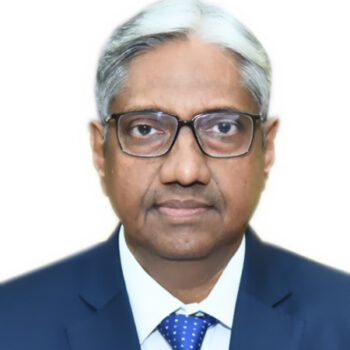
Shri Anil Kumar Lahoti, Chairman, Telecom Regulatory Authority of India (TRAI) is an officer of the Indian Railway Service of Engineers from the 1984 batch. He had superannuated as Chairman & CEO, Railway Board on 31st August 2023 after a career spanning about 37 years Indian Railway. He is a graduate in Civil Engineering from Madhav Institute of Technology and Science, Gwalior, with gold medal and has master’s degree in engineering (Structures) from IIT Roorkee. He has worked in various positions in the Central, Northern, North Central, Western, and West Central Railway, as well as in the Railway Board.
Besides Chairman & CEO, Railway Board, some of the important positions held by Shri Anil Kumar Lahoti include Member Infrastructure, Railway Board, General Manager of Central Railway and Western Railway, Divisional Railway Manager, Lucknow, Northern Railway, Chief Administrative Officer (Construction), Northern Railway and Executive Director, Railway Board.
Post his retirement, Ministry of Railway had appointed him to a One-Man Expert Committee for improvement in inspection and maintenance of track. In December 2023, Gati Shakti Vishvavidyalaya, Vadodara, a Central University appointed him as a Distinguished Visiting Professor.
His expertise includes railway operations, track maintenance, project execution and station redevelopment. During his illustrious career, Shri Lahoti initiated several reforms in execution of infrastructure projects and took several initiatives to modernize and mechanize track maintenance on Indian Railways. During his stints as CRB & CEO, GM and DRM, he brought about significant improvement in freight transport performance and took several customer friendly initiatives to
improve the quality of service and ease the customer interface.
He has also extensively contributed to planning and structuring of station redevelopment projects in various positions served by him. Shri Lahoti has travelled to various countries in Europe, North America, Asia, and Australia in connection with official assignments. He has undertaken executive training programmes at
Carnegie Mellon University, Pittsburgh, USA, SDA Bocconi Business School, Milan, Italy and Indian School of Business, Hyderabad.
He was born to Freedom Fighter Late Shri Ratan Lal Lahoti and Late Smt. Kanchan Devi Lahoti at Guna, M.P. and is the younger brother of former Chief Justice of India Late Justice R.C. Lahoti. His wife is a homemaker and his son is a working professional in Bangaluru.
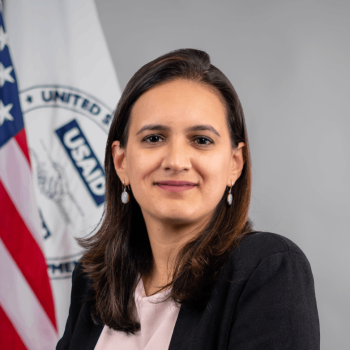
Sabeen Dhanani is the Deputy Director for the Technology Division at USAID. The Division houses over 65 technical experts across 8 teams focused on Digital Finance, Development Informatics, Digital Inclusion, Emerging Technology such as Artificial Intelligence, Cybersecurity and advanced data and geospatial analysis, and the role they play in driving an inclusive digital economy. Sabeen provides strategic direction and supports the overall management of the Division’s activities to align with USAID’s wider development and humanitarian assistance objectives. Additionally Sabeen represents USAID in a number of intergovernmental and external forums to promote the growth of open, secure, and inclusive digital ecosystems around the world. Sabeen has an MA from Harvard University and is a Term Member with the Council on Foreign Relations.
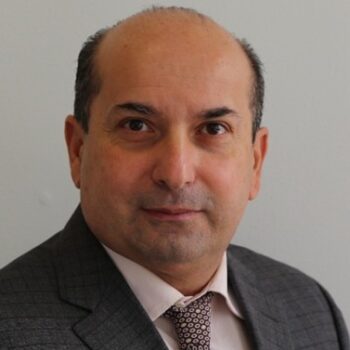
Dino Dell’Accio is the Chief Information Officer (CIO) at the United Nations Joint Staff Pension Fund (UNJSPF), where he spearheads digital innovation initiatives through the responsible adoption of emerging technologies.
A recognized leader in ethical tech governance, Dell’Accio has pioneered the integration of blockchain, artificial intelligence (AI), and biometric systems to enhance transparency, security, and operational efficiency across the Fund’s global operations.
His work establishes industry benchmarks for aligning cutting-edge tools with rigorous compliance frameworks, particularly through his leadership in achieving the ISO certification for the responsible and ethical use of AI—a first-of-its-kind accomplishment within the UN System and pension sector. As a sought-after authority, he frequently addresses global audiences at premier scientific forums, where he shares insights on practical and secure applications of blockchain, biometrics, and AI in public-sector innovation.

Jūratė Šovienė is the Chair of the Council of the Communications Regulatory Authority of Lithuania.
She has 20-year experience in competition policy, regulation and strategy including leading positions at the Lithuanian Competition Council. She also served as Chief Legal Adviser to the President of Lithuania holding position of the Head of Legal Affairs Group at the Office of the President of the Republic of Lithuania. Ms J. Šovienė has more than 10-year experience as the Senior Expert/Project Manager in a number of EU projects in the field of competition law.
Ms. J. Šovienė has experience in Academia too as the former Member of Economics Study Program Committee at Kaunas University of Technology, research fellow and the lecturer of administrative law. In 2016, Ms J. Šovienė was awarded a prize by Lithuanian Academy of Sciences for a co-authored monography “The Impact of Cartels on National Economy and Competitiveness”. She was also recognized as one of the 40 Notable Women Competition Professionals in Enforcement in Europe, the Americas, Africa (by W@Competition, 2019) and was awarded the State Award the Medal of the Order of the Lithuanian Grand Duke Gediminas for the significant contribution to the protection of fair competition by the President of Lithuania (2018). After taking position of the Chair of the Council of Lithuanian regulator, Ms. J. Šovienė participated as the speaker at many national and international conferences, joined the BEREC Board of Regulators.
Ms. J. Šovienė has Master’s degrees in Business Management and Law.

Trevor’s work is all about making tech practical—evaluating how innovative ideas can actually work in the real world. Before MDIA, Trevor managed ICT projects that shaped Malta’s healthcare systems, supporting 10,000 users, and spent nearly a decade in national security, leading high-stakes IT systems and collaborations with Europol. In short, Trevor knows how to turn big ideas into solutions that matter.

Scientist and manager with many years of experience. Associated with the Wroclaw University of Science and Technology and the Wroclaw Centre for Networking and Supercomputing. Author of many scientific publications.
His professional interests focus on technical, economic and legal aspects of telecommunications services and data communication networks, as well as on the development of the Internet, the convergence of telecommunications, information technology and media, and the problems of the information society.
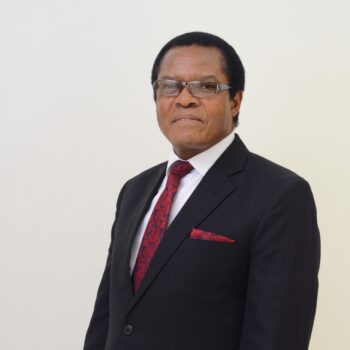
Dr Gift Kallisto Machengete is the Director General of the Postal and Telecommunications Regulatory Authority of Zimbabwe (POTRAZ),having been appointed to the position in December 2016. He is a member of the ITU Digital Innovation Board, and currently serves on the Boards of several institutions in Zimbabwe.
He holds a Bachelor of Science Degree in Economics from the University of Zimbabwe, a Master of Business Administration Degree (MBA) from Southern Cross University, Australia, and a Doctorate in Business Administration also from Southern Cross University, for which he graduated with a distinction, and was awarded the University Plaque for outstanding achievement.
He has over forty-four (44) years of working experience, having worked as an Economic Counsellor at the Zimbabwe Embassy in China, Zimbabwe’s Deputy Ambassador to Malaysia and Director of Administration in the Office of the President and Cabinet, before joining the POTRAZ in 2016.
He is a former part-time lecturer for the Master of Business Leadership and Master of Security and Intelligence Degree programmes at Bindura University of Science Education (BUSE). This included working as a Research thesis Moderator. He currently serves on the Boards of several institutions in Zimbabwe.

Golestan (Sally) Radwan (B.Sc., MBA, M.Sc.) is a Computer Scientist with expertise in AI and emerging technologies. Prior to UNEP, Sally served as Advisor to the Egyptian Minister of ICT, where she led the development and implementation of Egypt’s national AI strategy. During this time, she served as an expert and delegate of Egypt to several international organizations working on AI Policy and Regulation including UNESCO, WIPO, ITU, and OECD. She also championed and led two working groups within the African Union and League of Arab States to unify regional efforts around Responsible AI. Sally previously held several executive positions in the technology industry over 17 years, working in Germany, Austria, the UK and the US for companies including Novell GmbH, Avaya Inc. and NTT Data Europe. She earned a B.Sc. in Computer Engineering from Cairo University and an MBA from London Business School, as well as an MSc in Clinical Engineering and Healthcare Technology Management from City University of London. She is currently finalizing her PhD thesis, focusing on AI explainability and its ethical considerations in metagenomics at the Royal Holloway University of London.

Mr. Ren Xianliang is the Secretary-General of World Internet Conference (WIC). He has led the organizing work of WIC Wuzhen Summit for many years. After the establishment of the WIC as an international organization, Mr. Ren Xianliang has successfully promoted the formation of the WIC Working Group on Artificial Intelligence, Data and Cross-border E-commerce. Based on these working groups, he continues exploring new ways to promote international exchanges and cooperation by building various international dialogue platforms. In 2023, led by Mr. Ren, WIC has released a number of outcomes and consensus documents, such as Developing Responsible Generative Artificial Intelligence Research Report and Consensus, and World Internet Conference AI for Social Good Action Plan(2023-2025). In recent years, Mr. Ren has actively participated and delivered keynote speeches at the major international events such as the Internet Governance Forum and the Mobile World Congress 2023 hosted by GSMA.
As one of the main initiators of the WIC Wuzhen Summit, Mr. Ren has made great contributions to the establishment and development of the Wuzhen Summit by deepening the connotations of the conference themes, exploring innovative conference-organizing modes, and enhancing the brand influence of the conference.
Mr. Ren Xianliang is the former Vice Minister of Cyberspace Administration of China and has held the leadership positions in the field of Internet management for a long time. He participated in the establishment of Cyberspace Administration of China, and actively promoted the formulation and implementation of a series of major policies in such areas as cyberspace administration, digital economy development and international cyberspace governance. As the former President of China Federation of Internet Societies, Mr. Ren, based on his deep insight on the extensive and profound impact of the information revolution marked by the Internet, has successfully launched a series of influential conferences and events, such as China Internet Integrity Conference, China International Digital Economic Exposition and China New E-commerce Conference.
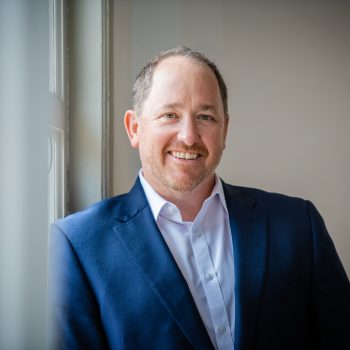
Jeremy Steele is CEO and Managing Director of Control Bionics. Control Bionics is a medical device company assisting patients whose ability to communicate verbally or via text and social media is compromised by illnesses such as Motor Neurone Disease (MND)/ Amyotrophic Lateral Sclerosis (ALS), Spinal Cord Injury, Traumatic Brain Injury and Cerebral Palsy among others. Our core patented NeuroNode technology is a wireless wearable device that detects minute signals sent from the brain to any skeletal muscle and is captured as Electromyography (EMG) signals which are processed on personal computers, smartphones and tablets to generate text, text to speech, email and other computer-controlled functions.
More recently Control Bionics announced the launch of the NeuroStrip which provides comprehensive physiological telemetry: In addition to tracking EMG, EOG, and Spatial data, NeuroStrip extends its capabilities to include Electroencephalography (‘EEG’) and ECG, making it a full-body platform for assistive technology and a versatile tool for many clinical, research and industry applications.
Jeremy joined Control Bionics in early 2023 and has extensive commercial experience across a number of industries, with the last 12 years in the global healthcare market.
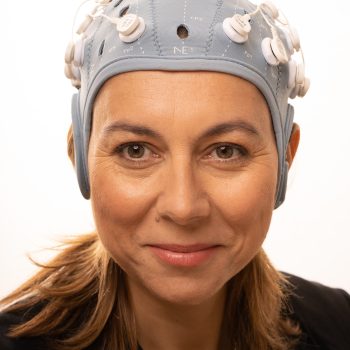
Ana Maiques is a prominent business and innovation figure, whose impact and influence in the fields of entrepreneurship and neuroscience are undeniable. As a co-founder of Neuroelectrics, a company with a bold vision to transform our interaction with the brain through the development of pioneering technologies to monitor and stimulate this vital organ, she has demonstrated exceptional leadership and inspiration.
Under her leadership at Neuroelectrics, the company has achieved remarkable accomplishments, including recognition as one of the Best Entrepreneurial Companies in 2016 in the United States, awarded by Entrepreneur magazine. Her impressive career has been acknowledged on multiple occasions, including the prestigious Most Exceptional Entrepreneurs award by Goldman Sachs at the 2022 Builders and Innovators Summit, as well as the distinguished European Union Prize for Women Innovators from the European Commission in 2014, and the title of Most Inspiring Women on the Inspiring Fifty list in Europe for two consecutive years in 2015 and 2016.
In addition to her significant role at Neuroelectrics, Ana Maiques is an active figure in the innovation scene, both in Europe and the United States. She is a permanent member of the European Innovation Council Advisory Board and became a Termeer Fellow at the Henri Termeer Foundation in 2018, reflecting her commitment to scientific and technological advancement
Equally important is her role as a co-founder of EsTech, a platform for Spanish scale-ups and unicorns dedicated to fostering the growth of innovative companies. Her vision and leadership are fundamental to the realization of this ambitious mission.
Undoubtedly, Ana Maiques is a passionate advocate for gender equality in STEM fields. Her commitment extends beyond business and into creating opportunities for more women to participate in these fields. Through her dedication to Neuroelectrics, she has demonstrated that business success and the promotion of scientific advancements can go hand in hand. Ana is dedicated to business ethics and remains determined to break down barriers and promote a brighter future in science and technology.
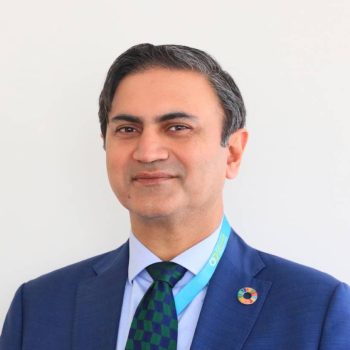
The United Nations Secretary-General António Guterres appointed Mr. Sameer Chauhan as the Director of the United Nations International Computing Centre (UNICC) on 1 December 2019.
As the head of the organization, he has the responsibility to lead all aspects of UNICC’s strategy and operations, to facilitate the provision of services to more than 100 Clients and Partner Organizations, to establish the UNICC strategy, to develop a biennial business plan and budget and to implement the approved plan. He is accountable to the UNICC Management Committee (MC) that governs the organization and represents the entire United Nations system.
Mr. Chauhan effectively led a strategic transformation of UNICC with the advice and backing of his board. This has allowed UNICC to become the preferred strategic digital partner for the whole UN system. The organization has successfully built capabilities in areas such as cybersecurity, data, AI, crypto and automation, as well as in key business areas like treasury, finance and HR. He started his career at UNICC in August 2015 in New York as Chief of Clients and Projects.
Previous Experience
Mr. Chauhan has over twenty years of prior experience in the public and private sectors and an educational background in Computer Engineering and Computer Science. Before UNICC, Mr. Chauhan was the Head of Knowledge Management and Digital Marketing IT for Deutsche Bank (DB) Asset and Wealth Management. He played several roles at DB over eight years, including as the COO for an IT division of approximately 800 staff and as the product manager responsible for a multi-billion-dollar trading platform. He also spent several years as a consultant for Deloitte, working across various industries including financial services, public sector, telecom, manufacturing and software.

• An information technology visionary possessing the unique skill of both strategic and tactical thinking.
• Understands the importance and value Information Technology can provide to an organization and has the leadership, business, and technical experience to ensure success in any environment.
• Goal-oriented and technically sophisticated, with experience in planning, acquiring, developing, and implementing complex information technology solutions to address emerging business opportunities.
• Focused on achieving results while formulating and implementing advanced technology and business solutions to meet a diversity of needs.

Giulia is a data scientist who currently works at the United Nations World Food Program (WFP) in the Hunger Monitoring Unit where she leverages her expertise to develop and implement machine learning models. These models are used to estimate food security indicators in regions where primary data is unavailable and to provide longer-term forecasting. Before joining WFP in 2020, she worked as a researcher at the Netherlands Organisation for Applied Scientific Research (TNO) and received a Master’s degree in civil engineering from Delft University of Technology. Giulia’s primary objective is to make technology accessible and user-friendly to support and improve operations in the humanitarian sector.
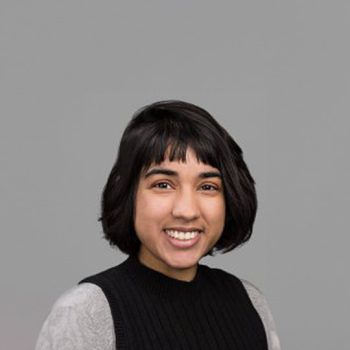
Shruti Nath, a Climate Mitigation and Adaptation Scientist and PostDoc at the University of Oxford, focuses on developing lightweight statistical tools to model complex weather and climate processes. She works a lot on understanding the spatio-temporal regularities within noisy weather structures to be able to approximate them in a realistic/consistent manner. This allows a better understanding of the uncertainty space, and more importantly, agile exploration of it. She employs a range of techniques for this, going from traditional statistical techniques to more recent artificial intelligence techniques.
She also dabbles around with cloud-optimized artificial intelligence-based training on large datasets (while trying to not use up too many credits), and multi-resolution image analysis and decomposition. Her previous work was at an NGO, and she tries to maintain a strong lens on stakeholder engagement and capacity building within her work.
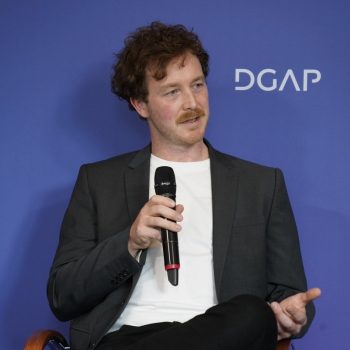
Kai Kornhuber is a Sr. Theme Coordinator Extreme Weather & Climate Dynamics, International Institute for Applied Systems Analysis. He is also an adjunct Associate Research Scientist at the Lamont-Doherty Earth Observatory, Lecturer at the Columbia Climate School in New York and a Senior Fellow on Climate Risks at the German Council on Foreign Relations.
His research is dedicated to physical drivers of extreme weather and climate events and associated societal impacts under current and future climatic conditions.
He is Founding Member of the EarthNetwork on Sustainable and Resilient Living in an Era of Increasing Disasters at Columbia’s Climate School, Co-Chair of the Compound Events Working Group at Risk-Kan and a Co-Pi of the Project PERSEVERE within the BMBF (German Federal Ministry of Education and Research) Consortium ClimXtreme. At Climate Analytics he is leading the efforts on quantifying Physical and Acute Risks within the NGFS network.
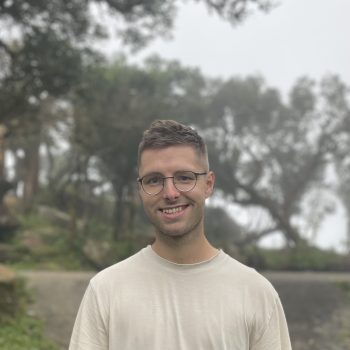
Vitus Benson is an ELLIS PhD candidate at Max Planck Institute for Biogeochemistry, ELLIS Unit Jena and ETH Zürich, training deep neural networks on data of the Earth system with focus on two applications: (1) the applicability of large-scale AI to Early Warning Systems. Within the EarthNet initiative. leveraging high resolution satellite imagery are leveraged to build data-driven impact early warning systems – with applications to anticipatory action for droughts and heat waves; (2) the study of the carbon cycle with neural network emulators, assessing the use of AI for atmospheric transport and inverse modeling – analogous to how recent works have revolutionized numerical weather prediction and other areas of scientific machine learning.

Born in Geneva in 1988 in a large family, Delphine Bachmann obtained a Bachelor’s degree in Nursing in 2011. She worked both at the Geneva University Hospitals and in oncology at Clinique des Grangettes, as well as a lecturer at the Higher School of Health Sciences. In 2016, she obtained an Executive MBA with a specialisation in Risk Management. She became Administrative Director of Clinique des Grangettes’ Breast Centre in 2018. After the Clinique became part of Hirslanden Group in 2020, she became a member of the Geneva campus’ General Management and Head of several departments. Meanwhile, she was elected member of Geneva’s Great Council from 2017 to 2023 and sat on several boards of directors and boards of foundations, particularly in the healthcare sector. In 2023, she was elected State Councillor in charge of the Department of Economy and Labour.
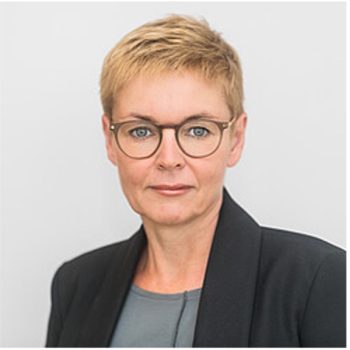
Birgit Sawitzki is Professor for Translational Immunology and Head of the Center of Immunomics at the Berlin Institute of Health @ Charité-Universitätsmedizin Berlin.
Birgit Sawitzki is actively engaged on activities of the German Society of Immunolgy (DGfI) and serves as a member of the “Consultant Immunologist” exam board. In addition she is part of the organising committee of the annual “Translational Immunology” and “Autum” schools of the DGfI. She has a long-standing interest in discovering the mode-of-action of innovative immunomodulatory therapies in inflammatory diseases such as organ transplantation. She was elected council member for the European Society of Transplantation (ESOT).
Currently Birgit Sawitzki, together with Wolfgang Kübler, is speaker of the new Excellence Cluster initiative INTERACT, which aims to provide mechanistic proof of dysregulated inter-organ communications as a cause of multimorbidity. Exploiting the potential of AI / machine learning modelling will play a central part by accelerating patient risk stratification and identification of novel therapeutic targets.
The research work of Birgit Sawitzki focusses on the investigation of the molecular mechanisms of immune cell activation and tolerance induction, in order to better understand why components of the immune response themselves become a trigger of destructive inflammatory reactions, like e.g. in the context of autoimmune diseases or COVID19 diseases. In particular multi-parametric technologies (cytometry, imaging, scRNAseq) are used to uncover pathological changes in the composition and function of immune cells (doi: 10.1016/j.cell.2021.12.040.).
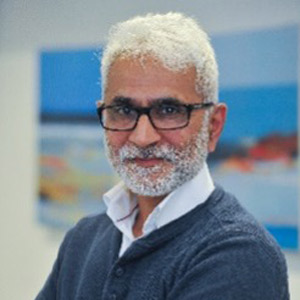
Aroon Hingorani is UCL Professor of Genetic Epidemiology; former Director of the UCL Institute of Cardiovascular Science (2011-2021); Cardiovascular Programme Lead for the UCL Hospitals NIHR Biomedical Research Centre; Director of the UCL British Heart Foundation Research Accelerator; and Principal Investigator of the UKRI-NIHR-DHSC funded Multimorbidity Mechanisms and Therapeutics Research Collaborative. He is Consultant Physician at University College London Hospitals NHS Foundation Trust with subspecialty accreditation in Clinical Pharmacology and Therapeutics. He chairs the North Central London Joint Formulary Committee and is an NIHR Senior Investigator.
His current work focuses on the use of genetic studies in populations as a tool to identify and validate drug targets, using the Mendelian randomisation principle, to improve efficiency in pharmaceutical development. He also has an interest in critical evaluation of the use of genomic and biomarker data for disease prediction and stratification and in the causes and management of multimorbidity.
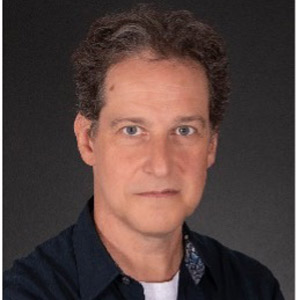
Wolfgang Kuebler is Professor of Physiology and Director of the Institute of Physiology at the Charité Berlin and Professor at the University of Toronto in the Department of Surgery and the Department of Physiology.
He currently serves as Chair of the Publications Committee for the American Physiological Society, and as Associate Editor for the European Respiratory Journal and the American Journal of Physiology – Lung Cellular and Molecular Physiology.
Wolfgang Kuebler is co-speaker of the new Excellence Cluster initiative INTERACT, which aims to shed light on impaired inter-organ communication as a cause of multimorbidity and to fully exploit the potential of new AI technologies for this purpose.
His current work focuses on translational research in the field of pulmonary and cardiovascular physiology and pathophysiology. By unravelling intracellular signalling pathways and intercellular communication and transferring the results to the level of the intact organ or organism, he aims to identify underlying pathomechanisms of complex diseases such as acute lung injury/ARDS, pulmonary oedema or pulmonary hypertension. This knowledge is then used for the development and preclinical testing of new therapeutic strategies.
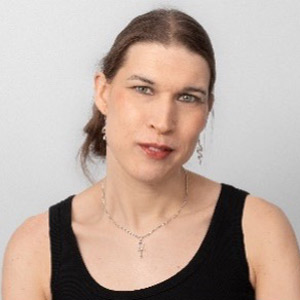
Sofia Kirke Forslund-Startceva is Professor for Applied Microbiology at the Experimental and Clinical Research Centre (ECRC), a joint venture between the Charité University Hospital and the Max Delbrück Centre in Berlin, as well as a German Centre for Cardiovascular Research (DZHK) PI. Her team, the Host-Microbiome Systems Medicine lab, seeks to build and refine models for how human beings (as composites of both their own cells and those of their microbial residents and visitors) succeed or fail in maintaining health over a lifetime, seeking new and improved approaches for disease diagnosis, prognosis, treatment and prevention. To achieve this end, the lab works with high-throughput parallel (“multi-omics”) data from patient cohorts and biosamples, seeking to interlink signals in measured compartments and connect them to differential outcomes. To achieve this end, the lab further works to improve understanding of microbial ecosystems and evolutionary histories, as well as to bring forth new computational and statistical methods for molecular and microbial epidemiology.
Particularly exciting discoveries Sofia have reported on so far include for example:
1) the complex way disease and medication signatures in the microbiome and elsewhere are entangled, motivating caution in study design and the deployment of confounder-aware statistical tools;
2) the role of antibiotics as altering gut microbial ecosystems at individual and population timescales, leading to antimicrobial resistance propagation as well as increasing risk of metabolic diseases;
3) the potential for nutritional interventions such as fasting to restore damaged microbiota with consequences for immune system and metabolism, in a person-dependent manner, as well as offering new venues for drug repurposing and personalized treatment.
Ongoing work in the lab explores these themes further including in the context of cross-organ communication and multimorbidity, as well as how health and homeostasis responses may differ between men and women as well as across our lifetimes. To more fully address these complex systems, Sofia is eager to explore how emerging methods within AI may allow careful harmonization of datasets from across the world so far mainly studied in isolation, thus allowing greater statistical power and better reproducibility of findings. She sees transparency, inclusivity and recognition of (manifold, intersectional) bias as highly relevant as we build the infrastructure of a new world.
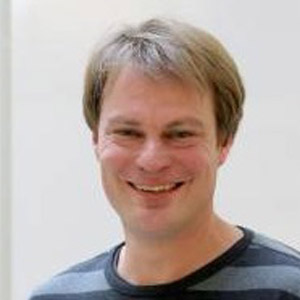
Nils Blüthgen’s interdisciplinary team combines computational approaches (modelling, bioinformatics) with modern experimental tools and models (e.g. organoids, single-cell RNA-sequencing, CyTOF) to disentangle molecular networks involved in cancer progression and drug resistance. Nils Blüthgen is a physicist by training, did his PhD in theoretical biology on modelling MAPK signalling. After a postdoc in computational neuroscience he was a research fellow and honorary lecturer in Systems Biology at the University of Manchester, and short research stays in Bangalore (NCBS) and Paris (Institute Curie), he become group leader and professor for computational modelling in medicine at Charité and Humboldt University.
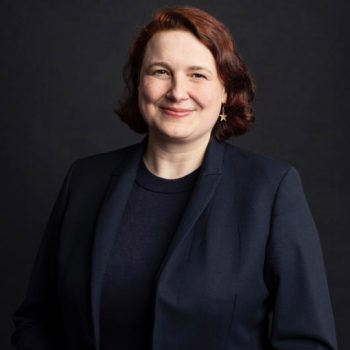
Prof. Dr. Gertraud Stadler holds the professorship for gender-sensitive prevention research at Charité – Universitätsmedizin Berlin. Her central interest is in personalized prevention interventions and the question of how individuals and couples can change their everyday behavior in order to remain healthy throughout their lives and find better ways to dealing with illness. Her work is characterized by interdisciplinary collaboration with medicine, nutritional sciences, nursing sciences, sports sciences, statistics and technology.
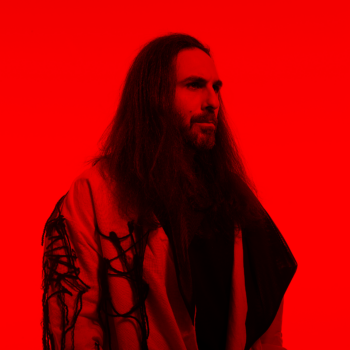
Gadi Sassoon is a classically trained composer and transmedia electronic artist from Milan whose work spans traditional music releases and live installations.
Exploring the boundaries of contemporary music, Sassoon is pushing the sonic and technological frontiers of electronic music and relationships between recorded music, installations, and music creation.
Using sophisticated DIY and experimental systems to create deep listening experiences rich in texture and emotion, Sassoon’s work can be found capturing the hearts of fans at electronic festivals, research institutions, and art galleries worldwide (ie. Sonar Festival Barcelona, EMPAC, United Nations, TEDx).
2025 will see the release of Sassoon’s third album Modes of Vibration which exists across three formats: a traditional album, a groundbreaking live performance and art installation, and a unique piece of software developed especially for the record, created with support from NEMUS (Numerical Restoration of Historical Musical Instruments) and audio plugin maker Physical Audio for the live recording of the album and software development.
Modes of Vibration is a continuation of Sasson’s exploration of the intersection of music and technology, following on from his previous albums Chaos & Order (ASIP 2022) and Multiverse (ASIP, 2020) which were the result of research with physicists and mathematicians, exploring the interplay between sound synthesis, live orchestras, and algorithmically modelled ‘impossible instruments’.
Sassoon also recently collaborated with British Artist Reeps One on Fusion, a musical piece created for the Leipzig International Ballet and the Leipzig Opera, receiving international acclaim.
Outside of performing, Sassoon also composes soundtracks for film companies, collaborates on works with artists at major and independent labels (ASIP, Island, Warner, Universal, Ninja Tune), and is published by Just Isn’t Music, Ninja Tune’s publishing arm.
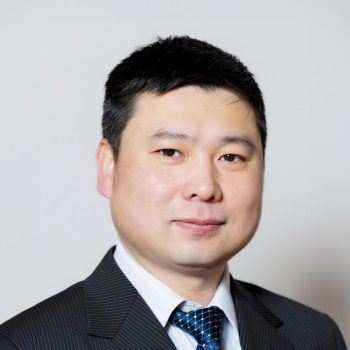
Qi Wang is a Full Professor in Next-Generation Smart Networks and Services at the University of the West of Scotland (UWS), UK. He has served as a Board Member of the EU 5G-PPP Technology Board, Member of several 5G-PPP and 6G-IA Working Groups, and Member of Scotland’s Developing AI and AI Enabled Products and Services Working Group. He is the Principal Investigator for several EU beyond 5G and 6G projects. He has published over 200 papers on 5G, 6G, AI and related areas. He was a Best Paper Award Winner of IEEE ICCE 2012, ICCE 2014, SIGMAP 2014, SOFTNETWORKING 2017 and PETRA 2023. He was a Winner of UK Times Higher Education (THE) Awards 2020 -Knowledge Exchange/Transfer Initiative of the Year Award. He is the Lead Editor of ITU-T Recommendations (international standards) ITU-T Y.3182 and ITU-T Y.3183 on AI for 5G/6G network control, management, and orchestration.

Amanda leads Microsoft’s Responsible AI Public Policy team, which seeks to advance effective and interoperable public policy that helps Microsoft, our customers, and the world secure the benefits and establish guardrails to address the risks of AI. Before joining the Office of Responsible AI, Amanda led Microsoft’s Global Cybersecurity Policy team within its Customer Security and Trust division and authored several publications on cloud security, operational risk management, and critical infrastructure protection. Prior to joining Microsoft, Amanda focused on technology law and policy issues at Indiana University’s Center for Applied Cybersecurity Research, the U.S. Department of State’s Office of Cyber Affairs, and Google and as a fellow of the Eric T. Werner Global Cybersecurity Policy Advancement program. Amanda has a BS in Journalism and International Studies from Northwestern University, an MSc in Refugee and Forced Migration Studies from the University of Oxford, and a JD from Indiana University.
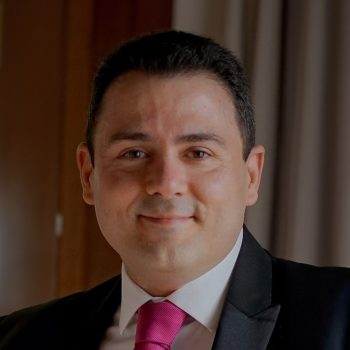
Jose M. Alcaraz Calero is a Full Professor in Cognitive Networks and Services at the University of the West of Scotland (UWS), UK. He is the Principal Investigator for several EU beyond 5G and 6G projects totalling more than 80m EUR. He has published over 250 papers on Next-Generation Networks, Artificial Intelligence, and related areas. He has been Editor for 17 international journals, including the well-known IEEE Communication Magazine and Chair for more than 30 international and reputed conferences. He has served as a Board Member of the EU 5G-PPP Technology Board and Member of several 5G-PPP and 6G-IA Working Groups. He was the Winner of several R&D awards such as UK Times Higher Education (THE) Awards 2020 -Knowledge Exchange/Transfer Initiative of the Year, the 2018 Scottish Knowledge Exchange Award, and the Winner of Scotland Centre for Engineering Education & Development (CeeD) Industries Awards – Innovation Award 2020.
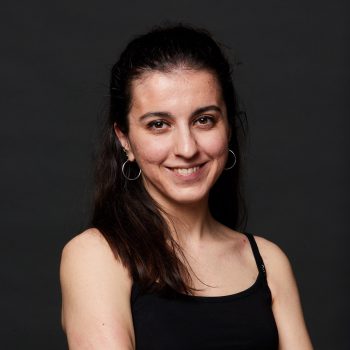
Buse Bilgin is a leading R&D engineer and international telecom standardization leader based in Istanbul, Türkiye. She currently serves as the Chair of the ITU-T Focus Group on Artificial Intelligence Native for Telecommunication Networks (FG-AINN), where she guides global efforts to define AI-native network architectures for future communication systems.
At Turkcell, Buse leads strategic R&D initiatives in 5G and 6G.
She holds a Master’s degree from Koç University and a Bachelor’s degree from Istanbul Bilgi University, and has been recognized for her innovation with awards such as the KUImpact Patent Competition 2022.
Buse is also a co-founder and former ML Engineer at Vrables Lab, where she contributed to photonic-based diagnostic platforms supported by a TUBITAK BiGG grant. She is passionate about shaping the future of intelligent networks.
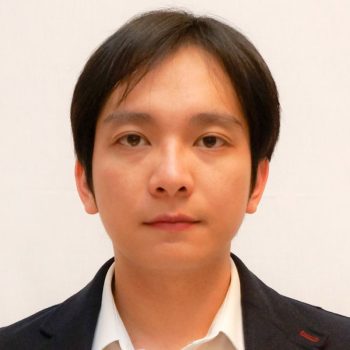
Leon Wong is a senior researcher at Rakuten Mobile and Rakuten Institute of Technology. He holds the role of industry research collaboration lead for the Research & Innovation Lab, dedicated to the research and realization of autonomous networking.
He has over 15 years of experience in IT & telecommunication industry working in various roles such as Engineering Lead, Solution Architect, and Subject Matter Expert in Operation Support System. Prior to taking the role in Rakuten Mobile, he built the High-Performance Computing GPU cluster for Rakuten Group and engaged in research development activities with Rakuten Institute of Technology.
He served as chairman of ITU-T Focus Group of Autonomous Networks (FG-AN), co-chair of TTC Autonomous Network Ad Hoc Group (AN-AH), and Co-convener of ITU Correspondence Group AI for 6G/AI Native for Telecommunication Networks. He is one of the main editors for Autonomous Networks related Recommendations, notably ITU-T Y.3061 – Autonomous Networks – Architecture Framework.
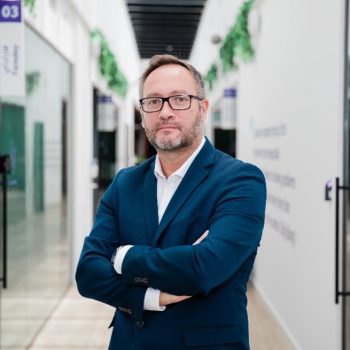
Dr. Thierry Lestable is the Chief Researcher heading Telecom (B5G/6G) & Cybersecurity Units, within Artificial Intelligence & Digital Science Research Center (AIDRC), at the Technology Innovation Institute (TII) in Abu Dhabi, UAE.
His main topics of interest are NextGen Mobility systems, Sustainable & Cognitive Cities, whilst driving applied research/innovation in technologies such as Generative AI for Telecom and Cybersecurity, Semantic communication, Reconfigurable Intelligent Surface (RIS), positioning, mMIMO, SW Vulnerabilities detection & Self-Healing, Network Intrusion Detection and Adversarial Attacks.
From 2019 to 2022, Dr. Lestable was Director, heading the e-Mobility & Automotive Business Department from Sagemcom (France), addressing Market and Products from Intelligent & Connected Vehicles (Telematics, DMS, ADAS), to micro-mobility (e-Bikes). Dr. Lestable was member of the Steering Committee from FIEV Federation, which represents major Automotive Equipment Suppliers, where he promoted the benefits of A.I for road safety.
From 2017 to 2019, he was heading the Industrial IoT Business Department of Sagemcom, designing and manufacturing connected devices, and platforms for the industry (Smart City, Asset Management, Smart Grid, …), rolling out LPWAN Networks worldwide.
Since 2015, as Head of IoT Business Development & Strategic Partnerships in Sagemcom, he actively participated to the Launch of IoT LoRa™ Alliance, being granted the position of Vice-chair for the Strategy Committee in June 2015, then from October 2015 till 2017 was the Vice-Chairman of the Alliance.
From 2008 to 2015, Dr. Lestable was driving Innovation at CTO Office of Sagemcom, in WiFi, 4G Femtocells & GW, IoT, and was elected the first Sagemcom Fellow Expert. He kicked-off two 4G FP7 research projects, BeFEMTO and EXALTED (4G M2M).
From 2004 to 2008, he was leading a research and standardization team in SAMSUNG UK (London), working on 4G IMT-Advanced & WiMAX Evolution, with strong focus onto LDPC Codes, Turbo-Processing and MIMO, whilst contributing to FP6 WINNER-I/II, and creating FP7 DAVINCI STREP (LDPC Codes).
In his early years, with ALCATEL R&I (2000-2003), Dr. Lestable’s research was focused onto B3G/4G Wireless video & Multi-Carrier communications systems.
Dr. Lestable has +25 years’ experience in the Telecom, Mobility and Energy industry, steering industrial innovation, from spark of ideas to prototypes, products, standards, and systems, rolling-out networks, whilst leading new businesses, within organizations such as Alcatel, Samsung, and Sagemcom.
He received both Engg. Degree from Supélec (France) in 1997, and Ph.D, in 2003 from Supélec/Paris Sud-Orsay.
Dr. Lestable is author of 40+ international publications, 20+ patents, editor of 1 Wiley Book on Advanced Channel Coding, co-author in 2 Wiley Books on B3G/4G systems (WWRF collection), was Telecom Expert for the European Commission, Eureka Cluster CELTIC, and the French National Research Agency (ANR).
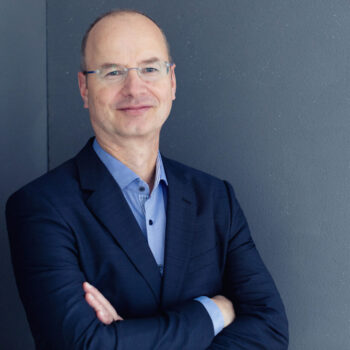
Henning Sanneck is a research manager wireless technology at Apple.
After he received his Dr.-Ing. (PhD) degree in Electrical Engineering from the Technical University of Berlin in 2000, Henning joined Siemens – Mobile Networks, becoming an Innovation Project Manager in 2003. In 2007, at the formation of Nokia Siemens Networks, he started to lead a line team creating Self Organizing Networks (SON) concepts and demos. Since 2009 Henning and his team worked to apply Analytics and Machine Learning technologies to Radio Network Management using network data- and simulation-based approaches. In 2014/15, as Head of Cognitive Network Management, he also was the coordinator of the research & standardization work, including strategy development and technology transfer. From 2016 to 2022 Henning acted as Research Department Head for 5G/6G Network Automation, providing vision, strategy, concepts and IPR to support Nokia’s 3GPP and ETSI standardization efforts (with his department continuously involved in nationally (BMBF) and internationally (EU) funded research projects).
Henning published 80+ papers and has 35 patents granted or published. He was co-editor of the book “LTE Self-Organizing Networks” (2011) and co-author of the book “Towards Cognitive Autonomous Networks” (2020).
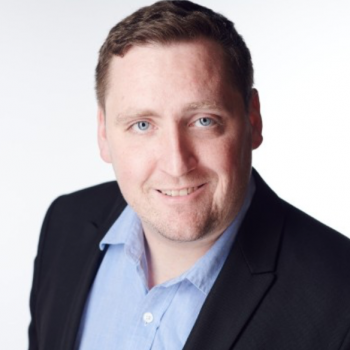
Tim is Co-Founder & CTO at DeepSig Inc, a venture-backed startup building unique AI/ML driven baseband technology which is pioneering the route to the AI-Native 6G RAN, making 4G MIMO and 5 mMIMO vRAN systems performant and autonomous, and pioneering the data-driven sensing and communications intersection with OmniSIG, the state of the art in data-driven wideband RF emission detection, mapping and analytics for vRAN and off-network sensing applications. Tim also serves as a research assistant professor at Virginia Tech in Arlington, VA, and previously worked with a USG lab on applied software and cognitive radio R&D helping lead the GNU Radio project. He is a Co-Chair of the IEEE Emerging Technology Area on Machine Learning for Communications, an editor for Transactions on Wireless Communications and TCCN, and organizer for IEEE SPAWC, IEEE INFOCOM, IEEE GlobeCom, IEEE ICC MLC workshops, GNU Radio Conference, and other events. He has authored of over 50 peer reviewed works with over 4500 citations, over 40 patents on machine learning in wireless communications.
Previously he has previously worked with Hawkeye 360, Federated Wireless, Cisco Systems, and Stochastic Research. He has served on technical advisory boards for NSF, DARPA, EU HORIZON 2020, and other USG programs, and he completed his PhD from Virginia Tech ECE in 2017 and his BS/MS in ECE at NC State in 2007.
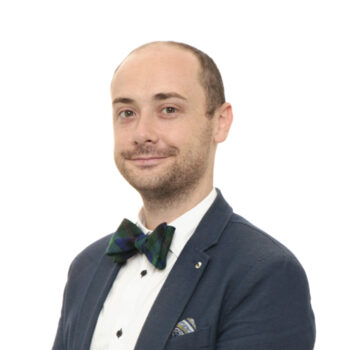
Paul Harvey is a lecturer in Autonomous Systems at the James Watt School of Engineering, University of Glasgow. Here, he is exploring the cross-section of technologies and skills required for safe and meaningful fully-autonomous behaviour of both design and operation.
Additionally, he is a working group co-chair in the UN’s ITU-T Focus Group on Autonomous Networks and a visiting researcher at the University of Strathclyde. Paul also possess extensive experience in industrial research, where he was co-founder and research lead of the Rakuten Mobile Innovation Studio, and is a strong believer in open and collaborative research.
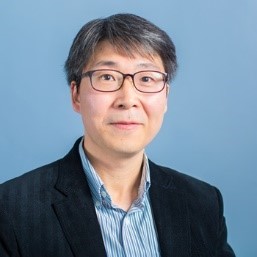
Gyu Myoung LEE is with the Liverpool John Moores University (LJMU), UK, as a Professor from 2014. He was with KAIST Institute for IT convergence, Korea, as an Adjunct Professor from 2012 to 2024. Prior to joining the LJMU, he has worked with the Institut Mines-Telecom, Telecom SudParis, France, from 2008. Until 2012, he had been invited to work with the Electronics and Telecommunications Research Institute (ETRI), Korea. He also worked as a research professor in KAIST, Korea and as a guest researcher in National Institute of Standards and Technology (NIST), USA, in 2007. His research interests include Internet of things, digital twin, computational trust, smart networking and services, multimedia services, and energy saving technologies. He has been actively working for standardization in ITU-T, IETF and oneM2M, etc. He was the chair of ITU-T Focus Group on data processing and management (FG-DPM) to support IoT and smart cities & communities and currently serves as a Rapporteur of Q16/13 and Q4/20 as well as a vice-chair of FG-AINN in ITU-T. He is a Senior Member of IEEE.
He received his BS degree from Hong Ik University, Seoul, Korea, in 1999 and his MS and PhD degrees from the Korea Advanced Institute of Science and Technology (KAIST), Daejeon, Korea, in 2000 and 2007.
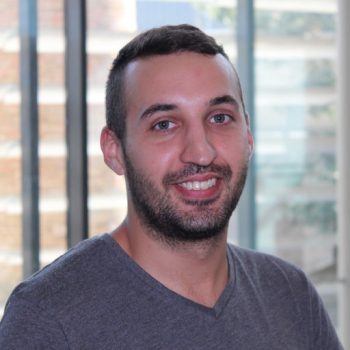
Francesc is a Tenure Track Professor at Universitat Pompeu Fabra (UPF). Previously, he was with Nokia Bell Labs and Centre Tecnològic de Telecomunicacions de Catalunya (CTTC). His main research interests are in Wi-Fi technologies and their evolution, network simulators and network digital twinning, machine learning, decentralized learning, and distributed ledger technologies.
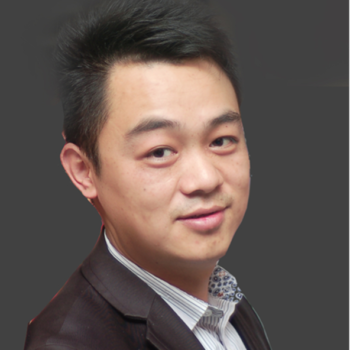
Wei Meng is the director of standard and open-source planning at ZTE Corporation for more than 10 years. Wei is an active Project Team Lead (PTL) of OF-CONFIG in Opendaylight. He is mainly engaged in pre-research and development on Networking and AI. He also has a rich experience in SDN, NFV, IPv6, SFC.

Dr. Nicola Piovesan is a Senior Researcher at Huawei Technologies in Paris, France.
He received the BSc in Information Engineering and the MSc in Telecommunication Engineering from the University of Padova, Italy, in 2013 and 2016, respectively, and the PhD in Network Engineering from the Polytechnic University of Catalunya, Barcelona, Spain, in 2020.
From 2016 to 2019, he was an Assistant Researcher at the Catalan Telecommunications Technology Centre (CTTC) in Barcelona, Spain. In 2016, he has been awarded with a European Commission’s Marie Sklodowska-Curie fellowship to work in the EU H2020 MSCA Sustainable Cellular Networks Harvesting Ambient Energy (SCAVENGE) project, where he investigated new architectures and algorithms to support the integration of renewable energy sources in sustainable mobile networks.
Currently, his research is focused on large-scale network modelling and optimization, green communications, and machine learning applied to wireless communication systems.
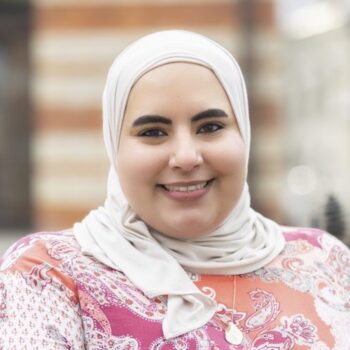
Mennatallah El-Assady is an Assistant Professor in the Department of Computer Science at ETH Zürich, where she leads the Interactive Visualization and Intelligence Augmentation (IVIA) lab. Prior to her current role, she was a postdoctoral research fellow at the ETH AI Center and held research associate positions in Germany and Canada. Her doctoral research on human-AI collaboration earned the prestigious joint dissertation award of the German, Austrian, and Swiss Informatics Societies, along with an honorable mention for the VGTC VIS Doctoral Dissertation Award.
El-Assady’s interdisciplinary work spans data analysis, visualization, computational linguistics, and explainable artificial intelligence, with a focus on designing interactive human-AI collaboration interfaces to enhance problem-solving and decision-making. Her work is driven by a passion for empowering individuals through co-adaptive processes between humans and AI agents.
With extensive experience collaborating with political science and linguistics scholars, El-Assady led the creation of the LingVis.io platform and is currently developing the novel human-AI.io communication framework. She is also a co-founder and co-organizer of several influential workshop series, including Vis4DH and VISxAI.
In recognition of her pioneering contributions, El-Assady was named a Eurographics Junior Fellow in 2023. Her groundbreaking work at the intersection of visualization and machine learning has also earned her the 2024 VGTC Significant New Researcher Award and the 2023 EuroVis Early Career Award.
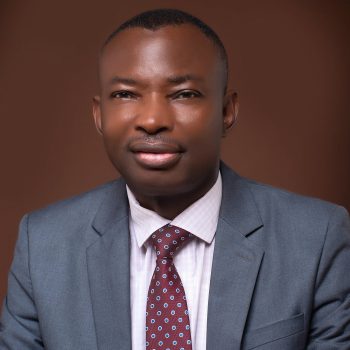
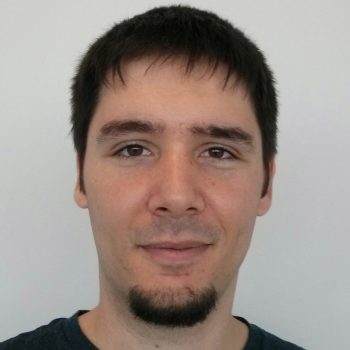
Lucian Petrica is a senior researcher in the AMD Research and Advanced Development (RAD) in Dublin, Ireland. He received a PhD in computer engineering from the Politehnica University of Bucharest and has had research roles at TU Delft, Ixia, Xilinx, and now AMD. His research interests center on FPGA technology and applications, more specifically dataflow DNN acceleration, distributed FPGA computation, and FPGA-based SmartNICs. He is involved in the FINN dataflow inference accelerator compiler project and is a lead developer for ACCL, an MPI-like collective communication library for data center FPGAs.
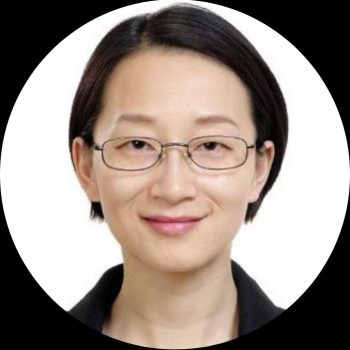
Wenbo Chu has 19 years of experience in working with governments, civil society, private sector, academia and international organizations at the local, national and global level on a wide range of environmental, societal and economic issues. In her role as the Work Programme Officer at the Group on Earth Observations (GEO) Secretariat, she is currently coordinating the development and implementation of the multi-disciplinary GEO Work Programme addressing climate, biodiversity, disaster risk reduction, and urban resilience. Her passion lies in fostering collaboration within the Earth observations community, with a focus on driving tangible benefits and impactful outcomes for decision-makers. Her recent priority includes advocating for integration of advanced technologies such as artificial intelligence within the GEO Work Programme.
Wenbo Chu holds a master’s degree in Environment Engineering from Tsinghua University in 2003. She is also a certified Project Management Professional.
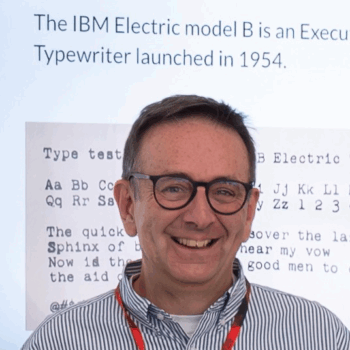
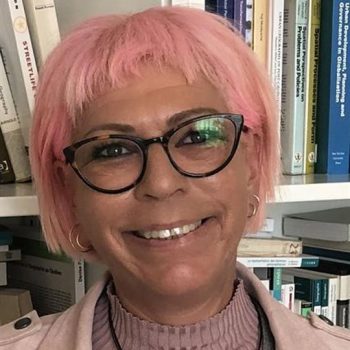
Céline Rozenblat is professor of Urban Geography at the University of Lausanne, vice-president of International Geographical Union (IGU) and chair of the groups of the Geospatial societies of the United Nations Global Geospatial Information Management (UN-GGIM). She was member of the International Science Council (ISC) commission on Urban Health and Well Being: A system approach for 6 years and Director of the institute of geography and sustainability of the University of Lausanne for 5 years. She is member of the Society of Complex Systems, and of the UNESCO UniTwin Digital Campus of complex Systems.
She studies the evolution of power distributions inside and between cities that reshapes the world organization of central/peripheral cities and the complexity of the global urban systems. Actors as multinational firms, or high-level innovation centers, participate actively in these reconfigurations that concentrate wealth, control, innovation, and attractiveness in a few cities introducing increasing inequalities inside and between cities. In the complexity of this multi-level system, how is regionalization of the world reshaping in a multipolar urban world? How does the multi-level perspective highlight some resilience properties and the well-being inequalities in cities? The methodologies derived from complex systems sciences bring new forms of intelligibility to worldwide urban dynamics. Using evolutionary economic geography and urban system science, she underlines large sets of city properties and their evolution in a multi-dimensional and long temporal approach. Diachronic and dynamic models and visualizations aim to offer different perspectives for cities’ policies.
These competencies are put to work with the UN-GGIM institutional frameworks to strengthen the collaboration around Geospatial and statistical Information management and AI. Besides, following her involvement in ISC urban health commission and in the International Society of Urban Health, she developed different research programs with the World Health Organization (WHO) and built a MOOC on the systemic approach on urban health (HUS: Healthy urban Systems) with 30 international recognized scientists.
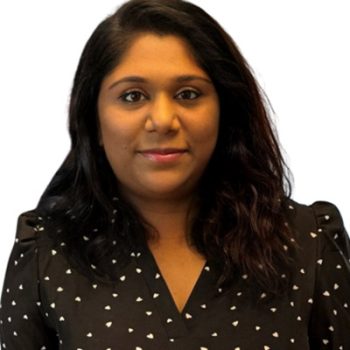
Parvathy K. Krishnakumari is a Data Science and Artificial Intelligence practitioner, currently serving as the Chief Technology Officer at Analytics for a Better World (ABW) in Amsterdam. With a proven track record of managing and scaling AI projects, her efforts include overseeing the technology strategy for impact projects, developing strategic data and analytics roadmaps for non-profits, and leading the design and organization of the ABW Academy, which has trained over 150 non-profit data professionals globally since 2022. In addition, Parvathy leads several pivotal projects as a consultant, including the design, development, and deployment of digital public goods such as Data in Climate Resilient Agriculture Platform (DiCRA) & Vayu – Open Data Stack for Air Pollution for UNDP India and Agri-Food Data Lab and pim-pam.net (a tool for green, resilient, inclusive, and digital public investment and asset management practices) for the World Bank.
She holds an Engineering Doctorate in Data Science from Eindhoven University (TU/e, The Netherlands), a Master of Technology in Energy Management and Climate Change Technology from Jain University (India), and a Bachelor of Technology in Electrical and Electronics Engineering from Amrita University (India).
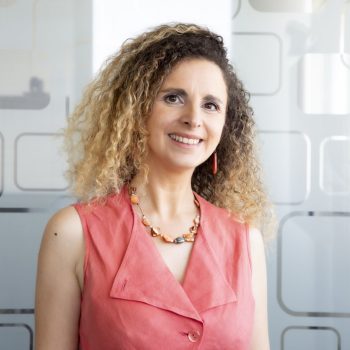
Alessandra Sciutti is Tenure Track Researcher, head of the CONTACT (COgNiTive Architecture for Collaborative Technologies) Unit of the Italian Institute of Technology (IIT). She received her B.S and M.S. degrees in Bioengineering and the Ph.D. in Humanoid Technologies from the University of Genova in 2010. After two research periods in USA and Japan, in 2018 she has been awarded the ERC Starting Grant wHiSPER (www.whisperproject.eu), focused on the investigation of joint perception between humans and robots. She published more than 80 papers and abstracts in international journals and conferences and participated in the coordination of the CODEFROR European IRSES project (https://www.codefror.eu/). She is currently Associate Editor for several journals, among which the International Journal of Social Robotics, the IEEE Transactions on Cognitive and Developmental Systems and Cognitive System Research. She is an ELLIS scholar and the corresponding co-chair of the IEEE RAS Technical Committee for Cognitive Robotics. The scientific aim of her research is to investigate the sensory and motor mechanisms underlying mutual understanding in human-human and human-robot interaction. For more details on her research, as well as the full list of publications please check the Contact Unit website or her Google Scholar profile.
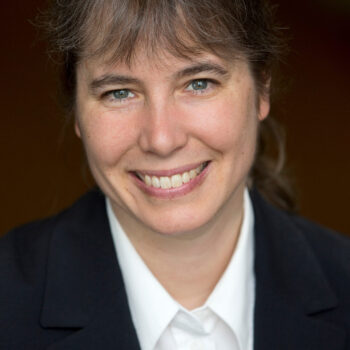
Gitta Kutyniok (https://www.ai.math.lmu.de/kutyniok) currently has a Bavarian AI Chair for Mathematical Foundations of Artificial Intelligence at the Ludwig-Maximilians Universität München. She received her Diploma in Mathematics and Computer Science as well as her Ph.D. degree from the Universität Paderborn in Germany, and her Habilitation in Mathematics in 2006 at the Justus-Liebig Universität Gießen. From 2001 to 2008 she held visiting positions at several US institutions, including Princeton University, Stanford University, Yale University, Georgia Institute of Technology, and Washington University in St. Louis, and was a Nachdiplomslecturer at ETH Zurich in 2014. In 2008, she became a full professor of mathematics at the Universität Osnabrück, and moved to Berlin three years later, where she held an Einstein Chair in the Institute of Mathematics at the Technische Universität Berlin and a courtesy appointment in the Department of Computer Science and Engineering until 2020. In addition, Gitta Kutyniok holds an Adjunct Professorship in Machine Learning at the University of Tromso since 2019.
Gitta Kutyniok has received various awards for her research such as an award from the Universität Paderborn in 2003, the Research Prize of the Justus-Liebig Universität Gießen and a Heisenberg-Fellowship in 2006, and the von Kaven Prize by the DFG in 2007. She was invited as the Noether Lecturer at the ÖMG-DMV Congress in 2013, the Hans Schneider ILAS Lecturer at IWOTA in 2016, a plenary lecturer at the 8th European Congress of Mathematics (8ECM) in 2021, and the lecturer of the London Mathematical Society (LMS) Invited Lecture Series in 2022. She was also honored by invited lectures at both the International Congress of Mathematicians 2022 (ICM 2022) and the International Congress on Industrial and Applied Mathematics (ICIAM 2023). Moreover, she became a member of the Berlin-Brandenburg Academy of Sciences and Humanities in 2017, a SIAM Fellow in 2019, and a Simons Fellow at the Isaac Newton Institute in 2021; she received an Einstein Chair at TU Berlin in 2008, a Francqui Chair of the Belgian Francqui Foundation in 2020, and holds the first Bavarian AI Chair at LMU from 2020 on. She was Chair of the SIAM Activity Group on Imaging Sciences from 2018-2019 and Vice Chair of the new SIAM Activity Group on Data Science in
2021, and currently serves as Vice President-at-Large of SIAM. She is also the main coordinator of the Research Focus “Next Generation AI” at the Center for Advanced Studies at LMU from 2021 to 2023, serves as LMU-Director of the ONE MUNICH Strategy Forum Project on “Next generation Human-Centered Robotics: Human embodiment and system agency in trustworthy AI for the Future of Health”, and acts as current Co-Director of the Konrad Zuse School of Excellence in Reliable AI (relAI) in Munich.
Gitta Kutyniok’s research work covers, in particular, the areas of applied and computational harmonic analysis, artificial intelligence, compressed sensing, deep learning, imaging sciences, inverse problems, and applications to life sciences, robotics, and telecommunication.
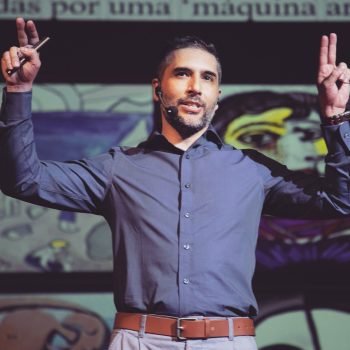
Luca Longo is an Italian computer scientist specializing in Artificial Intelligence, Deep Learning and Argumentation Theory with research in Human performance modelling. He founded the World Conference on Explainable Artificial Intelligence and performs fundamental research in computational models of Cognitive Load. He is a public speaker disseminating technical knowledge to the wider public and contributing to the non-profit organization TED (conference) “ideas worth spreading”. Luca is the recipient of the 2023 “AI Person of the Year” award and also the 2016 and 2021 winner of the Teaching Hero Award in Ireland. He inspires students by creating motivating and stimulating learning environments that support the acquisition of skills and the formation of knowledge applicable in practical contexts through mastering the Community of inquiry in Higher education. Longo is also an educator, striving to empower Education using technology and Artificial Intelligence. He is originally Italian and has a bachelor’s and master’s degree in computer science. He also have masters in Health informatics, Statistics, and a doctorate in Artificial Intelligence acquired at the Trinity College Dublin. At the Technological University Dublin, he obtained two masters in Pedagogy, one in Scholarship of teaching and learning and one in Applied E-learning.
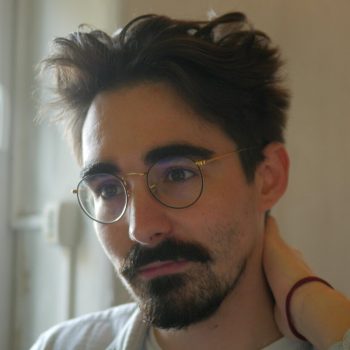
Thomas Fel is a Doctoral student at Artificial and Natural Intelligence Toulouse Institute (ANITI) in France and Brown University, USA, working on Explainable AI. He is also a part of the “Dependable, Certifiable & Explainable AI for Criticial Systems” (DEEL) core team, working to make AI systems certifiable. In September 2024, he will join the Kempner Institute at Harvard as research fellow. Thomas Fel researches large vision models, particularly their explainability and how they align with human vision. Motivated to uncover the secrets behind the exceptional ability of vision models to generalize, he blends computational techniques with insights from neuroscience to better grasp the inner workings of these models. This interdisciplinary approach not only aims to enrich the understanding of artificial intelligence but also positions this knowledge as a tool for probing into human intelligence.
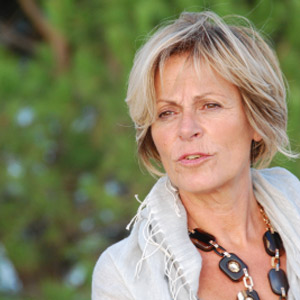
Fosca Giannotti is Full Professor at Scuola Normale Superiore, Pisa, Italy. Fosca Giannotti is a pioneering scientist in mobility data mining, social network analysis and privacy-preserving data mining. Fosca leads the Pisa KDD Lab – Knowledge Discovery and Data Mining Laboratory, a joint research initiative of the University of Pisa and ISTI-CNR, founded in 1994 as one of the earliest research lab on data mining. Fosca’s research focus is on social mining from big data: smart cities, human dynamics, social and economic networks, ethics and trust, diffusion of innovations. She is author of more than 300 papers. She has coordinated tens of European projects and industrial collaborations. Fosca is the former coordinator of SoBigData, the European research infrastructure on Big Data Analytics and Social Mining, an ecosystem of ten cutting edge European research centres providing an open platform for interdisciplinary data science and data-driven innovation. Recently she became the recipient of a prestigious ERC Advanced Grant entitled XAI – Science and technology for the explanation of AI decision making.
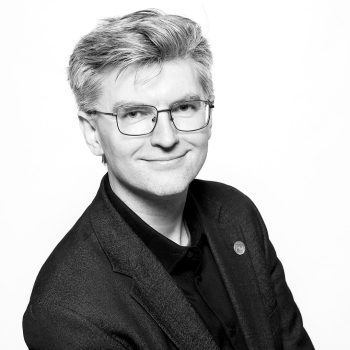
Przemyslaw Biecek is Associate Professor at MiNI@Warsaw University of Technology and assistant professor MIM@University of Warsaw. His personal mission is to enhance human capabilities by supporting them through access to data-driven and knowledge-based predictions. He executes this by developing methods and tools for responsible machine learning, trustworthy artificial intelligence, and reliable software engineering. He is interested in predictive modeling of large and complex data, data visualization, and model interpretability. His main research project is AI, which encompasses tools and methods for the exploration, explanation, and debugging of predictive models. His other research activities focus on applications, mainly high-throughput genetic profiling in oncology. Additionally, he is interested in evidence-based education, evidence-based medicine, general machine learning, and statistical software engineering (being an R enthusiast). He is a big believer in data-literacy.
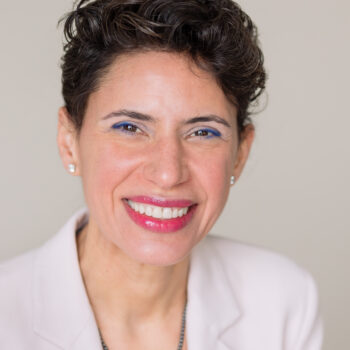
Didem Un Ates is a renowned AI and Responsible AI executive with over 25 years of experience in management consulting (Capgemini, EY, Accenture) and industry roles (Motorola, Microsoft, Schneider Electric). As the founder of LotusAI Ltd, she advises Private Equity firms, Hedge Funds, and Financial Institutions, including Goldman Sachs Asset Management and its 300 portfolio companies, on AI/GenAI strategies, responsible AI implementation, and talent transformation.
Didem serves as Advisor and member of the AI/Generative AI Council for Goldman Sachs Value Accelerator, sits on the Boards of the Edge AI Foundation and Wharton AI Studio, and is a certified AI Algorhytm Auditor and Executive Coach. Her industry contributions have earned her recognition such as the Tech Women 100 Champion and Trailblazer 50 awards.
In her tenure as Vice President of AI Strategy & Innovation at Schneider Electric, she led the development of the company’s AI/GenAI strategy and forged strategic partnerships with startups, VCs/PEs, and academia. At Microsoft, she was pivotal in launching Business AI Solutions at Microsoft Research and spearheaded diversity-focused programs, including ‘Alice Envisions the Future’ and ‘Girls in AI Hackathons.’ In her role as head of Applied Strategy, Data & AI in Microsoft’s Chief Data Office, she managed Microsoft’s largest AI engagements, contributing to the OpenAI partnership.
Didem has led the operationalization of Responsible AI at Microsoft, Accenture, and Schneider Electric, advising C-suite leaders on talent strategy adaptations and promoting responsible AI practices.
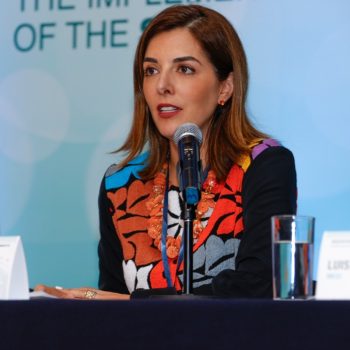
Paloma holds a Bachelor degree in Economics from the Autonomous Technological Institute of Mexico ITAM and Master in Public Administration in International Development from the Kennedy School of Government at Harvard University.
In April 2017, she was appointed Vice President of the National Institute of Statistics and Geography INEGI, coordinating the work of the National Subsystem of Geographic Information, Environment, and Urban Planning. In December 2017 she assumed the Presidency of the United Nations Regional Committee on Global Geospatial Information Management for the Americas (UN-GGIM). Previously, she worked at the Ministry of Social Development as General Director of Evaluation and Monitoring of Social Programs. Also, she worked at the Mexican Institute of Social Security as Coordinator of Strategic Research.
She has participated as a consultant for the government and private companies working on economic and social development issues. She has also been a consultant for international organizations such as the World Bank working on water projects in Indonesia, and for the International Finance Corporation (IFC) on evaluation issues. She has volunteered at BRAC, Bangladesh, the Children’s Fund of Mexico, Grameen Bank and the IMSS Volunteer Program. Her interests lie in generating high quality accessible information for decision making.

Luis is Head of Machine Learning at Dotphoton and concurrently completing his PhD at the Department of Artificial Intelligence of Wojciech Samek at Fraunhofer HHI in Berlin, Germany. His work focuses on data optimality, uncertainty quantification, and robustness in machine learning systems. Together with his collaborators, he develops methods, processes, and tools to identify failure modes in machine learning systems and enhance their performance for reliable real-world application through real and synthetic data.
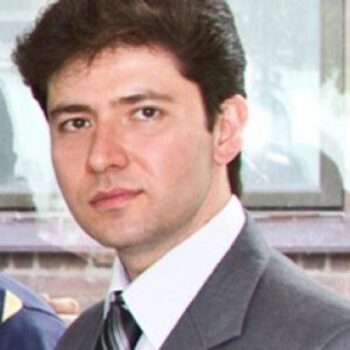
Ali Mansourian is a Professor of Geomatics at the Department of Physical Geography and Ecosystem Science, Lund University, Sweden. He is Director of Lund University GIS Centre, coordinator of the “GIS & RS Master Programme”, and former council member of European AGILE (Association of Geographic Information Laboratories in Europe).
Mansourian has established research directions in Geospatial Artificial Intelligence (GeoAI, which is the intersection of GISceince and Artificial Intelligence), Spatial Data Infrastructures (SDI), and Multi-Criteria Decision Analysis (MCDA) using multi-objective optimization techniques. He has also a long-standing research line in applications of Geographic Information Systems (GIS) in epidemiology and heath, disaster risk management, land-use planning, and environmental management.
In his records, he has also coordination of several large international and national research and capacity building projects, evaluation of major EU/EC research grants, scientific program committee chair and/or organiser of several international conferences and workshops, supervision of PhD students and postdoc researches, invited evaluation committee of PhD theses, and publication of 150+ scientific journal/conference papers, books/book chapters, and technical reports.
For more information, please visit his extended CV.
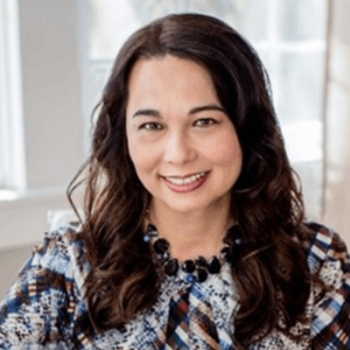
Sooji Seo serves as 3M’s Senior Vice President and General Counsel, Information & Digital, and Chief Privacy Officer, overseeing the legal support for privacy, digital, AI, cybersecurity, records management, information governance and trade secrets protection. Working closely with 3M’s IT and cybersecurity senior leadership, and other key stakeholders, our global legal and privacy compliance team provides strategic guidance to address 3M’s enterprise legal and regulatory risks.
Prior to 3M, Sooji worked for Dell Technologies for 15 years where she advised Dell’s senior management on global consumer protection and technology laws including AI, and enterprise privacy, cybersecurity and trade compliance regulatory risks management.
Sooji has served on the International Privacy Professional Board (Asia) and chairs the Minnesota Future of Privacy Forum Chief Privacy Officers Board. Sooji is passionate about growing talent, promoting diverse and inclusive culture, and serves as 3M’s Co-Executive Sponsor of 3M’s Asians in Action Employee Resource Network Group.
Prior to joining Dell in 2007, Sooji was Asia Pacific General Counsel of Hunter Douglas and Chubb Security, and practiced law at international law firms.
Sooji received her Bachelor of Computer Science and Mathematics Degree from the University of New South Wales (Australia) and graduated from the University of Technology Sydney School of Law, summa cum laude.
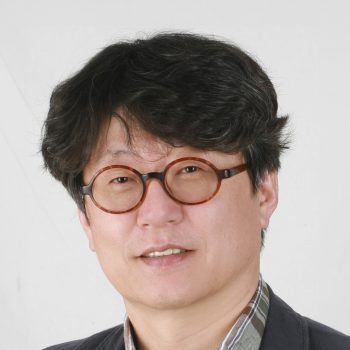
Prof. Ki-Joune Li is working at Graduate School of Data Science and the Department of Computer Science and Engineering at Pusan National University, South Korea. He received his Bachelor’s and Master of Science degrees in computer sciences from Seoul National University, South Korea, Ph.D in spatial databases from INSA de Lyon, France in 1992. His research interests cover most of the topics on spatial technologies including spatial AI or GeoAI. In particular, he has been working on spatial technologies of indoor space for the last decades. He developed an indoor spatial map standard with his colleagues and is also serving as the chair of IndoorGML standard working group in OGC. Recently he is also interested in applying spatial technologies to empower individuals with disabilities such as visually impaired persons or aged persons with reduced mobility. Professor Li was chair of several academic events such as ACM GIS, W2GIS, SSTD, and ACM SIGSpatial ISA as well as the president of Korea Spatial Information Society. He served as the chair of the National Spatial Data Infrastructure Expert Committee in Korea and is a member of the National GIS Council, Korea. Since 2016, he is also leading the UN Open GIS initiative as a co-chair (together with Prof. Maria A. Brovelli), for developing and providing open-source geospatial software to the UN.
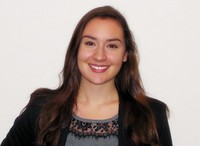
Emily is a data science Master’s student at Harvard University, graduating with the Dean’s List Academic Achievement Award in May 2024. She also holds a Honours Bachelor of Science degree in Economics with Math and Statistics minors from the University of Toronto. Emily wrote her Master’s thesis in collaboration with NASA’s Ocean Ecology Laboratory at the Goddard Space Flight Center. Her research leverages satellite remote sensing data to detect trends and hotspots in phytoplankton populations across the Southern Ocean. This work has been presented at the Harvard AI for Good forum, a NASA seminar, and is being considered for publication in peer reviewed scientific journals. Professionally, Emily has worked in Data Analytics and Data Science for the last 7 years at Fortune 50 companies and Canadian startups. In her spare time, she enjoys traveling and running. She has figure skated for over 10 years and has recently started learning to sail, completing the American Sailing Association 101 certification.
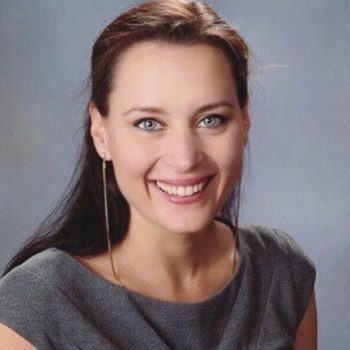
Vivien is a data science Master’s student at Harvard University, graduating with the Dean’s List Academic Achievement Award in May 2024. Her previous studies include a Bachelor’s from Bocconi University and an MBA from Wharton Business School of the University of Pennsylvania. She leads an AI-related collaboration between Harvard, NASA, and NOAA (National Oceanic and Atmospheric Administration) and wrote her data science Master’s thesis with NASA’s Ocean Ecology Laboratory. The thesis leverages AI and satellite data to better understand the Earth’s water bodies, particularly phytoplankton, an aquatic microscopic organism producing over 50% of the Earth’s oxygen. Previously, she supported UNEP- and UNICEF-sponsored projects as a volunteer and international advisor. Her previous speaking engagements include TechCrunch Disrupt, SharkTank x Harvard, AI for Good by Harvard, and 2 NASA seminars. By profession, she is an entrepreneur in the media & entertainment industry and previously Google, McKinsey & Company, and Bridgewater Associates employee. She is originally from Hungary, outdoor sports enthusiast, and holds a Guinness World Record in long-distance cycling
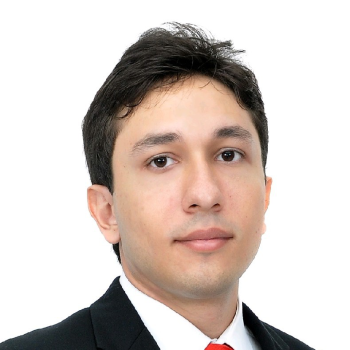
Ronan is a data science Master’s Student at Harvard University, graduating with the Dean’s List of Academic Achievement in May 2024. Before his work in Data Science, Ronan earned a Bachelor’s in Law from the Federal University of Espírito Santo (UFES) and a Bachelor’s in Economics from FUCAPE Business School, both in Brazil. Ronan’s thesis uses machine learning models to predict phytoplankton levels in freshwater bodies based on hyperspectral data, obtainable both through handheld devices and in the near future through NASA’s PACE satellite. His work leverages the power of AI to monitor phytoplankton levels for scientific research and water quality management.
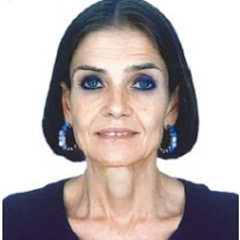
Tiziana Bonapace is the Director of Information and Communications Technology and Disaster Risk Reduction Division at the United Nations Economic and Social Commission for Asia and the Pacific (UN ESCAP). With a career spanning over 30 years in the UN, she has held various roles, including Head of the Subregional Office for North and Central Asia. Bonapace, an international development economist, joined the UN in 1990 as a UNIDO associate expert before joining ESCAP’s trade and investment program in 1992. She specialized in WTO-related issues and coordinated the flagship Economic and Social Survey of Asia and the Pacific. Passionate about regional connectivity, she has worked extensively on infrastructure integration and market competitiveness since 2011. In 2016, she assumed leadership of ESCAP’s ICT and Disaster Risk Reduction program, organizing three Ministerial Conferences on the subjects. Bonapace’s diverse background includes living and working in Italy, Thailand, Kazakhstan, and South Africa, where she earned her master’s degree in economics and commerce and lectured at universities.
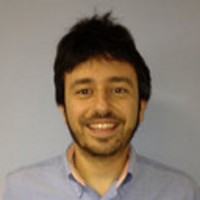
Dr. Andrea Nascetti is a research scientist at the Department of Urban Planning and Environment at KTH Royal Institute of Technology in Stockholm, Sweden. Before joining KTH, from 2013 he was a postdoc researcher at the University of Rome “La Sapienza” and during his studies, he acquired a significant background in Geomatics, Remote Sensing (Photogrammetry, SAR, Radargrammetry) and Computer Vision.
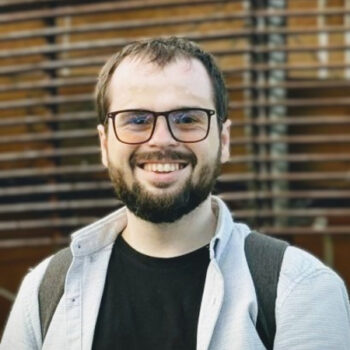
Goal-oriented ICT Researcher and Engineer with strong analytical thinking skills and a passion for technology, particularly Metaverse, AI and Fog computing as infrastructure for 5G/6G.
I am currently an Associate Professor at St. Petersburg State University of Telecommunications and Lead of experimentals in “MeganetLab 6G”. My PhD thesis, “Future Infrastructure & Services Based on AI,” was defended in 2021 at SPbSUT and focused on AI as a tool for telecommunications.
Over the past several years, I have gained multidisciplinary experience in various technological roles, including business analyst, system architect, and product manager. I have also actively participated in ITU standardization as a delegate and editor of new Drafts representing SPbSUT. Recently, I returned to R&D, focusing on the development of future technologies, leveraging my expertise in digital product development and international standardization.
I am the author of more than 60 scientific papers, the book “Software-defined Network” (Russian lang.), and the book “Enabling Metaverse and Telepresence Services in 6G Networks” (English lang., published by River Publishers). In 2024, our team “HolNetVerse” won 3rd place in the “United Nations Metaverse Think-a-Thon: Virtual Worlds Revolutionizing Smart Sustainable Cities and Communities” competition.
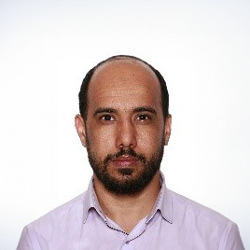
Prof. Ammar Muthanna (Senior Member, IEEE) received the B.Sc., M.Sc., and Ph.D., Dr.Sc. degrees from the Saint-Petersburg State University of Telecommunications, in 2009, 2011, 2016, and 2023 respectively. Dr. Ammar holds a Professor position at the Saint-Petersburg State University of Telecommunications. From 2017 to 2019, he was a Postdoctoral Researcher and from 2020 he is director of Scientific Center for Future Wireless Networks Modeling at RUDN University. He took part in the Erasmus Student Program at the Faculty of Electrical Engineering, University of Ljubljana, in 2012 and 2013, and was a Visitor Researcher at Tampere University, Finland, in 2014. He is an IEEE Senior Member and an ACM Professor Member. He has been an Active Member of the Technical Program Committee on many international conferences and journals, serving as Chair/Co-Chair of several Scopus conferences, he serves as an academic editor or associate editor for many indexed journals in the Web of Science (WoS) and Scopus. He is also an Editor of draft recommendations in ITU-T SG 11, SG 13, and SG 16. He is the Expert on the Judges Panel and the Challenge Management Board at AI-5G-Challenge, ITU, and Organizer of the Russian Host in 2020 and 2021 at Saint-Petersburg State University of Telecommunications. His research interests include wireless communications, 5G/6G cellular systems, artificial intelligence, High-density IoT, telepresence applications, edge/fog computing, and software-defined networking.
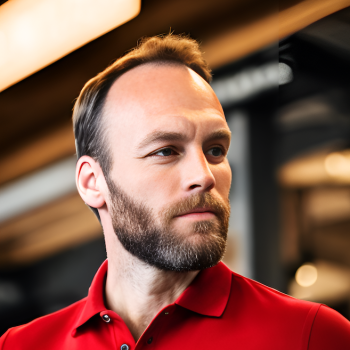
Jon Geater has over 20 years of commercial crypto, hardware, and cyber security experience leading technology and product teams at the cutting edge of technology and security innovation with such industry leaders as nCipher, Thales, ARM and Trustonic. He is dedicated to furthering the industry through open collaboration has founded and edited successful industry standards in the areas of trusted execution, trusted computing, payments cryptography, and enterprise key management as well as serving multiple terms in official leadership and technical positions in Digital Twin Consortium, Hyperledger, PCI Council, OASIS, GlobalPlatform, and TCG. He is currently co-chair of the IETF Supply Chain Integrity, Transparency and Trust Working Group.
As co-founder and CPO of DataTrails Jon is seeking to bring long-term integrity and transparency to every digital supply chain…in other words, reclaiming trust in the Internet.
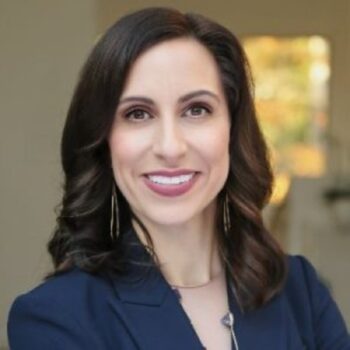
Melike Yetken Krilla serves as the Head of International Organizations at Google, leading strategic tech policy initiatives and cultivating impactful partnerships with global bodies such as the United Nations, the Organization for Economic Cooperation and Development (OECD), and the World Bank.
Her distinguished career spans 15 years in U.S. public service, including significant roles at the U.S. Department of State and the White House. As Senior Advisor for Corporate Responsibility and U.S. National Contact Point, she directed a team in guiding governments, NGOs, and businesses on responsible international operations. Prior to that, as Director for African Affairs on the National Security Council at The White House, Melike executed the landmark U.S.-Africa Leaders Summit. This unprecedented event brought together over 50 heads of state and leading CEOs to Washington, D.C., to foster increased trade and investment with the U.S. and across Africa. Earlier, she spearheaded the Business and Human Rights team and was a lead U.S. negotiator at both the UN General Assembly and the UN Human Rights Council.
Melike is an honors graduate of Indiana University’s School of Public and Environmental Affairs, specializing in public policy. Her influence in global dialogues is further recognized by her designation as a “Young Global Leader” by the World Economic Forum and her role as a Term Member of the Council on Foreign Relations. She has also contributed her expertise to advisory boards for the University of Oklahoma College of Law’s Center for International Business and Human Rights and the Global Reporting Initiative’s Government Advisory Board. Currently, she serves on the Board of Directors for the U.S. Council for International Business and the International Student House. Melike resides in McLean, VA, with her husband and four children.
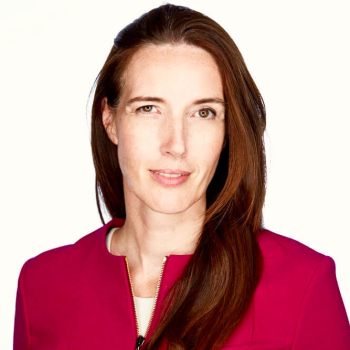
Helena Leurent is Director General of Consumers International, the membership organisation for 200+ consumer advocacy groups around the world in more than 100 countries. Consumers International works with members and partners to empower consumers, to ensure consumers are treated safely, fairly and honestly worldwide, and to drive change in the marketplace on global consumer issues including digital access and rights, product safety and sustainability.
Prior to joining Consumers International, Helena worked for the World Economic Forum developing global partnerships and programmes with government, business, civil society and academia on issues such as advanced manufacturing, sustainable agriculture and humanitarian assistance. Helena has also worked for Tesco Stores Plc, Unilever, McKinsey & Co and The LEK Partnership. Helena holds an MA from the University of Oxford and an MBA from the Kellogg School of Management.
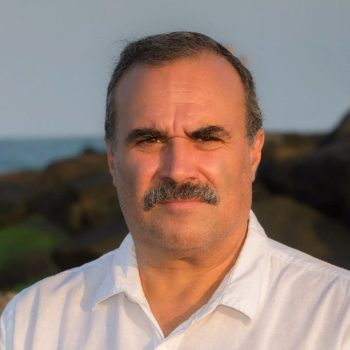
Leonard Rosenthol is the Senior Principal Architect for PDF & the Document Cloud at Adobe, having been involved with PDF technology for more than 20 years. He represents Adobe on various international standards bodies including the ISO (where he is the Project Editor for PDF/A, PDF/X and PDF/E), W3C and ETSI/ESI (where he authored the PDF Electronic Signature standard, PAdES).
Prior to re-joining Adobe in 2006, Leonard worked as the Director of Software Development for Appligent, and the Chief Innovation Officer for Apago, while also running the successful consulting business of PDF Sages. Before becoming involved in PDF, Leonard was the Director of Advanced Technology for Aladdin Systems and was responsible for the development of the StuffIt line of products.
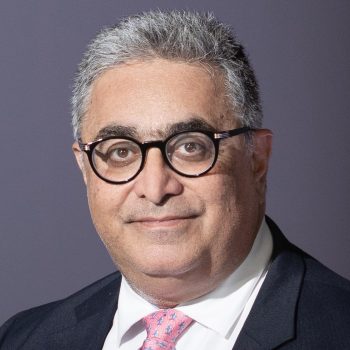
Touradj Ebrahimi is professor of image processing at Ecole Polytechnique Fédérale de Lausanne (EPFL) and active in teaching and research in multimedia signal processing.
He is the Director of Multimedia Signal Processing Group at EPFL. Since 2014, he has been the Convenor (Chairman) of the JPEG standardization Committee which has produced a family of standards that have revolutionized the imaging world.
He represents Switzerland as the head of its delegation to JTC1 (in charge of standardizing information technology in ISO and IEC) and SC29 (the body overseeing JPEG and MPEG standardization) and is a member of ITU as the main representative of EPFL.
Prof. Ebrahimi is also involved in Ecma International as a member of its ExeCom. He serves as a consultant, evaluator, and expert for the European Commission and other governmental funding agencies in Europe and advises several Venture Capital companies in Switzerland in their scientific and technical audits. He has founded a number of startup and spinoff companies in the past two decades, including the most recent, RayShaper SA, a research startup company based in Crans-Montana, Switzerland, involved in AI-powered multimedia.
His areas of interest include image and video compression, media security, quality of experience in multimedia and AI based image and video processing and analysis. Prof. Ebrahimi is a Fellow of the IEEE, SPIE, EURASIP and AAIA and has been the recipient of several awards and distinctions, including an IEEE Star Innovator Award in Multimedia, an Emmy Award on behalf of JPEG and the SMPTE Progress medal.

Melinda Claybaugh is a Director of Privacy Policy at Meta. She works to achieve Meta’s vision of globally-consistent privacy and data regulations that protect people’s data while enabling innovation—by driving advocacy on specific legislative proposals, while also helping design policy solutions for complicated or novel issues, including AI and immersive technology. She has represented Meta at various international convenings, including the OECD and the IGF, as well as regularly advocating with government stakeholders around the world. She previously spent 12 years at the Federal Trade Commission, where she worked in the Division of Privacy and Identity Protection on enforcement actions related to consumer. Melinda later joined the FTC’s Office of International Affairs, where she specialized in international digital policy. She represented the United States in discussions at the OECD, the UN, and in APEC, where she helped design global frameworks to enhance consumer privacy protections and strengthen enforcement cooperation among data protection authorities.
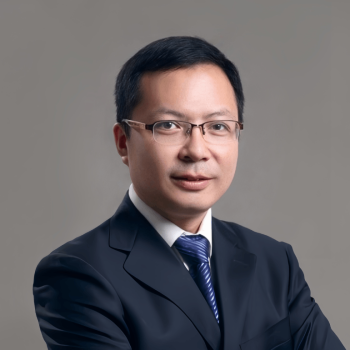
Dr. Li Wenyu, Professor level Senior Engineer, Director of the Intellectual Property and Innovation Development Center, Judicial Appraisal Institute, and Science and Technology Ethics Research Center of the China Academy of Information and Communications Technology(CAICT). His main research areas include future industrial policies and laws, innovation and intellectual property, corporate compliance governance, and court science. Hosted and completed more than 20 national and provincial-level scientific research projects, and applied for 18 invention patents; Hosted or responsible for completing more than 30 technical standards in the communication industry; Published 2 academic monographs and over 40 academic papers.
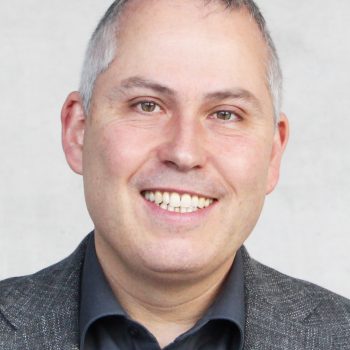
Peter Eisert is Professor for Visual Computing at the Humboldt University Berlin and heading the Vision & Imaging Technologies Department of the Fraunhofer HHI, Berlin, Germany. He received the Dipl.-Ing. degree in Electrical Engineering “with highest honors” from the Technical University of Karlsruhe, Germany, in 1995 and the Dr.-Ing. degree “with highest honors” from the University of Erlangen-Nuremberg, Germany, in 2000. In 2001, he worked as a postdoctoral fellow at the Stanford University, USA, on 3D image analysis and synthesis as well as facial animation and computer graphics. In 2002, he joined Fraunhofer, where he is still holding a leading position after becoming professor at HU Berlin in 2009. He is coordinating and initiating numerous national and international 3rd party funded research projects with a total budget of more than 25 Mio Euros. He has published more than 200 conference and journal papers and is Associate Editor of the International Journal of Image and Video Processing as well as in the Editorial Board of the Journal of Visual Communication and Image Representation. His research interests include 3D image/video analysis and synthesis, face and body processing, image-based rendering, computer vision as well as computer graphics in application areas like multimedia, security and medicine.
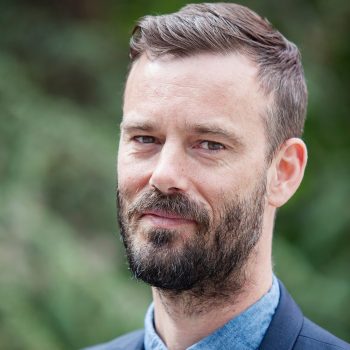
Philippe Stoll works currently at the intersection between technologies and armed conflicts for the International Committee of the Red Cross (ICRC). He engages with governments, the academic, the humanitarian and the private sector with the objective to better protect people affected by armed conflicts from the impact of AI, cyber warfare, digital surveillance, harmful information or autonomous weapon systems. Passionate with making these issues more concrete, he created the Digital Dilemmas immersive experience and co-produced an online course Humanitarian Action in the Digital Space. In October 2024, he co-created with EPFL and the Swiss Mission to the UN in New York the installation Deepfake and You, presented at the UN headquarters in New York.
In his 22 years of career at the ICRC, Philippe has managed strategic and public communications at Headquarters, and was based in Sierra Leone, Israel and the Occupied Territories, India, and conducted field missions in Afghanistan, Myanmar, Lebanon, Ethiopia and in Ukraine.
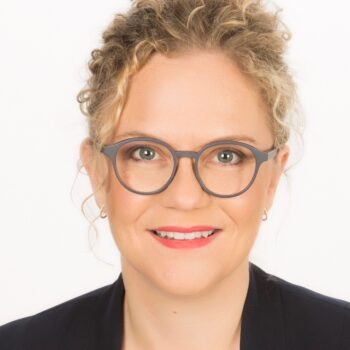
Katharina Frey is a Swiss diplomat who is currently serving as Deputy Head of the Digital Foreign Policy division within the Swiss Foreign Ministry, which she helped to establish. She is leading several key projects on Switzerland as a digital host state and on cybersecurity for International Geneva. She is also currently leading the incubation phase of the International Computation and AI Network (ICAIN) Initiative, a joint project with ETH/EPFL and several international partners aimed at broadening access to AI research and development. She holds a Master’s degree in Law from the Universities of Zurich and Geneva, as well as a Master’s degree in Public Administration from the London School of Economics.
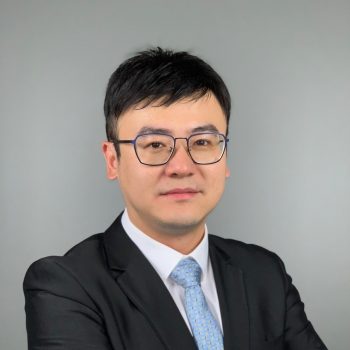
Dr. Pai Zheng (SM’IEEE/CMES, M’ASME/SME, CIRP Research Affiliate) is currently an Associate Professor (2024 – ), Wong Tit-Shing Endowed Young Scholar in Smart Robotics, Leader of RAIDS research group and Director of PolyU-Rhein Köster Joint Laboratory on Smart Manufacturing, in the Department of Industrial and Systems Engineering, at The Hong Kong Polytechnic University. Prior to this, he has been a Research Fellow at Nanyang Technological University, Singapore (2018-2019). He received the Dual Bachelor’s Degrees in Mechanical Engineering (Major) and Computer Science and Engineering (Minor) from Huazhong University of Science and Technology, Wuhan, China, in 2010, the Master’s Degree in Mechanical Engineering from Beihang University, Beijing, China in 2013, and the Ph.D. degree in Mechanical Engineering at The University of Auckland, Auckland, New Zealand in 2017. His research interests include human-robot collaboration, smart product-service systems, and industrial AI. Dr Zheng is a recipient of the SME Outstanding Young Manufacturing Engineers Award (2024), HKPU Young Innovative Researcher Award (2023), and Global Top 50 AI+X Chinese Scholar by Baidu (2022). He serves as the Associate Editor of Journal of Intelligent Manufacturing and Journal of Cleaner Production, Editorial Board Member of Journal of Manufacturing Systems, Advanced Engineering Informatics and Journal of Engineering Design, and Guest Editor/Reviewer for several high impact international journals in the manufacturing and industrial engineering field.
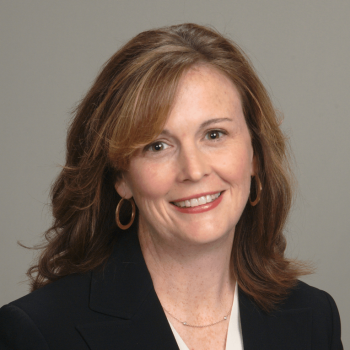
Andrea Abell recently joined Eli Lilly as the Chief Information Security Officer where she is excited to tackle an evolving set of security challenges that require balancing technology, business priorities, and human nature. Prior to joining Lilly, Abell was the CISO at NBCUniversal responsible for protecting a global ecosystem, encompassing a diverse portfolio ranging from live broadcasts and filmed content to theme parks and streaming services. Over six years, the NBCUniversal cyber team transformed into a proactive and intelligence-driven cyber organization. During her 17 years at Lockheed Martin, Abell held a variety of positions and earned a reputation as a cyber security thought leader, implementing innovative and robust cyber solutions.
As much as she enjoys her work in cyber security, Abell is incredibly proud of her life outside of work. She and Patrick, her husband, have 3 amazing kids: Luke (20), Max (16), and Maggie (13). When not spending time with her family, Abell can be found enjoying outdoors, spending time with friends, and supporting a few organizations with causes important to their family.
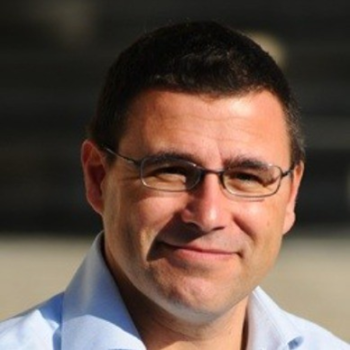
Joaquim Barris assumed the role of Statistician at the Mitigation division at UNFCCC in 2014. In this position, he oversees the development and integration of data services, guiding the division’s data strategy.
With a robust background in data science, Joaquim has made significant contributions to different fields. Educated globally, he holds multiple degrees, including a PhD from Barcelona Tech.
Throughout his career, Joaquim has demonstrated a keen ability to lead the development of advanced data-driven decision-making processes. His work at the UNFCCC, coupled with his previous experiences in the private sector, underscores his commitment to leveraging data analytics for impactful solutions.
Since 2020, Joaquim Barris has also led multiple initiatives in artificial intelligence at the UNFCCC, focusing on deep learning, natural language processing (NLP) techniques, and, more recently, on large language models (LLM). His innovative approach to integrating AI into the organization’s data ecosystem has enhanced the UNFCCC’s ability to improve and accelerate several processes under the umbrella of AI diplomacy.
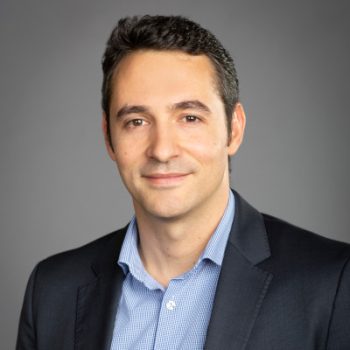
From now on I am a Full Professor at the Department of Engineering Cybernetics of the Norwegian University of Science and Technology (NTNU) at Trondheim, Norway. NTNU is a hub for robotics in Europe so please visit our lab webpage to see what we are up to! Before joining NTNU, I was an Associate Professor the University of Nevada, Reno and the Department of Computer Science and Engineering, where I got tenured at the end of 5-th year of work. Prior to that I had been working as a Senior Researcher at the Autonomous Systems Lab (ASL) of ETH Zurich led by Prof. Roland Siegwart. I obtained my PhD on Unmanned Systems Control and Collaboration under the supervision of Prof. Anthony Tzes, at the Anemos Group of the University of Patras in Greece. My research goal is to contribute towards establishing true navigational and operational autonomy for robotics and especially aerial sytems. I particularly focus on the fields of Control and Optimization, Path-Planning and autonomous navigation. Within my research endeavour I had the opportunity to see my efforts and contributions becoming a key component of several major research projets. I also truly enjoy the design and development of new robots and I have a personal preference on aerial systems with advanced dynamic properties. |
I was born in Crete in 1984, where I grew up until I moved to Patras to continue with my engineering studies. I believe in teamwork and collaboration, novelty, hard work and open sharing of ideas, multi-discipline research cooperation and the necessity to put our efforts into the service of the society.
I have worked and organized a variety of large-scale research projects, including (for a complete list of projects please check here):
- NRI: Collaborative Research: Multi-Modal Characterization of DOE-EM Facilities – this National Robotics Initiative project is funded by DOE and aims to provide new autonomous robotic systems to monitor, inspection and multi-modal (Rad/Chem/3D) map nuclear facilities. It is the product of the collaboration of our lab at UNR and the Robotics Institute of Carnegie Mellon University.
- AEROWORKS project ( Collaborative Aerial Robotic Workers ), Horizon 2020 ICT programme, Organization of the proposal (accepted), Technical director, Responsible for ETH Zurich and leader of the Project Aerial Robotic Manipulation Control Work Packages and main role in path-panning for Inspection Operations.
- ICARUS, aiming to develop the technologies for multiple and highly heterogeneous (aerial, ground, marine) robots for search and rescue applications. The developments of our team also contribute to the goals of another European Project called SHERPA.
- AtlantikSolar, a project internally organized by ASL and funded via several investor channels and private-sector collaborators. AtlantikSolar aims to prove that small UAVs may have extreme endurance using solar-power and special design. Essentially, the developed UAV has the capability of continuous flight over several days and a relevant demo of crossing the Atlantic Ocean will be organized!
- AIRobots, which investigated the theoretical and technological tools necessary to accomplish the mission of aerial infrastructure inspection through vision and physical interaction. AIRobots sucessfully accomplished its goals by March 2013.
Get more information in the Projects page, or get an overview of my Research and Publications.
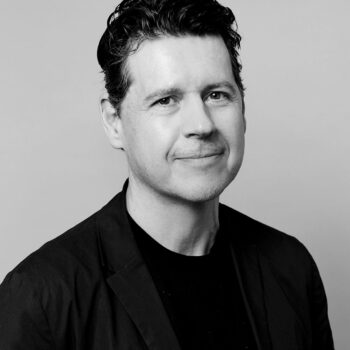
Greg Williams is the Editor-in-Chief of WIRED UK and Deputy Global Editorial Director of WIRED. A content creator, speaker and strategic forecaster who has held senior leadership roles in London and New York, Greg is interested in what’s coming next and understanding the ideas, organizations, trends and technologies that will shape the future. He has interviewed many senior leaders in business, technology and policy, including Bill Gates, Satya Nadella, Demis Hassabis and former UK Prime Minister Tony Blair. Greg has written for numerous titles, including The Guardian, Newsweek and The Observer and was awarded British Society of Magazine Editors ‘Editor of the Year, Science & Technology’ in 2017, 2018, 2020 and 2024. His longform story on the UK’s biggest ever cocaine heist was highly commended by the British Society of Magazine Editors. Greg was a judge of the Royal Society Science Book of the Year award 2018 and is the author of six novels.

Lin Zhang, is a professor of Beihang University. He received the B.S. degree in 1986 from the Department of Computer and System Science at Nankai University, China. He received the M.S. degree and the Ph.D. degree in 1989 and 1992 from the Department of Automation at Tsinghua University, China. From 2002 to 2005 he worked at the US Naval Postgraduate School as a senior research associate of the US National Research Council. He served as the President of the Society for Modeling and Simulation International (SCS), the executive vice president of China Simulation Federation (CSF), the president of Federation of Asian Simulation Societies (ASIASIM). He is a Fellow of SCS, ASIASIM and CSF, a chief scientist of the National 863 Program and National Key R&D Program of China. He serves as the Director of Engineering Research Center of Complex Product Advanced Manufacturing Systems, Ministry of Education of China, Editor-in-Chief and associate editors of 8 peer-reviewed international journals. He authored and co-authored more than 300 papers, 20 books and chapters. He received the National Award for Excellent Science and Technology Books, the Outstanding Individual Award of National High-Tech R&D Program, the National Excellent Scientific and Technological Workers Awards, and the SCS Outstanding Professional Contribution Award. His research interests include service-oriented modeling and simulation, cloud manufacturing and simulation, model engineering, model based system engineering, cyber-physical systems, M&S for manufacturing systems, etc.

Dr. Lei Ren is a professor with the School of Automation and the School of Software, Beihang University. He is the first recipient of the National Science Fund for Distinguished Young Scholars in the field of Industrial Internet in China. He is one of the core contributors to the first theoretical and technical system, the first prototype system and the first national standard in the field of Industrial Cloud Manufacturing. He has presided over more than 20 national projects such as the National Key Research and Development Program, and Major Research Program of National Natural Science Foundation of China. He has chaired or participated in more than 10 international/national/industry standards.
He has published more than 100 papers in IEEE journals and other journals or conferences, and his core technology achievements have been applied to several large-scale Industrial Internet platforms and large enterprises, which have won significant economic and social benefits. He has been the chair of dozens of international and domestic conferences or forums such as IEEE. He is a member of the expert committees or professional committees of more than 10 domestic and international academic organizations, such as IEEE, CCF, CAAI, CAA, CSF, etc. He is also a council member of the China Simulation Society, the deputy director of the Special Committee on Intelligent Things of the China Simulation Society and the deputy director of the Special Committee on Cloud Control and Decision Making of the China Accusation Society. He is a member of the editorial board of top international journals such as IEEE TNNLS

Dr. Qu Dongyu took office on 1 August 2019 as the ninth Director-General of the Food and Agriculture Organization of the United Nations (FAO) and was re-elected for a second four-year term on 2 July 2023.
During his first term, Dr. Qu championed a wide range of reforms and initiatives to overhaul the Organization’s business model, improving efficiency and implementing best practices that support programs and administrative effectiveness.
Dr. Qu strongly advocated for the transformation of agrifood systems to make them more efficient, more inclusive, more resilient and more sustainable and promote the Four Betters: better production, better nutrition, a better environment and a better life, leaving no one behind with the ultimate goal of helping Members to achieve the Sustainable Development Goals (SDGs).
Dr. Qu launched six core initiatives during the first term, which have generated significant achievements on the ground:
- The flagship Hand-in-Hand Initiative that supports the implementation of country-led and country-owned ambitious programmes to accelerate agrifood systems transformations using advanced geospatial modelling and analytics as well as a robust partnership-building approach to raise incomes, improve the nutritional status and well-being of poor and vulnerable populations, and strengthen resilience to climate change.
- The 1000-Digital Villages Initiative that promotes E-agriculture, E-commence and E-governance in rural areas for the benefit of the local community, enabling them to apply, deploy or harness digital innovations and technologies, services and solutions, to improve their economic livelihoods, individual wellbeing, and create social cohesion through better connectivity.
- The One Country One Priority Product (OCOP) Initiative that places the production, distribution and marketing models of smallholders and family farming at the centre of interventions. It helps countries leverage their potential and identify Special Agricultural Products (SAPs) adapted to their agro-ecological production systems, and national or cultural heritage, ensuring improved access to stable markets and acting as a key entry point for reaching their defined priorities.
- The Green Cities Initiative that focuses on improving the urban green economy, strengthening urban-rural linkages and improving the resilience of urban food systems, services and populations to external shocks.
- The One Health approach that works as part of agrifood systems transformation to balance and optimize the health of people, animals, plants and the environment. Ensuring a One Health approach is essential for progress to anticipate, prevent, detect and control diseases that spread between animals and humans, tackle antimicrobial resistance (AMR), ensure food safety, prevent environment-related human and animal health threats, among others.
- The Blue Transformation Initiative that is central for increasing nutrients, through fisheries and aquaculture, in an efficient way in relation to input and output, so as to allow Member countries to achieve a diverse diet and increase food availability, and especially to improve access to healthy diets.
Before first being elected as FAO Director-General, Dr. Qu served as China’s Vice Minister of Agriculture and Rural Affairs (MARA), where one of his achievements was to promote inclusive and innovative development and make sure information and communication technologies (ICT) were available in rural areas so that more than 400 million farmers could use their smartphones as a new farming tool. Another national initiative led by Dr. Qu was to improve reporting of wholesale prices for agricultural products in China and foster the establishment of more than 100 specialty production areas geared to making local comparative advantages work to the benefit of local farmers.
As Vice Governor of Ningxia Hui Autonomous Region, one of China’s landlocked and poorest areas, Dr. Qu formulated action plans aimed at poverty reduction, disaster reduction and prevention, women empowerment, agritourism and mutual learning platforms designed to boost trust between ethnic groups.
Before serving the senior leadership roles in government at central and local level, Dr. Qu was the Vice President of Chinese Academy of Agricultural Sciences (CAAS) and the Human Resources Director at the China Three Gorges Project Development Corporation, a $40 billion investment project.
Born in 1963 to a rice-growing family in China’s Hunan Province, Dr. Qu studied horticultural science at Hunan Agricultural University and then plant breeding and genetics at the Chinese Academy of Agricultural Sciences. He later added environmental science to his knowledge portfolio while earning a PhD at Wageningen University. Being recognized as one of the world’s renowned scientists, Dr. Qu has for over 30 years been directly cooperating with UN Systems, the Consultative Group on International Agricultural Research (CGIAR), International Financial Institutions (IFIs) and private sector in formulating numerous projects and initiatives in eradicating hunger, combating malnutrition, eliminating poverty and sustainably conserving natural resources.
Dr. Qu says he represents the combination of an “Asian soul” and a “global mind”. His motto is “Simple life, but not simple work”.
Dr. Qu is married and has one daughter and one grandson.
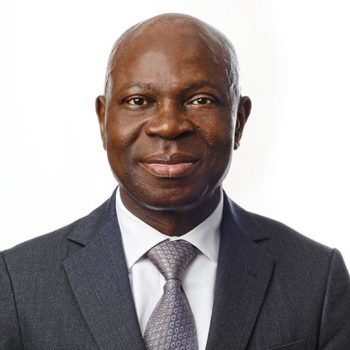
Gilbert F. Houngbo was born in Togo in 1961 and has spent much of his life working to improve the prospects of the world’s most vulnerable people, using his extensive experience in policy issues, economic development, diplomacy and financial accountability.
Following an advanced degree in business management from the University of Lomé (Togo), Gilbert F. Houngbo obtained a degree in accounting and finance from the Université du Québec à Trois-Rivières (Canada). He is a member of the Canadian Institute of Chartered Professional Accountants.
Gilbert F. Houngbo joined Price Waterhouse in Canada in 1986 and worked with them until 1993.
Between 1994 and 1996 he served as Director of Finance at the International Bank of Mali, before moving to the United Nations Development Programme (UNDP) where he held several posts, including as Head of Financial Reporting and Trust Fund Management, Comptroller and Director of Finance and Administration, Chief of Staff, and Assistant Secretary-General and Regional Director for Africa.
In 2008, Gilbert F. Houngbo was asked to serve as Prime Minister of Togo, a position he held until 2012.
He returned to the United Nations system in 2013 as Deputy Director-General for Field Operations and Partnerships at the International Labour Office.
In 2017 he was elected as the sixth President of the International Fund for Agricultural Development (IFAD), and in 2021 he was re-elected to the post.
Gilbert F. Houngbo chairs the Board of the Natural Resource Governance Institute (NRGI) and is a board member of the International Center for Biosaline Agriculture (ICBA).
In March 2022 Gilbert F. Houngbo was elected by the ILO’s Governing Body as the Organization’s 11th Director-General, becoming the first African to hold the position, and took up the role on 1 October 2022. He is focusing his mandate on promoting greater social justice, fighting inequalities and discrimination in the world of work and achieving better working conditions both through national action and by building more effective multilateral coordination and leadership. To bring this about, he is placing special emphasis on universal social protection, decent work in global supply chains and in the platform economy, the fight against child and forced labour, protecting the rights of migrant workers, promoting social dialogue and freedom of association, ensuring just transitions and attaining gender equality.
Gilbert F. Houngbo is married and has three children.

Lori Rodney is the Global Head of Communications at Shutterstock. As a socially conscious storyteller, she leads the company’s worldwide external communications efforts with a current focus on empowering the world to tell their stories by bridging the gap between idea and execution. Prior to joining Shutterstock, Lori was the Global Head of Communications at Change.org, the world’s largest tech platform for social change, where she led the organization through critical world-shaping events, including the launch of its global Racial Justice Fund, crisis management related to the Russia/Ukraine conflict, and the overturning of Roe vs. Wade in the United States, among other initiatives.
Lori’s broad range of experience includes brand strategy, government affairs, crisis communications, philanthropic initiatives, technology communications, data communications and regulatory milestones, multicultural and diversity programming, youth-driven and education-based initiatives, and social impact work. Beyond her direct work, she has become a trusted mentor to many of the next generation of communications leaders currently working across creative, pharmaceutical and non-profit advocacy organizations with a commitment to fostering value-based communications models for the future. Lori is a member of ColorComm, the premier business organization for women of color in the communications industry and CHIEF, a private, members-only network for the most powerful women in leadership. Lori has also been featured in PRWeek’s Power 50 List, the definitive guide to the 50 most influential communicators.

Marsha Caddle is a Barbadian economist and public policy strategist who now serves as Barbados’ Minister of Industry, Innovation, Science and Technology.
A former Minister for Economic Affairs and Investment in Barbados from 2018-2022, she helped lead Barbados’ 2018 economic recovery programme, which saw the country’s depleted foreign reserves increase eightfold by the end of the term, and its debt and arrears fall by a third following an international and domestic debt restructuring. She was ministerial negotiator on climate finance for the Alliance of Small Island States (AOSIS) in 2021, introducing in the Glasgow Climate Pact the use of redistributed Special Drawing Rights for scaled up finance in climate vulnerable nations. She also led the first reform of physical planning and land use policy in over 50 years.
Her areas of work are climate & development finance and sustainable development; data and national statistics; poverty, inequality and human development; public investment, growth and competitiveness; and physical planning. She has led the Governance practice at the Caribbean Development Bank, managed the Poverty Reduction programme with the United Nations Development Programme (UNDP), and the Economic Security and Rights programme of the then United Nations Development Fund for Women (UNIFEM) Caribbean Offices.
She is a pioneer economist in applying gender and macroeconomic policy frameworks to public finance in the Caribbean, and is a member of the International Association for Feminist Economics (IAFFE) and the International Working Group on Gender, Macroeconomics and International Economics (GEM-IWG). Her work experience in economic policy and human development spans over 20 countries. She has written and spoken extensively on matters of equality and economic and climate justice.
In 2022, she founded The Bold Centre, a think-and-do tank that helps address global issues of just transition for developing populations, such as climate and technology.
Hon. Marsha Caddle M.P. is an elected Member of Parliament in the Barbados House of Assembly.

Nezar Patria, a highly esteemed Indonesian professional, has made remarkable contributions to journalism and demonstrated exceptional leadership in the media industry. From 2000 to 2008, he was Editor, overseeing national news coverage and investigative reports. In 2008, he co-founded Viva.co.id and took on the role of Executive Editor. Nezar also held prestigious positions at CNN Indonesia and The Jakarta Post Digital.
Beyond his successful journalism career, Nezar Patria served as a member of the Press Council from 2016 to 2019, representing journalists and chairing the Foreign and Inter-Institutional Relations department. Moreover, he assumed the position of Editor-in-Chief at The Jakarta Post from 2018 to 2020.
Nezar’s leadership extended to the corporate sector, where he was Director of Institutional Affairs at PT. Pos Indonesia Persero from 2020 to 2022, focusing on strategic planning and public service. Subsequently, he became a Special Staff at the Ministry of State-Owned Enterprises, where he coordinated activities and provided essential support.
Having received his education from Universitas Gadjah Mada and The London School of Economics and Political Science (LSE), Nezar further enhanced his qualifications by earning an ASEAN MBA from Universiti Sains Malaysia and Bandung Technology Institute (ITB). His valuable contributions have earned him accolades, including the prestigious “Kartu Pers Nomor Satu” (Number One Press Card) award and recognition from the International Committee of the Red Cross (ICRC).
Currently, Nezar Patria is the Deputy Minister of Communications and Informatics of the Republic of Indonesia.
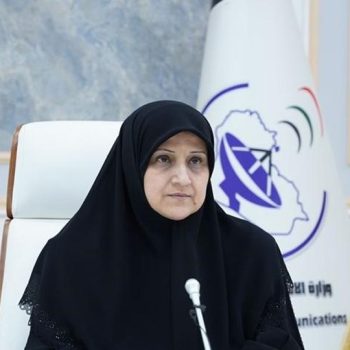
She worked as a Technical Advisor at the Ministry of Communications, 2007-2021.
She worked as an Academic at some Iraqi Universities, 1991-2007
She has published tens of academic research in international periodicals.
She has supervised on many PhD and MSc thesis.

Honourable Emma Inamutila Theofelus is a young, 28-year-old Namibian woman who serves as a Member of Parliament and the Minister of Information and Communication Technology in the Republic of Namibia.
Before her appointment, Honourable Emma was always policy adjacent and was a Youth Activist around issues of gender, children’s rights, and sustainable development and against youth unemployment. She served as the Deputy Speaker of the Youth Parliament of the Republic of Namibia, Board Member of the National Council of Higher Education and the Junior Mayor of the City of Windhoek amongst other roles.
Born and bred in Windhoek, Namibia, Honourable Emma holds an LLB Honours Degree from the University of Namibia where she served as Secretary General of the Student Union in her final year of study; a diploma in Business Management from Amity University and a diploma in Afrikan Feminism and Gender Studies from the University of South Africa. She is currently pursuing a Master’s Degree in ICT Policy and Regulation at the University of Witwatersrand and is preparing to sit for the bar exams in 2023 with the Board of Legal Education in Namibia.
Honourable Emma is currently awarded the Laureate in the Individual Category of the United Nations Population Award, 2022 and serves as a board member of the Leadership Council of Africa REACH. She has been recognised as the BBC 100 Most Influential Women in the World 2021, named as Avance Media 100 Most Influential Young Africans 2020 & 2021, named as the New African 100 Most influential Africans of 2020, Reputation Poll 100 Most Reputable Africans 2020 and named as the Emerging African Young Leader by the African Leadership Magazine 2022.
Honourable Emma is currently a council member of Nala Feminist Collective where she is championing digital justice on the African continent. She was further nominated for the One Young World Politician of the Year Award 2020 & in 2021. In her current role, Honourable Emma plans to better communicate the activities and programs of the Government of the Republic of Namibia, create a more digitally literate nation, increase access to the internet among Namibians and assist in preparing the Namibian nation for the 4th Industrial Revolution.

Secretary Ivan John E. Uy has an extensive career in the ICT industry and in public service. He specializes in information technology and its impact on law, justice, and governmental institutions.
He was a Hubert Humphrey Fellow under the Fulbright Program in University of Minnesota and a graduate of the College of Law, University of the Philippines. As a public servant, Secretary Uy served as Chairman of the Commission on Information and Communications Technology, the predecessor of the Department of Information and Communications Technology. From 2011 to 2016, he led the formulation of the Philippine Digital Strategy. He also served as Chief Information/Technology Officer of the Judicial Branch, responsible for the overall technology strategy and implementation of the courts.
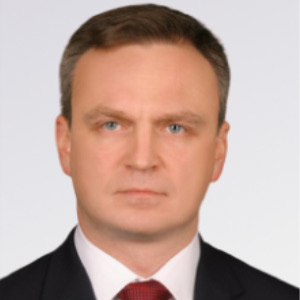
Born on December 11, 1982 in Moscow.
In 2004 he graduated from the Faculty of Computational Mathematics and Cybernetics of Moscow State University. M.V. Lomonosov, majoring in “Applied Mathematics and Computer Science”.
In 2007, he completed his postgraduate studies at the Department of Mathematical Physics, Moscow State University. M.V. Lomonosov, and in 2008 he was awarded the academic degree “Candidate of Physical and Mathematical Sciences”.
From 2008 to 2022, he held various positions in the international network of PricewaterhouseCoopers firms, progressing from an IT systems auditor to director of the artificial intelligence and data analytics practice.
On October 31, 2022, by order of the Government of the Russian Federation appointed to the position of Deputy Minister of Digital Development, Communications and Mass Communications of the Russian Federation.
Speaks English.
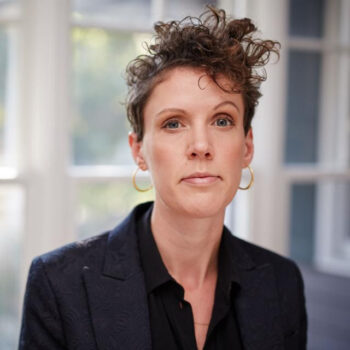
Anne Marie Engtoft Larsen is Denmark’s Tech Ambassador with responsibility for representing the Danish Government to the global tech industry and leading Danish efforts in global technology gov-ernance. TechPlomacy is a pioneering initiative elevating technology and digitalization to a crosscut-ting foreign and security policy priority of the Danish government. Anne Marie and her team have a global mandate and a physical presence in Silicon Valley, Copenhagen and Beijing, transcending bor-ders and regions in rethinking the traditional understanding of a diplomatic representation.
Prior to her appointment, Anne Marie worked at World Economic Forum in Geneva (2017-2020) where she led the World Economic Forum’s work on the Fourth Industrial Revolution and Global Public Goods. Her focus was on mobilizing technology companies, governments and civil society to collaboratively tackle the barriers that prevent emerging technology from scaling responsibly to help solve society’s biggest challenges. Before joining the World Economic Forum, Anne Marie co-founded an innovation house for student entrepreneurship; co-founded Democratic Capital; worked as political advisor in the Danish Parliament; and served on the Board of Directors of Copenhagen Business School and The Danish Consumer Council.
Anne Marie Engtoft Larsen holds a M.Sc. in International Development from The London School of Economics and Political Science (LSE), a B.Sc. and M.Sc. in International Business & Politics from Copenhagen Business School and is a 2017 Global Leadership Fellow with the World Economic Forum.

Deemah AlYahya is a Saudi digital economy expert and a tech diplomat who serves as the Secretary-General of the Digital Cooperation Organization (DCO).
AlYahya is the founding Secretary-General of the DCO since her election in April 2021. The DCO is the world’s first standalone intergovernmental global organization focusing on accelerating digital transformation and advancing digital economy, while empowering women and youth.
As the Secretary-General, AlYahya is an advisor, connecting heads of state, government ministers and private sector digital economy leaders together. She facilitates multilateral, multistakeholder digital cooperation to bridge the gap, bringing all digital economy key stakeholders to co-create and co-design high-impact initiatives leading to a world where every country, business, and person has a fair opportunity to prosper in an inclusive and sustainable digital economy. She has been spearheading various initiatives and projects across the globe to this end, keeping multilateral, multistakeholder cooperation as a pillar.
As a lifelong tech enthusiast with a passion for empowering women in the ICT sector, AlYahya founded Women Spark, a non-profit organization to enable developers, tech founders, and investors with the tools they need to grow, through training and mentorship.
AlYahya additionally serves on several boards, including Riyad Capital, SAIP – Saudi Authority for Intellectual Property, SCAI – Saudi Company for Artificial Intelligency, and SAFSCP – The Saudi Federation for Cyber Security and Programming.
AlYahya studied at King Saud University, graduating with a BA in Computer Science and Information Systems. She started her career at Samba financial institution as a software engineer, before joining Tadawul, the Saudi stock exchange. In both appointments she was a pioneer, as the first female IT professional in what was a male dominant environment at the time.
AlYahya moved to Microsoft in 2009, a dream she had nurtured since she was a child. Promoted to Executive Director of Developer Experience and Digital Innovation, she became the first Saudi woman in a leadership role at Microsoft, responsible for expanding the regional developer ecosystem and in empowering youth, women, and independent software vendors by providing the technology, skills and tools needed to evolve from job seekers to job creators. The opportunity led AlYahya to embark on cross-country initiatives, working with governments such as Singapore, South Korea, and the UK on their digital transformation strategies.
From 2016 to 2017, AlYahya led the development of Saudi Arabia’s digital transformation strategy as the CEO who established the National Digital Transformation Unit (NDU). It was at NDU that AlYahya realized how the growth of an inclusive digital economy can only be achieved through cross-border data flow and cooperation. She has launched several impact-driven initiatives, such as Saudi Codes, an initiative to help people learn how to use code, reaching over 1.2 million participants. She subsequently founded ALMTD Consulting to enable better private and public sector cooperation models within the Kingdom of Saudi Arabia, to achieve positive digital transformation and respond to the fast-growing digital economy.
In 2018, AlYahya was recognized with the “Digital CEO of the Year” award by Entrepreneur Middle East magazine. AlYahya is a graduate of the INSEAD senior executive programs: International Directors Programme; Leading Digital Transformation & Innovation in the Age of Disruption; and Business Development & Financial Acumen. She also completed various programs at Harvard Business School, including Leading & Building a Culture of Innovation; and Disruptive Innovation: Strategies for a Successful Enterprise.

Dr. Shiguo Lian currently serves as the Chief AI Scientist at the Artificial Intelligence Innovation Center, and the Chief Engineer of AI Technology, China Unicom. He is the member of the IEEE Multimedia Communication, Computational Intelligence and several other Technical Committees. He specialized in the areas of visual recognition, multimodal large models and multimodal interactions, etc. He has authored numerous books, papers, and patents, and has been listed in the “World’s Top 2% Scientists” by Stanford University. Recently, he focuses on developing methodologies and toolkits that leverage AI to facilitate high-quality growth in various sectors of the real economy. His efforts have benefited over 200 clients across various fields, including transportation, urban development, and industry, helping them reduce costs, improve quality, increase efficiency, and ensure safety and compliance. These contributions have significantly advanced industrial production and enhanced people’s wellbeing.
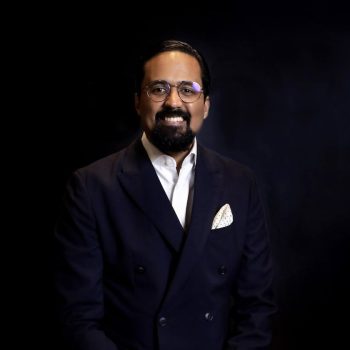
Lawyer, politician, and consultant. Pujals holds a bachelor’s degree in law from the Pontifical Catholic University Mother and Teacher (PUCMM). Pujals has a master’s degree in law and business management from the University of Palermo, Argentina. Additionally, Bartolomé holds a Master of Administrative Law from the Pontifical Catholic University Mother and Teacher of the Dominican Republic and a postgraduate degree in Constitutional Law, Constitutional Procedure, and Human Rights from the University of Buenos Aires (UBA). Additionally, Pujals holds a postgraduate degree in Leadership for Senior Management in Public Administration from Barna Management School.
Bartolomé Pujals is a former alumni of the Leadership in Trade Union and Community Impact Program, offered by the International Institute for Histradrut Leadership in Kfar Saba, Israel. He is also a graduate and former scholar of the International Visitor Leadership Program (IVLP) in the Transparency and Accountability in Government program. Additionally, Pujals is alumni of the program on the Inter-American Human Rights System, organized by the Inter-American Commission on Human Rights, American University, Washington College of Law, the Bernard and Audre Rapoport Center for Human Rights and Justice at the University of Texas, the Inter-American Institute of Human Rights, and Robert F. Kennedy Human Rights.
Pujals has served as a consultant on public policy matters for various national and international organizations.
Currently, Bartolomé is the General Director of the Government Office of Information and Communication Technologies (OGTIC) and the Chief Executive Officer of the Innovation Cabinet, with honorary functions.

Mr. Hassan Al-Sayed, the Minister’s advisor, has been the Assistant Undersecretary for the Information Technology Sector at the Ministry of Communication and Information Technology (MCIT). He has managed the government ICT sector to implement the strategic plan of the e-government program (Digital Government Strategy 2020).
With over than 30 years of experience in Information Technology, Supervision and Participation in Digital Transformation plans in government institutions, as well as his experience in developing and enhancing its efficiency and strategic plans. He has supervised the implementation of many large-scale national projects.
Mr. Hassan Al-Sayed chairs the General Assembly of Qatar Post. He is member of the Board of Directors of Malomatia, he worked in Ooredoo as Technical Support Manger, IT Department before his joining to MCIT. Mr. Hassan has a bachelor’s degree in Computer Science from the University of Essex in UK and a Diploma in Computer Sciences from Qatar University.
Mr. Hassan serves as an a chair of the AI Committee in the ministry of ICT, before that he was in charge of the implementation of the Digital Government Strategy and overseeing the implementation of many national ICT programs.Mr.Hassan carries a bachelor’s degree from the University of Essex in UK.

Mohamed El Hadi Hannachi: A Leader in Algeria’s Telecommunications Sector
Mohamed El Hadi Hannachi assumed the role of President of the Regulatory Authority of Post and Electronic Communications (ARPCE) of Algeria in February 2023. With a wealth of experience in the telecommunications industry, he has held various key positions within both fixed and mobile operators, showcasing his expertise in financial management, auditing, and administration.
Prior to his appointment at the Regulatory Authority, Mr. Hannachi served as the Chairman of the Amicable Settlement of Disputes Committee at Algérie Télécom starting in 2020. He also contributed as a Member of the Board of Directors and the Accounts Audit Committee at ATM/MOBILIS until February 2015, and as an advisor to the CEO of Algérie Télécom in 2017.
In September 2021, Mr. Hannachi was appointed as a Member of the National Economic, Social, and Environmental Council (CNESE) and the Skills, Human Capital, and Digital Transformation Commission (CCHTN), further solidifying his commitment to shaping the future of Algeria’s telecommunications landscape.
Mohamed El Hadi Hannachi’s impressive career trajectory and dedication to the industry make him a prominent figure in the telecommunications sector of Algeria, driving innovation and progress in the digital realm.
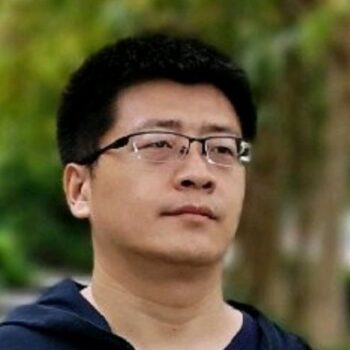
Mr. Xiao Ran is Vice President of Huawei Technologies. He previously was the Vice President of Strategy and Business Development. He brings more than twenty years of experience in the ICT industry to this role.
Since joining Huawei in 1998, Mr. Xiao has held a number of management positions across various R&D, Marketing, Strategy and Business Development. He has been appointed as Director of OSS & EMS of Fixed Network Product Line, Director of OSS & Service Marketing, President of Strategy and Business Development of Fixed Network Product Line, President of Strategy and Business Development of CNBG, President of the Strategy and Business Development Department of Products and Solutions.
Mr. Xiao holds a Master of Computing science and technology degree from Nanjing University, and he also holds a MBA degree from Hong Kong Polytech University.

Philip Marnick is the General Director of the Telecommunications Regulatory Authority (TRA). He was appointed early January 2022 by the Members of the Board, to assume the position, paving the way for a more effective regulatory framework by continuing the evolution of the telecom sector liberalization.
Mr. Marnick leads the TRA, including the development of consumer protection initiatives and resolving disputes. The TRA develops regulatory rules that promote competition, innovation, and investment in broadband services and facilities, as well as developing a more comprehensive and competitive framework that aligns with international best practices. Ensuring that Bahrain remains a center of innovation and that its telecommunications sector serves everyone while supporting Bahrain’s strategic objectives.
Before assuming his role at the TRA, Philip managed and directed at Ofcom in the UK, where he was the Group Director of Spectrum responsible for all aspects of UK national and international spectrum management – from strategy to delivery including awards, clearance and enforcement.
Mr. Marnick has worked in the telecommunications sector for over 30 years. He has served as a senior executive in technology, operations, and strategy. Mr. Marnick has worked in both start-ups (from inception to sale) and major corporations, in firms such as UK Broadband, O2, Orange, BT, J-Phone in Japan (now Softbank Mobile), Extreme Mobile, and SpinVox (now Nuance).
From analogue to 5G, he has engaged across every mobile generation. Throughout his carrier he has been at the forefront of industry developments – in both fixed and mobile. He has collaborated on the first deployments of mobile networks utilizing new technologies and standards, this has also included innovative products such as the first camera phone and photo messaging service, as well as mobile internet and hosted voice services.

Es abogado titulado de la Universidad Mayor de San Andrés y cuenta con una Maestría en Gerencia y Dirección de Empresas con Mención en Telecomunicaciones de la Universidad Camilo José Cela de Madrid – España, además de una segunda Maestría en Derecho Minero en la Cámara Minera del Perú y otros cursos de Postgrado en materia de minería, de telecomunicaciones, administrativa y de gerencia.
Del 2006 al 2009 desempeñó funciones en la Superintendencia de Telecomunicaciones – SITTEL, y desde el 2010 hasta el 2013 en el área legal de la Autoridad de Regulación y Fiscalización de Telecomunicaciones y Transportes – ATT. También cumplió funciones en la Autoridad Jurisdiccional Administrativa Minera – AJAM desde el 2013 al 2019, llegando asumir cargos ejecutivos como Asesor General, Coordinador Nacional, Director Jurídico a.i. y otros.
En marzo de 2021 en reconocimiento a su trayectoria laboral y académica, es designado por el Presidente del Estado Plurinacional de Bolivia, Luis Arce Catacora, como Director Ejecutivo de la Autoridad de Regulación y Fiscalización de Telecomunicaciones y Transportes (ATT), cargo desde el cual viene realizando un trabajo comprometido y genuino al servicio del pueblo boliviano. Finalmente, en la 25° Asamblea Plenaria del Foro Latinoamericano de Entes Reguladores en Telecomunicaciones – REGULATEL, realizado en Perú el 2022, fue elegido presidente para la gestión 2024, de este importante organismo internacional.
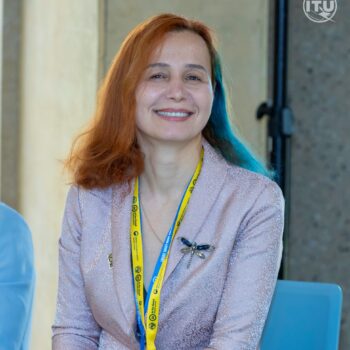
I have over 20 years of management experience, including 12+ years in policy implementation, regulatory efforts, strategy development, and risk management for both the public and private sectors, spanning business divisions throughout Eastern Europe and Central Asia.
As a digital transformation and change management lead, I has a solid track record of successfully completing projects in the ICT, FMCG, and sustainable industries.
Conceptualized regulatory and compliance policy formulation and led project implementation with a special emphasis on the convergence of EU policies and EU competition law enforcement;
Led the implementation of business strategies for telecommunications services and technology operations. Successful and enthusiastic company executive with expertise in business analysis, process management, change management, and implementation management.
Compassionate and empathetic leader with outstanding communication, analytical, and time management abilities, as well as the ability to lead and motivate teams to achieve goals.
I hold an MBA from the University of Bradford School of Management and is currently pursuing an LL.M. in Competition Law and Economics at the Brussels School of Competition. Previously, she earned a master’s degree in physics as well as a postgraduate diploma in artificial intelligence and fuzzy logic.
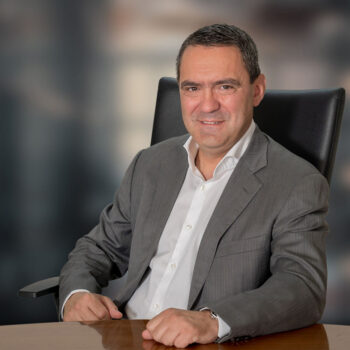
Professor Konstantinos Masselos has been appointed as the President of the Hellenic Telecommunications & Post Commission (EETT) in February 2018 and his mandate has been renewed in February 2022.
He is Outgoing Chair/Vice Chair of the Body of European Regulators for Electronic Communications (BEREC) for 2024 and he was BEREC Chair for 2023 and Vice Chair for 2022 (Incoming Chair) and for 2019.
He is Professor in the Department of Informatics and Telecommunications of the University of Peloponnese and he served as Rector of the above University during the period 2012-2017.
From 2005 to 2008 he was a Lecturer in the Department of Electrical and Electronic Engineering at Imperial College London. Also during the period 2010-2016 he was an Honorary Lecturer in the same Department.
From 2001-2004 he worked in the telecommunications industry.
Since 2005 he has been collaborating as an expert with various units of the European Commission. Also, he was member of the Scientific Committee of the European Cooperation in Science and Technology (COST) from 2015 to 2017.
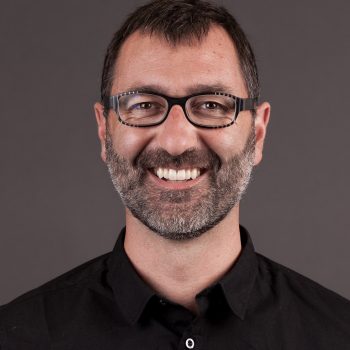
Dr. Mathieu Lemay (PhD, EPFL, 2007) is the leader of the Signal Processing and AI Group. His team has been developing solutions for physiological parameter monitoring in ambulatory settings for more than 20 years. The expertise of this group is internationally recognized by industrials and the scientific community, especially in the field of PPG in moving conditions (e.g. running), SpO2 at unusual locations (e.g. sternum or phalanx), physical activity profiling (e.g. physical activity classification) and novel circuits (ECG, impedance or PPG), continuously allowing a better integration, enhanced comfort and simplified use (wearable sensors integrated in textile, etc.), and activity monitoring. During the last years, the extensive experience in optical monitoring was further exploited to develop novel approaches for wrist-worn measurement of blood pressure, SpO2, atrial fibrillation detection or the detection of sleep stages.
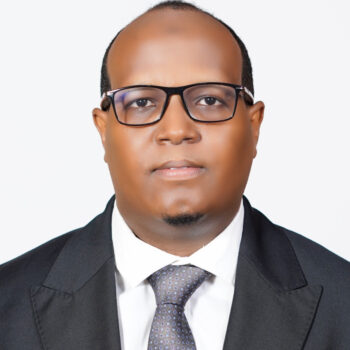
Mustafa Yasin Sheikh is the Director General of the National Communications Authority of Somalia (NCA) since 19th November 2022. Prior to this nomination, he worked as the Deputy Director General of the National Communications Authority of Somalia (NCA) and a Member of the Board of Directors. Mr. Mustafa served as the Executive Director of the Somalia Network Information Centre (SONIC) – the Somalia DotSO (.so) ccTLD registry operator – between 2018 – 2021. Mustafa also worked as a senior policy advisor at the Ministry of Communications and Technology between 2017 and 2018. With over 15 years of experience in both private and public service management and leadership, Mustafa specialized in Internet governance, regulatory and policy analysis, Public-Private Partnership, and competition economics. During his years of work, he participated in several specialized workshops, meetings, forums, and associations worldwide.
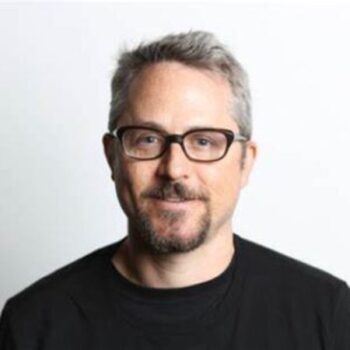
Sam Gregory is a human rights advocate and technologist fighting on the front lines against deepfakes and deceptive AI, and in defense of truth and fact. He drives cutting-edge approaches to preserve trust, authenticity, and evidence in our increasingly complex digital landscape. A recognized authority on audiovisual communication and deception, and on the use of video and technology to advance human rights, he has testified before both the US House and Senate on AI and media transparency and is a TED speaker whose talk outlines the necessary steps to fight back against malicious and deceptive AI.
As Executive Director of WITNESS, he spearheads their strategic plan to “Fortify the Truth,” championing a global team supporting millions to use video and technology for human rights. WITNESS received the inaugural Peabody Global Impact Award in 2024 for “media or organizations that have profoundly changed the world for the better” and for its work “tirelessly championing the power of emergent media technologies in defense of human rights around the world.”
In 2018, he launched the “Prepare, Don’t Panic” initiative, a WITNESS-led global effort to tackle the challenges of deepfakes and generative AI. This pioneering work has directly influenced platform policies, legislation, and public debate on emerging technologies, and also include the only global Deepfakes Rapid Response Force, connecting journalists with media forensic experts to expose AI-powered deception.
The Chronicle of Philanthropy has highlighted Sam as “a longtime human-rights advocate, he is a leading authority on deepfakes and other forms of A.I.-generated misinformation and disinformation. He focuses on preparing countries and communities for how doctored videos and manipulated media could be used to justify coups, jail innocents, and spark conflict.”
Sam has served on the ICC Technology Advisory Board, co-chaired key initiatives and working groups for the Partnership on AI and the C2PA.
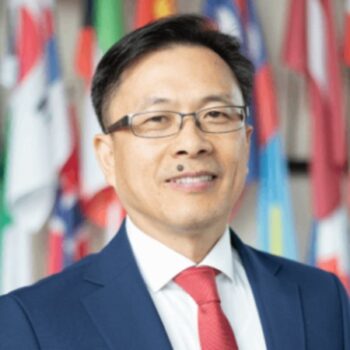
The Directorate of Technical Cooperation and Sustainable Industrial Development oversees the Organization’s normative contribution to the Sustainable Development Goals, in addition to supporting and advancing the application of strategies and interventions for sustainable industrial development in the environment, energy, and SME areas. Advancing competitiveness and job creation are also key impact dimensions for the Directorate, in addition to the advancement of digitalization and artificial intelligence. Mr Zou is also the Director General’s Special Representative for the G77 and China.
At UNIDO since 2013, Zou is the architect of UNIDO’s Programme for Country Partnership, and has guided the Organization’s field and strategic engagements.
Before joining UNIDO, he performed multiple roles, including as Deputy Director General of International Department at the Chinese Ministry of Finance, Alternate to the Chinese Executive Director at the World Bank, and Global Environmental Facility Operational Focal Point for China.
Zou holds a Ph.D. in Economics from China’s Ministry of Finance Graduate School, Research Institute for Fiscal Science.
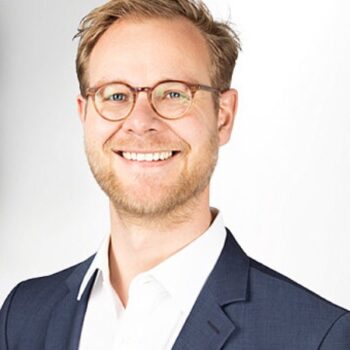
Sebastian Bosse is head of the Interactive & Cognitive Systems group at Fraunhofer Heinrich Hertz Institute (HHI), Berlin, Germany. He studied electrical engineering and information technology at RWTH Aachen University, Germany, and the Polytechnic University of Catalonia, Barcelona, Spain. Sebastian received the Dr.-Ing. degree in computer science (with highest distinction) from the Technical University Berlin in 2018.
During his studies, he was a visiting researcher at Siemens Corporate Research, Princeton, USA. In 2014, Sebastian was a guest scientist in the Stanford Vision and Neuro-Development Lab (SVNDL) at Stanford University, USA.
After 10 years as a research engineer working in the Image & Video Compression group and later in the Machine Learning group, he founded the research group on Interactive & Cognitive Systems at Fraunhofer HHI in 2020 that he has headed since.
Sebastian is a lecturer at the German University in Cairo. He is on the board of the Video Quality Expert Group (VQEG) and on the advisory board of the Interational AIQT Foundation. Sebastian is an affiliate member of VISTA, York University, Toronto, and serves as an associate editor for the IEEE Transactions on Image Processing. Since 2021 he has been appointed a chair for the ITU focus group on Artificial Intelligence for Agriculture.
His current research interests include the modelling of perception and cognition, machine learning, computer vision, and human-machine interaction over a wide field of applications ranging from multimedia and augmented reality, through medicine to agriculture and industrial production.

Mr. Pechoucek leads the core technology, innovation and R&D teams driving security engines as well as the company technology vision for human centered digital safety and beyond. He is also responsible for the company’s scientific research in the fields of Artificial Intelligence, machine learning, and cybersecurity. He previously served as CTO of Avast.
Before joining Avast, Mr. Pechoucek spent over twenty years as a professor at the Czech Technical University (CTU) in Prague, during which he founded the Artificial Intelligence Center in 2001. Mr. Pechoucek has authored more than 400 high impact publications and contributed numerous innovative AI applications to research in computer science.
While pursuing his academic career, Mr. Pechoucek co-founded several technology start-ups including cybersecurity firm Cognitive Security (acquired by CISCO in 2013), AgentFly Technologies, which specializes in controlling autonomous aircraft traffic, and Blindspot Solutions, which develops AI for industrial applications (acquired by Adastra Group in 2017). He directed the R&D Center for AI and Computer Security at CISCO Systems and worked as a strategist in the CISCO Security CTO office. He is also a venture partner with Evolution Equity Partners, a VC firm specialized in cybersecurity. Michal Pechoucek co-founded the prg.ai initiative aiming to transform Prague into a world-class AI super hub. He sits on the board of several AI startups and as an early investor supports Czech AI ecosystem.
Michal Pechoucek graduated from University of Edinburgh and gained his PhD in Artificial Intelligence at CTU in Prague. He also worked as a visiting professor at the University of Southern California, University of Edinburgh, State University of New York at Binghamton and University of Calgary.
Michal Pechoucek sits on the boards of several education oriented non-for-profits, is a long-time sponsor of People in Need Foundation and Memory of Nation and sits on the board of Denik N, Czech daily newspaper.
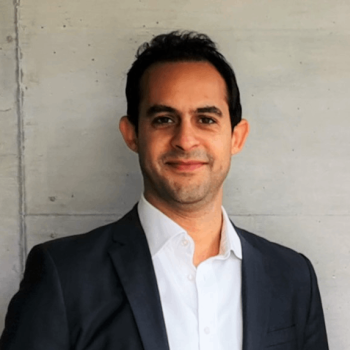
Ahmed Riad, a seasoned professional in the ICT sector, possesses over 15 years of diverse international experience that spans digital transformation, innovation, and industry development. With a profound understanding of digital technologies, infrastructure, entrepreneurial ecosystems, and digital business growth, Ahmed’s expertise extends across multiple regions and hierarchies.
Throughout his illustrious career, Ahmed has worked with multinational corporations and organizations such as Ericsson, Nokia Siemens Networks, the International Telecommunications Union (ITU), and presently, Huawei Technologies. In his incumbent role at Huawei, Ahmed orchestrates strategic alliances and molds partnership avenues for Huawei’s standardization teams. He also engages robustly with global institutions in the realm of ICT standardization and strategic industry advancement, while simultaneously identifying and interpreting pivotal ICT industry shifts, fostering innovation within Huawei.
Prior to his role at Huawei, Ahmed worked at the ITU headquarters in Geneva. Notably, he played a pivotal role in planning and development of the Good Global Summit and leading the AI for Good Innovation Factory. Which is an AI for Good initiative that identified and amplified AI-driven solutions and innovations aligned with the UN’s Sustainable Development Goals. Additionally, at ITU Telecom, Ahmed adeptly handled Small and Medium Enterprises innovation initiatives and cultivated partnerships with multiple entities spanning the Middle East and North America.
Before his work at ITU, Ahmed exhibited his technical expertise while delivering numerous projects across the Middle East, Africa, and Asia for giants like Nokia Networks and Ericsson. Serving in capacities such as Senior Solution Architect and Senior Technical Project Manager, in the Mobile Broadband sector.
Academically, Ahmed holds a Master of Science degree in Telecommunications with Business from the esteemed University College London, UK. A dual Bachelor of Science degree in Electrical Communications and Electronics Systems Engineering from University of Greenwich, UK, and Egypt. And currently doing his Executive MBA at IMD Business School.
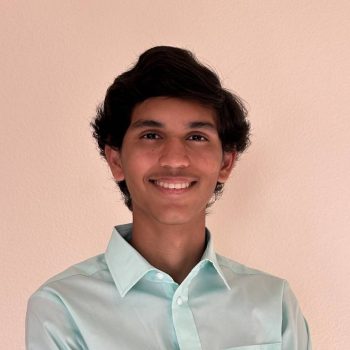
Parth Saxena is a sophomore at Scripps Ranch High School, driven by a profound enthusiasm for computer science and technological innovation. Parth’s journey began in middle school, as the Co-Founder of TutorPal LLC, where he developed a full-stack online tutoring platform used by 500+ students today. He further expanded this when he spearheaded the development of a generative AI tutoring chatbot using LLM (large language model) technologies, winning the First Award at his regional science fair. His internships at Altoris Inc. and Oxyjon Health Services further highlight his dedication to software development, particularly his work in building artificially intelligent systems for chemistry analysis and healthcare applications. Parth’s involvement in collegiate-level competitions like RoboSub demonstrates his work in applying software engineering tools to solving complex real-world challenges in maritime vehicle navigation.
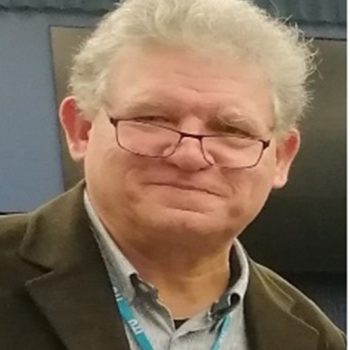
Marco Carugi is a senior consultant with Huawei Technologies on advanced ICTs and related standardization since 2018. He has professional experience in R&D and technology strategy, with past positions in different roles within Solvay group, Orange Labs, Nortel Networks CTO division, ZTE R&D Technology Strategy, as well as consultant with various customers, including NEC (2015-2018). IMT-2020/5G and Future Networks, IoT and Smart Cities, AI/ML for Networks and Autonomous Networks are the main technical areas he is currently involved in.
Active in standardization since long time, he has led specifications in different domains and held various leadership positions. He currently serves as Rapporteur for ITU-T Q20 of SG13 (“Networks beyond IMT-2020 and Machine Learning: Requirements and Architecture”) and Rapporteur for ITU-T Q2 of SG20 (“Requirements, capabilities and architectural frameworks across verticals enhanced by emerging digital technologies”). He also acts as Vice-Chair of the ITU-T JCA on Machine Learning, co-Convener of the ITU-T Correspondence Group for datasets applicable for AI/ML in networks, ITU-T SG20 Mentor, SG20 Liaison Officer to ISO/IEC JTC1/SC41 and member of the IEC-ISO-ITU Joint Smart Cities Task Force.
Marco holds an Electronic Engineering degree in Telecommunications from University of Pisa (Italy), a M.S. in Engineering and Management of Telecommunication Networks from National Institute of Telecommunications (France), a Master in International Business Development from ESSEC Business School (France), and completed an Executive Program on Big Data Science at Ecole Centrale Supelec (France).
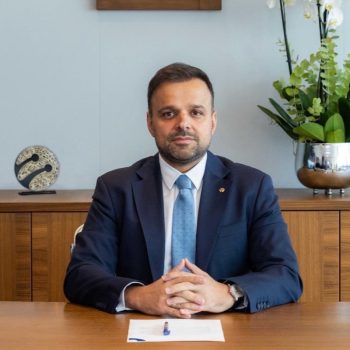
Dr. Ali Taha Koç was born in Ankara in 1980. He completed his undergraduate degree in 2001 at Bilkent University, Department of Electrical and Electronics Engineering with full scholarship. Later, he received his master’s and doctorate degrees in the Department of Electrical Engineering at the University of Texas at Dallas, both with full scholarships. Dr. Ali Taha Koç joined Intel in 2006 as a research and development (R&D) engineer in the USA. During his tenure at Intel, he developed 63 patents, published 23 scientific articles, and developed and managed several international projects. In 2013, he became one of the 10 awarded engineers who developed the most patents at Intel. After returning to Türkiye in 2014, he began working as the Chief Counsellor of the Prime Ministry and in the same year was appointed as the Head of Information Technologies of the Presidency. During his tenure at the Presidency, he also managed the formation of the State Information Coordination Center (SICC) in the Presidency Security Policies Department, and initiated the information flow from all ministries and security units to the Presidency. Koç was appointed as the Head of the Digital Transformation Office on 12 September 2018. Besides his duties at the Presidency, he also served as a board member of Türksat Uydu Haberleşme Kablo TV ve İşletme A.Ş. (Türksat Satellite Communications Cable TV and Business Inc.). As of October 2023, he is the Chief Executive Officer of Turkcell and serves as a board member of the International GSM Association (GSMA), Türkiye’s Automobile Joint Venture Group (TOGG), ULAK Haberleşme A.Ş., Mobile Telecommunication Operators Association (m-TOD) and Siro. He is also a licensed pilot, fluent in English, and married with one child.
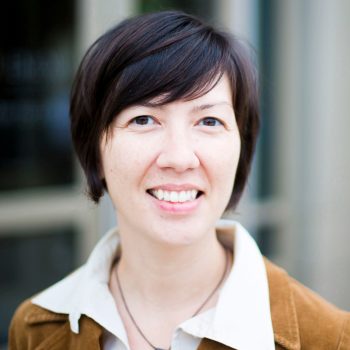
Dr. Karen S. Rommelfanger is a neurotech ethicist and strategist. She is founder and director of the Institute of Neuroethics, the first think tank wholly dedicated to neuroethics. Her lab, the Neuroethics and Neurotech Innovation Collaboratory explores how evolving neuroscience challenges societal definitions of disease and wellness, cross-cultural neuroethics, and cross-sectoral neuroethics policy. Her boutique consultancy Ningen Neuroethics Co-Lab works specifically on applied neuroethics and strategy. Dr. Rommelfanger maintains a professorship in Emory University’s Departments of Neurology and Psychiatry and Behavioral Sciences. She received her PhD in neuroscience and postdoctoral training in neuroscience, neural engineering, and neuroethics. Her scholarship has been published in high impact journals such as Nature, Neuron, and PNAS and she co-edited the Routledge Handbook of Neuroethics. She serves as the first neuroethicist editor at Neuron, served as senior editor of the American Journal of Bioethics Neuroscience and executive board member of the International Neuroethics Society. In recognition of her neuroethics stewardship in the neuroscience community, she was appointed to the National Institute of Health (NIH) BRAIN Initiative Neuroethics Working Group and DARPA’s ELSI Neurotechnology Panel. She has consulted for the OECD’s implementation guidance for the first international standard in responsible innovation for neurotechnology and served as rapporteur for the Council of Europe to assess proposal for novel neurorights. Dedicated to cross-cultural work in neuroethics, she co-chaired of the Global Neuroethics Workgroup of the International Brain Initiative, a consortium of large-scale national-level brain research projects and served on the World Economic Forum’s Global Futures Council. She is a frequent contributor and commentator in national and international media on neuroethics strategy, neurotech innovation, and policy.
NNIC: https://neuroethicslab.com
IoNx: https://instituteofneuroethics.org
Ningen: https://ningenstrategy.com
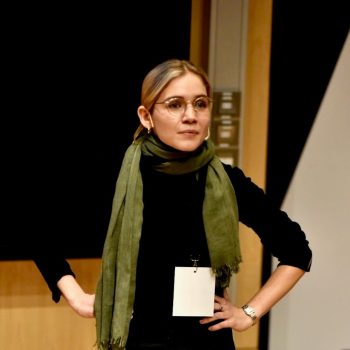
Anna Hedström is a doctoral student at Technische Universität Berlin and a part of the independent research lab Understandable Machine Intelligence Lab (UMI Lab) at ATB Potsdam. Her current research interests include deep learning, software for Explainable AI (XAI), particularly focusing on evaluation-centric XAI where she develops techniques to validate the quality and reproducibility of interpretability methods. Anna’s research has been featured at prominent venues such as NeurIPS, ICLR, JMLR, and AAAI, and she further contributes to open-source software. AH is the main developer of the popular evaluation library Quantus. She received her BSc from University College London (UCL) and her MSc in Machine Learning (ML) from the Royal Institute of Technology (KTH). Previously, she has held various research- and ML roles at both AI startups and large companies.
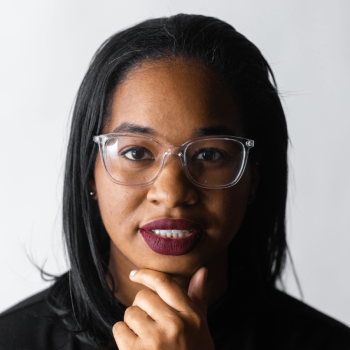
Taylor Shead is the Founder and CEO of Stemuli, a gaming company at the intersection of AI, education, and workforce development. Stemuli’s mission is to make education and career navigation personalized and accessible to 8 billion people while helping anyone navigate an intellectually and economically fulfilling career.
Taylor recognizes the urgency of addressing the inequities that hinder economic mobility, starting in our failing education systems that are impacting the health and wellbeing of people worldwide. She believes by leveraging AI and gaming, there is an opportunity to propel the world closer to a future where every individual has equal access to opportunities at every level of their educational journey.
To date, Taylor is the 94th black woman in the history of the world to raise over $1 Million in venture capital. D Magazine has recognized her as one of Dallas’ most influential CEOs of 2023. Forbes and the Yass Prize have recognized Stemuli as one of the most transformative applications for kids.
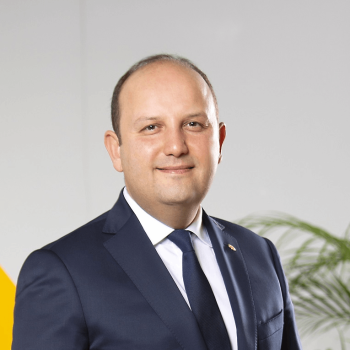
Prof. Dr. Vehbi Çağrı Güngör received his B.Sc. and M.Sc. degrees from Middle East Technical University, Department of Electrical and Electronics Engineering in 2001 and 2003. He obtained his Ph.D. degree from the Department of Electrical and Computer Engineering at Georgia Institute of Technology (Atlanta, GA, USA) in 2007. Receiving the Full-Professor title in 2018, Prof. Dr. Güngör’s research areas are in the fields of next-generation wireless communications, 5G and 6G mobile networks, Internet of Things and Artificial Intelligence. Prof. Dr. Güngör served as a project manager at Eaton Corporation, a researcher at Siemens Corporate Research, and an Executive Board Member in the TÜBİTAK TEYDEB BILTEG. He has received many international and national scientific awards. His research projects have been funded by several institutions, such as the European Union, the Ministry of Science, Industry and Technology, and TÜBİTAK. Prof. Dr. Güngör has more than 100 research articles published in international peer-reviewed journals and conferences and several patents.
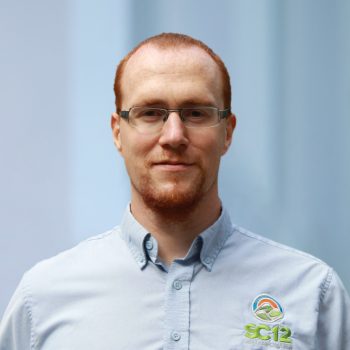
Torsten Hoefler is a Professor of Computer Science at ETH Zurich, a member of Academia Europaea, and a Fellow of the ACM and IEEE. Following a “Performance as a Science” vision, he combines mathematical models of architectures and applications to design optimized computing systems. Before joining ETH Zurich, he led the performance modeling and simulation efforts for the first sustained Petascale supercomputer, Blue Waters, at the University of Illinois at Urbana-Champaign. He is also a key contributor to the Message Passing Interface (MPI) standard where he chaired the “Collective Operations and Topologies” working group. Torsten won best paper awards at ACM/IEEE Supercomputing in 2010, 2013, 2014, 2019, 2022, 2023, and at other international conferences. He has published numerous peer-reviewed scientific articles and authored chapters of the MPI-2.2 and MPI-3.0 standards. For his work, Torsten received the IEEE CS Sidney Fernbach Memorial Award in 2022, the ACM Gordon Bell Prize in 2019, the ISC Jack Dongarra award, the IEEE TCSC Award of Excellence (MCR), ETH Zurich’s Latsis Prize, the SIAM SIAG/Supercomputing Junior Scientist Prize, the IEEE TCSC Young Achievers in Scalable Computing Award, and the BenchCouncil Rising Star Award. Following his Ph.D., he received the 2014 Young Alumni Award and the 2022 Distinguished Alumni Award of his alma mater, Indiana University. Torsten was elected to the first steering committee of ACM’s SIGHPC in 2013 and he was re-elected for every term since then. He was the first European to receive many of those honors; he also received both an ERC Starting and Consolidator grant. His research interests revolve around the central topic of performance-centric system design and include scalable networks, parallel programming techniques, and performance modeling for large-scale simulations and artificial intelligence systems. Additional information about Torsten can be found on his homepage at htor.inf.ethz.ch.
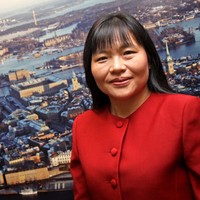
Dr. Yifang Ban is the Professor and Director of the Division of Geoinformatics at the Department of Urban Planning and Environment at KTH Royal Institute of Technology, and an Associate Director – Dissemination and Impact at Digital Futures in Stockholm, Sweden. Before joining KTH as a full professor in 2004, Dr. Ban was a tenured Associate Professor at York University in Toronto, Canada. She received her PhD in 1996 from the University of Waterloo in Canada. In 2023, she earned a certificate in Leading Sustainability: High Impact Leadership from the University of Cambridge.
Professor Yifang Ban’s research has been focused on Earth observation big data analytics, machine learning/deep learning, and their applications in environmental change monitoring (e.g. urbanization, wildfires, flooding) to support sustainable and resilient development. She has published extensively on these topics and has been ranked by Stanford/Elsevier among the World’s top 2% of scientists in Geological and Geomatics Engineering in 2020, 2021, 2022, and 2023. Professor Ban is the PI/Co-PI for a number of impactful projects, including EO-AI4GlobalChange (funded by Digital Futures), HARMONIA (funded by EU H2020), SAR4Wildfire (funded by FORMAS & ESA), and Climate Change Induced Disaster Management in Africa (funded by EU Erasmus+).
Since 2016, Professor Ban has been an invited expert of the UN Habitat’s Technical Committee on Human Settlements Indicators for the SDGs. She was also an expert in evaluations of EU and national grant proposals. She is a co-chair of the ICA Commission on Sensor-Driven Mapping, a co-lead of the GEO initiative ‘Global Urban Observation and Information’ (2012-2022), an associate editor for IEEE Transactions on Geoscience and Remote Sensing, and guest editor for several major remote sensing journals, and a scientific committee member of major international remote sensing conferences.
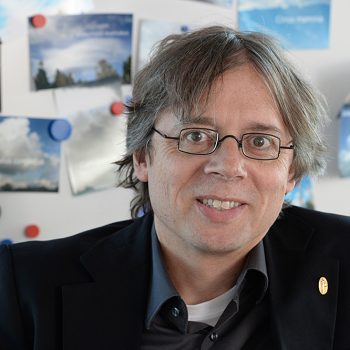
Prof. Bjorn Stevens is the Managing Director of the Max Planck Institute for Meteorology in Germany where he leads the department Climate Physics. He is also a professor at the University of Hamburg. Prof. Stevens is interested in how atmospheric water vapor, and clouds, shape climate — globally and regionally. Understanding how turbulent mixing and cloud microphysical processes influence cloud amount are instrumental in quantifying how clouds respond to warming, how radiative forcing responds to aerosol perturbations, and how circulations interact with both. His research has identified different ways in which clouds organize themselves, how varied processes — such as precipitation, air sea interaction, and radiative cooling — influence this organization, and how clouds couple to larger-scale circulation systems to help determine the pattern of climate change. These interests have led him to develop new observational techniques and to expand the frontiers of simulation science.
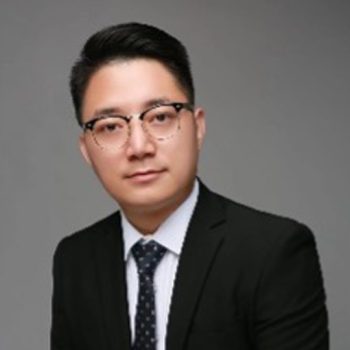
Mr. Hu Zhengkun is a distinguished professional in the field of AI ethics and governance, with a wealth of experience that spans across industry, policy-making, and international collaboration. As the current Director of AI Ethics and Governance Research at SenseTime, one of China’s leading AI companies, Mr. Hu has been at the forefront of developing comprehensive ethics governance frameworks and technical infrastructures. His work at SenseTime, notably the “SenseTrust” toolbox, has set a new standard for ethical AI practices within the industry. Mr. Hu actively participates in global dialogues on AI governance as a member of the Policy Network on Artificial Intelligence (PNAI)’s Multistakeholder Working Group of the United Nation’s Internet Governance Forum.
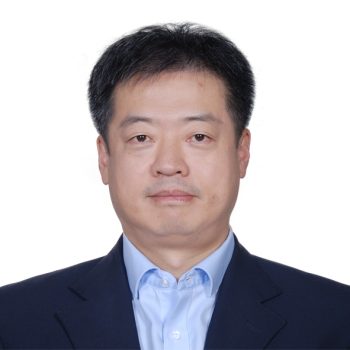
Mr. Guirong Wang is the Managing Director of the Technology Innovation Department at China Telecommunications Corporation and serves as Deputy Director of the China Telecom Technology Committee. With a background in Computer Communication from Beijing University of Posts and Telecommunications and a Master’s degree in Computer Application Technology from Peking University, he brings a wealth of expertise to his role. Guirong has a proven track record of driving innovation and development within the company, specializing in artificial intelligence, cloud computing, network security, and digital transformation.

Aza is a National Geographic Explorer and co-founder of Earth Species Project, an international nonprofit dedicated to using AI to decode animal communication and transform how human beings relate to the rest of nature. He is also the co-founder of the Center for Humane Technology, working to align technology with humanity’s best interests. He was an architect and subject of the documentary The Social Dilemma, and is the co-host for the popular podcast Your Undivided Attention. Trained as a mathematician and dark matter physicist, he has taken three companies from founding to acquisition, has been a co-chairing member of the World Economic Forum’s Global Future Council on the Future of Al, briefs heads of state, and helped found Mozilla Labs, in addition to being named FastCompany’s Master of Design, and listed on Forbes and Inc Magazines 30-under-30.
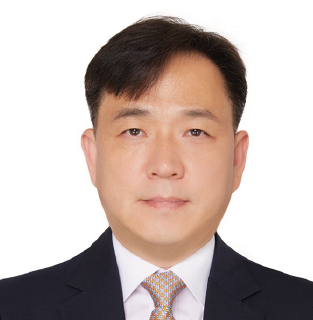
Dr. Kang Dohyun has been appointed a Vice Minister and the Head of the Office of ICT Policy at the Ministry of Science and ICT(MSIT) of the Republic of Korea in February 2024, and is focusing on promoting rights-oriented digital innovation as a follow-up to the recently announced the “Digital Bill of Rights”, a blueprint of a digital society of mutual prosperity. As the Minister and the Head of the Office of ICT Policy of the MSIT, Dr. Kang is responsible for developing policies to promote digital innovation and secure key digital capabilities, including artificial intelligence, software and data, and supporting the growth of emerging digital industries, including metaverse, blockchain and AI semiconductors. Before he served as the Vice Minister, Dr. Kang joined the Korean Civil Service in 1994 and has gained a wide range of experience and expertise. In 2015-2016, he led the Software Policy Division, and the ICT Policy Coordination Division as the Director. Dr. Kang served as the Director General in 2019-2021, where he covered the Software Policy, Artificial Intelligence Policy, and ICT Policy Bureau. He obtained his Doctor’s degree in Technology, Management, Economics and Policy Program, in Seoul National University in 2013. Prior to this, he graduated from Seoul National University with a Bachelor’s degree in Foreign Affairs in 1995 and earned a Master’s degree in Telecommunication Engineering from the Colorado State University, USA, in 2005.

Hon. Mohamed Adam Moalim has a distinguished career in public service, marked by significant roles in Somalia’s governmental landscape. Currently serving as a Member of the Federal Parliament of Somalia in the House of the People, he holds a pivotal position in shaping the nation’s policies and governance. With extensive experience in key ministerial positions within the Federal Government of Somalia, including Minister of Livestock, Forestry & Range, and Minister of Public Works, Reconstruction & Housing, he has demonstrated leadership prowess and a deep understanding of governance and policymaking. His journey in public service is complemented by valuable insights gained from his tenure in the private sector, where he acquired practical experience before transitioning into politics. Additionally, his dedication to humanitarian efforts, as evidenced by his involvement with organizations such as the Welfare Projects Society and local NGOs, underscores his commitment to serving the community. With a master’s degree in Business Administration from MAHSA University, Malaysia, and specialized diplomas from institutions like ALISON, Ireland, Hon. Mohamed Adam Mo’alim is equipped with a solid educational foundation. His proficiency in languages including Somali, English, and Arabic further enhances his ability to engage with diverse stakeholders on both national and international levels. Throughout his career, Hon. Mohamed Adam Mo’alim has demonstrated a track record of strategic thinking, leadership, and a steadfast commitment to public service. As he assumes the position of Minister of Communications and Technology on April 17th, 2024, Hon. Mohamed Adam Mo’alim brings a wealth of expertise and a visionary outlook focused on harnessing digital innovation to drive Somalia towards heightened advancement and technological empowerment.
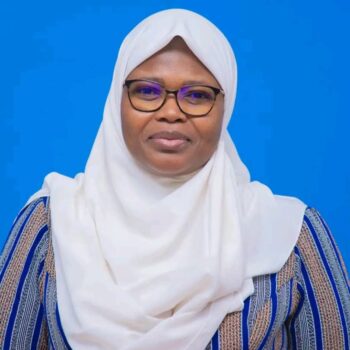
After obtaining her Baccalaureate in Scientific Series (Bac E) in 2000 at the Lycée Technique d’Abidjan (Côte d’Ivoire), Mrs. Aminata ZERBO/SABANE continued her studies at the Ecole Supérieure d’Informatique (Burkina Faso) where she obtained her Diploma in Computer Engineering / Programmer Analyst Option in 2003, then the Diploma in Computer Design Engineering in 2006. After a brief professional stopover, Mrs. ZERBO/SABANE returned to training after obtaining an enrollment at the École Polytechnique de Montréal in Canada from where she obtained a PhD in Computer Engineering in 2015.
Having become a Doctor of Engineering in Computer Science, Ms. Aminata ZERBO/SABANE is back in Faso where she joined Joseph Ki-ZERBO University in 2017 as a Lecturer-Researcher in Computer Science. Since then, Doctor ZERBO/SABANE has been strongly committed to the training and supervision of students. She is co-initiator and deputy coordinator of the university digital incubator Incub@UO which supports the maturation of students’ startup projects.
Dr. ZERBO/SABANE has a rich professional career, having held various positions of responsibility in both public and private administration.
Indeed, she was Security Manager at ZAIN (now Orange Burkina), responsible for the design, implementation and monitoring of IT security policies and procedures, raising employee awareness of IT security from June 2008 to July 2009, then Programmer Analyst at SONABEL from January to April 2008, and IT manager at the Diplomatic and International Relations Institute (IDRI) from 2006 to 2007. Doctor ZERBO/SABANE was from January 2016 to October 2017, Head of Training and Projects at the AvePLUS Training and Incubation Center.
Within the public administration, from 2018 to 2021, she was Technical Secretary, responsible for coordinating the work of experts in charge of strategic analyses and studies on digital technology at the Ministry in charge of Digital Transition. Since 2020, she has been Head of the “Ecosystem and Digital Transformation” budget program, responsible for monitoring and coordinating national-scale projects on the digital transition, and since April 2021, Director General of the National Agency for the Promotion of Information and Communication Technologies (ANPTIC). In this capacity, Ms. ZERBO/SABANE played a central role in the coordination of major structuring projects in the sector, including the e-Burkina project, the ICT Development Support Project (PADTIC) and the single identification project for regional integration and inclusion in West Africa (WURI).
Ms. Aminata ZERBO/SABANE is also involved in professional and scientific associations. She is a member of IEEE Burkina (International Learned Society for Research in Electronic and Computer Systems) and RECIF (Network of Computer Science Teachers and Researchers of Burkina Faso).
An expert in the maturation of digital innovation projects and digital transformation (strategic analyses and studies), Ms. Aminata ZERBO/SABANE, who has just been appointed Minister of Digital Transition, Posts and Electronic Communications, is no stranger to the digital ecosystem of Burkina Faso.
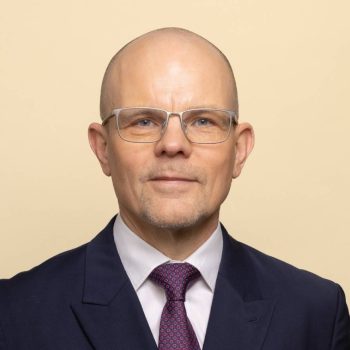
Tiit Riisalo was born in Tallinn on 17 February 1967. He is a father of two daughters. Riisalo joined the Eesti 200 Political Party in 2022. Previously, he was a member of the Pro Patria and Res Publica Union (IRL) in 2012–2016 and was the Party’s Secretary General in 2012–2015.
In 2023, he briefly served as CEO of the Estonian Centre for International Development (ESTDEV).
In 2016–2021, he was the Director of the Office of the President of the Republic.
In 2016–2017, he was a Member of the Supervisory Board of Estonian Railways.
In 2011–2014, he was a Member of the Supervisory Board of the Port of Tallinn as well as of Tallinn Airport.
In 2008–2010, he was a Commissioner of the Shanghai EXPO of Enterprise Estonia (EAS).
In 2007–2009, he was a Member of the Supervisory Board of Enterprise Estonia (EAS).
In 2005–2008, he was a Member of the Board of AS Go Travel.
In 2002–2008, he was the Head of Corporate Development and Marketing of AS Go Group.
In 2001–2002, he was the Acting Director General of the Veterinary and Food Board.
In 1996–1999, he was an advisor to the European Bank for Reconstruction and Development.

Dr. Makara KHOV is currently serves as secretary of state at the Ministry of Post and Telecommunications of Cambodia (MPTC). He also serves as Chairman of trustee board of Cambodia Academy of Digital Technology (CADT), Vice-Chairman of Capacity Building Research and Development Fund (CBRD), Vice-Chairman of Universal Service Obligation Fund (USO), Member trustee board of Techo Startup Center (TSC).
He received respectively, Engineer Degree in Electrical Engineering from the Institute of Technology of Cambodia (ITC), Master and Ph.D Degree in Automation and Decisional Computing from the Institut National Polytechnique de Toulouse (INPT). He has worked as lecturer, researcher, Chairman of Trustee Board of Telecom Cambodia (TC), policy maker in the field of telecommunication and ICT.

GOBIND SINGH DEO was appointed as the Minister of the newly-established Ministry of Digital in December 2023.
He has served as Minister of Communications and Multimedia from May 2018 until February 2020. In that time, he pushed for reforms in various sectors such as making broadband more affordable and accessible, media freedom, transitioning national broadcaster Radio Television Malaysia (RTM) into the digital era, and enhancing the country’s digital connectivity through 5G.
Gobind holds a law degree from the University of Warwick, United Kingdom and is a Barrister of Lincoln’s Inn. He was admitted as an advocate and solicitor of the High Court of Malaya in 1996, and was one of the country’s leading criminals, constitutional and human rights lawyers, having led on a number of high-profile cases.

PhD in Economics from ISEG, Universidade Clássica de Lisboa;
Master in Management and Industrial Strategy by the ISEG, Universidade Clássica de Lisboa;
Degree in Economics from Universidade Portucalense Infante D. Henrique, Porto.
Professional and academic experience:
Senior Advisor at Centro de Competências de Planeamento, de Prospetiva e Políticas da Administração Pública (the Competence Centre for Planning, Policy and Foresight in Public Administration), since November 2021;
Advisor at Centro de Competências Jurídicas do Estado (the State Centre for Legal Skills) and Coordinator of Unidade Técnica de Avaliação de Impacto Legislativo (the Technical Unit for Legislative Impact Assessment) between December 2016 and November 2021;
Member of Conselho Superior de Estatística (the Statistical Council) between November 2020 and December 2022 and member of the OECD Regulatory Policy Committee bureau since January 2021;
Representative in various international organisations for “Better Regulation” and Chairman of the European Council Working Group on “Better Regulation” during the Portuguese Presidency of the European Union;
Economist at Autoridade da Concorrência (the Competition Authority) between 2004 and 2016, where he was Deputy Director of the Restrictive Practices Department and Senior Economist in the Public Policy Evaluation Unit and the Regulated Markets and State Aid Department;
Associate Professor at the School of Economics and Organisational Sciences of Universidade Lusófona de Humanidades e Tecnologias;
Visiting Professor at several higher education institutions, namely the Institute for Economic, Financial and Tax Law (IDEFF) and the Institute for Legal and Political Sciences (ICPJ) of the School of Law of Universidade de Lisboa, as well as at NOVA IMS;
Researcher at Centro de Investigação em Direito Europeu, Económico, Financeiro e Fiscal (the Centre for Research in European, Economic, Financial and Tax Law);
Researcher of the FCT research project “LegImpact – Legislative production as a means of implementing public policies: quantitative analysis and socio-economic impact”;

Job Experience
2021-Present Ministry of Information and Communication Technology (ICT) – ICT Minister
2019-2021 Judiciary of Islamic Republic of Iran – Head of Statistics and Information Technology Center
2006-2011 Ministry of Culture and Islamic Guidance – Founder and President of the Center for the Development of Information Technology and Digital Media
2006-2009 High Council of Information Technology – Member of the Strategic Commission
2017-Present Iran University of Science and Technology – Faculty Member
Education
2016-2018 Sharif University of Technology, Tehran, Iran
Post-doctoral Research Fellow – Computer Engineering – New Generation of Computer Networks – Biological Data Analysis
2015-2016 New South Wales University, Sydney, Australia
Post-doctoral Research Fellow – Computer Engineering – New Generation of Computer Network
2012-2015 New South Wales University, Sydney, Australia
Ph.D. Computer Engineering – Thesis Title: Efficient communication protocols for wireless nanoscale sensor networks
2004-2006 Sharif University of Technology, Tehran, Iran
M.Sc. Computer Engineering – Dissertation Title: An Intrusion Detection System for Mobile Ad Hoc networks
1999-2003 Razi University, Kermanshah, Iran
B.Sc. Computer Engineering
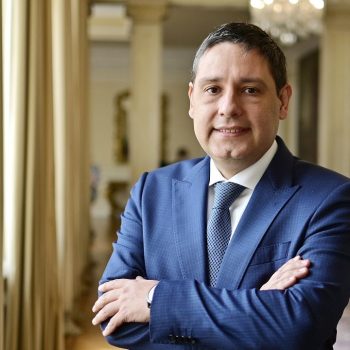
Minister Lizcano holds a Master’s in Public Administration from Harvard University and a Master’s in Business Administration (MBA) from the Massachusetts Institute of Technology – MIT. Additionally, he is a lawyer with a specialization in Management, Government, and Public Affairs from Universidad El Rosario and Universidad Externado of Colombia, in partnership with Columbia University. His experience includes 23 years in high-government positions in various regional and national public entities. Minister Lizcano served as a Senator of the Republic of Colombia (2010-2018), President of the Senate (2016-2017), and Congressman at the House of Representatives (2006-2010). In August 2022, the President of Colombia, H.E. Gustavo Petro, appointed Minister Lizcano as Director of the Administrative Department of the Presidency of the Republic (DAPRE), and in May 2023, he was sworn in as Minister of Information and Communications Technologies of Colombia.

Karim Bibi Triki is the Minister of Post and Telecommunications of Algeria since july 2021.
Before, he was the CEO of Group Telecom Algerie, main Telecom Group in Algeria.
Previousely, he worked for Intel Corporation from 2009 to 2020 and held many responsiblities including Country Manager at Intel responsible for Egypt, Levant and North Africa countries.
Before joining Intel, Karim started his career in 1992 at Alfatron Electronic Industries (OEM) as System Architect responsible for the design of motherboards and computer systems, then Director of Engineering & Development, and President & CEO for the last 9 years at Alfatron.
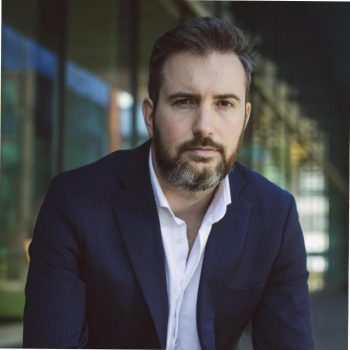
Adam Marlatt has been serving as Help.NGO’s Operations Director since 2010 leading ground operations in L3 emergencies across 6 continents. Adam leads the organizations Disaster Immediate Response Team into the immediate aftermath of crises providing technical solutions, emergency connectivity, medical assistance, and coordination support. He’s a White House Author and in 2013 received the Champions of Change award from President Obama for the use of innovation and technology in disaster response. In addition to NGO work, he has served in Senior Technical Advisor roles for the United Nations Development Programme and the World Food Programme, providing subject matter expertise in technology including Uncrewed Aircraft Systems (Drones), satellite connectivity systems, and edge computing as well as large-scale logistics operations. Prior to engagement in the Humanitarian Sector Adam served as an Infantry Platoon Sergeant in the United States Marines Corps over 8 years.
http://www.whitehouse.gov/champions/hurricane-sandy/adam-marlatt-(global-dirt%3A-disaster-immediate-response-team)

Allen is a PhD candidate at MIT majoring in Autonomous Systems in the AeroAstro department co-advised by Cristina Rea and Chuchu Fan, where he is a member of the Plasma Science and Fusion Center (PSFC) and the Laboratory for Information and Decision Systems (LIDS). Before joining fusion, he was a roboticist, having spent two years at the MIT Computer Science and Artificial Intelligence Lab (CSAIL) followed by two years as a roboticist at Boston Dynamics. His goal is to advance disruption avoidance capabilities by applying techniques from the robotics and machine learning worlds to both pulse and control design for SPARC and advanced control experiments on existing devices. The biggest gap towards this goal is dynamics modelling. To address this gap, much of his current work focuses on building hybrid physics + ML models to predict plasma dynamics.
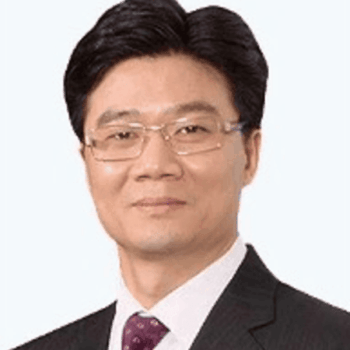
Mr. He Biao, aged 52, is the President of China Mobile Communications Group Co.,Ltd.., in charge of the operation of the Company. He is also the Executive Director and Chief Executive Officer of China Mobile Limited , and joined the Board of Directors in April 2024.
Mr. He had successively served as a deputy general manager and general manager of Guangdong Branch of China United Network Communications Corporation Limited, a vice general manager of China United Network Communications Group Company Limited, senior vice president of China United Network Communications Limited (listed in Shanghai), senior vice president of China Unicom (Hong Kong) Limited (listed in Hong Kong), a director and senior vice president of China United Network Communications Corporation Limited, and chairman of China Unicom Online Information Technology Company Limited.
Mr. He graduated from Xiangtan University in 1993 and received a doctorate degree in business administration from Grenoble Ecole de Management, France in 2016. He has many years’ experience and expertise in the information and communications technology industry.
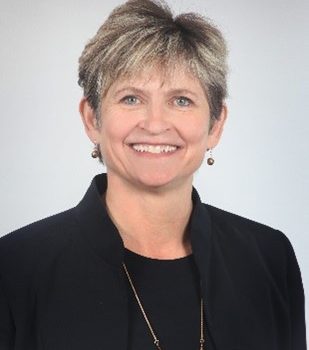
Dr. Samantha T. Arundel is the director of the Center of Excellence for Geospatial Information Science (CEGIS) at the U.S. Geological Survey. She also fills the role currently of Senior Science Advisor to the director of the USGS’ National Geospatial Program. Her research focuses on GeoAI, particularly automating terrain and other map feature detection and recognition and using GeoAI to integrate spatial analyses. She headed the development team in the automation of the 3D Elevation Program as it superseded the National Elevation Dataset. Sam has a special interest in operationalizing GeoAI research. Before joining the USGS in 2009, Dr. Arundel was an assistant and then associate professor of geography at Northern Arizona University in Flagstaff. Sam has a Ph.D. in Geography from Arizona State University.
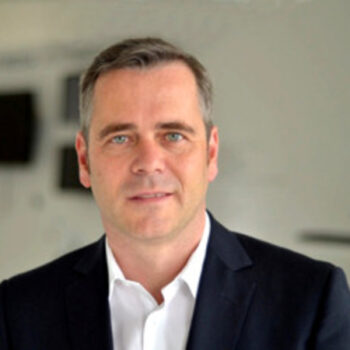
Thomas Wiegand is professor at the Technical University of Berlin and executive director of the Fraunhofer Heinrich Hertz Institute, Berlin, Germany. He heads research teams working on: video coding, machine learning, computer vision, and mobile communications.
Wiegand substantially contributed to the creation of the H.264/AVC, H.265/HEVC, and H.266/VVC standards. For H.264/MPEG-4 AVC, Wiegand was one of the chairmen of the Joint Video Team (JVT) standardization committee that created the standard and was the chief editor of the standard itself. He was also an active technical contributor to all these standards. Wiegand also holds a chairmanship position in the ITU-T VCEG and previously in ISO/IEC MPEG standardization organizations. From 2018-2023, he was the chair of the ITU/WHO Focus Group on Artificial Intelligence for Health. Since 2014, Thomson Reuters named him in their list of “The World’s Most Influential Scientific Minds” as one of the most cited researchers in his field. He is a recipient of the ITU150 Award. He has been elected to the German National Acdemy of Engineering (Acatech) and the National Academy of Science (Leopoldina).

Amir Banifatemi is the Chief Responsible AI Officer at Cognizant, where he leads the company’s global efforts to embed safety, transparency, and accountability into AI systems and services. He oversees the design and implementation of Cognizant’s Responsible AI framework, ensuring alignment with international standards such as ISO/IEC 42001, NIST AI RMF, and other emerging governance models across sectors and jurisdictions.
A prominent voice in international AI policy and governance, Amir contributes to key initiatives at the OECD, GPAI, IEEE, and the ITU, where he focuses on operationalizing responsible AI and advancing cross-sector standards for AI safety and accountability. He co-leads working groups on AI Futures, AI-Enabled Investments, and Trustworthy AI Ecosystems.
Previously, Amir served as Chief Innovation and Growth Officer at XPRIZE, where he launched and directed global competitions addressing grand challenges in AI, climate, and health. He co-founded the AI for Good movement and helped establish the AI for Good Global Summit in partnership with the ITU, aligning AI innovation with the UN Sustainable Development Goals.
With more than 25 years of experience at the intersection of innovation, deep technology, and investment, Amir has helped shape and scale breakthrough initiatives across sectors—from public institutions like the European Space Agency and European Commission to venture-backed technology startups. He brings a systems-level approach to advancing emerging technologies such as AI, quantum computing, and predictive systems, with a consistent focus on real-world impact, interdisciplinary collaboration, and sustainable value creation.
He holds degrees in Electrical Engineering, an MBA, and a Doctorate in System Design and Cognitive Sciences.
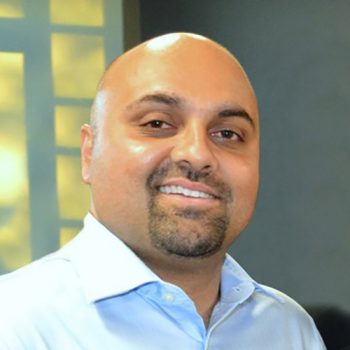
Neil Sahota (萨冠军) is the CEO of ACSI Labs, United Nations (UN) AI Advisor, IBM Master Inventor, Professor at UC Irvine, and author of award-winning Best Business book of 2019, Own the A.I. Revolution. With 20+ years of business experience, he works with organizations to create their core business strategy, enter new markets, and develop next generation products/solutions powered by emerging technology. His work experience spans multiple industries including legal services, healthcare, life sciences, retail, travel and transportation, energy and utilities, automotive, telecommunications, media/communication, and government. Moreover, Neil is one of the few people selected for IBM’s Corporate Service Corps leadership program that pairs leaders with NGOs to perform community-driven economic development projects. For his assignment, Neil lived and worked in Ningbo, China where he partnered with Chinese corporate CEOs to create a leadership development program.
In addition, Neil partners with entrepreneurs to define their products, establish their target markets, and structure their companies. He is a member of several investor groups like the Tech Coast Angels, advises venture capital funds like Miramar and CerraCap, and helped create the UN’s Innovation Factory, a global program for social impact entrepreneurs. Neil also serves as a judge in various startup competitions and mentor in several incubator/accelerator programs.
He actively pursues social good and volunteers with nonprofits. Neil cofounded the UN’s AI for Good Initiative and is actively helping them building out their ecosystem of strategic partnerships. He is currently helping the Zero Abuse Project prevent child sexual abuse as well as Planet Home to engage youth culture in sustainability initiatives. Over the last twelve years, he has served as a Board Director to several non-profit organizations such as the Inteleos and Cancer Computer as well as corporate boards from around the world like Legalmation, Lingmo, and Shineville.

Serial entrepreneur, investor, and futurist, Stephen’s accomplishments and global leadership positions with more than 100 programs / organizations and 300+ recognitions are too numerous to list. His leadership roles working daily with more than 1 million CEOs, Investors, Scientists with the world’s leading CEO, scientific, technical and financial organizations allow him a unique vantage point to oversee where transformative innovation and investments are heading in the coming years. Stephen is the visionary behind REDDS whose tireless work has positioned REDDS to take advantage of the globally unique superior intelligence received by the group. As a small sampling representing under 1% of Stephen’s current activities, he is the:
- Founder of UN ITU, AI FOR GOOD, adopted by governments, corporations, and academia, with 3+ billion reach, as the world’s largest AI innovation solutions program, startup Innovation Factory, and daily summit driving AI top innovative business solutions such as generative AI (BingAI, Microsoft Azure OpenAI, GPT4-5) across 17 United Nations Sustainable Development Goals and empowering CEO-led impact programs for the benefit of humanity and Earth Ecosystems such as with KIN (Knowledge Impact Network) and Million PeaceMakers. Ongoing judge and Grand Finale judge from the founding of the #AIForGood Innovation Factory with the last Grande Finale winner announced at the July AIForGood 2023 in this news release.
- Founding member of WFP Innovation Accelerator advisory council in 2017 and with the November 2023 announcement of two portfolio startups winning the 1 million UK pounds prize each, top innovation Earthshot Prize. WFP is the 2020 Nobel Peace Prize recipient, multiple awardee of Apple, Good, Fast Company awards for innovation.
- From 2009 serving in roles as: current ACM practitioner board (PB) and past chair / current ACM PB chair professional development committee (PDC) / current board PDC TechTalks committee / current board ByteCast committee / current board working group head on startups-entrepreneurship; ACM is the world’s largest computing organization. From 1989 serving in roles as: past CIPS President and Chair; CIPS founding fellow advising CEO; CIPS is Canada’s national ICT organization. From 2007, serving in roles as: founder and current vice-chair IFIP IP3, founder and current chair IFIP Industry Council; IFIP is the UNESCO-founded independent federation of national and international ICT organizations with CIPS, ACM, IEEE as some of the founders. From 2004 serving in roles as: NPA board member, NPA founding fellow; NPA is a global infrastructure ICT organization. From 2016 serving in roles as: IEEE CS board committee member; current IEEE TEMS board committee member and active keynote in IEEE TEMS conferences/summits; current IEEE RASSE conference organizer/designer and opening keynote for industry forum in 2021, 2022, 2023; advisor to IEEE Entrepreneurship; IEEE is the world’s largest technology organization.
- Founder of Fintech Ideas Festival, Technology Advisory Council, providing industry solutions ten years into the future for the top 100 CEOs representing nearly US $100 Trillion in managed assets where the CEOs invested in all the transformational tech solutions and startups identified from Stephen 2015 including blockchain, digital identities, mobile financial services, AI/ML, cybersecurity, biometrics, 5/6G, quantum computing, future of fintech, future of the workforce, privacy and data analytics, personalization and precision services, new user/consumer experience from the confluence of the digital / physical / biological. Stephen directed the CEOs into execution focused working groups, monthly innovation forums, private summits. The public facing parts of this private work is captured in an article Stephen wrote for IT World in January 2017, “Top CEOs and futurists on the future of financial services and technology”, a rare public video from January 2017 private CEO summit, where Stephen provides his foresight insights to questions. The President and chair of the CEOs technology group introduces Stephen, “Introduce Stephen Ibaraki. Stephen is the entrepreneur and chairman of the Fintech Ideas Festival, a tremendous help and a lot of the people are here today came through Steve’s connections and his work in the industry. Steve’s has a fantastic executive leadership career, distinguished advisor for startups and global fortune 500 companies and governments specifically on strategy, most recently organizing the current AI for Good Summit in Geneva in June 2017 with the United Nations ITU and XPRIZE.” There is a joint article written for the CEOs which also appeared with the United Nations in 2017, “Trending: AI in finance” by Stephen Ibaraki, founding chairman FSR technology advisory council and Hari Gopalkrishnan, managing director, platforms and technology Bank of America. Article from Forbes in 2019: https://www.forbes.com/sites/cognitiveworld/2019/04/17/is-financial-services-ready-for-broad-5th-machine-age-technology-adoption/?sh=46d1cec376cf Is Financial Services Ready For Broad 5th Machine Age Technology Adoption?
- Founding chair YPO Impact Advisory Board and YPO EU Impact Summit Advisory Board, creating workable business solutions for the world’s largest opportunities/challenges and focused on purposeful leadership / business / capital & investments / innovation. YPO: 35K CEOs, US $9 Trillion annual revenue (ranking 3rd in GDP if considered a country) across 150+ countries, 500 chapters, employing 22 million. With work underway since May 2019, the first summit Oct 2020 and continuing as chair impact advisory board with first global impact summit (YPOGIS2023 in Feb 2023) and continuing in 2024 and beyond;
- Recipient of 21 Microsoft Global Awards (18 MVP Awards), 40+ overall recognitions, with six years MVP 2018-2023 in AI, with the world’s largest and top corporation in technology and advising Microsoft under NDA since the 1970s, recognizing decades of lifetime achievement, global–leadership, entrepreneurship, investments, disruptive innovation. As noted by Microsoft CEO Satya Nadella in award citations, “We recognize and value your exceptional contributions and commitment to technical communities worldwide. By sharing your real-world expertise and technical skills, you demonstrate outstanding technical community leadership. Thank you.” Judging as MVP, the largest youth innovation Award program, the Imagine Cup which empowers 2+ million students over 20 years. From Microsoft news release in Microsoft Imagine Cup Junior 2023, “The Imagine Cup Junior is more than a competition. It is a learning journey that empowers students to develop their skills in AI and other technologies. These students have shown us how AI can be used for good, to solve some of the world’s most pressing problems and create a better future for everyone. I’m proud to be a part of this journey and congratulate all the competitors – and winners — for their remarkable achievements.” Stephen Ibaraki, Founder, UN AI for Good and Imagine Cup Junior 2023 judge. Spotlighted by the Microsoft’s MVP program in 2023 for Stephen’s mentorship global contributions in serving startups, innovation and entrepreneurship: “Stephen’s mentorship initiatives have been pivotal in propelling entrepreneurship and innovations that yield significant societal benefits. His dynamic involvement spans a wide spectrum of communities, including CEOs, UN agencies, scientific/engineering entities, investors, media outlets, social media platforms, and more. He says, “Mentorship, or ‘support’ for innovation, entrepreneurship, and startups occurs at many levels. Initially, building awareness, directing freely available resources and open startup platforms, helping grow the startups presence, providing advice, supporting investment, helping startups to scale”… article continues with examples from Imagine Cup, #AIforGood Innovation Factory, WFP Innovation Accelerator, CEO Leadership Alliance, non-profit organizations IEEE TEMS, ACM, CIPS. Invited advisor, mentor, investor for the Microsoft Startup Founders Hub, founded in 2023.
- Active investor, investment / innovation / foresight advisor, serving on investment committees. Examples: Global Chair and managing general partner REDDS Capital; Adastral Funds; Southern California Master Fund (SCMF-CEO led funds of Funds); DTGO/MQDC; T&B Media Global; Terasaki Institute Biomedical Innovation (TIBI); serving on the investment selection committee for the new Canadian government sovereign funding renewed venture capital catalyst initiative (VCCI) adding up to 1.4 billion in the VC ecosystem. Canada in ranked in the top 5 in VC in the 38 countries of the OECD. Government announcements on the renewed VCCI: VCCI , Funds of Funds selection committee , Minister announcement of Fund of Funds , Minister announcement on Inclusive Growth Stream Funding. For VCCI, examples of current contributions: Member of the Canadian government’s renewed Venture Capital Catalyst Initiative (VCCI) selection committee for the fund of funds and inclusive growth streams. See a letter of thanks outlining his work here on the Inclusive Growth stream 1 and here on the Funds of Funds stream. From the Minister,” I would like to personally thank you for your participation on the renewed Venture Capital Catalyst Initiative (VCCI) selection committee for the inclusive growth stream. Your report to the Deputy Minister of Economic Development was provided to me for my consideration and review. I appreciated the recommendations the committee developed on the selection of funds for the VCCI program, which demonstrated thoughtful deliberation and consideration. I particularly welcomed the recognition of the significant role of enhancing diversity, equity, and inclusion in Canadian venture capital as part of a market-driven investment program. As a member of the selection committee, you took on an important role contributing your expertise, insights, and leadership. Your industry experience provided a valuable lens through which to assess the applications, supporting the Government of Canada in its efforts to enhance access to capital to support Canadian entrepreneurs. I would like to take this opportunity to reiterate my thanks and extend my personal appreciation for the time and effort you committed to support the renewed VCCI.”
- Examples of recent activities (at the time of profile creation: 23-11-13) for fall 2023: Host/moderator supporting organizer for O’Reilly Generative AI for Government superstream summit; opening keynote and conference organizer/designer IEEE RASSE 2023 Conference Industry Forum; MC for the private YPO UNGA summit; moderator/speaker for 6th Annual CEO LOP Summit co-hosted by Salesforce; Mentor and AMA (Ask Me Anything) for CEO Leadership Alliance OC AI region AI course; Plenary speaker at UNAOC’S 2nd Global Dialogue on Artificial Intelligence “Towards the World of #OneHumanity” on Human Centered AI
- Contributor to Forbes / Cognitive World and IT World Canada on leading new investments, innovation, entrepreneurship.
- Stephen conducts interviews with global experts since the 1970s appearing with news channels, Forbes, IT World Canada, ACM, IEEE/IEEE TEMS, IFIP, NPA, CIPS, KNVI, The Brand Called You (and their 20+ platforms) and more.
More here on lifetime achievement for innovation, investments, entrepreneurship as CIPS Founding Fellow and in LinkedIn.
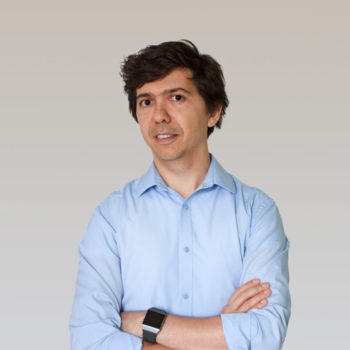
Paul Patras is a co-founder and CEO of Net AI, and Associate Professor in the School of Informatics at the University of Edinburgh. Dr Patras has over 10 years of experience of leading research at the intersection of mobile networking, artificial intelligence and security, some of which has been transferred from the lab into commercial products. He has spearheaded the use of deep learning to solve several problems in the mobile networking domain, which were previously considered intractable. This includes mobile traffic decomposition and uncertainty-/capacity-aware traffic forecasting, for which Net AI holds unique IP.
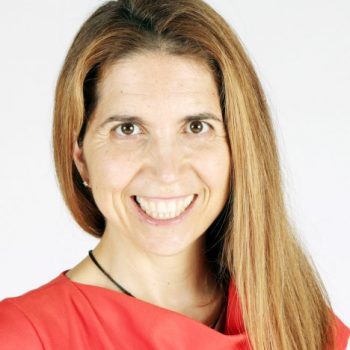
Nuria Oliver is Scientific Director and one of the founders of ELLIS Alicante. She is co-founder and vice-president of ELLIS.
Previously, she was Chief Scientific Advisor to the Vodafone Institute, Director of Data Science Research at Vodafone, Scientific Director at Telefónica and researcher at Microsoft Research. She holds a PhD from the Media Lab at MIT and an Honorary Doctorate from the University Miguel Hernández. She is also Chief Data Scientist at DataPop Alliance. During the COVID-19 pandemic, she held an honorary position as Commissioner to the President of the Valencian Government on AI and Data Science against COVID-19. She advises several universities, governments and companies.
She is an IEEE Fellow, and ACM Fellow, and EurAI Fellow and elected permanent member of the Royal Academy of Engineering of Spain. She is also a member of CHI Academy, the Academia Europaea and corresponding member at the Academy of Engineering of Mexico. She is well known for her work in computational models of human behavior, human computer-interaction, mobile computing and big data for social good. Named inventor of 40 patents. She has received many awards, including the MIT TR100 Young Innovator Award (2004), Spanish National Computer Science Award (2016), Engineer of the Year (2018), Valencian Medal to Business and Social Impact (2018), Data Scientist of the Year (2019), Jaume I Award in New Technologies (2021) and Abie Technology Leadership Award by AnitaB.org (2021). According to Research.com, she is the Spanish female computer scientist with largest scientific impact (2022-2024) .

Gabriela Ramos is the Assistant Director-General for the Social and Human Sciences of UNESCO, where she oversees the institution’s contributions to building inclusive societies. Her mandate includes tackling economic inequalities of income and opportunity, and promoting social inclusion and gender equality. She also oversees the youth support agenda, promotion of values through sport, fight against racism and discrimination, and ethics of science, including of neurotechnology and the internet of things. She has overseen the development and adoption of the first global instrument to promote the ethics of artificial intelligence, adopted by acclamation in 2021 by UNESCO’s General Conference. She also launched the Global Forum against Racism, to catalyse the political support that member countries have given to this cause. On gender, she has advanced several initiatives, particularly to combat gender stereotypes and biases, including in new technologies.
Previously, Gabriela Ramos worked as Cabinet Director and Sherpa for G20/G7APEC at the OECD, contributing to increasing the OECD’s global impact and leading key initiatives such as “Inclusive Growth”, “New Approaches to Economic Challenges”, “Climate Change and Growth”, the gender strategy and work on well-being and children. At the G20, she contributed to the international reform of tax systems; the adoption of the gender quota (to reduce the labour gap) and the establishment of the W20; and the adoption of the principles of artificial intelligence, among others. She also oversaw Global Relations and the OECD’s membership enlargement process.
In 2019, she launched the Business for Inclusive Growth (B4IG) platform, bringing together 40 multinational companies committed to reducing inequalities. Previously, she was Director of the OECD Office in Mexico and Latin America where she supported reforms in education, telecommunications, gender and health. She was a member of the Mexican Foreign Service.
In 2013, she was awarded the Order of Merit (Ordre du Mérite) by the President of France. Her work to promote gender equality has earned her several awards including from Forbes and Apolitico. She has been a Fulbright and Ford McArthur Fellow. She is an alumna of Harvard University’s Masters in Public Policy and Universidad Iberoamericana’s BA in International Relations. She is a board member of the “Paris Peace Forum”; the “UNICEF Advisory Board”; as well as the “Lancet Commissions on COVID and on Men’s Violence against Women”, and member of the Danone “Entreprise à Mission” Committee.
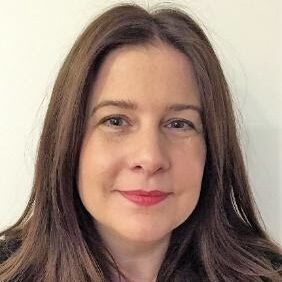
Ms. Hélène Molinier is the Senior Advisor on Digital Cooperation and the Thematic Lead for the GEF Action Coalition on Innovation and Technology at UN Women.
She was the Substantive Lead for the 67th session of Commission on the Status of Women (CSW67) is the author of the report of the UN Secretary General for CSW67 on “Innovation and technological change, and education in the digital age for achieving gender equality and the empowerment of all women and girls”. She is also the author of the UN Women position paper “Placing Gender Equality at the Heart of the Global Digital Compact” and the policy paper on “Leveraging Digital Finance for Gender Equality and Women’s Empowerment”.
Helene joined UN Women in 2018 and has over 20 years of experience with a number of organizations, including UNDP, WHO, UNICEF, The Global Fund, IDLO and the French Ministry of Foreign Affairs where she successfully developed and implemented innovative programming initiatives, including digital tools for youth empowerment, innovative finance mechanisms for biodiversity conservation, innovative legal preparedness frameworks, interactive capacity building methodologies and innovative grant making for legal empowerment and access to justice for vulnerable women. Her experience includes providing support for policy and regulatory reforms; strategic programming support to country offices, leading the design and implementation of large multi-stakeholder partnerships, developing inclusive and gender-transformative digital tools, frontier technology and social innovation. She has lived and worked in Morocco, South Africa, Benin, Congo Republic, Switzerland, Sri Lanka and Netherlands.
A national of France, Hélène holds a master’s in International Law and a master’s in Diplomacy and International Relations from Paris XI University.
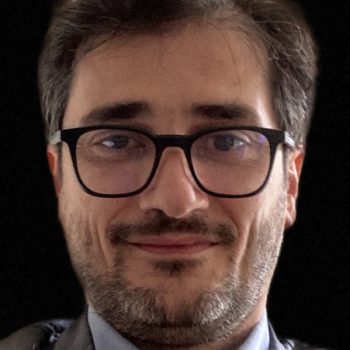
Andrea is a Senior System Analyst in the ITU Radiocommunication Sector. His current duties encompass software and radio communication engineering activities finalized to the design and implementation of software solutions and systems focused on the application of the provisions of the ITU Radio Regulations and Regional Agreements. He is also the ITU Focal Point for Geospatial Information Management and a Member of the Steering Committee of the UN Geospatial Network. He holds a Ph.D. in Physics (Indiana University, 2000) and an Executive MBA (Geneva University, 2011) with a specialization in International Organizations.
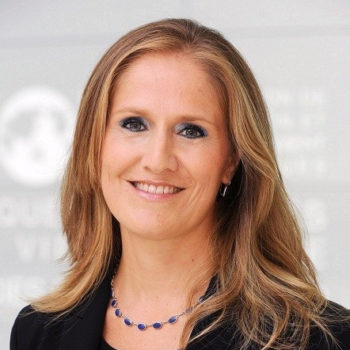
Mariagrazia Squicciarini is Chief of Executive Office and Director a.i. at the Social and Human Sciences Sector (SHS) of the United Nations Educational, Scientific and Cultural Organization (UNESCO).
At UNESCO, Mariagrazia supervises, coordinates, steers and helps advance policy-relevant work related to the social transformation, including the ethics of science and technology – in particular, of Artificial Intelligence; the youth; sport and antidoping; inclusion, antiracism and gender.
In the past, she has led and contributed policy relevant analysis related to the changing determinants of growth and productivity; the economics of Intellectual Property Rights (IPR); knowledge-based capital; global value chains; the digital transformation and AI; job and skill dynamics; and the digital gender divide.
Mariagrazia holds a Ph.D. in Economics from the University of Essex (UK). Before joining UNESCO, Mariagrazia worked for more than ten years at the OECD Directorate for Science Technology and Innovation as Senior Economist – Head of Unit. Prior to joining the OECD, she had a number of appointments, including at VTT Technical Research Centre of Finland (FI), the University of Essex (UK) and the European Commission-Joint Research Centre (IPTS, ES).
She has published extensively and has been acting as a reviewer for international peer-review journals and governments.
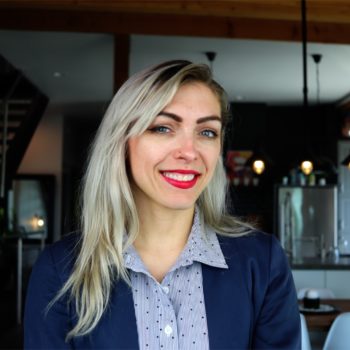
Sara Berger is a Research Staff Member at IBM Research. Sara received her PhD in systems and cognitive neuroscience from Northwestern University, with an emphasis on chronic pain conditions, clinical psychology, and bioethics. In the past, she has focused on identifying, quantifying, treating, and predicting changes in acute and chronic pain in animals and humans using machine learning, neurotechnology, and other methods – with over a decade of experience in the field of pain. Sara’s knowledge and skills also span clinical trial management and design, critical disability studies, and NLP. At IBM, she has applied her knowledge of neuroimaging, psychology, and behavioral research to address a wide variety of questions and applications. She is currently leveraging her multidisciplinary interests and background to design frameworks, tools, and methods that aid researchers and practitioners in being more proactively responsible in their projects and products, including in the field of neurotechnology. In 2021, Sara was named one of MIT Tech Review’s 35 Innovators and Visionaries under 35.

Shelly Levy-Tzedek is an associate professor and the director of the Cognition, Aging & Rehabilitation Laboratory at Ben Gurion University.
Prof. Levy-Tzedek completed her undergraduate studies, summa cum laude, at UC Berkeley, where she won the Bioengineering departmental citation medal. At the Massachusetts Institute of Technology (MIT), she completed her M.S. and her Ph.D. degrees as an MIT Presidential Fellow and a Howard Hughes Medical Institute fellow, in the Biomedical Engineering department.
Chosen as one of Israel’s most promising 40-under-40 by The Marker Magazine for 2016, she also won the 2016 award from the Paedagogica Foundation’s special program entitled “Initiative for Excellence in the Negev”. In 2018, she won the Toronto Prize for excellence in research. In 2019 she participated in the Dagstuhl Seminar on Verification and Synthesis of Human-Robot Interaction. In the academic year 2018-19, Prof. Levy-Tzedek was a guest professor at the University of Freiburg in Germany as part of the Marie S. Curie FRIAS COFUND Fellowship Program, supported by the European Union through the Horizon 2020 research and innovation programme.
She takes a multi-disciplinary approach to her studies, in which her lab team studies how to best employ robotics to facilitate a fast and efficient rehabilitation process (e.g., in stroke and in Parkinson’s disease), and the various ways in which interaction with social robots can help users (e.g., to reduce pain, or perform cognitive training).
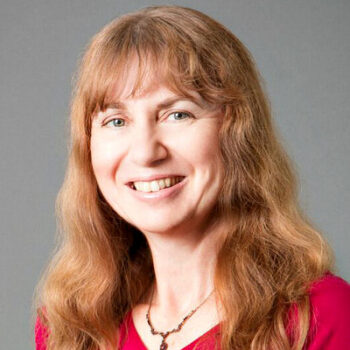
Maja Matarić is the Chan Soon-Shiong Distinguished Professor in the Computer Science Department, Neuroscience Program, and the Department of Pediatrics University of Southern California, founding director of the USC Robotics and Autonomous Systems Center (RASC), co-director of the USC Robotics Research Lab, and the lead of the Viterbi K-12 STEM Center. She received her PhD in Computer Science and Artificial Intelligence from MIT in 1994, MS in Computer Science from MIT in 1990, and BS in Computer Science from the University of Kansas in 1987.
Prof. Matarić is Fellow of the American Association for the Advancement of Science (AAAS), Fellow of IEEE, Fellow of the Association for the Advancement of Artificial Intelligence (AAAI) and Fellow of the Association for Computing Machinery (ACM). She is a recipient of the Presidential Awards for Excellence in Science, Mathematics & Engineering Mentoring (PAESMEM) from President Obama, the Anita Borg Institute Women of Vision Award for Innovation, Okawa Foundation Award, NSF Career Award, the MIT TR35 Innovation Award, and the IEEE Robotics and Automation Society Early Career Award. At USC she has been awarded the Viterbi School of Engineering Service Award and Junior Research Award, the Provost’s Mentoring Award and Center for Interdisciplinary Research Fellowship, the Mellon Mentoring Award, the Academic Senate Distinguished Faculty Service Award, a Remarkable Woman Award, and was named a Distinghished Professor. She is featured in the science documentary movie “Me & Isaac Newton”, in The New Yorker (“Robots that Care” by Jerome Groopman, 2009), Popular Science (“The New Face of Autism Therapy”, 2010), the IEEE Spectrum (“Caregiver Robots”, 2010), and is one of the LA Times Magazine 2010 Visionaries.
Prof. Matarić has published extensively, is the author of a popular introductory robotics textbook, “The Robotics Primer” (MIT Press 2007), is on the editorial board of the ACM Transactions on Human-Robot Interaction, and has served as an associate editor of three major journals. She has served on a number of advisory boards, including the National Science Foundation Computing and Information Sciences and Engineering (CISE) Division Advisory Committee, the Computing Community Consortium (CCC) Council, and the Willow Garage and Evolution Robotics Scientific Advisory Boards.
Prof. Matarić’s Interaction Lab’s research into socially assistive robotics is aimed at endowing robots with the ability to help people help themselves, through individual non-contact assistance in convalescence, rehabilitation, training, and education. Her research is developing algorithms, models, and methods for personalized robot-assisted therapies for children with autism spectrum disorders, infants at risk for movement delays, stroke and traumatic brain injury survivors, individuals with Alzheimer’s Disease and other forms of dementia, as well as healthy elderly and other user populations. Her research team has developed some of the first and longest deployments of such system in real world settings: hospitals, therapy centers, schools, and homes.
Prof. Matarić is actively involved in K-12 educational outreach. She is the lead of the USC Viterbi K-12 STEM Center, and has raised federal, corporate, and foundation grant support for and developed free open-source curricular materials for elementary, middle-school, and high school robotics courses, K-12 teacher development programs, K-12 STEM equity and inclusion programs, and after-school robotics programs and competition training, all aiming to engage student interest in science, technology, engineering, and math (STEM) topics.
Prof. Matarić’s university leadership experience includes serving as the appointed USC Interim Vice President of Research (Jan 2020-Jul 2021), the appointed USC Viterbi School of Engineering Vice Dean for Research (Jul 2006-Dec 2019), and as the elected President of the USC faculty and the Academic Senate (2005-2006).
Prof. Matarić is also the co-founder of Embodied, Inc., which launched Moxie (in May 2020), an in-home socially assistive robot for supporting child development.

I am a Full Professor of Informatics and Cognitive Science at Indiana University, Bloomington. I founded and direct the R-House Laboratory for Human-Robot Interaction research at IUB. My work combines the social studies of computing, focusing particularly on the design, use, and consequences of socially interactive and assistive robots in different social and cultural contexts, with research on human-robot interaction (HRI) and social robot design. My main research goals are threefold: (1) developing a critical understanding of the development and use of socially interactive robots in society; (2) studying how social and cultural factors influence robotics science and technology development; and (3) using critical perspectives and insights from the social study of interactive robotic technologies to design, implement, and evaluate socially and culturally situated robots. My research has been funded by the National Science Foundation, the Institute of Electric al and Electronics Engineers, and Indiana University. I received my PhD in Science and Technology Studies from Rensselaer Polytechnic Institute in 2007. I was a visiting guest professor at Bielefeld University’s Cognitive Interaction Technology — Center of Excellence in Summer 2014. In 2008/2009, I was a lecturer in Stanford University’s Program in Science, Technology and Society. I was also a visiting scholar at the Intelligent Systems Institute in AIST, Tsukuba, Japan and the Robotics Institute at Carnegie Mellon University in 2005.

Ms. Zhiping Chen joined ZTE in 1999. She currently serves as Vice President and Head of Branding & PR Strategies at ZTE. Before that, Ms. Chen successively assumed management positions in charge of wireless system R&D, global marketing and corporate branding.
Ms. Chen holds a master degree in engineering from Huazhong University of Science and Technology. With extensive experience in the telecoms industry for over two decades, Ms. Chen has been engaged in R&D, operation and branding for many years, gaining profound and unique insights into business areas such as industry trend, business model innovation, planning and management of branding strategies in the international telecommunications field.
Ms. Chen has been rewarded the ”Technical Person of the Year 2017” Award issued by China Association of Communication Enterprises (CACE), and she is a member of the “2018 Top 10 Leaders in 5G” list issued by Communications World.
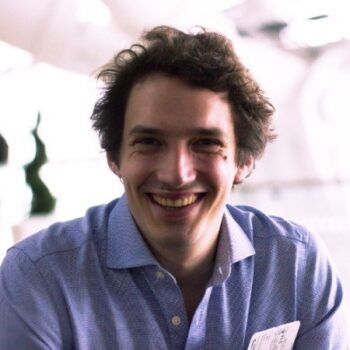
Jeremias’ research focuses on technology, innovation policy, and the future of work in the European Union and beyond. He is a Fellow of Magdalen College. Jeremias read law at Oxford, Paris, and Harvard Law School, and has held visiting teaching and/or research positions at institutions including Hong Kong University, the Max Planck Institute Hamburg, Renmin Law School Beijing, University College London, the University of Vienna, and Yale Law School.
His book Humans as a Service (OUP 2018, Paperback 2019) explores the promise and perils of work in the gig economy across the world. It was awarded the 2019 St Petersburg Private Law Prize, and has been translated into multiple languages. Jeremias’ research on innovation policy and labour market regulation is frequently drawn on by governments and international organisations, including the European Commission, the International Labour Organisation, and the OECD, and has been cited by courts, policy documents, and news organisations in multiple jurisdictions. He has served on the World Economic Forum’s Global Future Council on the New Agenda for Work, Wages, and Job Creation.
Jeremias is the author of Great Debates in EU Law (with Prof Sanja Bogojević, 2021), and the founding editor of the EU Law in the Member States Series (Hart), exploring the impact of Union law across the Member States. His contributions to that series include The EU Charter of Fundamental Rights in the Member States (2020, with M Bobek), Air Passenger Rights, Ten Years On (2016, with M Bobek), and Viking, Laval and Beyond (2015, with M Freedland). He is currently writing an introduction to EU Labour and Internal Market Law for OUP’s Clarendon Law Series.
Together with Professor Abi Adams-Prassl of the Oxford Department of Economics, Jeremias also writes on the law and economics of fragmenting labour markets and access to justice. His work has been recognised by a number of prizes for teaching, research, and public impact, including the Wedderburn Prize and the Apgar Prize, an Oxford University Teaching Award, a British Academy Rising Star Engagement Award (for work on EU labour law), an O2RB Excellence in Impact Award, and an ESRC Outstanding Impact in Public Policy Prize.

David Crandall is the Luddy Professor of Computer Science at Indiana University, where he is also the Director of the Luddy Artificial Intelligence Center. He obtained the Ph.D. in Computer Science from Cornell University and the B.S. and M.S. degrees in Computer Science and Engineering from the Pennsylvania State University. He was a Senior Research Scientist at Eastman Kodak Company from 2001-2003. He has been PI or Co-PI on over $25 million in research grants and contracts, he has published over 200 technical articles in top international venues, and has received best paper awards or nominations in CVPR, WWW, CHI, ICCV, and ICDL. He is an Associate Editor of the IEEE Transactions on Pattern Analysis and Machine Intelligence and the IEEE Transactions on Multimedia, Program Co-chair for WACV 2023, CVPR 2024, and ICDL 2024, and has served as an Area Chair for numerous top conferences. He has received an NSF CAREER award (2013), two Google Faculty Research Awards (2014 and 2020), an IU Trustees Teaching Award (2017), a Grant Thornton Fellowship (2019-2023), and a Luddy Professorship (2021).

Dr. Evgeni Gousev is a Senior Director of Engineering in Qualcomm Research. He leads HW R&D org in the Silicon Valley Center and is also responsible for developing ultra low power embedded computing platform, including always on machine vision AI technology. He has been with Qualcomm Technologies, Inc. since 2005 after joining from IBM T.J. Watson Research Center where he drove projects in the field of advanced silicon technologies. Evgeni serves as the Chairman of the Board for tinyML Foundation. In 2020, Dr. Gousev was inducted into the “Hall of Fame” of SEMI MEMS and Sensors Industry Group.
From 1993 to 1998, Dr. Gousev held academic professorship appointments with Rutgers University and Hiroshima University (1997). Evgeni holds a M.S. degree in Applied Physics and a Ph.D. in Solid-State Physics. He has co-edited 24 books and published 163 papers and is an inventor on more than 60 issued and filed patents.
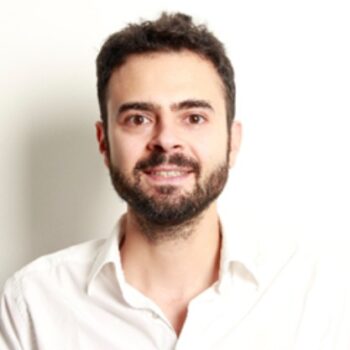
Antonio De Domenico (Senior Member, IEEE) received the M.Sc. degree in telecommunication engineering from the University of Rome La Sapienza in 2008, and the Ph.D. degree in telecommunication engineering from the University of Grenoble in 2012. From 2012 to 2019, he was a Research Engineer with CEA LETI MINATEC, Grenoble, France. In 2018, he was a Visiting Researcher with the University of Toronto, Canada. Since 2020, he has been a Principal Engineer with Huawei Technologies France SASU, Paris, France. Dr. De Domenico has organized several workshops/special sessions in IEEE flagship conferences including IEEE Globecom and IEEE ICC, and he has been a member of the technical program committee of a number of IEEE conferences, and guest editor or IEEE journal special issues. Antonio is the main inventor or a co-inventor of more than 25 patents, and the co-author of more than 80 publications. Since 2023, he has been co-leading the network energy efficiency activities within the green future network project of the NGMN Alliance and actively participating to AI-native telecom network activities in ITU-T SG13. His research interests include heterogeneous wireless networks, machine learning, and green communications.

A disruptive tech advocate and decentralised AI expert with published works on Ethics and Regulation of AI. My leadership role at SingularityNET entails responsibility for technology, operations, marketing, investment, accounting and payments, strategic partnerships, business development, decentralisation and Deep Funding (SingularityNET’s community driven crypto-accelerator programme).
Leading AI and Blockchain initiatives across multiple vertical markets including robotics, biotech, gaming and metaverse, media, DeFi, music and arts, I was with the team that launched the world’s first humanoid robot fronted band; the Jam Galaxy Band at NAMM festival in LA in June 2022. I am co-founder of Cogito Protocol, an algorithmic tracer-coin that is the missing piece in crypto-assets.
I am committed to a positive and beneficial Singularity for the benefit of all of humanity, and have a special love of African music and culture, with interest in education, sustainability and jobs in Africa. I am also passionate about diversity, inclusion and equality.
Other interests are Tai Chi, Chi Gung, yoga, meditation, and growing to contribute the most I possibly can in this lifetime
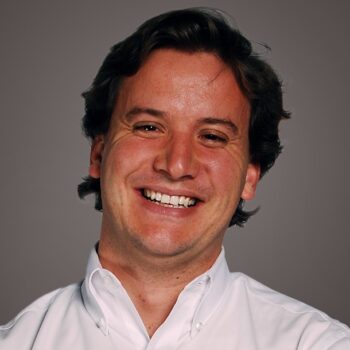
Juan M, Lavista Ferres is currently the Chief Scientist and Lab Director of the Microsoft AI For Good Research Lab, where he works with a team of data scientists and researchers in AI, Machine Learning and statistical modeling, working across Microsoft AI For Good efforts. These efforts includes projects in AI For Earth, AI for Humanitarian Action, AI For Accessibility and AI For Health.
Juan joined Microsoft in 2009 to work for the Microsoft Experimentation Platform (EXP) where he designed and ran randomized control experiments across different Microsoft groups. Juan also worked as part of the Bing Data Mining team, where he led a group applying data mining, machine learning, statistical modeling and online experimentation at a large scale as well as providing data services for Bing.
Juan started the Microsoft efforts related to SIDS (sudden infant death syndrome), and his work has been published in top academic Journals including Pediatrics. His work has been covered in New York Times, CNN, Chicago Tribune, USNews, USAToday , and over 100 news outlets around the world.
Juan is involved in working to define the data science discipline within Microsoft, and is currently the editor of the Microsoft Journal of Applied Research (MSJAR).
Before joining Microsoft, Juan was the CTO and co-founder of alerts.com. Previously, he spent 6 years in Washington working at the InterAmerican Development Bank applying data science to understand the impact of programs for reducing poverty and inequality in Latin-America and the Caribbean. Juan has two computer science degrees from the Catholic University in Uruguay, and a graduate degree in Data Mining and Machine Learning from Johns Hopkins University. He lives in Kirkland, WA, with his wife and three children. He has been a speaker in the US at Strata, IEEE, Berkeley, Cornell, and in many countries including Canada, Switzerland, Argentina, Colombia , Costa Rica, and Uruguay, and he also was a TedX Speaker.

Prof. Takanori Shibata received B.S., M.S. and Ph.D. in Electronic and Mechanical Engineering from Nagoya University in 89, 91 and 92, respectively. He was a research scientist at AIST, MITI from 93 to 98. Concurrently, he was a visiting research scientist at the Artificial Intelligence Lab., MIT from 95 to 98. At the AIST, Dr. Shibata was a senior research scientist from 98 to 13. Concurrently, he was the Deputy Director for Information and Communication Technology Policy, Cabinet Office of Japan in 2009 and 2010. Since 2013, he has been the current position, and concurrently, a Professor at School of Computing, Tokyo Institute of Technology, and a visiting fellow, AgeLab, MIT. His research interests include human-robot interaction, robot therapy, mental health for astronauts in long-term mission (e.g. to Mars), and humanitarian de-mining. He received many awards including the Japanese Prime Minister’s Award in 2003, and The Outstanding Young Person of the world by Junior Chamber International in 2004. In 2015, PARO was awarded the “Patient Trophy” as innovation of non-pharmacological therapy for dementia by AP-HP, France. In 2018, Prof. Shibata was awarded the “Ryman Prize” that is the most prestigious award in the fields of geriatric medicine, welfare and health in the world. In 2022, he was awarded the 10th Anniversary Special Robot Award by the Gov. of Japan.

Vicky Charisi is a Research Fellow at Harvard University, Berkman Klein Centre, working at the intersection of Child development, Artificial Intelligence (AI), Children’s Rights and AI in Education. With extensive research experience in child-AI interaction and child-robot interaction, she contributes to the field from a research, policy, and design perspective through collaborations with major international organizations and governments, academia and industry. She prioritizes child participation and through cross-cultural studies she has developed an expertise on AI and Children at a local, regional and global level. With her project at the Berkman Klein Centre, she explores the opportunities and challenges in designing and evaluating AI systems to support children’s Global Citizenship Education. Previously, she worked at the European Commission, Joint Research Centre as a Research Scientist leading projects on AI and children. She has co-authored more than 60 scientific publications and 15 Science for Policy reports and she serves as a vice chair of the IEEE Society on Computational Intelligence, Cognitive and Developmental Systems, TF Human-Robot Interaction.
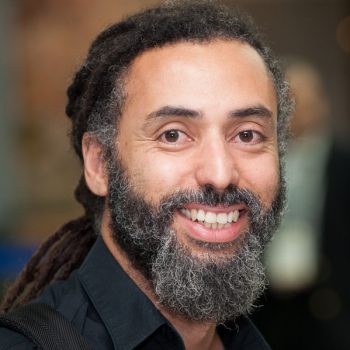
Ricardo Chavarriaga is a researcher and public speaker in neurotechnologies, artificial intelligence, and responsible innovation. Dr Chavarriaga leads the Responsible AI Innovation group at at the Center for Artificial Intelligence of the Zürich University of Applied Sciences (ZHAW) and is the head of the Swiss office of the Confederation of Laboratories for AI Research in Europe (CLAIRE). His work is focused on leveraging neuroscience, AI, and ethics for advancing responsible innovation and governance of human-centered technology
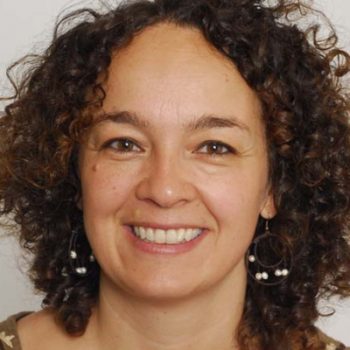
Milena Costas Trascasas is the Chair of the UN Human Rights Council’s Advisory Committee and the rapporteur of the study on human rights and neurotechnology which will be submitted to the Human Rights Council in September 2024. (https://www.ohchr.org/en/hr-bodies/hrc/advisory-committee/neurotechnologies-and-human-rights)
Holding a PhD in public international law from the University Complutense of Madrid, she is specialized in human rights and international humanitarian law. She has carried out research, published and taught in several universities and academic institutions in Spain, Italy, and Switzerland. Milena currently works as independent expert and legal adviser for international organizations, governments, and non-governmental organisations.

Janet Wiles is a Professor in Human Centred Computing at the University of Queensland and leads the Future Technologies Thread of the ARC Centre of Excellence for the Dynamics of Language (CoEDL).
Her multidisciplinary team co-designs language technologies to support people living with dementia and their carers; new tools to enable Indigenous communities to develop their own speech recognition systems; and social robots for applications in health, education, and neuroscience.
She received her PhD in computer science from the University of Sydney, and completed a postdoctoral fellowship in psychology. She has 30 years’ experience in research and teaching in machine learning, artificial intelligence, bio-inspired computation, complex systems, visualisation, language technologies and social robotics, leading teams that span engineering, humanities, social sciences and neuroscience. She currently teaches a cross disciplinary course ”Voyages in Language Technologies” that introduces computing students to the diversity of the worlds Indigenous and non-Indigenous languages, and state-of-the-art tools for deep learning and other analysis techniques for working with language data.
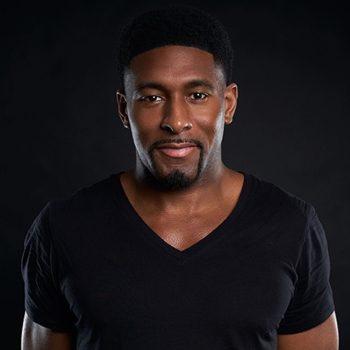
Brandon Andrews is co-founder of Gauge; an AI-driven mobile market research platform connecting brands to consumers and influencers to identify opportunities and avoid mistakes. He has done casting for ABC’s Shark Tank and other business shows on TV for a decade; meeting thousands of entrepreneurs each year. Named a Global Innovation Fellow by the U.S. Department of State, he has traveled the world speaking and hosting events on entrepreneurship and innovation.
He helped build and hosted the inaugural CGI Entrepreneurship Greenhouse at Clinton Global Initiative. He has also headlined entrepreneurship programming around the world including Bishkek, Kyrgyzstan; Dushanbe, Tajikistan; the Unleash+ pitch competition in Mysore, India; and four-part artificial intelligence event series in Kampala, Uganda.
Working with AI for Good he hosts Innovation Factory pitch competitions around the world. He also created and hosts the Impact with AI podcast engaging entrepreneurs using AI to support the United Nations Sustainable Development Goals.
He managed the #TechtoWealth Tour with DJ Young Guru. Designed to get 10K people of color coding, #TechtoWealth brought tech events to WeWork locations in the final six OTRII Tour cities + BET Hip Hop Awards with $1M in coding scholarships available from Opportunity Hub and Flatiron School.
Previously, Brandon empowered public affairs, technology, and real estate clients at MWWPR. He spent 5 years in the United States Senate where he handled technology, small business, and defense policy.
He is Chairman of the DC Commission on National and Community Service. A former fashion model, he serves on the DC Commission on Fashion, Arts, and Events and works with fashion/beauty entrepreneurs.
He provides commentary on policy, politics, business and tech on TV, radio, and the web.
A former Division-1 track athlete, Brandon is a graduate of Oral Roberts University.

A lawyer, medical doctor, and successful software founder, Danny is the 2023 Financial Times Innovative Lawyer of the Year and led Business Insider’s 2022 list of top lawyers helping companies adopt artificial intelligence (AI). Danny leads DLA’s team helping Fortune 10, 50, 500 and global brands cross-industry adopt new and disruptive technologies like AI, including in risk mitigation, governance, and litigation. Danny also represents leading life sciences and healthcare companies in matters involving FDA, CMS, HHS, commercial parties, and claimants. The U.S. Library of Congress gave Danny a Burton Award recognizing “the best of the best writers in the legal profession” among the nation’s top 1,000 largest firms.
A graduate of Harvard College, Yale Law School, and UT Southwestern Medical School, Danny has handled successfully some of his clients’ most challenging and important matters. He played a key legal role in the Covid vaccine effort, helped obtain one of the largest Daubert wins in a pharmaceutical mass action, designed the winning scientific case in the first Hatch-Waxman suit in the Eastern District of Texas, and obtained a unanimous reversal in federal appellate court in a much-cited R&D tax case of first impression. He has successfully handled as lead counsel litigations arising from biotech M&A transactions and has resolved board and shareholder disputes for life-science companies. Danny has represented healthcare clients in matters ranging from internal investigations to business litigation.
Danny is a world-recognized leader in the law and regulation of AI. He sits on the World Economic Forum’s AI Governance Alliance and the Executive Committee of the United Nation’s AI for Good law track. Danny is a founding member of the Health AI Partnership with the Mayo Clinic, Duke, Berkeley, and others, and sat on Pfizer’s Digital Health Scientific Advisory Board. He moderated the closed-door Ministerial Roundtable in Morocco on Improving Health Outcomes in Africa through Innovative Solutions and has hosted the Principal Deputy Commissioner of FDA, U.S. Senators, and others for fireside chats on key issues of public concern. Danny is a frequent invited speaker on AI governance and law, including for the Attorney General Alliance, National Retail Foundation, National Association of Corporate Directors, the Business Council, Stanford Rock Center for Corporate Governance, Stanford Law School, Harvard Business School’s OPM Annual Conference, the Swiss Embassy, the Korean Chamber of Commerce & Industry, the Association for the Advancement of AI, and many others. Danny represents numerous companies on AI governance and adoption, as well as the leading foundation model and other innovators. His clients also include breakout startups like IDx, the first FDA-approved fully autonomous AI diagnostic, with whom he authored the peer-reviewed Lessons Learned About Autonomous AI: Finding a Safe, Efficacious, and Ethical Path Through the Development Process. Danny’s writing on legal issues in medicine and biotechnology appears in National Law Journal, American Health Law Association Connections, Proceedings of the Association for the Advancement of Artificial Intelligence, Yale Journal of Law & Technology, the American Journal of Ophthalmology, and Health Law Litigation. Danny led a successful software company from inception to acquisition. His original medical research appears in Pediatric Blood & Cancer and the Journal of Child and Adolescent Psychopharmacology.
Beyond healthcare, Danny has represented private equity, finance and other clients in some of their most pressing cases in state and federal court. He has argued successfully before the en banc Delaware Supreme Court and the Fifth Circuit Court of Appeals among others.
Danny is Chair of the Board of Directors of the non-profit AT&T Performing Arts Center, the largest performing arts district in the United States. He chaired the Legal Advisory Counsel of the Perot Museum of Nature and Science and has served on the boards of the Parkland Foundation, SPCA of Texas, Texas Israel Alliance, and the regional Anti-Defamation League. He has co-chaired the Judiciary Committee and the Membership & Admissions Committee of the Dallas Bar Association and served on the Governing Council of its Business Litigation Section. Danny previously served on the Executive Committee of the Yale Law School Association.
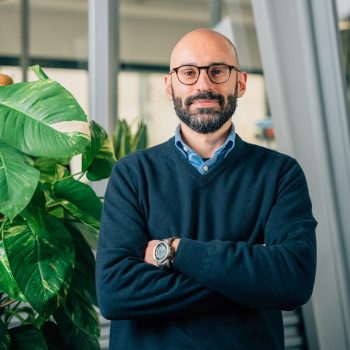
Angelo Amicarelli graduated from high school and then attended mechanical engineering at the Politecnico di Milano. Parallel to his studies, he cultivated his passion for meteorology. In 2008 he founded his own professional meteorology company, MeteoArena SRL, becoming the sole representative for Italy of Meteoblue AG.
He first developed specific skills in the field of weather forecasting, both traditional and nowcasting and radar meteorology. He then honed his entrepreneurial and marketing skills by attending internships at meteoblue AG followed by Dr Karl Gutbrod, CEO of the company and lecturer in International Business Strategy at the University of Lorrach, Germany.
In 2019, he joins Finapp as Key Account Manager, bringing his experience in the entrepreneurial field.

John Samuel Gibson is an American trial lawyer and litigator who has served as founding chair of the United Nations’ AI for Good law track and is lead counsel for some of the world’s top technology companies. He is a DLA Piper partner and co-chair of the firm’s U.S. Business and Commercial Litigation practice. John has deep experience analyzing and litigating issues involving new technology platforms and ecosystems as they seek to balance incentives for both development and adoption. He is committed to exploring the use of foundational legal tools to conquer fundamental challenges posed by AI’s emergence—and thus help make “AI ready for the world, and the world ready for AI.”
In 36 years of practice, John has won high-profile trials and save-the-company cases for industry leading companies, professional sports teams, celebrities, and pro bono clients seeking social justice. These range from winning what the media called the “Trial of the Decade” in Los Angeles and winning one of California’s top jury verdicts to winning the nation’s first mandatory federal court injunction requiring a school district to accommodate the service dog of a student with autism. John has also figured prominently in litigation involving emerging technology ecosystems. He defeated a threatened injunction against launch of a leading mobile-device maker’s 4G devices regarding the client’s role in technical standard-setting for 4G-LTE mobile technology. And he won summary judgment for a leading global technology company—defeating an unfair competition law claim in a precedent-setting litigation to determine fair, reasonable, and non-discriminatory (FRAND) licensing terms for a worldwide portfolio of standard-essential mobile-telecommunications patents. He has also represented clients in non-litigation interactions with governments and competition law enforcement agencies around the world.
John has been named one of The Best Lawyers in America, as well as one of the Daily Journal’s Top Antitrust Lawyers of the Year and is rated AV Preeminent 5.0 out of 5.0 by Martindale-Hubbell. He won the Burton Award for being one of the “finest law firm writers of 2019” in a ceremony presided over by the Chief Justice of the U.S. Supreme Court.
John has spoken internationally on issues at the intersection of law and technology. He was a speaker at the UN’s first-ever AI Governance Day in Geneva. He also spoke on the topic of “Developing Standards For 3D Printing” at The Legal, Regulatory and Business Conference on 3D Printing in Chicago and “SEPs and FRAND: The US Approach” at the EU Competition Law: Current Issues in a Global Context event in Brussels. And John authored the article “Antitrust Law in the AI Age; Navigating the New Frontier,” published in the Daily Journal.
He has served on numerous charitable boards and is a member, alongside former U.S presidents, Supreme Court justices, and Nobel Prize winners, of the Washington, D.C.-based Cosmos Club for “persons of scholarship, creative genius, or intellectual distinction.”
John earned his undergraduate degree from Harvard University, where he was a John Harvard Scholar (top 5% of undergraduate students) and his doctorate in jurisprudence from the University of Michigan Law School, where he was an editor of the Michigan Law Review.
His multifaceted legal experience at the intersection of law and technology, his success as a leader and trial lawyer, and his commitment to social justice make John an invaluable asset and distinguished authority sought after by the international community in the evolving landscape of AI and law.
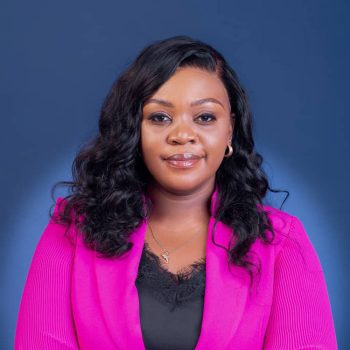
Hon Dr Tatenda Annastacia Mavetera is Zimbabwe’s Minister of Information Communication Technology, Postal and Courier Services. She is a youthful member of Parliament representing Chikomba West Constituency in Mashonaland East Province in Zimbabwe.
Since her appointment, several projects have been designed to accelerate universal access to Broadband services have been initiated in Zimbabwe.
Before being appointed Minister, Hon Dr Mavetera was a member of the Pan African Parliament, where she was the first Vice President of the Youth Caucus. At the beginning of the 9th Zimbabwean Parliament, she was appointed Assistant Speaker where she chaired Parliament and committees in the house. She is passionate when it comes to youth and women issues in Zimbabwe. She initiated the youth caucus in the 9th Parliament, in a bid to see youth issues being addressed, furthermore, she was a member of the Budget and Justice Committees.
In 2021, she initiated a movement dubbed Young Women 4ED which is designed to ensure that young women are not ignored in all aspects of life.
She holds an Honours Degree in Management and Marketing and a Masters in Strategic Marketing. She is a strategic marketer and information communication expert, who has been in the Information Communication and Transport industry for the past 11 years.
Hon Dr.Tatenda Annastacia was awarded a Doctorate in Humane Letters from the International Women’s University for the contribution she has made to emancipate women, more importantly, young women in Zimbabwe. She is currently studying for another doctorate in Business Leadership at the Midlands State University.

Mr Metzger became IEC Secretary-General and CEO on 1 February 2020. Prior to joining IEC, he was Director-General of the Swiss Federal Office of Communications (OFCOM). Mr Metzger was also previously Deputy to the Director of the Development Bureau at the International Telecommunication Union (ITU) and Director of the European Free Trade Association (EFTA). Trained as a lawyer, Mr Metzger has issued several publications on the World Trade Organization (WTO) and competition law.
The Secretary-General is the Chief Executive Officer of the Commission and is responsible for its day-to-day operations.

Tyler Orcutt is a Houston-based dance artist currently in his fourth season with NobleMotion Dance, where he has performed nationally and internationally; he was recently a featured performer in Andy Noble’s Science Worth Dancing About, a 2023 TEDx Talk. Tyler is also a lecturer of dance at Sam Houston State University, his alma mater.
Prior to his move to Texas, Tyler spent eight seasons with Repertory Dance Theatre (2012-2020). His RDT career included performing lead roles in historical works by Ted Shawn, Michio Itō, Doris Humphrey, José Limón, Donald McKayle, and Merce Cunningham, as well as contemporary works by Bebe Miller, Lar Lubovitch, Danielle Agami, Bill Evans, Noa Zuk & Ohad Fishof, and Zvi Gotheiner, among many others.
Tyler has formerly served as adjunct faculty at the University of Houston, and faculty at studios in Texas, Utah, and Florida. His education includes an MFA in Dance from SHSU and a BFA in Dance from the University of South Florida. His choreography has been presented at Dance Italia, Barnstorm Dance Festival, American College Dance Association, RDT’s Emerge, SHSU, and Scottsdale Community College; his most recent commission will be performed by Movement Source Dance Company in 2024.
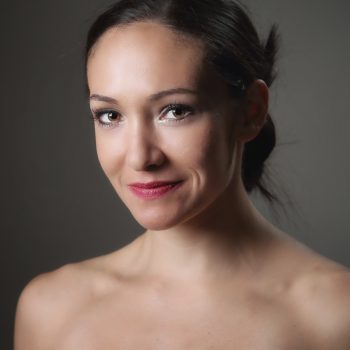
Lauren Serrano is originally from Orange County where she trained at many local studios and attended Orange County High School for the Performing Arts for classical and commercial dance. She graduated from University of California Santa Barbara with a B.F.A. in dance, and in addition to her Masters in Dance Education from the Arnhold Graduate Dance Education Program at Hunter College in 2015. In New York City, Lauren had the opportunity to work with choreographers such as Jennifer Muller, Young Soon Kim, Toni Renee Johnson, Pedro Ruiz, and Mike Esperanza. Lauren moved back to Santa Barbara to teach and direct the youth competitive teams at Santa Barbara Dance Arts while dancing with Santa Barbara Dance Theater and as a soloist for Nebula Dance Lab. While dancing with SBDT she performed works by Andrea Schermolly, Yusha Sorzano, Christopher Pilafian, Jennifer Muller, Stephanie Miracle, Brandon Whited, and Edgar Zendejas. She is currently based in Houston, Texas and dances with NobleMotion Dance directed by Andy and Dionne Noble. With NobleMotion Dance she co-directs NobleMotion Dance 2 and is the managing and marketing director. She was recently featured as a dancer in the TEDx Talk Science Worth Dancing About. Lauren recently graduated from Sam Houston State University with her M.F.A. and is joining the faculty as a lecturer teaching Modern Dance, Pedagogy, Pilates and Dance and Popular Culture.
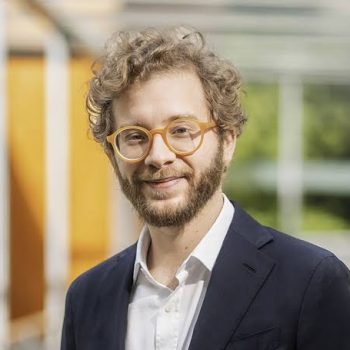
Nuno Moniz is an Associate Research Professor at the Lucy Family Institute for Data & Society, University of Notre Dame. He is also the Director of the Notre Dame-IBM Technology Ethics Lab and the Associate Director of the Data, Inference, Analytics, and Learning (DIAL) Lab. Moniz, who joined the University of Notre Dame in 2022, is an expert on machine learning, investigating challenges such as imbalanced learning and rare event detection, data privacy, and model interpretability, for which he has won multiple awards internationally. He is particularly interested in interdisciplinary efforts to understand the real-world impact of automated systems.
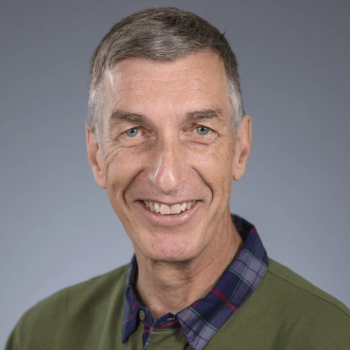
I’m leading a research group on socially aware AI that creates computational models of social aspects such as norms, values, practices, and conventions. These models can be used to create social simulations that are more realistic and give insights into how society will react to changes in policies and natural disasters. They are also used to create more natural dialogues with chatbots that can be used for training medical students to have conversations with patients.
My career started with my Ph.D. in 1989 at the VU in Amsterdam. After working in Swaziland, Portugal and The Netherlands I became Wallenberg chair in socially aware AI at Umeå University in 2019. I also have an affiliation with Utrecht University and am an honorary principal research fellow of the University of Melbourne.
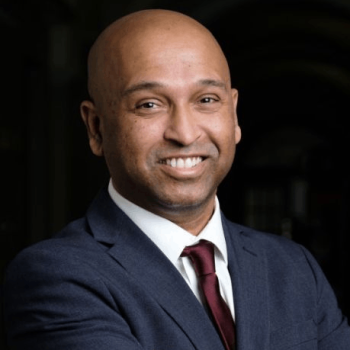
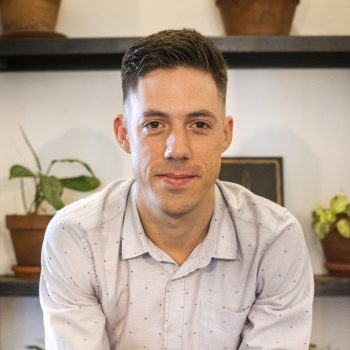
Paul Kennedy is a community builder and startup generalist with a drive to help organisations thrive and make the world a better place. He has worked with a broad range of businesses, non-profits, public sector organisations, and universities to build communities and partnerships, promote innovation, and generate value. He is currently working as Chief of Staff at Zindi, a professional network for data science focused on AI for Good in Africa and the developing world
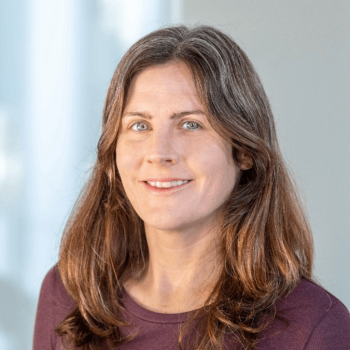
I have a strong interest in all aspects of applied research and promoting the transformation of research results into policy practice. In my current role as Executive Director for the Institute for Ethics in Artificial Intelligence (IEAI) at the Technical University of Munich, I am involved in the entire research pipeline, from developing funding partners, research teams and project methodologies, to leading research projects, to making sure our research findings are published and accessible.
I am also a co-founder of the consulting firm – The Research Group for Sustainable Impacts. We specialize in helping organizations explore, enhance, and evaluate the impact, sustainability and inclusivity of their programming using innovative, informed, and accessible research techniques. We are always looking for new projects. (www.rg-si.com). As part of my interest in inclusivity, I am also part of the Munich City team for Women in AI (https://www.womeninai.co/)
I hold a PhD in Public and International Affairs from the University of Pittsburgh. My research interests revolve around sustainable development, particularly concerning good governance, public policy and corporate social responsibility. I am particularly interested in sustainable management of extractive industries in Sub-Saharan Africa as well. I have conducted fieldwork in Botswana and South Africa and have extensive research experience, working on projects that use methods ranging from statistical analysis, to program evaluation and qualitative text analysis. I have published several academic articles and policy relevant research and reports on these topics.
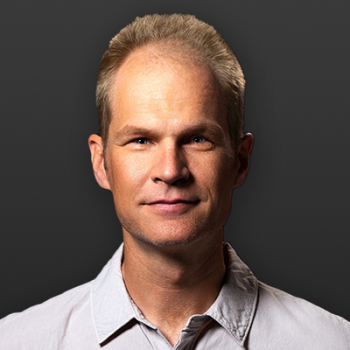
Rob Beard is the chief legal officer, general counsel and head of Global Affairs at Mastercard. In this role, he oversees the company’s public policy, regulatory affairs and legal teams around the world in addition to serving on the company’s Management Committee.
He brings more than 20 years of international experience to the role from across senior levels of the business and legal worlds. Rob joined Mastercard in 2023 following a nearly decade-long tenure at Micron Technology, where he was the general counsel and corporate secretary.
Rob originally joined Micron in 2014 as the company’s primary M&A lawyer and for several years partnered closely with the company’s corporate development team on a wide range of strategic opportunities, including significant transactions in Japan, Taiwan, Europe, China and Singapore. He played a key role in promoting the U.S. CHIPS & Science Act and in negotiating an incentive package from the state of New York for Micron’s announced $100 billion semiconductor manufacturing facility to be built in the Syracuse area.
Prior to Micron, Rob was an associate at Weil Gotshal & Manges in London, New York and Silicon Valley, focusing on M&A and capital markets transactions, and at Shearman & Sterling in London, where he focused on debt capital markets transactions. He has also taught at the University of Illinois College of Law and the S.J. Quinney College of Law at the University of Utah. Rob graduated from the University of Utah and received his J.D. from the University of Illinois College of Law, summa cum laude.

H.E. Bassam S. Hussein is a distinguished leader in Iraq’s telecommunications sector. Since 2020, he has effectively steered the Communications and Media Commission of Iraq as Head of Commissioners, emphasizing strategic policy-making and technological integration. He earned his Master of Science in Computer Science in 2022, further solidifying his technical proficiency.
From 2018 to 2020, Mr. Hussein served as the General Director of the Communication Department at the Ministry of Communications, overseeing Iraq’s telecommunications infrastructure, including the data gateway at the country’s borders. His leadership enhanced the nation’s communication capabilities and ensured robust, secure connectivity.
Simultaneously, from 2017 to 2020, he held the role of General Director of the Iraqi General Company for Post and Savings at the Ministry of Communications. In this position, Mr. Hussein spearheaded significant digital initiatives, modernizing the financial services landscape and driving the digital transformation agenda forward.
Prior to these roles, he was a member of the Management Council of the Communications and Information Company from 2015 to 2017. During this period, he played a key role in shaping national communication strategies, aligning them with global technological advancements and ensuring their effective implementation across the nation. His expertise in cloud computing has been pivotal in adapting advanced technologies to improve service delivery and efficiency across the nation.

Her Excellency Madame Léocadie Ndacyisaba was appointed Minister by Decree No. 100/26/of November 18, 2021, and she is responsible for leading the Government of Burundi’s policies in the fields of Telecoms/ICT, Communication, Media, and Posts. Since assuming office, H.E. Madame Léocadie Ndacyisaba has advocated for and successfully concluded with the Government and both chambers of the national Parliament the “Support Project for the Foundations of the Digital Economy in Burundi – PAFEN-” with technical and financial support from the World Bank: a flagship project that will lay the sustainable foundations for a Burundian society based on knowledge, an information society, and a competitive digital economy supported by universal and inclusive access to broadband infrastructure. Excellence Madame Léocadie Ndacyisaba fluently speaks Kirundi, French, understands and speaks English and Swahili.
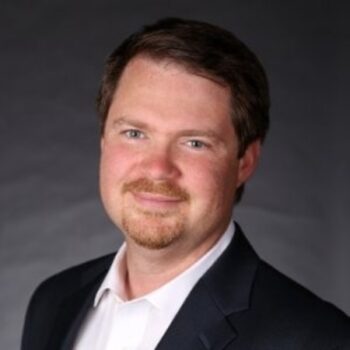
Andrew currently leads the Azure Media Security team, which is responsible for protecting both clear and encrypted content for thousands of applications across billions of devices. He also leads Microsoft’s media provenance investments across the company. In that role, he serves as the Chair for the Coalition for Content Authenticity and Provenance (C2PA) and oversees a cross-company team of experts in developing the next evolution of authentic media.
Andrew has spent more than 25 years in the industry creating, incubating, and releasing new technological solutions to complex problems. He has led a variety of projects spanning areas from OS components, to hardware devices, to international standards. Building strong technical teams capable of executing on a vision is my passion.
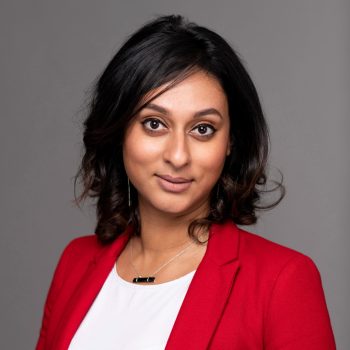
Ms. Sharmista Appaya, Global Lead, AI and Data Innovation at the World Bank Group
Sharmista Appaya has over fifteen years of robust experience in the intersecting worlds of data, finance, and digital development. She currently leads the World Bank’s AI Business line within the Digital Development practice, to support the creation of safe, inclusive digital infrastructures that leverage AI for meaningful responsible impact. She strongly believes in bridging divides—be they technological, economic, or social and trusts that innovation can pave the way for equitable growth.
As an advisor to policymakers, she helps governments identify key regulatory and policy challenges, guiding them as they navigate the nexus between traditional systems and emerging technologies. She was previously in the Finance, Competitiveness, and Innovation (FCI) global practice, of the World Bank where she specialized in fintech and financial inclusion. She spearheaded the World Bank’s offering on regulatory sandboxes with a focus on innovative business models and their impact on inclusion.
Prior to joining the World Bank, she was the Head of the Fintech Accelerator at the Bank of England in London looking at emerging technologies to understand both the applications of, and implications on, Central Banking practices. Her work focused heavily on machine learning, CBDCs and blockchain with a view to researching their economic and technical impacts and their relevance for the institution.
She has an undergraduate degree in Engineering and a Masters in Neuroscience.
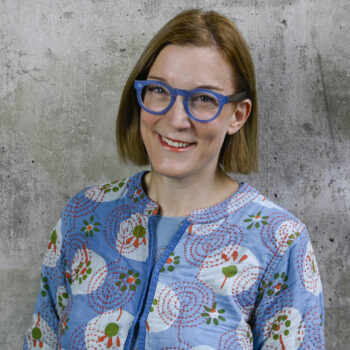
Friederike Eyssel is Professor of Psychology and head of the research group “Applied Social Psychology and Gender Research” at the Center for Cognitive Interaction Technology (CITEC), Bielefeld University, Germany. Dr. Eyssel is passionate about basic and applied social psychological research and she is interested in various research topics ranging from social robotics, trust, and acceptance of novel techlologies to attitudes and attitude change. These topics have been covered in various third-party funded projects, including EU projects CODEFROR and PERSEO, or projects VIVA, poliTe, and NEO-Milk. Friederike is co-author of various textbooks on social robots, among them “HRI: An introduction (2020, 2024 Cambridge University Press), “Robots in Education” (2021, Routledge), and “Theory and practice of sociosensitive and socioactive systems” (2022, Springer). Friederike Eyssel is Associate Editor of ACM Transactions on Human-Robot Interaction, Section Editor of Robotics. For her activities in research and teaching, Friederike has received Bielefeld University’s Grotemeyer Award and Bielefeld University’s Award for Sustainable Engagement for Gender Equality in 2021, and the IEEE-RAS Distinguished Lecturer Award for 2022-2024 and 2025-2027.
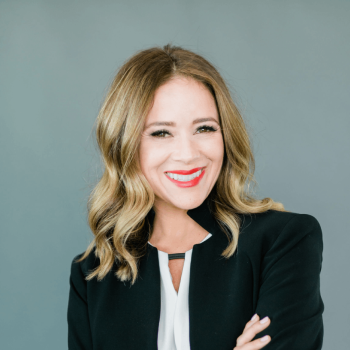
Heidi Bianca Roddenberry (née van Lydegraf) embraces infinite diversity in infinite combinations. With an open mind, heart and spirit, she works to elevate the human condition, protect the planet, and secure a beautiful future for all people. At the helm of the Roddenberry Foundation board of directors, she draws inspiration from Star Trek creator Gene Roddenberry in advancing big, bold ideas that can change the world. An explorer and global citizen, Heidi is a progressive leader in the realm of imagined possibilities, willing to take the risks necessary to realize a more inclusive, just, and collaborative society. With a sense of wonder and eternal optimism that has guided her since childhood, she truly believes that if we can envision a future of hope and light, then we can achieve it, together.”
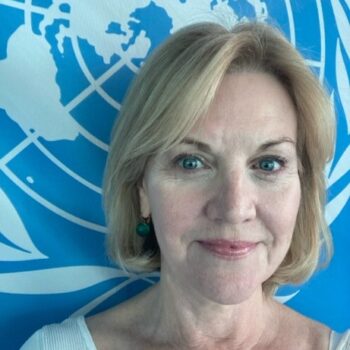
Loretta Hieber Girardet is the Chief of the Risk Knowledge, Monitoring and Capacity Development Branch covering risk information and analytics, climate change, disaster loss and monitoring data and capacity-building for UNDRR globally. Previously, she served as Chief of the UNDRR Asia-Pacific regional office, covering 38 of the world’s most disaster-prone countries. Loretta served in various management positions at OCHA for over a decade before joining UNDRR, including overseeing the global Cluster coordination mechanism and having responsibility for IASC mechanisms on coordinated humanitarian needs assessments. She also has a background in public health and worked for the World Health Organization in various capacities, including in emergency contexts in Afghanistan, Pakistan and sub-Saharan Africa. Her experience in emergency contexts spans more than 25 years and she is the author of several publications including Lifeline Media: Reaching Populations in Crises which promotes greater accountability to people affected by disasters. Her academic background includes fellowships and degrees from the Harvard School of Public Health and the University of Paris-Assas.
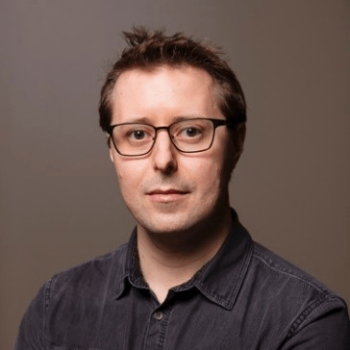
Grey Nearing is a Research Scientist at Google. He holds a PhD in Hydrology from the University of Arizona and previously worked on global hydrological modeling teams at NASA and the National Center for Atmospheric Research. Before joining Google, he was a professor at the University of Alabama, and the University of California Davis.
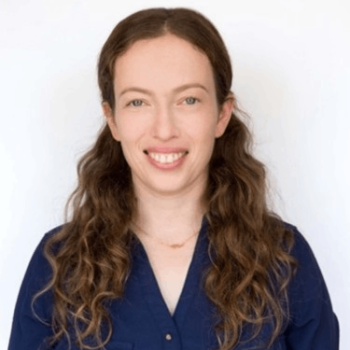
Ayelet Benjamini is an Engineering Director at Google. She is leading research and product efforts in the Climate space. Her work spans a portfolio of initiatives from Climate Adaptation research and development of Early Warning systems, Climate Mitigation efforts set to reduce GHG emissions as well as Foundational research in Geo-Spatial modeling. Ayelet has pioneered various engineering efforts at Google, focusing on big data and large-scale analytics initiatives, from YouTube through Account management to building clinician-focused models and tools through Google Health. Ayelet holds a PhD in Computational Chemistry from UC Berkeley and a Bsc in Physics and Chemistry from the Hebrew University in Jerusalem.
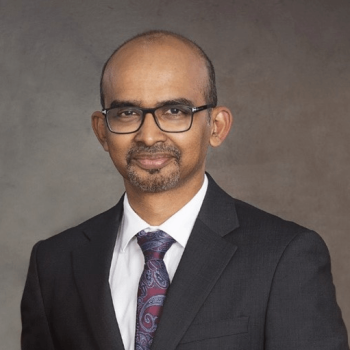
Dr Fakhruddin is an eminent hydrometeorologist and climate risk assessor with 21 years of global experience in hydrometeorology and climate resilience projects. His key areas of expertise are integrated water resource management, hazard forecasting, climate and multi-hazard risk assessments, and coastal community resilience. Dr Fakhruddin joined GCF to provide leadership and oversight of the portfolio of investments in water resources and climate information and an early warning system for addressing climate change. Dr. Fakhruddin has played a pivotal role in the design and implementation of weather, water, and climate change adaptation projects for saving lives and livelihoods, while reducing property damage for more than 40 countries across Asia, the Caribbean, Africa, and the Pacific.
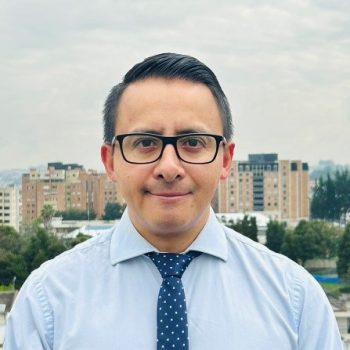
Bolívar Erazo holds a Ph.D. in Hydrology of Continental Interfaces, along with a Master’s degree in Hydrology and a Bachelor’s degree in Environmental Engineering. Currently serving as the Executive Director at Ecuador’s hydro-meteorological service (INAMHI) and as the permanent representative of Ecuador at the World Meteorological Organization (WMO). Bolívar has successfully managed public and international cooperation resources to enhance hydrological and meteorological services in Ecuador. In addition to administrative roles, he has extensive experience in academia and research, specializing in remote sensing for rainfall estimation, data analysis from hydro-meteorological monitoring networks, spatialization of climate data in data-scarce regions, hydrological modeling, and future analysis under climate change scenarios.
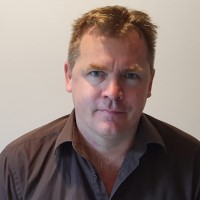
Paul Hamilton is a GIS Expert for the International Telecommunication Union’s (ITU) Telecommunications Development Bureau (BDT). He has been working on the Disaster Connectivity Map project since 2019, and the ITU Transmission Map project since 2012. Paul also researches and publishes the annual Africa Telecom Transmission Map, maintains Africa Bandwidth Maps, and has worked as a short-term consultant for network operators in Africa as well as financial institutions and industry organizations. He previously worked as the Telecom Research Manager at World Markets Research Centre and holds a degree in Geography and International Politics from Keele University, UK.

As Chief Impact Officer, Andrew oversees the sustainable development, humanitarian, ethics and human rights portfolio at Planet, a breakthrough geospatial imaging organization that has deployed the largest constellation of Earth-observing satellites in history. Together, these satellites image the entire surface of the Earth, every day, in high resolution. When analyzed with advanced AI techniques, this imagery has transformational value for addressing a host of global challenges, including monitoring peace and conflict, improving agriculture, delivering sustainable development, ensuring human rights, predicting food insecurity, assessing climate change, delivering disaster response, and improving conservation, among many others. Andrew is also the author of Resilience: Why Things Bounce Back, which has been published in more than a dozen countries worldwide.
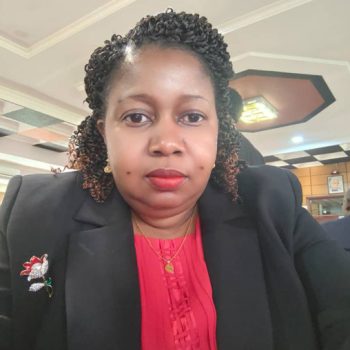
Dr. Florence Upendo Rashidi is an accomplished lecturer and academic leader currently serving as the acting principal of the College of Informatics and Virtual Education at the University of Dodoma. With a background in Electronics and Telecommunication Engineering, she has 10 years of experience in teaching, research, and consultancy. Her areas of expertise include Wireless Optical communication, Security, Networking, Machine Learning, Artificial Intelligence, and ICT research. Dr. Rashidi holds a Ph.D. in Computer Science and Technology from Hunan University, China, a Master of Engineering in Communication and Information Systems from Wuhan, China, and a B.Sc. in Computer Science from Makerere University, Kampala, Uganda. She is also a member of the Organization for Women in Science for the Developing World (OWSD). Beyond her academic accomplishments, Dr. Rashidi is actively involved in promoting gender equality and empowering women in the field of science. Her membership in the Organization for Women in Science for the Developing World (OWSD) reflects her commitment to fostering inclusivity and creating opportunities for women in academia.
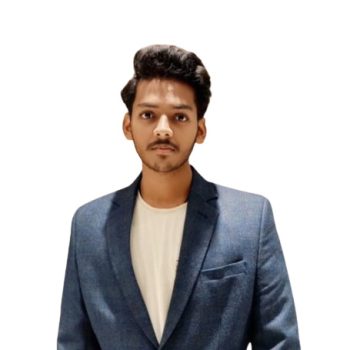
Prudhvi Krishna PAVULURI is currently pursuing his undergraduate studies in the Department of Electronics and Communication Engineering (ECE) at SRM University-AP, India. With a keen interest in the dynamic field of wireless communications and telecommunications, Prudhvi has been an integral part of ITU ML 5G initiatives and projects for students for the past 2 years, demonstrating his commitment to staying at the forefront of technological advancements and contributing to impactful projects with global implications: to contribute meaningfully to societal progress through innovative technological solutions aligned with the Sustainable Development Goals (SDGs). His journey has been enriched by valuable experience gained through his involvement with OMACS Technocraft Solutions Pvt. Ltd., where he gained practical insights into the real-world applications of wireless communications and telecommunications technologies. This experience not only honed his skills but also deepened his understanding of the industry, allowing him to effectively bridge the gap between theory and practice.
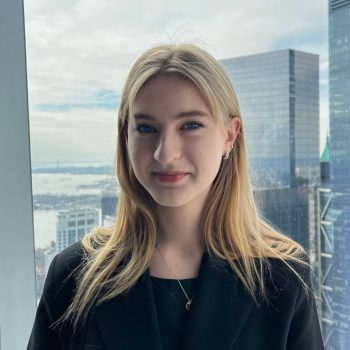
My name is Natalia Kusmirek and I am a student at Worcester Polytechnic Institute in Massachusetts, USA. After completing Harvard University’s “Introduction to Artificial Intelligence with Python” course, I decided to delve into the opportunities AI provides for the betterment of our society. My aspire to create bridges between AI and pressing social issues, envisioning technological solutions with ethical considerations. Whether through developing a software or providing a service, I plan to do this through a business-oriented approach. I am profoundly grateful for the opportunity by the ITU, which enables me to pursue my aspirations and contribute to the intersection of AI and social progress.

Alone Somerai, Holder of a Diploma in Information Technology, a Fundamentals of Designing and Deploying of Computer Networks (Internet Society)
Currently studying at Solusi University in Zimbabwe, Harare. An undergraduate student in Science Honors in Information Systems.
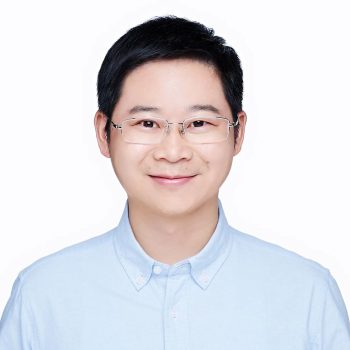
HE BO, Doctor of Law, Senior Engineer. He serves as the deputy director of the Internet Law Research Center of the China Academy of Information and Communications Technology (CAICT), and also serves as the deputy director of the Security Governance Committee of the China Artificial Intelligence Industry Development Alliance (AIIA) and the deputy secretary general of the Legal Committee of the Internet Society of China. HE has successively participated in a number of Artificial Intelligence and Internet related legislative activities in China as a consultant and legislator, including the Personal Information Protection Law, the Data Security Law, the Internet Information Service Algorithm Recommendation Management Regulations, the Interim Measures for the Management of Generative Artificial intelligence Services. He is also the core drafter of the Model Artificial Intelligence Law.
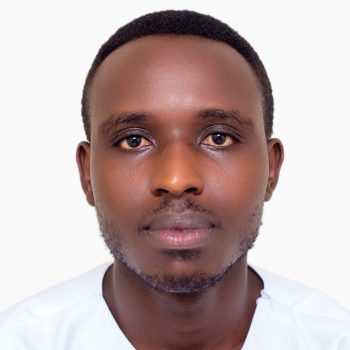
Innocent Nzimenyera is a data scientist with a strong background in mathematics and statistics, adept at transforming complex data sets into valuable insights to inform strategic decision-making, leveraging AI techniques. He is a master’s student at Carnegie Mellon University, specializing in applied machine learning. He is also working as a data scientist consultant at the Global Green Growth Institute (GGGI). Proficient in Python, R, and SQL, with expertise in machine learning algorithms and data visualization techniques. He has a research interest in climate change modeling and adaptation. Passionate about solving challenging problems and delivering impactful solutions in dynamic settings.
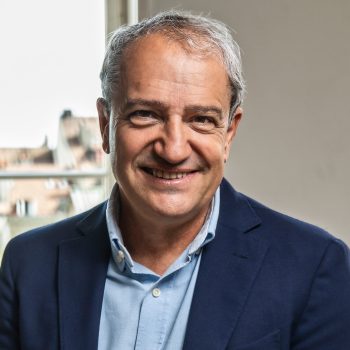
Alfonso Gomez is a Swiss and Genevan politician of Galician origin, a member of the Greens since 1999. He has been the Administrative Councillor of the City of Geneva in charge of the Department of Finance, Environment, and Housing since June 2020, and Mayor of Geneva since June 1, 2023. Before his election to the Executive, he served on the Municipal Council for seven years, where he was notably the group leader and a member of the finance committee. Financial Director of the Department of Public Instruction for the State of Geneva until 2010, he then joined the Popular Conservatory of Music, Dance, and Theater as Deputy Director. At the beginning of his career, he worked as an auditor in the banking sector before moving towards humanitarian work and joining the ICRC as a delegate-administrator. He was notably sent on missions to Iran, Sudan, and the former Yugoslavia.
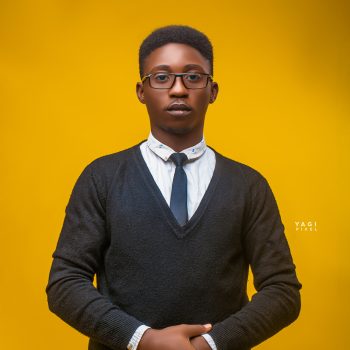
Emmanuel Othniel Eggah is a dynamic individual with a passion for technology and innovation. Graduating from the Federal University of Technology, Minna-Nigeria with a degree in Computer Engineering, he embarks on a journey of exploration and discovery in the realms of AI, ML, and IoT as a dedicated researcher. His affiliation with the WINEST group in Nigeria underscores his commitment to collaboration and community engagement in advancing technological frontiers.
Othniel’s prowess extends beyond research, as evidenced by his impressive achievement as the 2nd runner up with Team Tech Rangers at the ITU-FGAN Build-a-thon 2022 titled “Build you own closed loop” (BYOC), where his creativity and technical skills shone brightly. With a keen eye for design and expertise in web development, Othniel blends artistry with functionality to create captivating digital experiences.
Hailing from Nigeria, Othniel embodies the spirit of innovation and excellence, continually pushing boundaries and shaping the future of technology in his community and beyond.
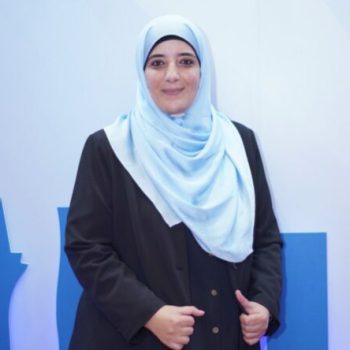
Shadia Baroud is a PhD student and freelance researcher specialising in AI approaches, specifically in integrating machine learning models using multi-agent systems—reinforcement learning. Her research focuses on smart manufacturing, targeting critical challenges within the sector through advanced AI integration. This initiative aims to revolutionise maintenance management by reducing failure rates, enhancing equipment uptime, and streamlining planning processes through a cutting-edge AI/Analytics core engine. Shadia’s work underscores the synergy between assets, workforce, and projects, promoting data-informed decision-making and operational excellence. She is an active contributor to international conferences and is dedicated to using AI to drive innovation and efficiency in technology.
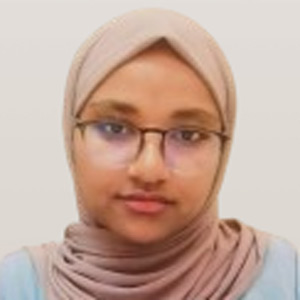
My name is, Afrah Hussein Seid, a student and entrepreneur currently pursuing both my Bachelor’s and Master’s degrees in Computer Engineering at Addis Ababa Science & Technology University in Ethiopia. Throughout my academic journey, I’ve achieved remarkable success in both education and innovation. With a passion for pushing the boundaries of technology, I’ve spearheaded over 17 innovative projects. Among these standout creations include the Stair Climbing Balanced Wheelchair (Level Up), the AI BASE BOOK RECITER (AIBBR), the Automatic Waste Segregator Bin (EcoSort), and the ICU assistance system developed during the COVID-19 pandemic. Beyond my academic pursuits, I’m also deeply involved in entrepreneurship. As the COO of Open Technologies, I co-founded a startup dedicated to manufacturing assistive devices for people with disabilities. Additionally, I’m a co-founder of O-Skills Technical Education Center, where we focus on providing skill-based technical education and empowering aspiring innovators.
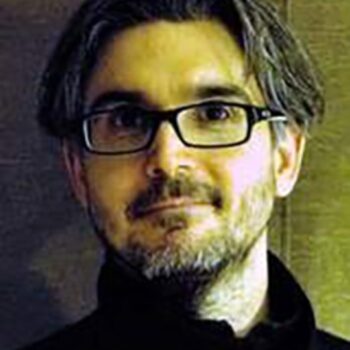
Riccardo Trivisonno (Senior Member, IEEE) received M.Sc. and Ph.D. degrees in telecommunications engineering from the University of Bologna in 2000 and 2005, respectively. He joined Huawei Technologies in 2011 and he is currently serving as Head of Network Architecture — Research and Standardization — for the Advanced Wireless Technologies Laboratory, Munich Research Center. Over the past ten years, he has been a leading contributor to the definition and the standardization of 5G network architecture and technologies, delivering to 3GPP Releases 15 – 18 — in the areas of architecture modularization, network slicing, network analytics, and QoS—filing ~100 Standard Essential Patent applications. His research focus shifted to 6G enabling technologies since 2020. He has been the Chairman of 6G-IA Pre-standardization WG since 2020, a Board Member of one6G Association since its foundation, in 2021, and was elected one6G Board Vice-Chair in 2023.
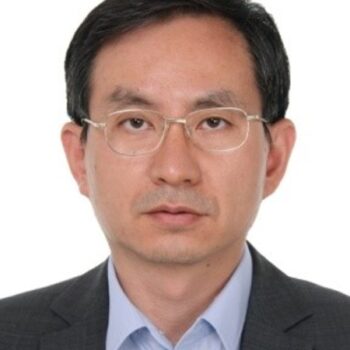
Mr. YU has dedicated himself to advancing research in telecommunications, Internet, digital technologies, and their applications. He actively promotes policy studies, industry development, innovation in application, and the establishment of digital infrastructure. He has spearheaded numerous collaborative initiatives with think tanks and research institutions in different countries, fostering international cooperation and exchange in the digital sphere.

Christopher Burns is the Chief Digital Development Officer (CDDO) for USAID and the Director for the Technology Division within the Innovation, Technology, and Research (ITR) Hub.
In the CDDO role, he coordinates and tracks programmatic Digital Development investments across the Agency; represents USAID’s programmatic digital technology work across the interagency and with external stakeholders and partners; and guides the adaptation of the Agency’s programs as the digital landscape evolves. He also chairs the Digital Sector Council that meets monthly with representatives from across USAID’s bureaus and independent offices to discuss and coordinate on Digital Development programming.
In the role of Director for Technology, Christopher leads technical teams focused on Digital Finance, Development Informatics, Digital Inclusion, Emerging Technology such as Artificial Intelligence, Cybersecurity and advanced data and geospatial analysis, and the role they play in driving an inclusive digital economy. In his more than twelve years with USAID, he has spearheaded and served as technical lead for a number of public-private partnerships, including the Digital Impact Alliance, the GSMA Connected Women Program and the Alliance for Affordable Internet. He also spearheaded USAID’s first-ever Digital Strategy released in April 2020.
Prior to USAID, Christopher spent nearly ten years with the Peace Corps, as Program and Training Officer for Peace Corps/Niger, Country Desk Officer for Central Asia, and Agroforestry Advisor in Ghana. He has supervisory and management experience and technical background in digital technology, natural resources management, agroforestry, food security, gender equality, and solar power design/installation. All told, he has 25 years of international development experience, primarily in sub-Saharan Africa, including 6.5 years living on the continent.
Christopher holds a Bachelor of Arts in International Development and Environmental Management from St. Lawrence University in Canton, New York and a Master of Science in Development Management from American University in Washington, DC.
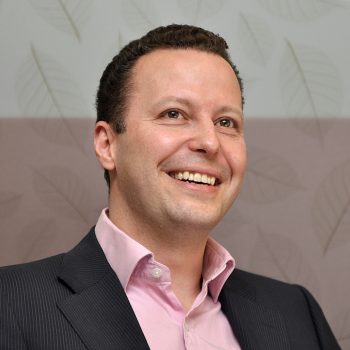
With a passion for driving transformative change through the use of data and artificial intelligence, Costi leads Deloitte’s Global Office of Generative AI which supports its clients across all sectors in developing and implementing AI-powered solutions. He has over 30 years of experience in the field of AI, data and information management, primarily working with public sector organisations for nearly two decades.
Costi has supported central and local government entities through delivering IT enabled transformation programmes and procuring large and complex information technology solutions. His extensive knowledge of AI and information management has enabled him to meet the escalating demands of Deloitte’s clients to become AI-driven organisations.
Costi is committed to pioneering the next frontier of AI innovation for the benefit of business and society as a whole.

Dr. Tasha Austin-Williams is a principal at Deloitte & Touche LLP. With over 25 years of experience in professional services, her expertise spans the fields of artificial intelligence (AI) and advanced data analytics within the defense and international affairs sector. She supports senior executives in navigating their complex data challenges and helps organizations evaluate their readiness for and adoption of AI solutions.
Tasha serves as the Executive Director of Deloitte’s Artificial Intelligence Institute for the Government sector, where she plays a key role in Deloitte’s mission to expand its capabilities, particularly in the realm of trustworthy and ethical AI. Her focus is on creating ecosystems, bringing diverse stakeholders together comprising government executives, leaders in non-profit organizations, academia, policymakers, and technology firms.
Tasha serves on several boards including the Board of Directors for NABA Inc. where she leads the Strategy, Innovation, and Technology Committee. In 2023, she was recognized as one of the Top 50 Women Leaders by the organization Women We Admire, and in 2024, Tasha was acknowledged by Deloitte as one of the Top 10 Deloitte AI Trailblazers during Women’s History Month.
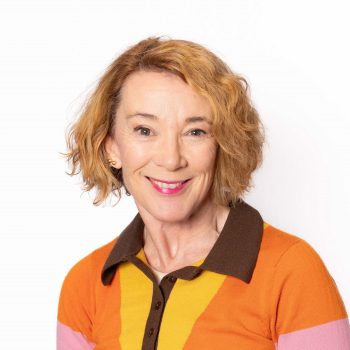
Dethridge has decades of industry experience in the strategic design of emerging tech, from telecoms and aerospace to game design and ethical AI systems. She was a midwife at the birth of the internet and of communication satellites, researching with the United Nations Development Program and Houston start-up Space Test. After early burnout, she left tech for Hollywood, producing film, TV, and print with studios and networks including MTV, ETV, Fox, and Vogue Magazine. After teaching at the American Film Institute and UCLA, she immersed herself in virtual spaces and game design, which naturally evolved into her current focus: ethical and human-centered AI systems. She currently consults for Australian and American AI and tech companies, industry groups, and non-profits and is a Research Fellow at RMIT University Melbourne. She has a PhD in Media Ecology from New York University, a master’s in political science from Uni. of Melbourne, and is the author of numerous scholarly articles on AI in media and virtual worlds.
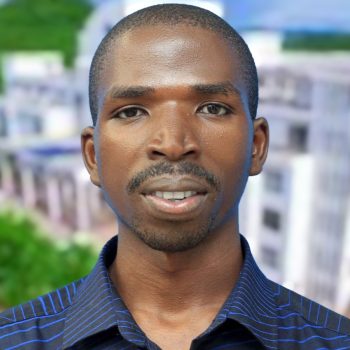
Emmanuel Kifalu Mkina holds a Bachelor of Science in Telecommunication Engineering from the University of Dodoma, Tanzania. He was awarded by CRDB Bank as the best student at the College of Informatics and Virtual Education in 2022. He is interested in radio access network and transmission, as well as AI in revolutionizing the telecom sector. Currently, he is working as a tutorial assistant at the University of Dodoma, Department of Electronics and Telecommunication Engineering.
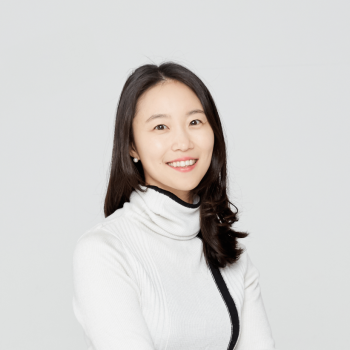
Hyemin Lee is a seasoned entrepreneur with over 15 years of experience in building successful businesses. Currently serving as the CEO and co-founder of Finda, the largest lending platform with 70 partnered banks and more than 300 loan products in Korea, Hyemin’s entrepreneurial journey reflects her unwavering passion for innovation and business development.
Having graduated as the top student in Spanish and Spanish literature from Korea University, Hyemin’s corporate experience includes a role as a project manager for new strategic business development and investment at STX Corporation. However, her true calling emerged in the startup world, where she co-founded Glossybox with Rocket Internet, leading its expansion across 7 Asian countries in 2011.
Driven by a desire to create transformative ventures, Hyemin established People & Co., Ltd., an e-commerce and marketing consulting startup, recognized as the IT start-up of the year. Her entrepreneurial journey reached new heights with the founding of Noom in Korea, a global healthcare app leveraging AI technology for global wellness, which became the world’s leading behavior change company.
Beyond her ventures, Hyemin actively contributes to the Korean startup ecosystem as a venture advisor at 500 Startups and a mentor at Google Campus Seoul. Inspired by her interactions with industry leaders, she embarked on her latest endeavor, Finda, in 2015, focusing on paperless loan brokerage and personal finance management services based on AI and big data.
Under Hyemin’s leadership, Finda has secured $65M in funding from the US and Korea and garnered recognition as the most innovative fintech company by the Financial Services Commission. Her achievements have earned her a place among the top 50 female entrepreneurs in Asia by Forbes in 2017 and the EY Entrepreneurial Winning Women™ Asia-Pacific class of 2023.
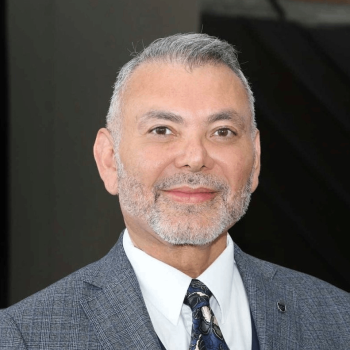
Prof Dr Enrique Estrada-Lobato is a Senior Professor of Nuclear Medicine and Nuclear Oncology at the National Autonomous University of Mexico. He is also the Head of the Nuclear Medicine Department at the National Cancer Institute in Mexico since 2000. He was the past president of the World Federation of Nuclear Medicine and Biology. Since 2014, he has held the position of Nuclear Medicine Physician and Programme Officer of the Division of Human Health at the Department of Nuclear Sciences and Applications of the International Atomic Energy Agency.
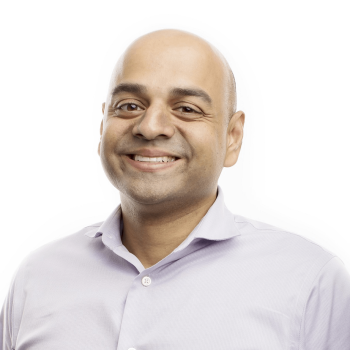
Prem Ramaswami is a product management leader focused on the intersection of technology and wide-scale social impact. He currently leads Data Commons, an open-source project aiming to make all the world’s public data universally accessible and useful. Its goal is to empower every person to become a data-based decision-maker.
Prem previously led Sidewalk Labs building products to radically improve the quality of urban life for all, leading the Alphabet company back into Google. Before that, he led Google Search’s Social Impact projects in the domains of Health, Civics, Education, Arts & Culture, Crisis Response, and Social Good.
Prem holds a degree in Computer & Biomedical Engineering from Carnegie Mellon. He also holds an MBA from Harvard Business School. Prem developed and taught an introductory course on Product Management at Harvard, Stanford, Sequoia’s startup school, and numerous other venues.
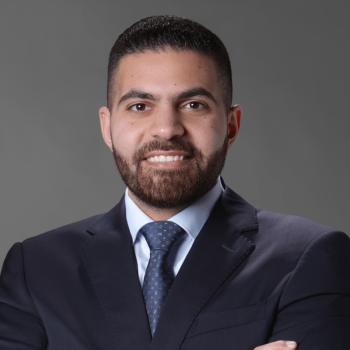
Dr. Elie Metri is the Founder and CEO of QSS AI & Robotics, a pioneering technology company based in Saudi Arabia, specializing in the development of cutting-edge robots and AI solutions crafted in Saudi Arabia. A renowned technologist, innovator, and leader.
Dr. Metri has played a pivotal role in the digital transformation across the EMENA region. In 2023, he introduced “SARA,” the first Saudi-made humanoid robot. Following this achievement, in 2024, he launched “Mohamed,” the first-ever male humanoid robot from Saudi Arabia.
Dr. Elie Metri is as well the middle east ambassador of the World AI Cannes Festival.
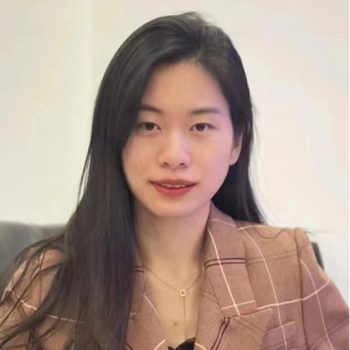
Chenxi Qiu is the deputy director of Center for Global Digital Governance, China Academy of Information and Communications Technology (CAICT). Her research interests focuses on global digital governance and international organization, and she is the main author of “Global Digital Governance Whitepaper (Annual Series, 2020-2024)”, “Platform Economy and Competition Policy Observation Report”. She has been actively involved in high-level discussion on ICT policy, participating in ITU Council and working groups, G20 Digital Economy Working Group (DEWG), BRICS Working Group on ICT Cooperation & Digital BRICS Task Force (DBTF), and China-EU ICT Dialogue. She earned a PhD in comparative politics from Peking University School of International Studies.

Dr. Luca Foschini is the President and CEO of Sage Bionetworks. Prior to this role, he co-founded and served as Chief Data Scientist at Evidation for 10 years. During his time at Evidation, Dr. Foschini led a team of over 50 health data scientists and shaped the role and requirements for the health data scientist profession. He also led Evidation’s research and development efforts and worked on projects funded by organizations such as NIH, DARPA, and BARDA. Dr. Foschini collaborated with top biopharma companies to provide technology and methodology for collecting and analyzing person-generated health data (PGHD) from sources such as smartphones and wearables in order to measure human health.
Dr. Foschini’s research in the past decade has focused on the emerging field of digital medicine, particularly in the areas of data collection and analysis methodology. He has co-authored more than 70 peer-reviewed articles and given talks at the FDA, NIH, and the National Academies of Sciences, Engineering, and Medicine on topics including machine learning in healthcare, continuous health monitoring, and privacy in high-dimensional data.
Dr. Foschini holds a PhD in Computer Science from the University of California, Santa Barbara and a Master’s degree in Computer Engineering from the Sant’Anna School of Pisa. He has also conducted theoretical computer science and cybersecurity research in academia and industry, including research positions at Google and Ask.com.

Ngozi Okonjo-Iweala is the Director-General of the World Trade Organization (WTO), the first woman and first African to hold the position in the 80-year history of the General Agreement on Tariffs and Trade and the WTO.
Dr Okonjo-Iweala is an economist and international development expert with more than 40 years of experience. She was Chair of the Board of Gavi, the Vaccine Alliance (2016–2020), the African Union’s African Risk Capacity Group (2014–2020), and Co-Chair of the Global Commission on the Economy and Climate with Lord Nicholas Stern (2014-2020). She was a member of the Board of Trustees of the Carnegie Endowment for International Peace and the Rockefeller Foundation. She co-chaired the G20 High Level Independent Panel on Financing for Pandemic Preparedness and was one of the founders of the COVAX Facility, designed to get affordable vaccines to Low and Low Middle-Income Countries. She currently serves on the Board of Trustees of the World Economic Forum and is co-chair of the Global Commission on the Economics of Water. She is also a member of the G30 Group of top 30 people in International Finance and a council member of the Prince of Wales’s Earthshot Prize.
Dr Okonjo-Iweala holds the distinction of being the first woman to serve as Nigeria’s Finance Minister, a post she held for seven years in two terms. She also served briefly as the first female Foreign Affairs Minister. As Finance Minister, she implemented policy and institutional reforms to help fight corruption and she spearheaded the complete write off by the Paris Club of $30 billion of Nigeria’s debt. She spent a 25-year career at the World Bank, rising to the number two position of Managing Director, Operations. Previously Dr Okonjo-Iweala, among other duties, served as Senior Advisor at Lazard Ltd. and sat on the boards of Standard Chartered Bank PLC and Twitter Inc. She served in 2020 as African Union COVID-19 Special Envoy as well as World Health Organization COVID 19 Special Envoy.
Dr Okonjo-Iweala is the recipient of numerous honors and accolades. In 2023, she was awarded the Lord Byron International Prize from the Society for Hellenism and Philhellenism and the Global Economy Prize from the Kiel Institute for the World Economy. In 2022, she obtained the Global Leadership Award by the American Academy of Achievement. In 2021, she received a Global Leadership Award from the United Nations Foundation as a “Champion for Global Change”. She was inducted as a member of the American Academy of Arts and Sciences in 2019 and featured in the Foreign Policy’s Top 100 Global Thinkers in 2011 and 2012. She has also been listed among 73 “brilliant” business influencers in the world by Condé Nast International. Dr Okonjo-Iweala was named in 2014 and again in 2021, one of TIME magazine’s 100 Most Influential People in the world. She was also featured on the TIME magazine cover page in 2021. She has been named seven times by Forbes as one of the Top 100 Most Powerful Women in the World and in 2020, was named Forbes African of the Year. In 2021, she was named by Financial Times as one of the 25 Most Influential Women in the World and in 2015 she was ranked by Fortune as one of the 50 Greatest World Leaders.
Dr Okonjo-Iweala is also the recipient of Nigeria’s second highest National Honor Grand Commander of the Order of the Niger (GCON)-2022. She was awarded national honours by the governments of the Republic of Liberia and the Republic of Cote d’Ivoire in 2016. She also received the Grand Cross of the Order of Rio Branco from the Federative Republic of Brazil in 2023. In 2024, Dr. Okonjo-Iweala was honored with the Collar of the Order of Timor Leste, the country’s second highest honor.
Dr Okonjo-Iweala is the recipient of 21 honorary degrees from some of the world’s most prestigious institutions, including Yale University, the University of Pennsylvania, Brown University, Trinity College – Dublin, University of Amsterdam, Luiss University – Italy, American University – USA, Nyenrode Business University, Obafemi Awolowo University and Nile University of Nigeria. She is distinguished visiting fellow at Brookings and a Global Public Leader at Harvard Kennedy School.
Dr Okonjo-Iweala is the author of several books, including Women and Leadership: Real Lives, Real Lessons co-authored with Julia Gillard (Penguin Random House, July 2020), Fighting Corruption is Dangerous: The Story Behind the Headlines (MIT Press, 2018), Reforming the UnReformable: Lessons from Nigeria, (MIT Press, 2012), and The Debt Trap in Nigeria: Towards a Sustainable Debt Strategy (Africa World Press, 2003). She also co-authored with Tijan Sallah the book Chinua Achebe: Teacher of Light (Africa World Press, 2003). She has also published numerous articles including, Why the World Still Needs Trade (Foreign Affairs, August 2023, Editors’ Top Pick 2023), Finding A Vaccine is Only the First Step (Foreign Affairs, April 2020), Mobilizing Finance for Education in the Commonwealth (Commonwealth Education Report 2019), Shine a Light on the Gaps — an essay on financial inclusion for African Small Holder Farmers (Foreign Affairs, 2015), Funding the SDGs: Licit and Illicit Financial Flows from Developing Countries (Horizons Magazine, 2016).
Dr Okonjo-Iweala holds a Bachelor’s in Economics (Magna Cum Laude) from Harvard University and a PhD in Regional Economics and Development from the Massachusetts Institute of Technology (MIT).

Digital Fashion/AI Fashion Artist Assistant Professor, Beijing Institute of Fashion Technology She is currently a young lecturer at Beijing Institute of Fashion Technology, an executive committee member of the China Fashion Designers Association Art Committee, and one of China’s Top 10 Fashion Designers. She co-founded the women’s fashion brand LALABOBO and the digital fashion brand EAST META. In the field of digital and AI-assisted fashion design, she is dedicated to fostering synchronized growth in teaching and commerce. She has participated in the clothing design for leaders at the APEC meeting . Her brand and personal fashion works were showcased at China International Fashion Week in 2017, 2018, and 2022, as well as at the inaugural New York AI Fashion Week in 20
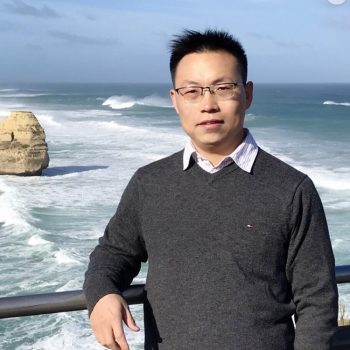
Lidong Bing is the director of the Language Technology Lab at DAMO Academy of Alibaba Group. He received a Ph.D. from The Chinese University of Hong Kong and was a postdoc research fellow at Carnegie Mellon University. His research interests include large language models, vision-language models, and various low-resource and multilingual NLP problems. He has published more than 150 research papers at top-tier venues. Currently, he serves as an Action Editor for Transactions of the Association for Computational Linguistics (TACL) and ACL Rolling Review (ARR), Area Chair for AI conferences and Associate Editor for AI journals.
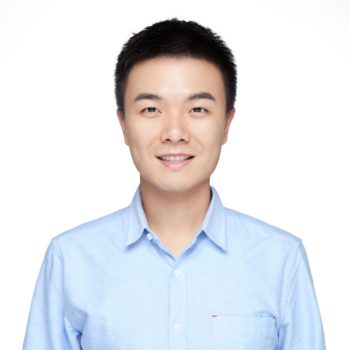
Yonggang Luo, Ph.D., Chief Engineer of AI LAB at Chongqing Changan Automobile. He holds a bachelor’s degree from Shandong University and a Ph.D. from Purdue University. His current research focuses on artificial intelligence, specifically in the development and research of in-vehicle AI algorithms. He leads his team mainly working on end-to-end multitask decision models, image processing, data synthesis, large language models, and the security of models and data. Dr. Luo has lead the development and deployment of various significant projects, including an integrated service platform for intelligent vehicle safety, a multi-agent platform for in-vehicle intelligent interaction with multimodal large language models, a battery deficiency prediction service system, and several end-to-end multitask decision models. He serves as the editor for two ITU-T recommendations and has participated in the development of several IEEE SA standards.
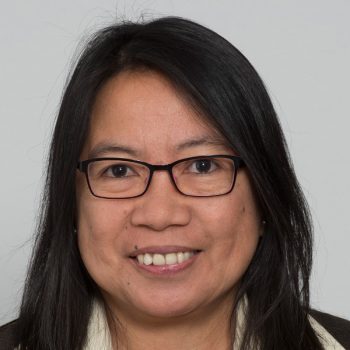
Dr. Lilibeth Acosta is a Principal Specialist in the Climate Action and Inclusive Development Division in the Global Green Growth Institute (GGGI) and Deputy Director, Program Manager for GGGI’s Green Growth Performance Measurement (GGPM). The GGPM is responsible for developing the Green Growth Index and Simulation Tool, which GGGI applies to measure performance in achieving SDG targets and assess SDG co-benefits of climate actions in its Member Countries and Partners. Lilibeth has over 20 years of experience in indicator development, integrated assessment, and scenario modeling of climate change vulnerability and adaptation, as well as sustainable development in the fields of ecosystem and biodiversity, agriculture and land use, and renewable energy. Before joining GGGI, she worked as an international consultant in the ADB, UNCCD, and UNCTAD. She also worked as a development specialist at the National Economic Development Authority in the Philippines, a senior scientist at the Potsdam Institute for Climate Impact Research in Germany, an adjunct professor at the University of the Philippines, and a researcher in the Environmental Science departments at universities in Japan, Belgium, and the UK. She holds a PhD in Agricultural Policy from the University of Bonn (Germany), an MPhil in Economics and Politics of Development from the University of Cambridge (England), and a BSc in Agricultural Economics from the University of the Philippines.
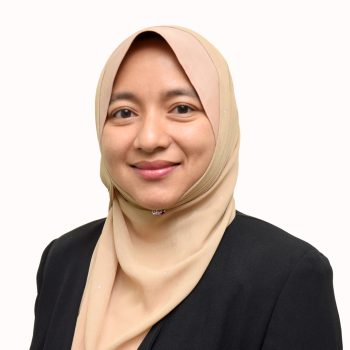
Professor Ir. Dr. Aduwati Sali is currently Director, Institute for Mathematical Research and Intelligent Systems (INSPEM-SC) since 01 February 2024. She is also a Professor at Department of Computer and Communication Systems, Faculty of Engineering, Universiti Putra Malaysia (UPM) and previously Head of Wireless and Photonics Networks (WiPNET) Research Centre (2020 – 2024). She was a Deputy Director at UPM Research Management Centre (RMC) responsible for Research Planning and Knowledge Management from 2016 to 2019. She obtained her PhD in Mobile and Satellite Communications form University of Surrey, UK, in July 2009; MSc in Communications and Network Engineering from UPM, Malaysia, in April 2002 and BEng in Electrical Electronics Engineering (Communications) from University of Edinburgh, UK, in 1999. She is also a Chartered Engineer (C. Eng) registered under UK Engineering Council and a Professional Engineer (P. Eng.) under Board of Engineers Malaysia (BEM). She worked as an Assistant Manager with Telekom Malaysia Bhd from 1999 until 2000.
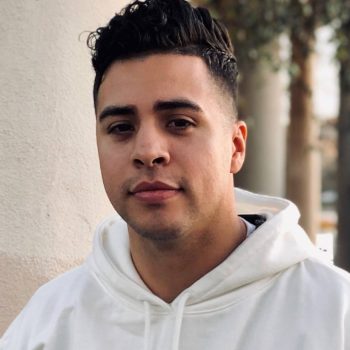
Alexander J. Diaz leads the AI for Social Good team at Google.org, Google’s philanthropic arm. Through this role, Alex manages Google’s philanthropic efforts to empower nonprofits to develop and deploy high-impact AI applications that address critical global challenges and ensure the benefits of AI reach marginalized populations. As a Rhodes Scholar, Alex received a Master’s of Public Policy and a Master’s of Financial Economics at the University of Oxford. Alex graduated from Harvard College Phi Beta Kappa and with highest honors in psychology. Alex has been named to Forbes’ List of 30 Under 30 for Law & Policy. The son of Dominican and Cuban immigrants, Alex was raised in Union City, NJ.
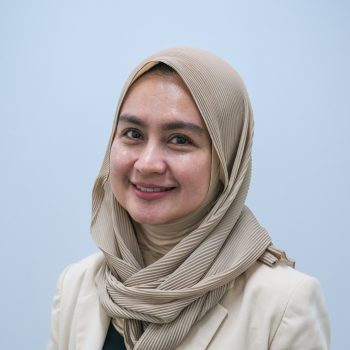
Rajius Idzalika is a data-driven professional and research scientist. Her works (not limited to but) mainly focused on the policy spheres. She is a Principal Data Scientist at United Nations Global Pulse (UNGP) Asia Pacific. UNGP is the Secretary-General’s Innovation Lab — a hub for experimentation to support and advance the UN Charter. Rajius is an experienced researcher using novel approaches to generate evidence in the developmental and humanitarian spaces. Her work explores the responsible and ethical uses of new data sources to inform their potential values in addressing the SDGs, combines conventional and nonconventional data using statistical methods to derive policy insights, and supports a mixed-methods approach to accelerate the transition from academic concepts to real-world applications.
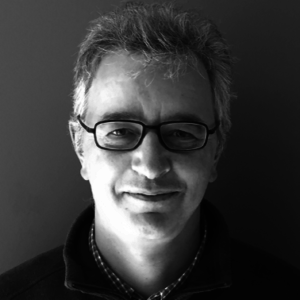
Martin obtained his BSc(Hons) in Computer Science from the University of Edinburgh in 1987. After working in several technical roles, he joined HP in 1989. During 11 years at HP, he worked in many marketing roles for both PC, mobile, and networking product ranges including Product Marketing Manager of HP’s handheld division in Singapore. After leaving HP in 2000 he set up the European operations of a US start-up Socket Mobile. In 2012 he joined Option Wireless where he held marketing and business management roles in the 3G and 4G data modem and IoT Gateway product lines. At GreenWaves Technologies he is responsible for marketing of GAP AI/DSP Application Processors and also contributes to GAP’s neural network development tools.

Diana Ayton-Shenker is CEO, Leonardo/ISAST; Executive Director, Leonardo-ASU initiative; & Professor of Practice, ASU School of the Future of Innovation in Society, and ASU School for Arts, Media, & Engineering. She is also founding CEO of Global Momenta, an art of impact strategy firm, and previously served as inaugural Global Catalyst Senior Fellow at The New School. The author and editor of four books, including “A New Global Agenda: Priorities, Practices, & Pathways of the International Community;” Diana’s work has been featured in the World Economic Forum Agenda, Huffington Post, NPR. As founder the Fast Forward Fund, Ayton-Shenker was honored by President Bill Clinton at the Clinton Global Initiative University (CGIU), and by the Social Venture Network through Social Innovation Awards. She served as inaugural Nazarian Social Innovator in Residence at the Wharton School of Business, was named one of “25 Leading Women Changing the World” by Good Business New York, and was featured among “31 Inspiring Women in Nonprofit Management” by Univ. of North Carolina.
Her U.N. briefing paper “The Challenge of Universal Human Rights & Cultural Diversity” has been translated into all 6 official languages of the U.N. and cited in 100s of books, articles, papers, shaping policies worldwide. She holds an L.L.M. in Int’l Human Rights Law (Univ. of Essex) and an Honors B.A. in Int’l Relations (University of Pennsylvania). She has lectured at Columbia University, Harvard, Yale, University of Pennsylvania,, and taught courses at The New School, Bard College, American Univ. of Paris, and Hunter College, where she directed the 1st undergraduate human rights program in the U.S. She has served as Mentor with CGIU, Unreasonable Institute, Social Good Startups, Global Engagement Summit, and PresenTense; and has served on advisory boards of Hydration Foundation, Earth Economics, Inspired Capital, and Human & Kind (formerly of the Jane Goodall Institute).
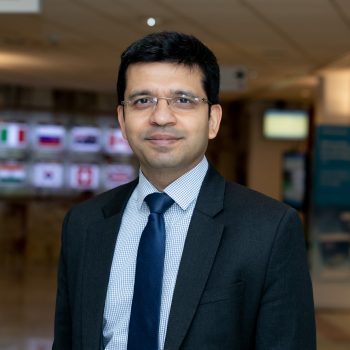
Preetam Maloor is the Head of the Emerging Technologies Division at the International Telecommunication Union (ITU), the specialized United Nations Agency for Information and Communication Technologies. With two decades of experience in ICTs, he is an expert on Artificial Intelligence and international cyber-related public policy matters. An ITU Staff member since 2008, he has been a key member of the ITU Secretariat at several major conferences including the 2012 World Conference on International Telecommunications (WCIT), 2010, 2014 and 2018 ITU Plenipotentiary conferences, the 2009, 2013, and 2022 World Telecommunication/ICT Policy Forums (WTPF), and the annual AI for Global Good Summit. He also serves as the Secretary of the ITU Council Working Group on international Internet-related public policy issues and the Expert Group on the International Telecommunication Regulations. Prior to joining ITU, Preetam spent nearly 10 years in the private sector, working primarily at Artificial Intelligence research organizations such as Intelligent Automation Inc, a Rockville, Maryland-based research think-tank focusing on AI-based applications, and at AT&T Research Labs, Florham Park, New Jersey in its Speech & Natural Language Research Group. He holds Master’s degrees in Computer Science from Texas A&M University, College Station, and in Engineering and Public Policy from the University of Maryland, College Park. He has a Bachelor’s degree in Computer Science and Engineering from the University of Mumbai.

Ashraf Abushady is a highly accomplished professional with a strong background in digital transformation and artificial intelligence. As a Diplom Ingenieur (Dipl. Ing.), he serves as the Senior Advisor for Digital Transformation and AI at the Directorate of Technical Cooperation and Sustainable Industrial Development within the United Nations Industrial Development Organization (UNIDO).
Ashraf holds a Bachelor of Science in Engineering from the prestigious Egyptian Marine Academy, where he gained a solid foundation in his field. Building upon his expertise, he pursued a Masters of Science in Engineering from the Vienna Technical University, further enhancing his knowledge and skills.
With an impressive career spanning over 25 years, Ashraf has been a dedicated member of the United Nations system organizations since 1998. Throughout his professional journey, he has held various positions that revolve around technology and communications, constantly contributing to the advancement of these domains. Currently, as a Senior Advisor in the Division of Digital Transformation and AI Strategies, he plays a pivotal role in shaping and implementing innovative solutions to foster sustainable industrial development.
Originally from Alexandria, Egypt, Ashraf Abushady is recognized for his unwavering commitment to leveraging technology for the betterment of society. His expertise and leadership in digital transformation and AI have proven instrumental in driving impactful change within the United Nations and beyond.
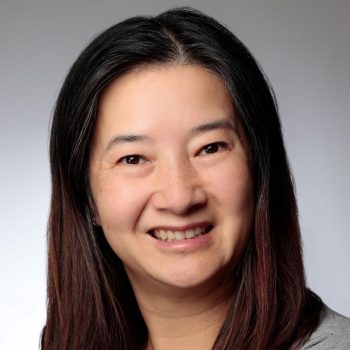
Ana Paula Nishio de Sousa, Chief of the Division of Digital Transformation and AI Strategies, Directorate of Technical Cooperation and Sustainable Industrial Development at UNIDO
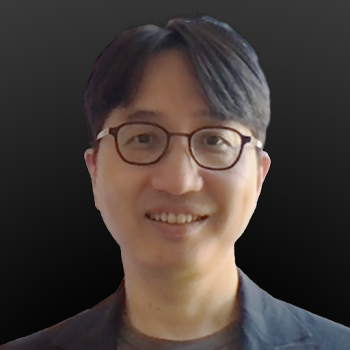
Jonghyun is a serial entrepreneur who has developed human-oriented technologies that help people maintain a balance with new technologies, including AI.
He pursues the development of neutral technologies that prevent people from overly relying on technology and losing their autonomy without excessively wasting computing resources due to convenience. Rather than automation, he advocates for user-participatory technology, where users engage actively to achieve more excellent utility from appropriate ICT technologies and resources.
His notable technologies becoming international standards include a passwordless technology (X.1280), where online services submit an automatic password to the user, and the user verifies the service on their smartphone instead of users inputting passwords and services verifying them. Another is storage protection technology (X.1220), which prevents stored data from being stolen or encrypted even if the user accidentally runs ransomware or data-stealing malware. There is also out-of-band physical authentication technology (X.oob-pacs), which verifies whether a robot or facility in front of the user is genuine before allowing usage.
He has established the Passwordless Alliance in Geneva with the aim of eliminating passwords for all online services worldwide, which is distributing free passwordless software.
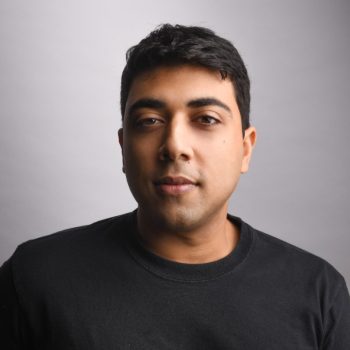
Rijul Gupta is the CEO of DeepMedia and a renowned Synthetic Media expert with a degree in Machine Learning from Yale University. Rijul has been named as a DeepFake thought leader by Forbes and created DeepMedia with the aim to safeguard DeepFake technology against destructive use-cases and promote ethical usage.
Prior to founding DeepMedia, Rijul worked as a machine-learning engineer for over 7 years, where he built and sold advanced object-recognition, pattern matching, and product-recommendation AI to leading companies such as Nike, Nordstrom, GAP, and Bloomingdale’s. He is a Thiel Fellow Finalist and a patented inventor, and Forbes Magazine recognized him as one of their “Forbes Next 1000” list of inspiring entrepreneurs. Rijul’s entire entrepreneurial career has been focused on deepfakes and the technology behind them. He has invented cutting-edge datasets and algorithms, demonstrating the rare technical knowledge necessary to program and create solutions in this rapidly evolving field of technology.
As the CEO of DeepMedia, Rijul is dedicated to ensuring that DeepFake technology is used responsibly and ethically, and he is committed to creating a more secure future for all.
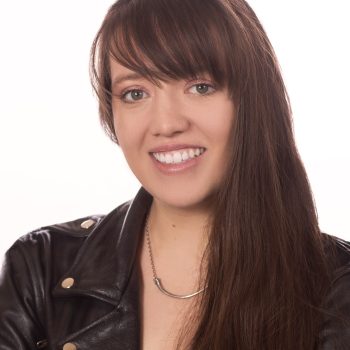
Emma Brown is a co-founder and Chief Marketing Officer of Deep Media, where she leads efforts to combat misinformation and safeguard media integrity. With a decade of experience and a background in Political Science and Russian & Eastern European Studies from Yale University, Emma brings a unique perspective to the intersection of technology and global dynamics.
Skilled in seven languages, Emma’s adaptability and linguistic capabilities enable her to bridge cultural divides and drive global collaboration. Prior to co-founding Deep Media, Emma distinguished herself by spearheading the growth of marketing departments from the ground up, showcasing her innate ability to strategize and execute with precision. Her vision for Deep Media extends far beyond business success; it embodies a steadfast commitment to ethical innovation and societal progress.
Emma’s commitment to ethical innovation drives her leadership at Deep Media, where she champions the cause of truth and transparency in the face of deepfakes and unsafe AI. Through her work, she empowers individuals and organizations to navigate the evolving landscape of media security with confidence.

Violet Su is a Business Development Manager at Seeed Studio, where she explores, builds, and strengthens partnerships in the ecosystem, from industries to communities, and academia.
Having taken different roles from Sales Consultant to Community Manager at Seeed Studio & its subsidiary Chaihuo Makerspace, and organizing the flagship event Maker Faire Shenzhen, Violet has been actively involved in Seeed’s endeavor of Tech4Good by promoting the adoption of open technologies, AI, and IoT in contributing to the SDGs.
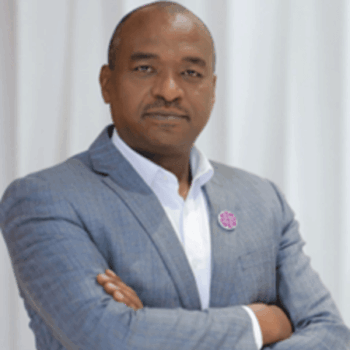
Dr. Asrat Mulatu is an accomplished Associate Professor and technology consultant with a passion for teaching, mentoring, and pioneering research. With a strong academic foundation in Electrical Engineering and a specialization in Computer Engineering, he holds a terminal degree in Wireless Communication Systems.
He is a faculty member at the Department of Electrical and Computer Engineering at Addis Ababa Science and Technology University, where he teaches postgraduate candidates and spearheads impactful research and consultancy initiatives. Dr. Asrat has managed and contributed to numerous national and international projects across sectors, leveraging his expertise to provide innovative IT development solutions.
His research spans cutting-edge areas including Wireless Communication Systems, Distributed and Cloud Computing, Open-Source Technologies, and Artificial Intelligence. As a prolific scholar, he has authored over 35 peer-reviewed publications in leading international journals, conferences, and book chapters.
Since 2023, Dr. Asrat has served as President of the Internet Society Ethiopian Chapter, where he champions an open, secure, and inclusive Internet. His work brings together diverse stakeholders to advance digital equity and innovation in Ethiopia and beyond.
A strong advocate for the UN Sustainable Development Goals, the open Internet, and the ethical use of AI, Dr. Asrat is committed to harnessing technology for social good and sustainable development.
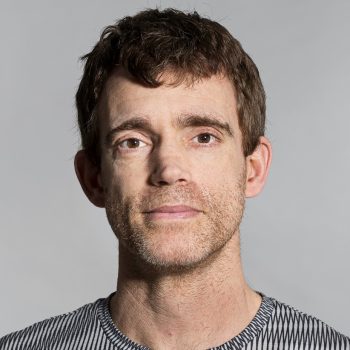
Jon Cox is a Scientific Officer in WMO’s Science and Innovation team. A resource mobilisation and project management specialist, he has managed EC funded projects for 20 years. As well as leading on resource mobilisation for WMO research programmes, he delivers project management work across WMO’s Early Warnings for All initiative, and on the interaction between WMO, other UN agencies, and external partners around AI and climate. Jon has a degree and doctorate in Earth Sciences from the University of Oxford in the UK. Prior to WMO, he worked mostly in academia at Oxford before entering the UN system with UNCCD.
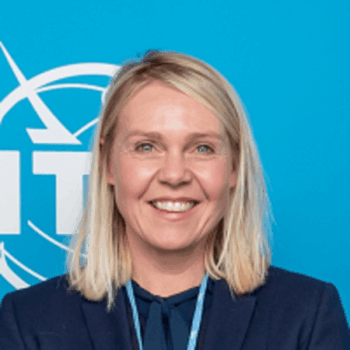
Vanessa is responsible for developing and overseeing projects and technical assistance on disaster preparedness, mitigation, response, and recovery. This includes the development of national emergency telecommunication plans (NETPs), the organization of regional and national workshops, and capacity building exercises for disaster management. In the area of disaster response, Vanessa oversees the work on the Disaster Connectivity Maps (DCM) and the deployment of emergency telecommunication equipment to countries hit by disasters. She is the ITU focal point for the UN’s Early Warning for All (EW4All) initiative and coordinates the initiative’s pillar on Warning Dissemination and Communication, to ensure that alerts reach people at risk. She is responsible for the organization of the Global Forum on Emergency Telecommunication (GET) and for specific ICT-for-disaster-management tools and publications, for example in the area of disruptive technologies, gender, and ICT simulation exercises.
Vanessa holds a master’s degree in political science and economics from the Graduate Institute of International and Development Studies in Geneva, Switzerland.
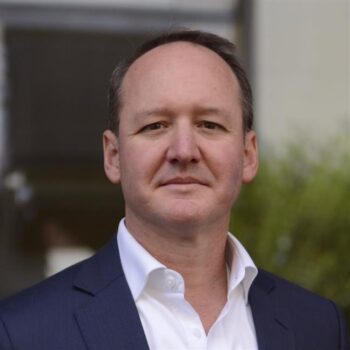
Julius (J.N.) Hill is Deloitte’s Global Consulting Partner to the United Nations and the Managing Partner for the International Affairs and Development (IAD) sector in Europe, Middle East, and Africa. He leads a team specialising in operational efficiency, digital transformation and technology optimization. His team is leading flagship projects in the AI space with different UN agencies.
With 30 years at Deloitte, Julius has tackled complex challenges for both public and private sector clients. His deep understanding of the UN system and international organisations brings a unique perspective to addressing critical aspects of people, processes, and technology.
Deloitte continues to support ITU’s AI for Good initiative through the sponsorship of the Global Summit and their contribution to the annual AI for Good Impact Report.
You can connect with Julius on LinkedIn.
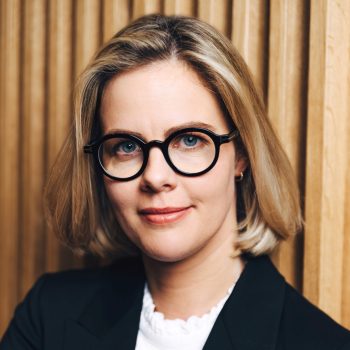
Dr. Sarah J. Becker is a renowned expert on the intersection of emerging technology, digital ethics, and governance. Sarah brings more than a decade of experience in digital transformation, as an entrepreneur, researcher, and advisor for Germany’s DAX companies, family businesses, NGOs, and public institutions, including as the inaugural member of the Digital Ethics Advisory Panel of Merck KGaA and as co-lead of the working group on digital ethics of the Initiative D21, Germany’s largest non-profit network for the digital society.
In her current position as a Partner and Lead for Digital Ethics at Deloitte, Sarah and her team develop strategies and programs to operationalize digital ethics and AI governance. Besides, Sarah teaches at the Witten/Herdecke University and recently published the following articles which provide guardrails for a responsible transformation and more ethics in technology, The Principle-at-Risk Analysis (PaRA): Operationalising Digital Ethics by Bridging Principles and Operations of a Digital Ethics Advisory Panel”, in Minds and Machines, and A Code of Digital Ethics: laying the foundation for digital ethics in a science and technology company, in AI & Society.
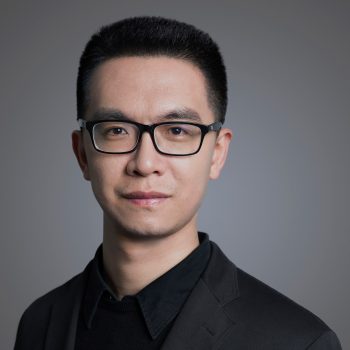
A Senior Engineer, Founder and Chairman of the Board and Executive Director of Infervision, was a Ph.D. candidate pursuing dual doctoral degrees in Economics and Finance at the University of Chicago and under the tutelage of four Nobel laureates in economics.
In 2018, Mr. Chen won the title of Beijing Distinguished Expert and Zhongguancun High-end Leading Talent; In 2020, Mr. Chen was awarded the first prize of 8th Chinese overseas Chinese Contribution Award and Entrepreneurial Leadership Award. In 2021, he was commended by the Ministry of Science and Technology and awarded the honorary title of “Advanced Individual in the National Science and Technology System’s Fight against the New Coronary Pneumonia Epidemic” and other sorts of award.
Mr. Chen ‘s social responsibilities include Vice Chairman of the first Council of Imaging Committee of China Medical Equipment Artificial Intelligence Alliance, the Vice Chairman of the Medical Artificial Intelligence Alliance of China Medical Equipment Association, a specially-appointed expert from the Distinguished Expert Committee of the China Federation of Returned Overseas Chinese, a member of the Zhongguancun Science City Expert Advisory Committee and Member of the 15th Executive Committee of Beijing Federation of Industry and Commerce and other sort of social responsibilities.
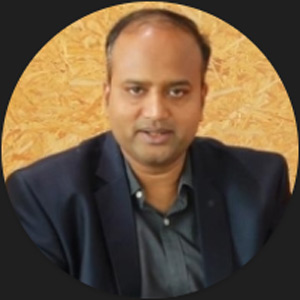
Principal Architect at Tata Elxsi. Ramesh Ramanathan is a distinguished technology leader renowned for his expertise in software-centric telecom networks driven by SDN/NFV and the Cloud. Serving as the Principal Architect at Tata Elxsi, Ramesh spearheads platforms and solutions in the Network Orchestration and Automation space. As a Technical Steering Committee (TSC) member in Open-Source MANO and a standards writer for ETSI, Ramesh is at the forefront of shaping the future of our connected world. His unwavering passion lies in developing autonomous networks that promise to transform operators into business intelligence-driven networks, catalysing a transformative shift from cloud-centric to AI-centric networks. An avid speaker at industry shows and universities, Ramesh is dedicated to building sustainable solutions that empower customers and drive industry advancement.

Gerassimos Spyridakis is the Founder and CEO of Spheric Capital, a Multi Family Office boutique based out of Geneva Switzerland that offers holistic wealth management solutions alongside direct access to best-in-class Investment Managers and Private Market deal opportunities.
Prior to launching Spheric Capital, Gerassimos served as the Global Market Head of Southern Europe, Israel, Monaco, Africa and Turkey for the Citi Private Bank and Bank Julius Baer.
Prior to banking Gerassimos worked as a brand manager and management consultant for United Distillers, Gallaher Ltd and Roche Pharmaceuticals.
He is an alumnus of Harvard Business School, holds an MBA from Manchester Business School and has attended Executive Education courses at IMD, MIT, Insead, London Business School and Singularity University in CA.
Gerassimos currently serves as the Chairman of South Eastern Europe for MIT University’s StartSmart organization (Startup Accelerator).
He is part of the Chief Executive Organization (www.ceo.org) and has held senior leadership positions at YPO (Young President Organization) where he is an active member since 2013.
In the past two decades Gerassimos has been a founder, a board member or has served as senior advisor at startups focusing in artificial intelligence and the digital health space.
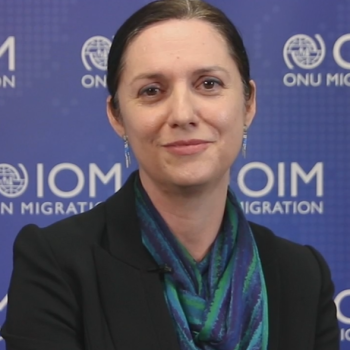
Marie McAuliffe is the head of the Migration Research & Publications Division at IOM headquarters in Geneva and Editor of IOM’s flagship World Migration Report. She is an international migration specialist with 25 years of experience in migration as a practitioner, program manager, senior government official and researcher.
Marie has researched, published and edited widely in academic and policy spheres on migration and is on the editorial boards of scientific journals International Migration, Migration Studies and Migration and Development, and is an Associate Editor of the Harvard Data Science Review. She edits IOM’s World Migration Report in partnership with leading migration researchers (2018 edition with Prof Martin Ruhs, 2020 edition with Prof Binod Khadria, 2022 edition with Prof Anna Triandafyllidou and forthcoming 2024 edition with Dr Linda Oucho). She also edits IOM’s Migration Policy Practice journal (with Jenna Blower, Charles Kwenin and Richa Arora), and is a regular contributor to the World Economic Forum’s Agenda blog series.
Marie is a Senior Associate (non-resident) at the Centre for Strategic and International Studies (CSIS), senior fellow at the Global Migration Centre at the Graduate Institute in Geneva and a Sir Roland Wilson Fellow at the School of Demography at the Australian National University (ANU). She co-chairs the World Bank’s KNOMAD thematic working group on migration data and demography (with Prof Rainer Muenz), is a member of MIT’s Global Technology Review Panel, IUSSP’s panel on international migration and curates the World Economic Forum’s Migration Transformation Map. Marie is also an elected board member of the Academic Council on the UN System (ACUNS). She has been regularly called upon to advise Ministers, senior officials and CEOs on migration and displacement, including former UN Secretary General, Mr Kofi Annan, in his capacity as Chair of the Advisory Commission on Rakhine State.
Marie has led research, analysis and policy teams in government and previously consulted to IOM, ILO as well as in the private sector, including in South Korea, Russia, Central Asia and Turkey. For three years (2012–2014), Marie directed the $6.5 million Australian irregular migration research program involving 31 applied/academic researchers in 12 fieldwork countries to deliver 20 complex research projects. In addition to government briefings, academic workshops and conferences, a government-research high level strategic dialogue series and 22 research occasional papers, the program resulted in an ANU Press book edited by Marie (with Khalid Koser).
In late 2014 Marie was awarded a Sir Roland Wilson scholarship to complete doctoral research at ANU on irregular migration (approved late 2017). She is the 2018 recipient of the Charles Price Prize in demography for outstanding doctoral research in migration studies.
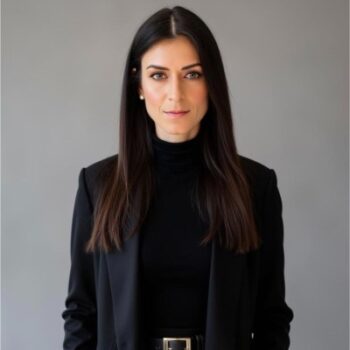
Dr. Najwa Aaraj is the Chief Executive Officer (CEO) at Technology Innovation Institute (TII), the applied research pillar of the Advanced Technology Research Council (ATRC), the overarching advanced technology body in Abu Dhabi responsible for driving research and development for transformative technology outcomes. Previously to her role as CEO, Dr. Aaraj was the Chief Researcher at the Cryptography Research Center (CRC) and the Autonomous Robotics Research Center (ARRC) TII.
Dr. Aaraj earned a PhD with Highest Distinction in Applied Cryptography and Embedded Systems Security from Princeton University (USA). She has extensive expertise in applied cryptography, trusted platforms, security architecture for embedded systems, software exploit detection and prevention systems, and biometrics. She also specializes in shaping the robotics and self-organized autonomous vehicles ecosystem in the UAE and beyond – exploring their application across air, land, on-sea and underwater. She has over 18 years of experience with global firms, working in multiple geographies from Australia to the United States.
Before joining TII, Dr. Aaraj was Senior Vice President of Products & Cryptography Development at DarkMatter, a cyber-security leader based in the UAE. She was formerly at Booz & Company, where she led consulting engagements in the communication and technology industry for clients globally. She also held a Research Fellow position with the Embedded Systems Security Group at IBM T.J. Watson Security Research in New York State, and with the Intel Security Research Group in Portland, Oregon, where she worked on Trusted Platform Modules and contributed to an early prototype of a TPM 2.0 based firmware. She also was a Research Staff Member at NEC Laboratories in Princeton, New Jersey.
Dr. Aaraj has written multiple conference papers, Institute of Electrical and Electronics Engineers (IEEE) and Association for Computing Machinery (ACM) journal papers and book chapters, and received patents on applied cryptography, embedded system security, and machine learning-based protection of Internet of Things (IoT) systems.
Dr. Aaraj is on the advisory board of New York-based Neutigers, a leading-edge startup revolutionising the next generation of energy/latency-efficient artificial intelligence (AI). She is also Adviser within the Strategic Advisory Group at Paladin Capital Group (Cyber Venture Capital) and Adjunct Professor at the Mohamed Bin Zayed University of Artificial Intelligence (Machine Learning Research Group). In addition, she is an Adviser to multiple security and Machine Learning startups including Okinawa Institute of Science and Technology Graduate University. She is also a board member of Abu Dhabi Ship Building (ADSB).
She received a Special Recognition award at the Arab Woman Awards 2021, held in partnership with the United Nations to recognise the notable achievements of the region’s women. Additionally, Dr. Aaraj received the Wu Prize of Research Excellence from Princeton University.

OpenUK CEO, Amanda Brock has built one of open source’s most recognised and impactful organisations. Executive Producer of State of Open Con (2023- 2025), Amanda’s a globally sought-after keynote speaker. A lawyer with 25 years’ experience, 5 as GC of Canonical, she’s been instrumental in shaping open source’s legal frameworks, as she was internet law during the early 2000’s.
Regularly contributing to tech press, she edited “Open Source: Law, Policy and Practice”, 2nd edition (2022).
Recognition: Computer Weekly 50 Most Influential Women in UK Tech (2023, 2024) listed as #20 in 2024; Computing IT Leaders 100 (2023,2024,2025); Lifetime Achievement Award WIPL (2022); Women Who Will Changemaker (2023); INvolve Heroes (2022, 2023); Novi Awards (2024); and Ambassador, Open Charge Alliance.
Advisory Board Appointments: UK Cabinet Office Open Standards Board; UKRI Digital Research Infrastructure; UKRI Exascale; KDE; commercial boards – Mimoto, Scarf, FerretDB and Space Aye; and Fellow, Open Forum Academy; Distinguished Fellow, Rust Foundation; and European Representative, OIN and Board Member Mojaloop Foundation.
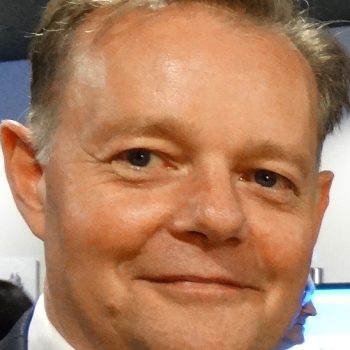
At BSI, David is responsible for the National Standards Body (NSB) global strategy on all things digital, and the development and implementation of the sector’s market engagement. Supporting cross-sector industries and government stakeholders to innovate by accelerating the adoption of digital technologies, identifying and codifying excellence to transform and improve business, process and culture for both social and economic benefit.
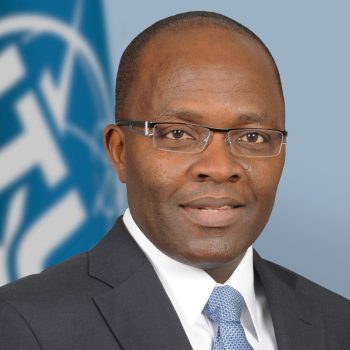
Dr Cosmas Luckyson Zavazava took office as Director of the Telecommunication Development Bureau (BDT) at the International Telecommunication Union (ITU) on 1 January 2023.
With more than 30 years in telecommunications, including over 20 years in ITU’s Development Sector, Dr Zavazava has promoted and implemented impactful information and communication technology projects around the world.
Prior to his election as BDT Director, he served as ITU’s Chief of Partnerships for Digital Development, overseeing development-related projects, strategic partnerships, and resource mobilization between 2019 and 2022, while launching new initiatives that have boosted the engagement of industry, private-sector and academia members in ITU’s work.
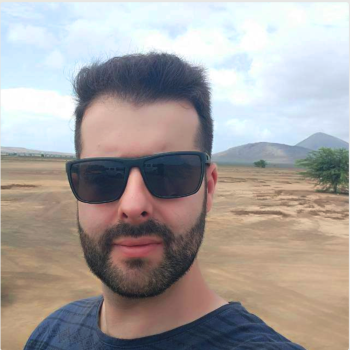
Luís is a 37 years old avid football and science fiction fan, who lives with his beloved partner, Raquel, in Lisbon. Diagnosed with Amyotrophic Lateral Sclerosis (ALS) in July of 2022, he lost his ability to speak in the beginning of 2023. Since mid-2023, he has been actively participating in the Unbabel Halo project, working together with the Unbabel Labs team to help restore the communication of ALS patients with their loved ones.

Dr. Seth Center is Deputy Envoy for Critical and Emerging Technology. Previous government service includes as a member of the State Department’s Policy Planning Staff where he helped develop the Department’s cyberspace and emerging technology strategic framework, and as senior advisor to the National Security Commission on Artificial Intelligence where he led the writing of the commission’s final report. Center also served as Director for National Security Strategy and History on the White House’s National Security Council staff, and as an historian on the NSC staff and for the State Department. Outside of government, he was most recently a senior advisor at the Special Competitive Studies Project, and prior to that was a Senior Fellow at the Center for Strategic and International Studies. Center received his PhD from the University of Virginia and BA from Cornell University.
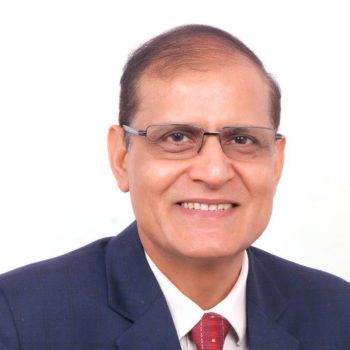
Dr. Rajkumar Upadhyay is CEO of Centre for Developments of Telematics (C-DOT), a premier R&D Centre of Ministry of Communications, Government of India. His previous assignments include working with Prasar Bharati, Telecom Regulatory Authority of India, Bharat Sanchar Nigam Ltd (BSNL) and in Defence R&D Organization. He has also been the Chairman of the working group on ‘Policy and Regulation for South Asian Regulators Council (SATRC) during 2011-12.
Currently, he is a Governing Council Member of Telecom Standards Development Society India, Broadband India Forum, Telecom Export Promotion Council, Telecom Centre of Excellence and founding member of ‘Bharat 6G Alliance’. He is also the member of National Committee on Electronics Manufacturing and National Committee on Telecom and Broadband of Confederation of Indian Industry.
He is the winner of several awards including: J.C. Bose award by Ministry of Defense, National e-Governance award by Government of India, CIO 100 award by International Data Group (IDG), Deepak C. Jain Award by IIM Bangalore. Under his leadership, C-DOT haswon various awards namely Voice Data “Telecom Person of the Year”, IETE Corporate Award for Telecommunication, ELCINA Award for Innovation in R&D Category, 12th Annual Aegis Graham Bell Awards across three categories for Disaster Management, Secure Messaging & Calling Solution and Covid Quarantine Alert System (CQAS), ELCINA Defennovation Awards for innovation in Defence and many more.
Dr Upadhyay holds Ph.D. in Corporate Strategy & Policy and MBA from IIM Bangalore & M.Tech. from Indian Institute of Technology (IIT), Roorkee.
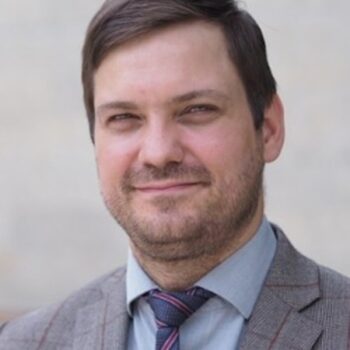
Dr. Martin Wählisch is the inaugural Associate Professor of Transformative Technologies, Innovation, and Global Affairs at the University of Birmingham, where he holds dual appointments in the School of Government and the School of Computer Science. Focusing on bridging technology and global affairs, he now spearheads initiatives focused on interdisciplinary collaboration, innovative governance, and impactful technological solutions to global public challenges.
Before joining the University of Birmingham, Dr. Wählisch served the United Nations for over a decade, contributing to peace processes in regions including Lebanon, Iraq, and Yemen. Among other assignments, he led the Innovation Cell at the UN Department of Political and Peacebuilding Affairs (UN DPPA) in New York City. Earlier in his career, he held positions with the Berghof Foundation, the German Federal Foreign Office, and the Center for Peace Mediation.
His academic engagements include visiting fellowships at distinguished institutions such as Columbia University, Rhode Island School of Design, New York Law School, the University of Cambridge, Durham University, the American University of Beirut, Université La Sagesse, and the Al Jazeera Media Institute, among others.
Currently, Dr. Wählisch is a member of the Centre for Artificial Intelligence in Government (CAIG) at the University of Birmingham and an affiliate of the Birmingham Institute for Sustainability and Climate Action (BISCA), the university’s primary hub for addressing global sustainability challenges.
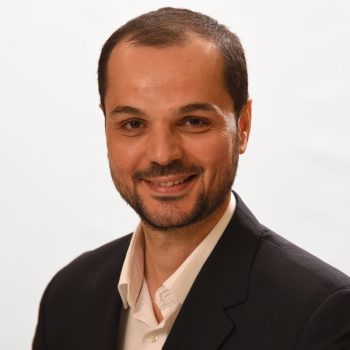
Daniele is the research lead of the Central Insights Unit at Mobile for Development (M4D), the foundation arm of the GSMA, the global association of the mobile industry. Daniele and his team produce research on the opportunity to push forward emerging technologies and digital innovations that empower underserved populations. He also oversees the M&E function of M4D, ensuring that impact measurement methodologies are robust and consistent. Daniele’s team is currently working on new research to identify the most promising impact-driven, AI-led innovations in low and middle-income countries.
At the GSMA, Daniele has previously managed the research functions of the AgriTech and mHealth programmes. Prior to joining the GSMA, he worked as an industry analyst and consultant for the telecoms and media sectors in emerging markets, at Informa Telecoms & Media (now Omdia) and Pyramid Research (now GlobalData). Daniele holds and MSc in new media and information systems from the London School of Economics and an MA from the University of Bologna
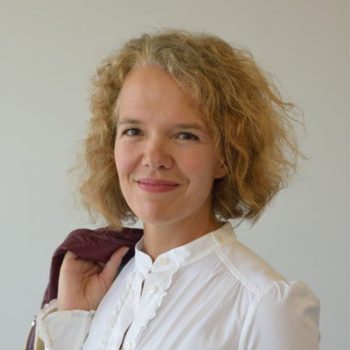
Nathalie Lesselin, with her extensive international experience, is profoundly committed to ethical technology use. After five years in Japan and significant roles at LVMH and Gucci, she led a French medical start-up to national leadership. Founder of KOKORO lingua, Nathalie drives AI-enhanced language education that supports human needs. Her leadership focuses on advancing Sustainable Development Goals: promoting quality education (#SDG4), reducing inequalities (#SDG10), and supporting gender equality (#SDG5), emphasizing that technology should amplify educational outcomes and global understanding.
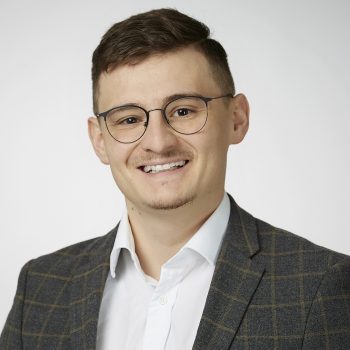
Marcus Rüb studied electrical engineering at Furtwangen University. After completing his bachelor’s degree, he worked as a scientific assistant for AI at Hahn-Schickard while completing his master’s degree. His main interest is in embedded AI. This often involves the implementation of machine learning algorithms on embedded devices and the compression of ML models. Furthermore, Marcus is one of the federal funded AI trainers and supports companies in integrating AI into their processes.
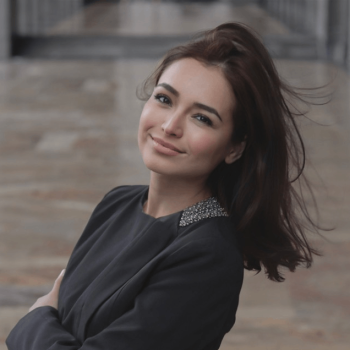
Lidia Aviles since 2021 is Ambassador for the EU Climate Pact, a movement launched by the European Commission as part of the European Green Deal to help the EU to meet its goal to become climate-neutral by 2050. Founder & CEO of AELSTONE (a strategic management services’ company dedicated to achieving a sustainability impact by accelerating SDG17 “Partnership for the Goals”) she was selected as Top Global Advisor 2023 (IAOTP).
Ms. Aviles is a Sustainability & Innovation Expert, mentor, writer, educator and entrepreneur. Author of Education Series Books & contributor for different educational editorials. Professor of Business Law and Business Ethics at the H. University (2016-2018). Nominated as Voice of a New Era of Leaders as part of the Leadership Redefined movement by the Female Factor, Woman of Impact by Worlds Leaders Magazine, Author of AI for Sustainability.
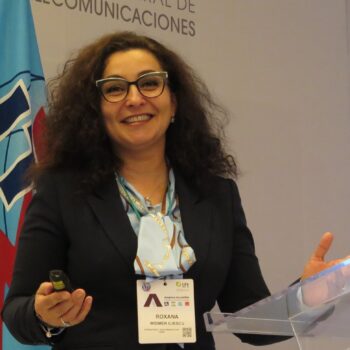
Ms Widmer-Iliescu has 25 years of experience and contribution to the overarching goal of Digital Inclusion through her work in the Development Sector of the International Telecommunication Union (ITU) by assisting ITU members and stakeholders in implementing inclusive digital communication for all people, in their respective countries and regions.
In her capacity as Senior Coordinator for Digital Inclusion, given her expertise in all vulnerable groups, she takes an all-inclusive approach to digital inclusion for women and men of all ages, abilities, levels of education, and geographic locations. She advises ITU members and stakeholders on formulating policies and executing strategies to meet the needs of all end-users to access information and communication technologies (ICTs), particularly those in vulnerable situations. To support implementation, she also plans and leads the creation of essential ICT/digital accessibility tools and resources, and she shares her knowledge with ITU members and stakeholders on how to make technology digitally accessible, universally designed, and end-user-centred.
In response to the two global megatrends of an ageing population and the rise of technology, and in accordance with the activities of the UN Decade of Healthy Ageing 2021-2030 and the 2030 Agenda, Ms Widmer-Iliescu assists policy and decision-makers in the creation of digitally inclusive and age-friendly environments and societies for present and future generations.
Ms Widmer-Iliescu advocates and promotes ICTs/digital accessibility as the fundamental enabler to facilitate everyone’s active participation in the digital society and economy, ensuring that nobody is left behind in the digital age!
Ms Widmer has an educational background in informatics and law and holds Master’s degrees in International Law and, in the Strategic Management of Telecommunication. She also speaks Romanian, English, French and Spanish.
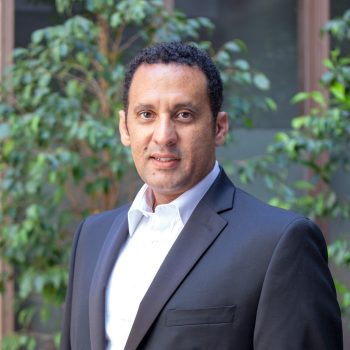
Carlo Tortora Brayda is the Founder and Chief Executive Officer of Cyber Eagle Project Inc., a sovereign-grade AI and cybersecurity platform dedicated to protecting critical infrastructure across NATO, Five Eyes, and allied nations. Cyber Eagle is structured as a large-scale public–private partnership addressing systemic cyber, AI, and resilience risks across energy, transport, healthcare, finance, and government systems.
He is also the Founder and Executive Chairman of the Tortora Brayda Institute for AI & Cybersecurity, a global think tank focused on AI governance, national security, and alignment with the United Nations Sustainable Development Goals. The Institute convenes policymakers, industry leaders, and technologists to advance responsible AI deployment, cyber resilience, and international cooperation.
Mr. Tortora Brayda has been a long-standing contributor to the United Nations ecosystem. He has spoken at multiple UN summits and forums, including those convened by the International Telecommunication Union, and serves as a Judge for the UN AI for Good Innovation Factory, including its climate-focused programs featured at UNFCCC COP. His work consistently emphasizes the role of public–private collaboration in safeguarding trust, infrastructure, and societal stability in the digital age.
He is a long-term Global Leader of the Forbes Technology Council Cybersecurity Group, where he contributes thought leadership on AI security, critical infrastructure protection, digital trust, and cyber resilience for senior business and policy audiences worldwide.
Mr. Tortora Brayda has also been engaged with the World Economic Forum as a Special Constituent and subject matter expert on Global Risks, contributing to discussions supporting G20 and multilateral risk frameworks. His WEF work has focused on the intersection of emerging technology, systemic cyber risk, geopolitical stability, and governance.
Beyond cybersecurity, Mr. Tortora Brayda has advised governments and international organizations on entrepreneurship, private sector development, and digital transformation, particularly in Africa, where he led initiatives supporting large-scale employment creation and SME growth in coordination with national governments and UN agencies.
He is a Chartered Engineer in AI information systems, a frequent speaker at global technology and policy forums, and is recognized internationally as a thought leader at the intersection of artificial intelligence, cybersecurity, national resilience, and sustainable development.
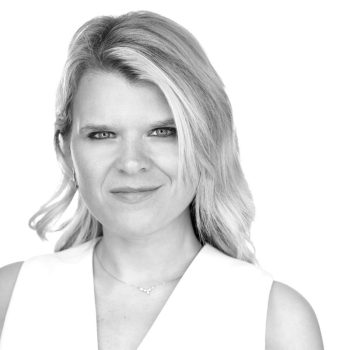
Diane Mievis leads strategic public policies for Cisco in the European Union, including telecoms, sustainability and trade policies. Diane joined Cisco in May 2021 and is based in Brussels. Diane has over 15 years of diverse experience across government and technology public affairs. Prior to joining Cisco, she was Senior Trade Manager at Samsung, she also held various postings in the Cabinets of two Ministers of the Walloon Government in Belgium
Diane is Chair of the Green Transition Working Group of Tech Industry association DIGITALEUROPE and also Vice-Chair of the Digital Economy Committee of AmchamEU, representing US companies in the European Union.
Diane holds a Master in Political Sciences and European Studies from the University of Liege, and an Executive MBA from the Vlerick Business School (Belgium).
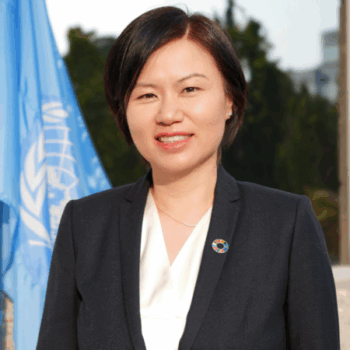
Dr. Jingbo Huang is the Director of the United Nations University Institute in Macau (UNU Macau). Under her leadership, UNU Macau has developed a strong portfolio in education, training and policy relevant research in digital technologies and SDGs, particularly in AI for SDGs since 2018. Recently she led the institute to successfully organize World Data Forum Satellite Event in 2023 and UNU Macau AI conference in 2024 with 500+ participants from 40+ countries, and established the UNU Global AI Network. She has been working in the UN system for 20+ years, holding various managerial positions in the UN Secretariat, UNDP, UNESCO, UNSSC and UNU. Jingbo received her Doctor of Education degree from Columbia University, and bachelors from Peking University.
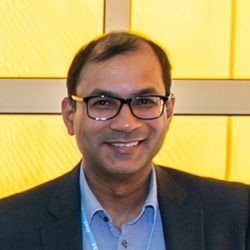
Vijay Mauree works at the International Telecommunication Union (ITU), since 2010 and has over 30 years of experience in project management and cybersecurity. He is the focal point for Digital Finance, digital public infrastructure and AI security at the Standardization Bureau in ITU. He leads the Digital Financial Services Security Lab which conducts security audits on mobile payment applications used in emerging economies and collaborates with DFS regulators and providers to enhance security of digital finance and adoption of international standards and best practices for security of digital financial inclusion and fintech. He manages the collaboration with OpenWallet Foundation for the OpenWallet Forum project which aims at global interoperability for digital wallets and credentials. He assists the OpenWallet Forum Government Consultative Committee in its work on government policies for digital wallets. He assists the United for Smart Sustainable Cities (U4SSC) Thematic Group on digital public infrastructure for cities. In addition, Vijay coordinates the secretariat for the ITU-T Focus Group on Costing models for affordable data services and the AI and Multimedia Authenticity Standards Collaboration under the World Standards Cooperation. He coordinated the work of the ITU-T Focus Group Digital Financial Services and ITU-T Focus Group Digital Currency including Digital Fiat Currency and the Financial Inclusion Global Initiative (FIGI) from 2017 to 2021. FIGI was a joint programme of the ITU, World Bank, Bank for International Settlements and supported by the Bill & Melinda Gates Foundation. He led the FIGI Security, Infrastructure and Trust Working Group which investigated the security threats to the DFS Ecosystem and developing technical reports and guidelines to enhance trust in DFS.
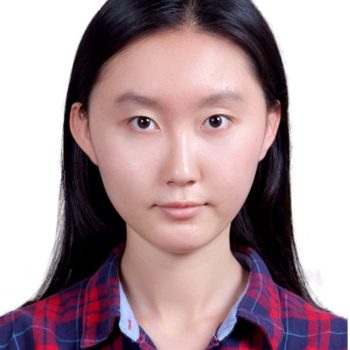
Official email: wangce@chinamobile.com
Expert Introduction: Continuously conducting research in areas such as artificial intelligence and information accessibility, deeply understanding the latest international trends, research progress, and industry practice cases related to these topics.

Eileen Donahoe serves as Special Envoy and Coordinator for Digital Freedom in the U.S. Department of State’s Bureau of Cyberspace and Digital Policy (CDP).
Previously, Dr. Donahoe served as the Executive Director of the Global Digital Policy Incubator at Stanford University, a multistakeholder collaboration hub focused on implications of digital technology for democracy and human rights. She served as the first US Ambassador to the United Nations Human Rights Council in Geneva during the Obama Administration. After leaving government, she was Director of Global Affairs at Human Rights Watch where she represented the organization worldwide on human rights foreign policy, with a special focus on internet governance and digital security.
Dr. Donahoe is a former member of the Board of Directors of the National Endowment for Democracy; the Board of Trustees of the Carnegie Endowment for International Peace; and the Board of Trustees of Dartmouth College. She also served on Microsoft’s Human Rights and Technology Advisory Board; the Independent Advisory Council of the Global Internet Forum to Counter Terrorism; the Board of Advisors for the Carnegie Council Artificial Intelligence and Equality Initiative; and the Freedom Online Coalition Advisory Network. Previously, she was a technology litigator at Fenwick & West in Silicon Valley. She holds an A.B. from Dartmouth, an M.T.S. from Harvard, a J.D. from Stanford Law School, an M.A. in East Asian Studies from Stanford, and a Ph.D. in Ethics and Social Theory from the GTU in the Cooperative Program with UC Berkeley. She is a member of the Council on Foreign Relations.
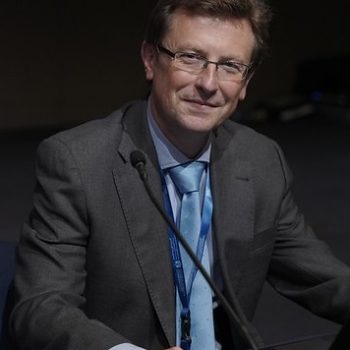
Gilles Thonet is the Deputy Secretary-General of the International Electrotechnical Commission (IEC) as well as the Secretary of the IEC Standardization Management Board (SMB). In his current role, Gilles oversees the IEC technical boards, the IEC strategy, legal and compliance matters, as well as external relationships with partner organizations. A technology executive with international experience in high tech industrial companies (including ABB, Eaton and Schneider Electric), Gilles has a PhD in Signal Processing from the Swiss Federal Institute of Technology Lausanne (EPFL), an MSc in Electrical Engineering from Louvain School of Engineering, Belgium, and an MBA from Grenoble Graduate School of Business, France.
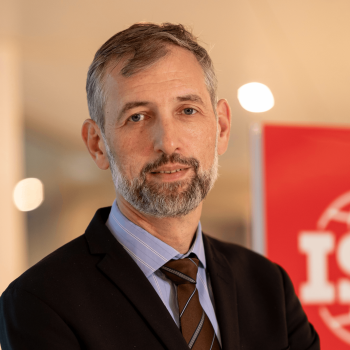
Since 2021 Silvio Dulinsky has been Deputy Secretary-General of the International Organization for Standardization (ISO) in Geneva, Switzerland.
Previously he was a member of the executive committee of the World Economic Forum (WEF) responsible for the private sector in Europe and Latin America, as well as for the global Climate Governance Initiative.
Mr. Dulinsky held international positions in finance for the Swiss cement group Holcim and was a member of the board of directors of some of its subsidiaries. He also acted as Corporate Director of the Spanish engineering group INYPSA and has been involved in the financing and development of technology startups.
He is a member of the board of directors of the foundation “Alliance for All” in Costa Rica, supporting young mothers to fulfill their dreams.
Silvio Dulinsky has a degree in business administration from the University of São Paulo, a master’s degree in administration from IESE Business School, and complemented his leadership education at IMD Lausanne, Stanford University, and the University of Zurich.
Silvio Dulinsky has Swiss, Spanish and Brazilian citizenships. He is the father of two young adults and enjoys walking with his dogs.

Sumaya Nur Adan specializes in AI governance with a background in Law, AI, and Ethics. As a research affiliate at the Oxford Martin AI Governance Initiative, she delves into issues surrounding international organizations, AI risk assessment, and the design of institutions for equitable benefit-sharing. Her research also emphasizes improving access and participation for the Global Majority in AI, promoting a more inclusive approach to global AI development and policy-making. She also serves as an AI risk advisor at the Central AI risk Function team within the Department for Science, Innovation, and Technology, UK government
Sumaya’s previous roles include working as a visiting researcher at the Centre for the Studies of Existential Risk, where she explored biases in military AI applications. At the Campaign to Stop Killer Robots, she advocated strongly at the UN for regulating autonomous weapons and stressed the need for African nations to be involved in global AI regulatory conversations. As a summer fellow at the Centre for AI Governance, Sumaya researched international models for AI benefit-sharing, aiming to create institutional frameworks that promote equitable sharing of AI benefits and ensure broad, inclusive global participation.
With her interdisciplinary background in Law, AI, and Ethics, she has contributed to global initiatives such as the United Nations High-Level Advisory Board on Effective Multilateralism and the African Commission’s efforts on AI and human rights. These roles complement her work on the Sendai Framework with the UN Office for Disaster Risk Reduction, advancing her dedication to integrating AI governance with global policy frameworks.
Looking forward, Sumaya is passionate about developing equitable and inclusive frameworks for diverse global engagement in AI policy and decision-making processes, with a particular interest in the roles and contributions of Global Majority countries in shaping AI governance and ensuring that the benefits of AI are shared globally.
Sumaya holds an LLB from Strathmore University, with her senior thesis focusing on liability for decisions made by self-learning algorithms in common law jurisdictions. She is completing an MPhil in the Ethics of AI, Data, and Algorithms at the University of Cambridge as a Mastercard Scholar.
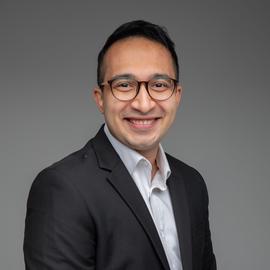
Saad is an AI Governance Researcher at the Safe AI Forum (SAIF), fiscally sponsored by FAR.AI. Prior to his work at SAIF, Saad was a management consultant at Bain and Company, and a Winter Fellow at the Centre for the Governance of AI, where he focused on identifying areas of potential Sino-western cooperation on AI safety and governance. Saad holds a MA in Global Affairs from Tsinghua University and BA in Politics and Anthropology from the University of Cambridge.

Marta Ziosi is a Postdoctoral Researcher at the Oxford Martin AI Governance Initiative, where her research focuses on standards for frontier AI.
Marta is an AI policy expert who worked for institutions such as DG CNECT at the European Commission, the Berkman Klein Centre for Internet & Society at Harvard University, The Montreal International Center of Expertise in Artificial Intelligence (CEIMIA) and The Future Society.
Previously, Marta was a Ph.D. student and researcher on Algorithmic Bias and AI Policy at the Oxford Internet Institute. She is also the founder of AI for People, a non-profit organisation whose mission is to put technology at the service of people.
Marta holds a BSc in Mathematics and Philosophy from University College Maastricht. She also holds an MSc in Philosophy and Public Policy and an executive degree in Chinese Language and Culture for Business from the London School of Economics. She spent a semester abroad at UC Berkeley, where her interest in topics at the crossroads of technology and social sciences further developed.

Lennart Heim is a researcher at RAND in Washington, DC, at the Technology and Security Policy Center. His research focuses on the role of compute for advanced AI systems and how compute can be leveraged as an instrument for AI governance, with an emphasis on policy development and security implications. Lennart’s publications cover the impacts and governance of advanced AI systems and empirical trends in machine learning, such as compute, data, and AI hardware.
He has provided policy and technical advice to several governmental agencies and leading tech companies, including the US and UK Government. He is also an adjunct fellow at the Centre for the Governance of AI (GovAI), a member of the OECD.AI Expert Group on AI Compute and Climate, a Pro Forecaster at InferPub, and an advisor to Epoch, an organization investigating the trajectory of AI. Previously, he worked as a consultant for OECD.AI and as a machine learning researcher at ETH Zürich. He has a background in computer engineering and studied at ETH Zürich and RWTH Aachen.

Ben Bucknall is a Research Scholar at the Centre for the Governance of AI and an Affiliate with the Oxford Martin AI Governance Initiative.
Ben’s research centres on technical topics with downstream implications for AI policy and governance, with a particular focus on system access requirements for AI research and evaluation, as well as responsible deployment best practices. He is also interested in how technical AI expertise can best be integrated into policy-making as a means of promoting technically-informed and effective governance.
Ben holds an MMath in Mathematics from Durham University and an MSc in Computational Science from Uppsala University, and was previously a research intern in the Krueger AI Safety Lab at the University of Cambridge, and a Winter Fellow at the Centre for the Governance of AI.

Nicolas is an economist by training focused on the impact of General-Purpose Artificial Intelligence (GPAI) on geopolitics, the economy and industry. He is the Executive Director at The Future Society, where he works on the management, strategy and stakeholder engagement for the organization. He previously studied and monitored European developments in the legislative framework surrounding AI, and was active on the EU AI Act drafting and on building its enforcement mechanisms.
Nicolas is also involved in AI standardisation efforts, as a member of the International Standardisation Organization’s SC42 and CEN-CENELEC JTC 21 committees on Artificial Intelligence, as a Belgian representative. Nicolas is an expert at the OECD.AI Policy Observatory in the Working Groups on AI Incidents and on Risk & Accountability.

Sam Daws is Senior Advisor to the Oxford Martin AI Governance Initiative, Oxford University, and Founding Director of Multilateral AI. He has served for 40 years in senior multilateral roles, including as First Officer to UN Secretary-General Kofi Annan in New York, and advising the British Prime Minister on the creation of the UN SDGs as Deputy Director (UN) in the Cabinet Office. He previously served as Senior Principal Research Analyst (Multilateral) in the FCO, Executive Director of UNA-UK, and UK Representative to the UN Foundation.
Mr Daws is a recognised international expert in multilateral strategy, geopolitics and tech governance, and author of 14 books including The Oxford Handbook on the United Nations. An alumnus of the Oxford Artificial Intelligence Programme, and industry advisor to Oxford’s Saïd Business School, he also serves as a senior Oxford China Centre Associate, and policy lead for the University’s UN Academic Impact SDG16 hub. His academic background encompasses social anthropology, international law and relations, and science-diplomacy. His policy focus is on AI’s peace and security, sovereignty, sustainable development, and intercultural/language implications, and his regional interests include China-West policy interoperability and trust building in UN and minilateral AI governance processes, and AI developments in the Gulf States, Central Asia and ASEAN
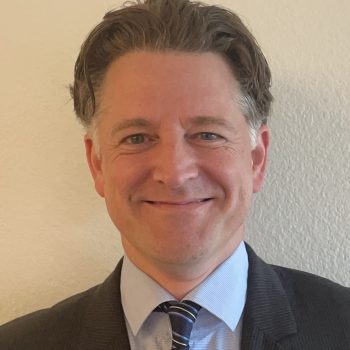
Tim Bonnemann is the Community Lead for Open-Source Science (OSSci), a global NumFOCUS initiative – launched in July 2022 in partnership with IBM – that aims to accelerate scientific research and discovery by improving the ways open-source scientific software gets built, applied, and sustained. In addition, he is part of the community core team at the AI Alliance, an international community of researchers, developers and organizational leaders committed to supporting and enhancing open innovation across the AI technology landscape to accelerate progress, improve safety, security and trust in AI, and maximize benefits to people and society everywhere.
Tim is a longtime community architect, builder, and manager with more than 15 years of experience in the public, private, and nonprofit sector. Prior to joining IBM, he has advanced community at Oracle, VMware, and Equinix, as well as across a number of non-profit and grassroots organizations. Originally from Germany, he lives in San José, CA with his family.
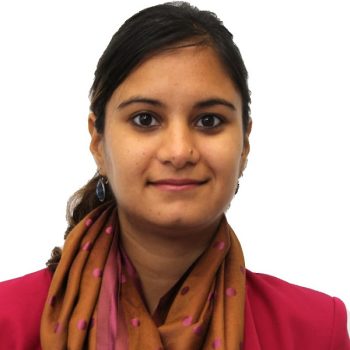
Aparna Taneja is a researcher at the Multi Agents Systems for Social Impact team in Google Research India. She collaborates with several NGO’s and academic partners in the fields of public health and conservation and her primary focus is collaboration with ARMMAN, an NGO focused on improving maternal and child health outcomes in underserved communities in India. She has published in top-tier conferences in AI, with best paper awards at IJCAI, AI for Good track, MLPH (Neurips) and Innovative Applications of AI Award (IAAI). Aparna joined Google in 2015 and worked with the Google Maps team in Zurich to improve search quality for Maps.
She received her PhD in Computer Science at ETH Zurich under the supervision of Prof. Marc Pollefeys. She then pursued a postdoc at Disney Research Zurich. She received her Bachelors and Masters in Computer Science from IIT Delhi in 2006.
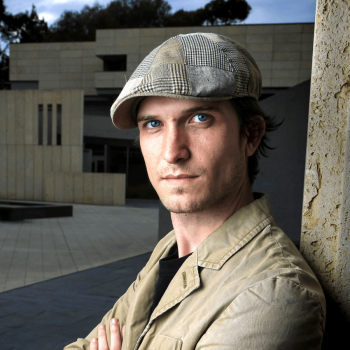
Dr. Tim Mullen is a neuroscientist and entrepreneur with nearly two decades of service at the forefront of neuroscience innovation. His scientific research has contributed to understanding the computational role of brain network dynamics in cognition, brain health, and conscious experience, and in pioneering the use of brain-computer interfaces (BCI) in everyday life. Additionally, he has been a key contributor in developing and disseminating widely utilized open-source projects for neuroscientific discovery, such as EEGLAB, LSL, and SIFT, and in shaping emerging IEEE and ANSI neurotechnology standards.
Dr. Mullen is a founder of several pioneering neurotechnology companies, including Intheon, creator of the first platform for “anytime, anywhere” BCI and neurodata analytics, and Sanmai, developing innovative non-invasive mental health treatments using focused ultrasound. He actively advises organizations across industry, investment, and government sectors. Additionally, he contributes to shaping ethical standards and practices in neurotechnology and is a member of the BrainMind-OECD Neuroethics Advisory Committee.
As a lifelong musician and a new media artist, Tim Mullen engages in creative endeavors that bridge emerging technology and art and blur boundaries between mental and physical worlds. His interactive installations and performances, exhibited over the past two decades in North America and Europe, have explored themes of interpersonal resonance, emotional communication, ecopsychology and nature connectedness, causality and emergence in complex systems, and the concept of “audience as performer.” He is a Board Member with leading classical arts non-profit Mainly Mozart in San Diego and the founding director of its annual festival, “Mozart & the Mind,” which explores the impact of music on our brains, health, and lives.
Dr. Mullen is an alumnus of UC Berkeley and UC San Diego, where he was a Glushko, San Diego, and Swartz Fellow and recipient of the UCSD Chancellor’s Dissertation Medal for outstanding doctoral research.
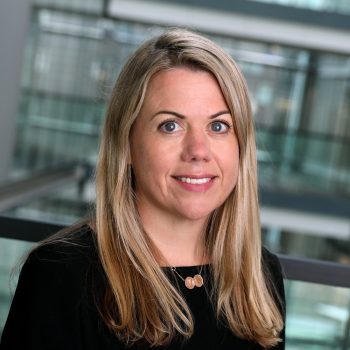
Laura leads the EY Global Corporate Responsibility Commercial and Innovation team, responsible for developing EY Ripples projects and strategic collaborations. She brings over 20 years’ experience working across the private, nonprofit and government sectors in more than 10 countries. As part of her portfolio, she leads the AI for Good initiative—an ambitious effort to unlock the potential of responsible AI in advancing education, safeguarding the environment, and sparking social innovation in communities around the world
Prior to joining EY, Laura spent a decade at Vodafone, where she was responsible for driving the global innovation agenda. She also held several purpose-led roles including developing Vodafone’s global sustainable business strategy, as well as building and implementing new social investment strategies in Tanzania, India and Ireland.
Among other past experiences, Laura has driven a rickshaw across India in the name of women’s empowerment. She has also spent six months living on a deserted island, dedicated to marine conservation, and brings this zeal for positive change to her work every day.
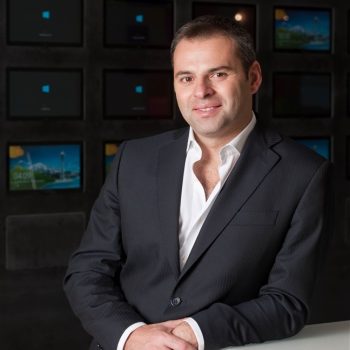
Alexandre Pinho has been serving as the Global Lead for the United Nations and International Development Sector at Microsoft since November 2017. In his current capacity, he leads Microsoft’s Digital Transformation and Impact work within the International Development sector, with a specific emphasis on:
· Empowering UN Organizations through Digital Transformation, enabling them to streamline operations and enhance their global impact by harnessing digital capabilities and AI.
· Spearheading Strategic Philanthropic Partnerships to tackle societal challenges, leveraging the potential of technology and AI to address pressing societal issues in alignment with Microsoft’s corporate societal impact pillars.
· Facilitating AI Equity in Developing countries, by partnering with International Organizations and local governments to leverage the power of AI to create local socio-economic value.
Before taking on his current role, Alexandre had a distinguished career in management consulting, primarily in the fields of healthcare, human services, and international development. At KPMG, he served as the leader of the Management & Risk Consulting practice for Infrastructure, Government, and Healthcare, with a strong focus on public health and international development.
Prior to his time at KPMG, Alexandre enjoyed a successful career at Andersen Consulting and Accenture, culminating in his role as the Industry Lead for Human Services and Healthcare. During this period, he managed large teams and spearheaded transformative initiatives that contributed to business and operational excellence in the government and healthcare sectors. Notably, he was part of the team that established the Accenture Global Non-Profit Sector Practice from 2007 to 2008.
Alexandre’s professional journey commenced in 1995 as a systems engineer at TAP Air Portugal, providing him with a solid foundation in technology and leadership. His subsequent roles in the consulting and technology sectors underscore his unwavering commitment to innovation and creating a positive global impact.
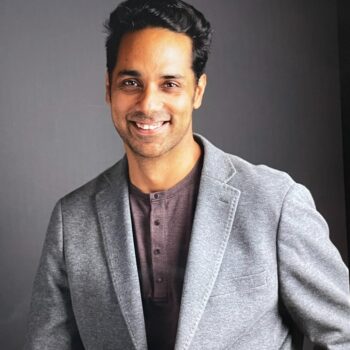
Jivtesh Singh is a Tech for Social Impact AI Global Black Belt (GBB) at Microsoft, based in Geneva. He partners with UN organizations to harness the power of AI, helping amplify their missions and social impact globally. With over two decades in technology, Jivtesh translates complex AI concepts into real-world, impactful solutions.
Outside of work, Jivtesh loves exploring creative and meaningful uses of AI—and he’s always up for an engaging conversation about technology for good.
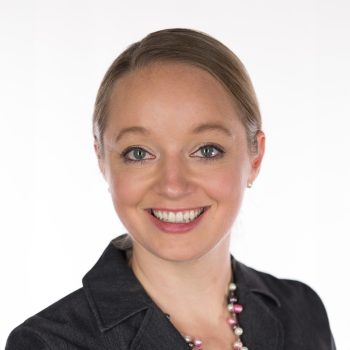
Tirzah VanDamme is the Global AI Strategy Lead for the UN and IGOs at Microsoft, where she focuses on AI in humanitarian use cases, including accessibility and other DEI initiatives. Tirzah’s background includes serving in the U.S. Army as a medical evacuation pilot and operations officer, in addition to experience with tech startups and in marketing leadership roles. Tirzah graduated from West Point, and she holds an MBA from Harvard Business School and an MS in Neuroscience. Based in New York, Tirzah is a community volunteer and advocate for purposeful, positive change in the world.
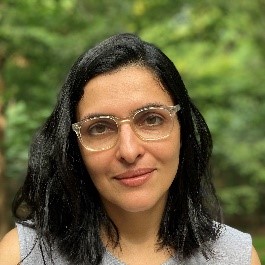
Atiyah Curmally is a Principal Environmental Specialist with the International Finance Corporation’s ESG department. Atiyah leads the ESG Innovation and Data Science work program which most recently conceived, prototyped, and delivered MALENA, an artificial intelligence solution to create ESG analytical capacity at scale using natural language processing. Her responsibilities also include support to senior management on global sustainability issues for capital markets. Atiyah’s previous responsibilities at IFC were overseeing ESG investment support to IFC’s Financial Markets, Funds and Short-term Finance Departments. Her prior work experience includes positions with private sector and non-profit institutions focused on infrastructure project finance and risk management for financial markets. Atiyah has a Masters in Environmental Policy from Brown University. Her complete profile is available on LinkedIn.

Isabella Hampton is a policy researcher at the Future of Life Institute, specializing in US policy and advocacy. Her background includes roles as a product and project manager at PwC and various companies, where she led software engineering and design projects.
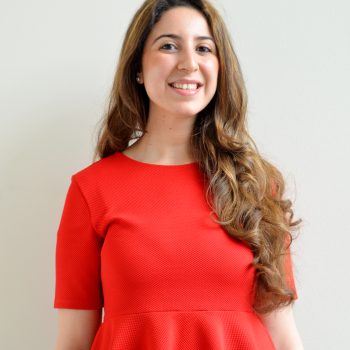
Ms Noura El-Haj is Programme Officer in the Deputy Director General’s Office of the Department of Nuclear Sciences and Applications at the International Atomic Energy Agency (IAEA). She is responsible for contributing to the planning, formulation, coordination, and appraisal of projects that focus on the myriad of uses and applications of nuclear science and technologies to address challenges in human health, food and agriculture, water resource management, environmental monitoring, and industrial applications.
Noura joined the IAEA in 2011 after having completed her studies in molecular medicine, specializing in cancer research. She was awarded a research scholarship from the Centre for Immunity, Infection and Evolution at the University of Edinburgh where she studied the role and function of T follicular helper cells for long-term immunization. She went on to complete an advanced degree in Ecology and Sustainable Development Studies at the University of Vienna where she focused on identifying efficient and sustainable solutions to support capacity building in countries for better health services. Prior to joining the IAEA, she was working as a Researcher at the Haematology and Oncology Divisions of the Vienna General Hospital, one of the largest hospitals in Europe.
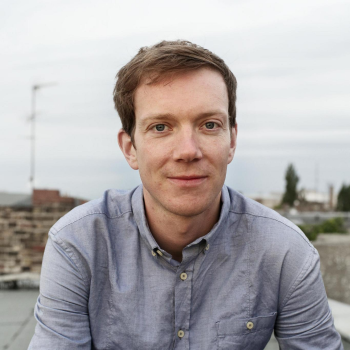
Christian Lessig is a senior scientist at the European Centre for Medium-Range Weather Forecasts working on machine learning for weather and climate. His current research focus is large-scale machine learning from (raw) observations for direct forecasting and long-term projections. Christian obtained his Ph.D. from the University of Toronto and held postdoctoral positions at the California Institute of Technology and the Technical University Berlin. He holds an adjunct professorship in Computer Science at the Otto-von-Guericke-Univeristät Magdeburg.
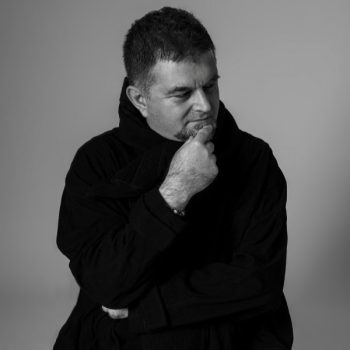
Baris Gencel, a relentlessly curious Artist and Creative Director, brings over 23 years of innovation and creativity to the heart of the digital revolution. Currently based in Shanghai working for Lanvin Group as an Director of Digital Transformation and Innovation and He been served as creative director in various global agencies. He is from Cyprus, he is an esteemed speaker, writer, and panelist, delivering insightful talks on digital art, Artificial intelligence, creativity, visual communication, experience marketing, generative AI, and creativity. Baris keeps pushing the boundaries of visual experiences with new technologies. His innate ability to manipulate technology innovatively combined with his consistent curiosity and his obsession for nature have resulted in the development and execution of unusual works. He is a rare hybrid creative talent who keeps reinventing himself, serving nature
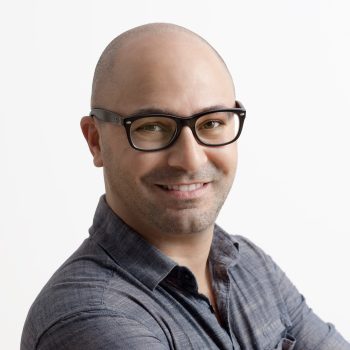
Dr. Walid Mathlouthi received a PhD in Optics, Photonics and Lasers. He spent his early career at Optical Research Laboratories in France, Italy, Canada and the US with Intel Corp where he worked, among other things, on the first Raman silicon laser.
In 2010, he joined AT&T Labs in California as a Senior Member of Technical Staff. He worked mainly on data mining for complex Analysis/problem solving, Laboratory and field experimentation, 3G, 4G and LTE service quality and optimization, RF optimizations, Self-organizing Networks, Large scale UE data collection and analysis for actionable analytics and IP migrations such as VOLTE services.
In 2014, he joined Google Headquarters in Mountain View managing Global Network Architecture. He worked on building high quality networks to provide broadband connectivity in emergent markets and connect the under-connected. He also led Google Global Data Centre design to support cloud services deployments (compute, storage, ML Pods and AI infrastructure).
In 2021, Dr. Walid Mathlouthi began to work for ITU as the head the Future Networks and Spectrum Management division leading various projects to leverage technologies such as satellite and AI to support economic growth in developing countries and help bridge the digital gap.
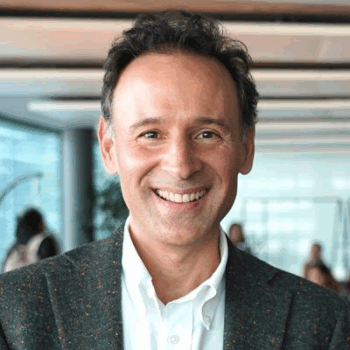
Dr. Jérôme Duberry is Co-Director, Executive Education, Executive Director of the Tech Hub, and Senior Researcher at the Albert Hirschman Center on Democracy at the Geneva Graduate Institute. His research explores the societal and geopolitical implications of artificial intelligence (AI). Since 2022, Jérôme has been co-leading a scientific communication project on AI literacy for youth, funded by the Swiss National Science Foundation (SNSF). Jérôme teaches courses on digital technologies and futures in the Interdisciplinary Master program (MINT), including “Technologies reshaping the conduct and future of international relations”, “Digital Diplomacy and Power Relations in Cyberspace”, and “Futures and strategic foresight: methods and practice”. As part of his interest in innovative forms of participation and collective intelligence, he has been trained in foresight and design thinking facilitation.
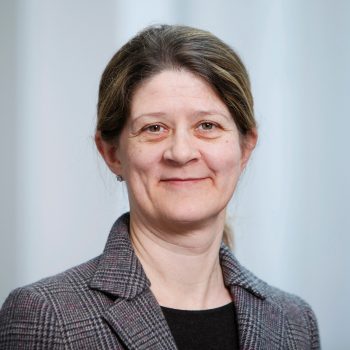
Prof. Gudela Grote, a distinguished authority in work and organizational psychology, has been Full Professor at the Department of Management, Technology, and Economics at the prestigious ETH Zürich since 2000. With a focus on integrating psychological principles into job, organizational and technology design, Prof. Grote’s research addresses evolving demands of technology, economy, and society. Her impactful contributions are showcased in renowned journals and through collaborative initiatives with industry leaders. As Co-chair of the TASC Platform, she spearheads efforts in accountable AI development and use, advocating for transparency, fairness, and interdisciplinary collaboration. With a doctorate from the Georgia Institute of Technology and a large international research network (e.g., King’s College London, MIT Sloan, Harvard, Stanford, Curtin University Perth) Prof. Grote is a trailblazer in her field.
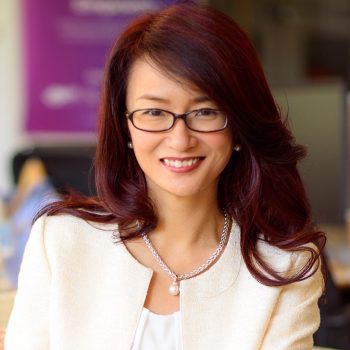
A Harvard Alumna and Principal of Verity Consulting, Sandy is an award-winning International Business Executive of the Year, Asia’s Top Sustainability Women of the Year, and Singapore Management Consultant of the Year.
A strong advocate of international trade and sustainability as pathways to peace and security, Sandy has chaired international forums that promote digital and energy transition at the inaugural Web3 for Sustainability Conference in Western Australia, the Intercity Hydrogen delegation, and the AI for Business Conference in Singapore. She speaks frequently on Digital Inclusion, the Impact of AI on International Trade, Leadership and Governance for AI Sandy currently serves on public-listed boards and is the Chair of the ASEAN Business Alliance. Earning a Ph.D. in Digital Commerce (2003) and appointed Adjunct Professor in 2022, Sandy has published peer-reviewed journals on international business, innovation adoption and sustainability since 2005.
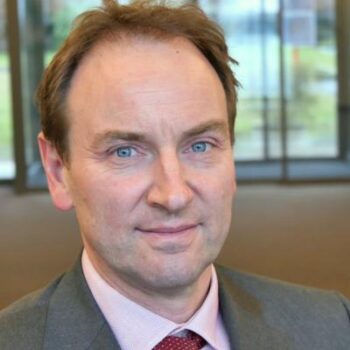
Cedric Dupont is Professor of International Relations/Political Science at the Graduate institute of International Studies, and Co-chair of the TASC Platform. He is a former Editor of the Swiss Political Science Review and former Associate Editor for Europe of the journal Business and Politics. He has been a visiting Professor at the University of California, Berkeley, Seoul National University and the University of Melbourne and lectures regularly at the University of Bern. He holds a PhD from the University of Geneva. Cédric created the pillar of Executive Education at the Graduate Institute in 2008. He brings extensive and practical experience as facilitator in design thinking, foresight and systems thinking.

As Google’s SVP of Research, Technology & Society, James oversees Google Research and leads efforts across Google and Alphabet to responsibly shape and advance our most ambitious innovations to benefit people and society.
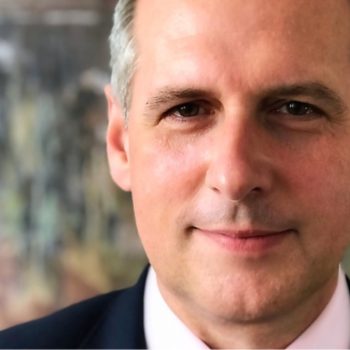
As Director Public Policy, Wolfgang Percy Ott has been leading Cisco’s government relations in Germany since 2012.
From 2001, Mr. Ott worked as an online campaigner and, after the 2002 general elections, as an adviser and analyst in the political department of the CDU party headquarters. He managed party committees and commissions of the CDU party executive on education, cities and various other issues.
Before joining Cisco, Mr. Ott worked at the German Bundestag from 2009 to 2012. As senior adviser on digital policy to the CDU/CSU parliamentary group, he co-ordinated the group’s members and external experts for the 1st Enquiry Commission on “Internet and Digital Society” of the 17th German Bundestag.
From 2015 to 2022 Mr. Ott chaired the working groups “Smart Cities & Smart Regions” and “Smart Education Networks” of the German government’s Digital Summit.
Mr. Ott holds a MA in history from Tübingen University.
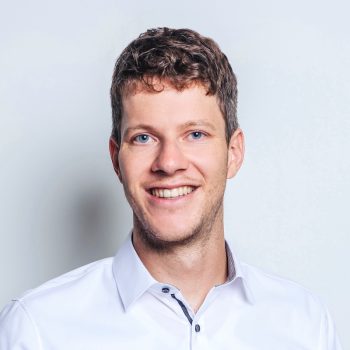
Björn Deiseroth is final year PhD student in a joint program of Aleph Alpha and the Technical University of Darmstadt. His main research focus is towards more robust, efficient and explainable language models that are compliant with European industry standards. He comes with a broad experience, as senior consultant in industry as well as a researcher on Spiking Neural Networks for the European Human Brain Project. He envisions a closer collaboration between industry and universities in Europe.
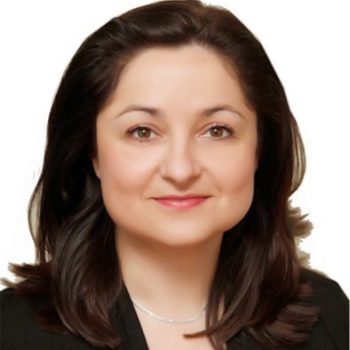
Elena Xoplaki is Senior Scientist, currently Acting Head of the Climatology, Climate Dynamics and Climate Change Research Group at Justus Liebig University Giessen in Germany. She is an expert on climate variability and change in the past, present and future with spatial focus on the greater Mediterranean region. She conducts multi- and interdisciplinary research and promotes collaboration between natural sciences, humanities, and social sciences on an international level. She is working with climate observational data, climate models and climate proxies. Her two new projects focus on extreme events and impacts on the food sector. She is a Fellow of the European Academy of Sciences
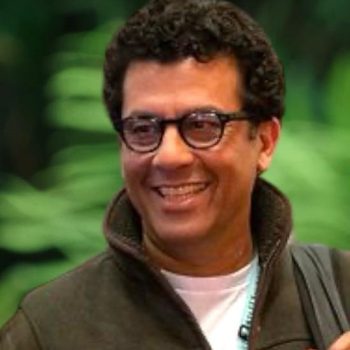
Ahmad is a serial entrepreneur with 25 years in finance and deep tech, as a founder, investor, operator and mentor. Most recently, founded (in 2012), scaled and exited (in 2022) a multi-billion AUM Quant Hedge Fund. LP and Exec-Chairman at Deep Science Ventures, commissioner on the Energy Transition Commission, founders circle at IFOW, a think-tank. He is also a mentor at CDL and MIT Media Labs. Ahmad is also an early stage Investor in deep tech, AI, EdTech and climate companies with 60+ investments.
Ahmad’s various companies have spun-out 40 companies in the climate, restorative agriculture, computation, life science and education sectors – from rowing back the senescence of the immune system, to resolve more than 80 inflammatory linked diseases simultaneously, to cure cystic fibrosis, to cure pediatric oncology, to regenerate soil, remove carbon from the atmosphere at a gigaton scale, produce trillions of joules of renewable fuels. Now he is trying to solve the First Of A Kind (FOAK) problem of ‘deploying and commercializing’ these novel technologies and is creating several products, including a ‘developer-co-as-a-service’ with the Rocky Mountain Institute and a multi-stage, multi-asset FOAK Development Capital Fund
He is also trying to crack hard problems in scaling the process of invention itself and DSV has launched a new global decentralized accredited University, The Venture Science Doctorate, reinventing the PhD program for interdisciplinary combinatorial innovators, that brings venture creation to the heart of scientific research.
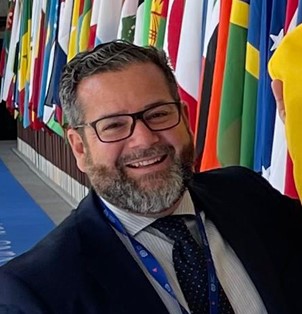
Juan Iván is a dynamic leader in digital transformation with a bachelor’s from ICADE Business School, an MBA from IESE University, and advanced studies at MIT and IMD. With over 20 years of senior experience across global cities like Madrid, Paris, Hanoi, Barcelona, and Geneva, he excels in pioneering innovative solutions and modernizing corporate processes.
Currently a Digitalisation Specialist at the Skills Branch of the ILO, Juan is passionate about AI and its transformative impact on society, skills, and the future of work. A fervent advocate for education, Juan believes it is the cornerstone of freedom and prosperity. He actively supports NGOs focused on children, immigration, and education. Fluent in Spanish, English, and French, Juan brings a global perspective to his work and advocacy.

Since January 2016, Peggy Hicks has served as director of the Thematic Engagement, Special Procedures and Right to Development Division of the UN Human Rights Office (OHCHR). She provides strategic direction to the UN Human Rights Office’s work on a broad range of pressing human rights issues, including human rights in the digital age. From 2005 to 2015, she was global advocacy director at Human Rights Watch, where she was responsible for managing Human Rights Watch’s advocacy team and providing direction to its advocacy worldwide. Ms. Hicks previously served as the director of the Office of Returns and Communities in the UN mission in Kosovo and as Deputy High Representative for Human Rights in Bosnia and Herzegovina. She has also worked as the Director of Programs for the International Human Rights Law Group, and as clinical professor of human rights and refugee law at the University of Minnesota Law School. Ms. Hicks is a graduate of Columbia Law School and the University of Michigan.

Maurice Turner is a recognized public interest technologist and cybersecurity expert on the Global Public Policy team at TikTok. As the Technical Policy Lead, Turner plays a key role as a liaison collaborating between public policy and cross-functional teams to ensure understanding of cutting-edge technologies by non-technical audiences. He also advises the public policy team on a wide range of technology, strategy, and policy issues. He most recently served as a Public Policy Manager on Meta’s Global Human Rights team. Turner has also held policy positions such as Cybersecurity Fellow at the Alliance for Securing Democracy (ASD) at the German Marshall Fund of the United States (GMF), Senior Advisor to the Executive Director at the United States Election Assistance Commission (EAC), and Deputy Director of the Internet Architecture project at the Center for Democracy & Technology (CDT). He earned an MA in Public Administration from the University of Southern California, an BA in Political Science from California State University Fullerton, and a Certificate in Cybersecurity Strategy from Georgetown University.
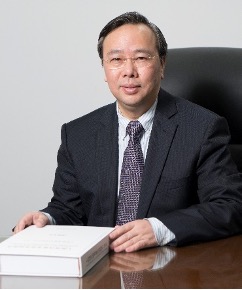
Anmin Li, Ph.D, Professorate Senior Engineer, currently serves as the Vice President of China Telecom Research Institute. He previously held the positions of President of the China Telecom Shanghai Research Institute, General Manager of the China Telecom Innovation Business Division, and Chairman of Besttone Holdings Co., Ltd., a listed subsidiary of China Telecom. He has overseen numerous significant technical, product, and business projects, and achieved significant results. With extensive experience in technology R&D, product development, and corporate management, he has published over thirty papers in core journals and authored five books.
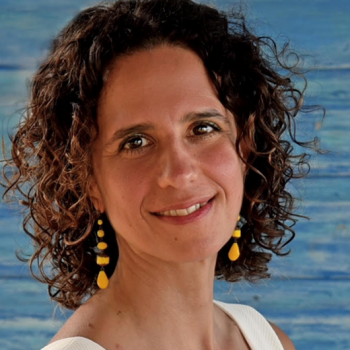
Dr. Inbal Becker-Reshef is the founding Director of NASAHarvest, NASA’s Global program on food security and agriculture and is a Research Professor in the Department of Geographical Sciences at the University of Maryland and at the University of Strasbourg’s Engineering science, computer science and imaging laboratory. She leads multi-disciplinary research and initiatives aimed at advancing agricultural monitoring, sustainability and food security on a global scale, through co-development with partners across the public and private sectors.She worked closely with national and international partners to initiate the GEOGLAM (GEO Global Agricultural Monitoring) Program, where she leads the Crop Monitor initiative that provides insights into global crop conditions and risks on a monthly basis. She is currently spearheading the development of the Rapid Agricultural Assessments for Policy Support (RAAPS), a facility designed to provide satellite driven agricultural assessments amid the challenges of increasing extreme weather events, conflicts, and decreasing market transparency. Her contributions have been recognized with several awards, including the US Asia-Pacific Economic Cooperation (APEC) Science Prize for Innovation, Research, and Education (ASPIRE), the NASA Exceptional Public Service Medal, and the Arrell Food Prize.

Jieun Park is the CEO of PULSE9, the techtainment company, renowned for creating IITERNITI, the world’s first K-POP AI idol girl group. With a solid background in both technology and entertainment, Jieun has propelled PULSE9 to the forefront of the AI-driven entertainment sector.
Jieun’s career includes CJ E&M, a leading media content company, and NAVER Happybean, an IT business company. These experiences have equipped her with a unique blend of media and technology expertise.
She holds a Big Data MBA from the Seoul School of Integrated Sciences & Technologies (aSSIST), where she developed a strong foundation in merging technology with business development.
With a focus on Generative AI and the future of AI entertainers, Jieun is committed to blending AI technology with K-POP creativity. Under her leadership, PULSE9 aims to innovate and redefine the entertainment landscape, making significant strides with IITERNITI.
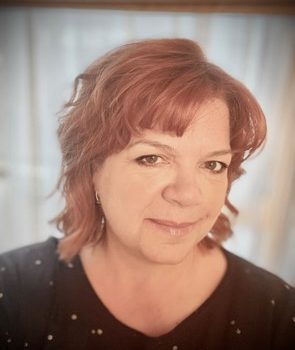
Kirsty Grant is the Marketing Director for Public Safety solutions at Everbridge, responsible for government and telecoms programs to increase societal resilience, aligned to the UN Early Warning for All action plan.
She has spoken on the topic of public safety at several resilience conferences in Europe and Asia.
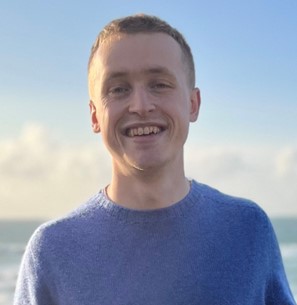
Robin Brinkworth is Everbridge’s Senior Product Manager for artificial intelligence and machine learning. He works on AI/ML feature enhancements for safety-critical software for critical event management & emergency response. He has also worked on risk and disaster analysis, covering major meteorological and geophysical crises in both developed and developing contexts. Before Everbridge, he was a youth worker, specialising in media literacy in deprived communities.
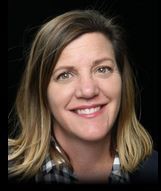
Amy Michaels presently holds the position of Principal Product Manager at AI for Good Labs, Microsoft, where her focus is using the potential of artificial intelligence for positive social impact, specifically focused on global disaster response and resilience. Amy’s expertise in technology spans machine learning, propensity modeling, business development, and digital customer acquisition and engagement. Beyond Microsoft she has held leadership roles in Engineering, Product Management, and Marketing in companies such as Amazon, T-Mobile, and Meredith Corporation. Amy holds an M.A. and Ph.D. from the University of Washington, and has served on the board of Seattle Girls School.
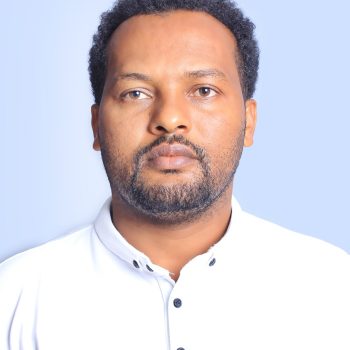
Misganaw Teshager Abeje is an Assistant Professor of Disaster Risk Management at Bahir Dar University and currently also serves as the Research and Training consultant to the Ethiopian Disaster Risk Management Commission (EDRMC). He also teaches and mentors postgraduate students at the University of Juba, South Sudan, and the University of Hargeisa (UOH), Somaliland.
With a BSc, MSc, and PhD in Disaster Risk Management, he is one of the few DRM professionals in Ethiopia, having studied in Ethiopia, USA and Japan. He brings over 13 years of experience in Disaster Risk Management, early warning systems, climate change adaptation, food and livelihood security, emergency management, and humanitarian action. He has served as a national/international consultant for various organizations, including UNDRR, ADPC, the World Bank Group, ERCS, FAO, USAID, Save the Children, and Action Against Hunger.
Misganaw co-authored the Ethiopian Multi-Hazard, Impact-Based, Early Warning, and Early Action Roadmap (MH-IB-EW-EAS) and its implementation plan, was a core team member for the newly revised Ethiopian Disaster Risk Management Policy and Co-developed the Ethiopian Disaster Risk-Informed Development Planning Manual (DRIP). In addition to local training, he has extensive experience in DRR/CCA, EWS, and food security training and education in South Africa, Kenya, and Japan.
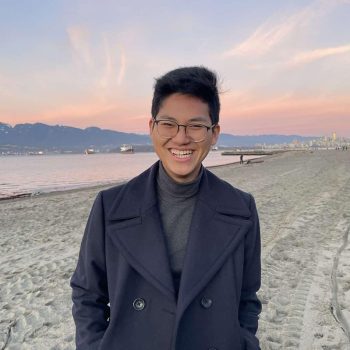
Miklos Sunario is the CEO and co-founder of EduBeyond, an award-winning AI startup operating within the field of education and talent development. EduBeyond’s goal is to maximize the quality and relevance of education; they leverage MRAFE, EduBeyond’s proprietary model of AI, to convert all sorts of data into relevant learning opportunities.
Miklos is further the Director of Talent Development at KORIKA, Indonesia’s National AI Society. Miklos is also the awardee of the Moonshot Platform Learning award, the Samsung Solve for Tomorrow Education Award and more.
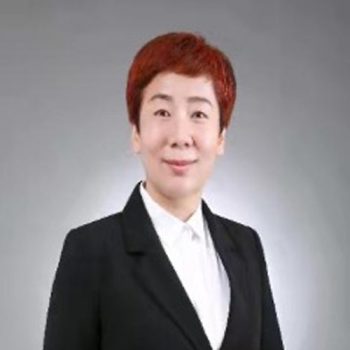
Xinhua Chen is founder of Hangzhou Ruidi Biotech Co.Ltd. an attending surgeon of The First Affiliated Hospital of Zhejiang University , associate professor of Zhejiang University School of Medicine.
She received M.D. from Xinjiang Medical University in 1999, Ph.D.from at Old Dominion University (advised Prof. James Swanson and Karl Shoenbach 2004-2008), completed PostD training at Frank Reidy Research Center for Bioelectrics ( advised by Prof. Stephen Beebe 2008-2010). She initiated a medical AI company-Hangzhou Ruidi Biotech in 2014. serve on the consulting board in China to formulate industry standards of AI driven electric pulses for medical purposes. Published the first textbook on medical AI in China and the first clinical monograph of medical artificial intelligence application cases in China

In her 20 years of experience driving system change, she has worked globally with a range of leading international institutions include as Head of Climate Change and Deputy Director of the WEF Centre for Nature and Climate; Senior Analyst with the International Energy Agency; and Deputy Director of Energy and Climate at the World Business Council for Sustainable Development. She also spent two years working in Bhutan and across the region as an adviser on environment and clean energy.
She holds a Master’s in Environmental Planning, Policy and Regulation from the London School of Economics and a BA in Environmental Economics from the University of Toronto. In 2005, she was nominated by the International Institute for Sustainable Development as a Young Global Leader for Sustainable Development.
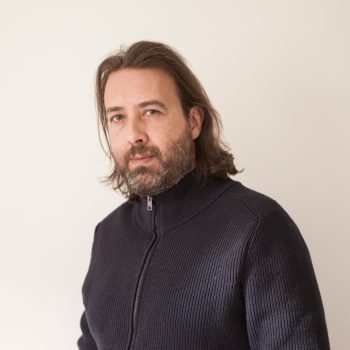
Dr. Ivan Dotu is the Applied Science Lead at Giga, a UNICEF-ITU initiative connecting all schools to internet. He is a widely recognized researcher in the fields of both AI and Computational Biology. Dr Dotu finished his PhD in 2006 and since then he has held different positions at Brown University, Boston College and The Jackson Laboratories among others. Dr Dotu has co-authored close to 50 scientific papers in both international journals and conferences and has served in different conference committees and review boards. Dr Dotu has also held industry positions and is co-founder of 2 biotech start-ups.
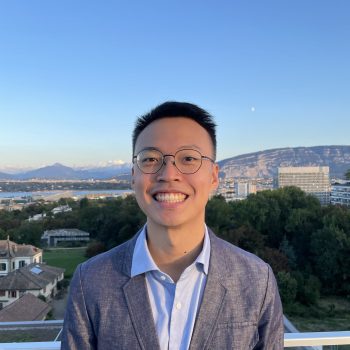
Yung-Hsuan is a researcher in AI technologies and governance. He assists Diplo’s operation in the Geneva office, including event coordination, community-building for AI practitioners, and individual research tasks. He also works with Diplo’s AI lab in research and promotions. He holds a Bachelor’s degree in Social Sciences (politics and international affairs) and a Master’s degree in International Affairs.
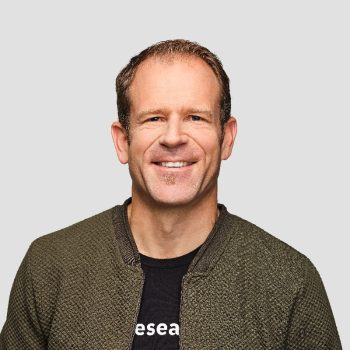
Thomas Brunschwiler is a principal researcher and research manager at IBM Research in Zurich leading the ‘AI for Climate Impact’ activity. His team pushes the frontiers of ‘Earth Science Foundation Models’ to accelerate the discovery of climate impacts and transition risks for society and industry. Further, Thomas is responsible for scientific Foundation Model Applications, the coordination of governmental projects and community building activities. He earned a Certificate of Advanced Studies in Computer Science at ETH Zurich in 2019 and his PhD in Electrical Engineering at the TU Berlin in 2012. Further, Thomas is an IEEE Senior Member, in the program committee of the AAAI Fall Symposium, and an expert at InnoSuisse.
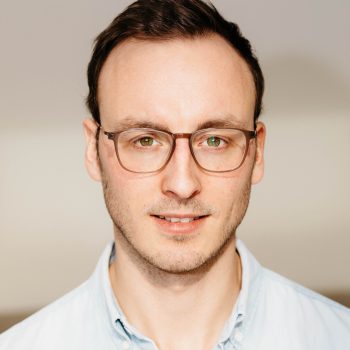
Felix Zeltner is an award-winning German journalist and entrepreneur, based in New York City. He is the founder of Remote Daily, a community-building company. Prior, he built Work Awesome, a global conference series on the future of work. As a journalist, he has reported from 20+ countries for leading German outlets such as Der Spiegel, ARD and Arte. His latest book, a guide to navigate tech hypes, will be published in October.
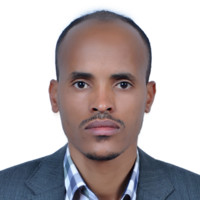
Prior to this position, he was the commissioner of Addis Ababa city administration (The capital of Ethiopia) DRM commission and Principal advisor to the commissioner of Ethiopian Disaster Risk management Commission.
He is BA graduate from Addis Ababa University in the field of Management, MSc graduate from Bahirdar University in the field of Disaster Risk Management & Sustainable Development in Ethiopia.
He has 16 years of experience in different positions and closely working with national ministries, regional governments, UN-Agencies and NGOs.
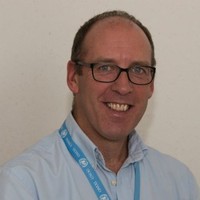
He is co-chair of the Committee of the Chief Statisticians of the UN System (CCS-UN), chairs the Advisory Board of the Statistical Journal of the IAOS, and is a member of the statistical advisory panel to the UNDP Human Development Index. He is an elected member of the International Statistics Institute.
Before joining WHO, Steve was the Head of Statistics and Information at UNCTAD. Prior to joining the UN, he was the Deputy Director-General at the Central Statistics Office (CSO) in Ireland and Programme Director of the joint CSO – Institute of Public Administration ‘Professional Diploma in Official Statistics & Policy Evaluation’.
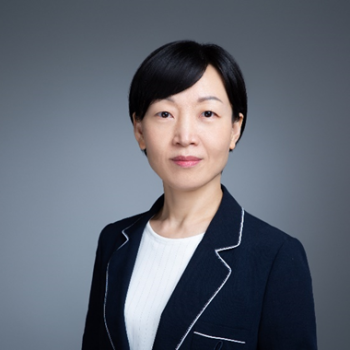
Dr.Meng Shusen was appointed Chairman&CEO of China Unicom Global Limited in 2015, responsible for the international business operations, strategic cooperation, ecological construction, and corporate governance.
Dr. Meng has over 25 years of experience across technology research and development, sales and marketing, international operations, and corporate governance in telecommunication industry. She plays important role in the contribution of China Unicom’s overseas business development.
At present, China Unicom Global has 34 subsidiaries. With its extensive global network and business resources, China Unicom Global provides global operators and enterprises with integrated cloud-network, green and secure digital information solutions.
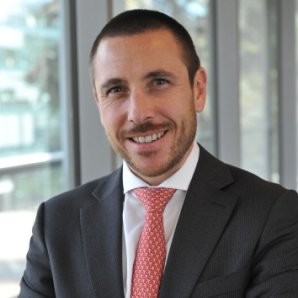
Pierre-Antoine Balu is the leader of a cross industry consulting practice specialised in Organization Design, Culture and Behaviour change, Leadership, Talent, Human Resources, Change Management and Lean Management. He has a background in management consulting, and spent 16 years at PwC before joining Strategy&. He was also a trade advisor for the French government and has 25+ years of experience working in major business transformation projects.
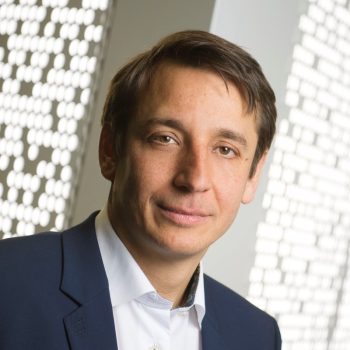
James Morris joined PwC as the Global Director of Corporate Affairs and Advocacy in 2020, following a three year stint at Edelman as Public Affairs Managing Director. Prior to joining Edelman, Morris was a partner and director at the London office of GQR, a research and campaign strategy firm based in Washington DC.
He has gained 20 years’ experience in policy, strategic communications and opinion research including a spell as a policy advisor in the UK Prime Minister’s strategy unit during Tony Blair’s premiership, as well as working for the Secretary of State for Climate Change.
Morris has a degree in Philosophy from the University of Cambridge and also holds the position of Board Trustee at the Royal Society for Public Health.
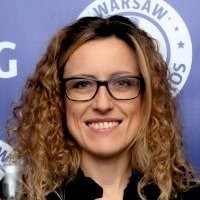
Malina Jankowska is the Digital Public Sector Director at PwC CEE, a role she’s had for the last three years. Prior to this, Jankowska served as Business Development Director for the Digital Public Sector. In these roles, she gained extensive experience in managing large-scale international digital transformation tasks and framework agreements for public administration clients and international development organisations, in particular the European Commission and UN agencies (UNDP, WHO).
Between 2003 and 2011, Jankowska held the position of Marketing & Business Development Senior Manager, and then spent eight years at Microsoft in management levels positions in its Marketing division before rejoining PwC in 2018.
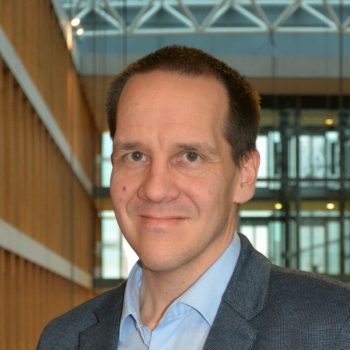
Andreas Braun has served as the Director Artificial Intelligence & Data Science at PwC Luxembourg for the last three years. Before taking on this position, Braun spent three years in high-level roles that covered Artificial Intelligence.
Prior to joining PwC, he spent two years as the Principal Investigator at CRISP (Center for Research in Security and Privacy) and eight years at Fraunhofer where he worked on research projects related to smart home and biometrics.
Braun, who says he is “passionate about how we can create technologies that have the human factor at the forefront” has a degree in computational engineering and a Ph.D in computer science , both from the Darmstadt University of Technology.
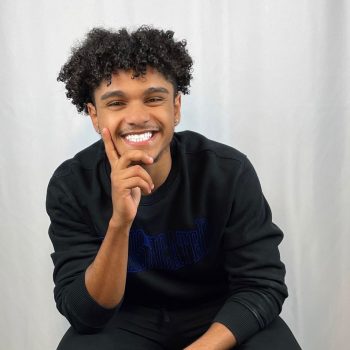
Ali Almeflehi is a rising young leader at Microsoft, where his work centers on making Generative AI accessible to consumers across work and life. Ali’s career launched with the founding of Inside Gen-Z, a market research firm focused on decoding the consumer behaviors of young people. This early success led him to Edelman, where he joined the firm at 19. He serves as an advisor to nonprofits across education, social services, and youth development, and is deeply interested in furthering initiatives that demonstrate how AI can enhance our daily lives and foster broader societal progress.
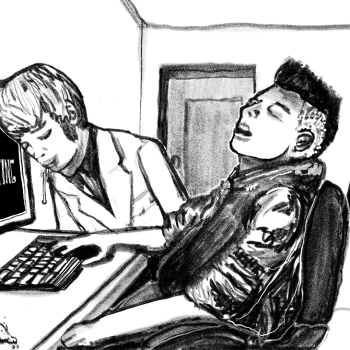
CJ and Zack are the music hacker duo DADABOTS. They met at Berklee College of Music & formed DADABOTS at Music Hack Day MIT in 2012. From playing in metal, punk, and noise bands, to studying composition & programming, they realized machine learning was an even more extreme way to make sound & dove completely into eliminating themselves from music. In 2017 they published a paper at NeurIPS “Generating Black Metal and Math Rock” about SampleRNN (now considered vintage AI). Advancing from songs to endless streams, they run possibly the longest continuous 24/7 YouTube livestream, Relentless Doppelganger, generating techdeath for 5+ years. They co-founded Harmonai, the music research team within StabilityAI, and created Stable Audio, which was on TIME’s best inventions of 2023. Recently they published a documentary PROMPT JOCKEYS about live DJing music that doesn’t exist yet.

Chandler Smith is a Machine Learning and Alignment Theory (MATS) Scholar whose research focuses on the potential of multi-agent systems for both risk and oversight. His work explores cooperative AI, multi-agent security, and AI control. In addition to his academic research, Chandler is a Technical Architect Fellow at IQT, where he supports the U.S. Intelligence and National Security Communities. He holds a Master’s in Computer Science from Northeastern University.
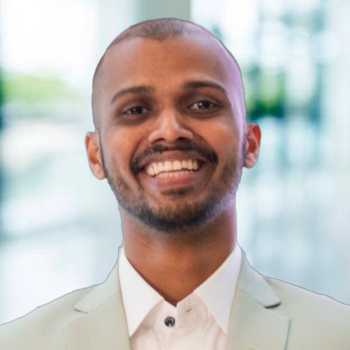
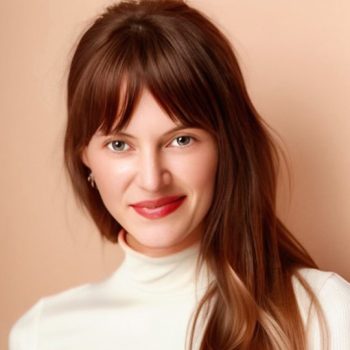
Dr. Tracy Brandmeyer, is an American Neuroscientist, who serves as the Chief Scientific Officer at BrainMind and the Chief Technology Officer at Cognigenics. At BrainMind, she directs scientific research and operations, focusing on pioneering methods to enhance human flourishing. Her work at Cognigenics is centered on the development of innovative RNA-based therapeutics for neurocognitive disorders.
Dr. Brandmeyer’s research work has explored areas including attention and emotion regulation, meditation, consciousness, brain-computer interfaces, and neurophenomenology. She completed her postdoctoral training in Integrative Neuroscience at UCSF, obtained her PhD in Neuroscience from the CNRS in France, and holds a MSc in Neuropsychology from the Donders Institute in the Netherlands. Her pioneering field research in the Himalayas significantly advanced the neurophysiological understanding of meditative states and traits, leading to the first neurotechnological applications for meditation and mindfulness training.
Beyond her primary roles, Dr. Brandmeyer is a Venture Partner at Lionheart Ventures, and advises a number of emerging companies in the neuro and biotechnology sectors. She also contributes as an adjunct Professor at the Institute for Neural Computation at the University of California, San Diego, and regularly engages as a speaker at leading forums on scientific research and innovation.
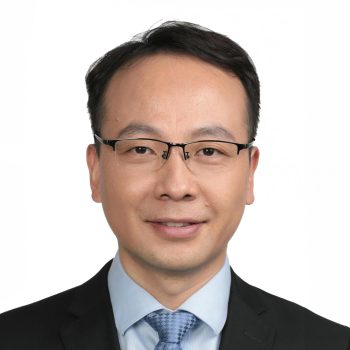
Mr. Kai WEI, Director of Artificial Intelligence Institute of China Academy of Information and Communications Technology (CAICT). He is serving as the leader of the domestic corresponding group for ITU-T Study Group 21, the secretary of the Standardization Technical Committee for Artificial Intelligence of the Ministry of Industry and Information Technology, and the leader of the Overall Group of the Artificial Intelligence Industry Alliance(AIIA). His research focuses on artificial intelligence technology, with more than 20 papers published, leading the completion of over 40 domestic and international standards.
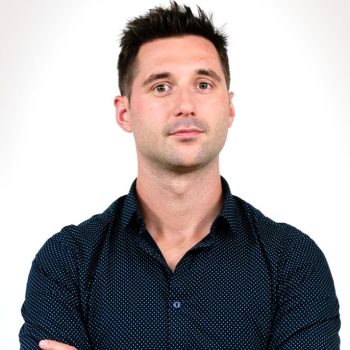
Alex is VP of partnerships at Devex, the world’s leading independent news organization covering global development, serving more than 1 million professionals, everywhere in the world. We give international organizations, members of Parliament, Congress, development agencies, philanthropists, researchers, multilateral banks, and NGOs the news they need to do their job. Alex and his team produce content series and events advancing global conversations with top influencers and innovators in the SDG space. At Devex since 2011, he has successfully designed and led strategic partnerships that contributed to position key issues on the global development agenda, on topics such as gender-inclusive digital futures, the promise of digital health, universal health coverage, funding gaps for maternal health, disability inclusion, the future of food systems, financial inclusion and financing for development, among other issues.

Lea Gimpel is the lead for country policy and AI at the Digital Public Goods Alliance (DPGA). Previously, Lea co-led the GIZ initiative “FAIR Forward”, which aims to democratize AI development worldwide. Lea holds an Executive Master’s in Public Administration, specializing in big data and digital governance from the Hertie School, where she is also a lecturer. She is a board member of the Open Knowledge Foundation Germany and supports the initiative on AI technologies for Civil Climate Action of the German Federal Ministry for the Environment, Nature Conservation, Nuclear Safety, and Consumer Protection in an advisory role. She also holds an advisory role with the German UNESCO Commission, focusing on digital governance topics.
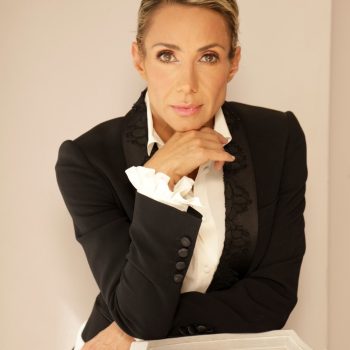
Alejandra Lagunes is a visionary leader in technology, digital communication, public policy, regulation, and well-being. She has held influential roles at companies such as Yahoo, Microsoft, Google, and Televisa.
In the realm of digital communication, she was a key figure in shaping political strategy during two presidential campaigns in 2012 and 2018.
In the public sector, she served as the Coordinator of Mexico’s National Digital Strategy (2012-2018) and as a Senator of Mexico (2018-2024), driving public policies and regulation on artificial intelligence, digital inclusion, environment and climate change, mental health, and human rights.
Currently, she is the Leader of the National Artificial Intelligence Alliance (ANIA), a multi stakeholder platform working on public policy, regulation and governance proposals as well as education, capacity building and skill development; documentation of use cases, and awareness for the ethical development and use of technology.
Her work connects technology with humanity, seeking to ensure that innovation contributes to both personal well-being and social progress.
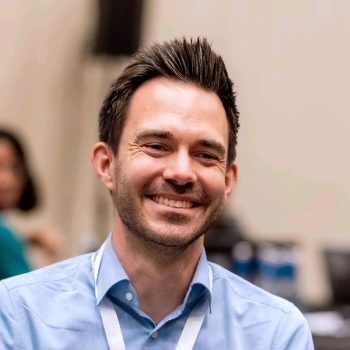
Daniel Brumund is an AI advisor for GIZ’s initiative “FAIR Forward – Artificial Intelligence for All” which promotes a more inclusive, open and sustainable approach to AI at an international level, together with partners from government, civil society and academia in Africa and Asia. He is working with Mozilla Common Voice and African partners to create open AI training data for under-resourced languages; as well as supporting Kenyan partners with creating open-source chatbots to simplify access to government services; and working on licensing and business models for open-source AI systems.
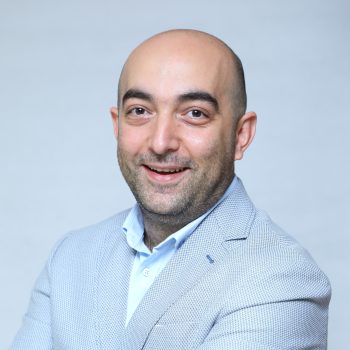
Mustafa Karakoc is an experienced Access Network Director with his 15+ years of demonstrated history of working in the wireless telecommunications industry. He completed his PhD at the year of 2007, after joining Turkcell as a Radio Network Planning engineer, he took responsibility in different departments of the Access Network within Turkcell, and at the end of 2017, he had managerial experience in teams where he previously took professional roles. Mustafa Karakoc is an advisory board member and deputy chair of Huawei User Group since 2018 and 2021, respectively. He is also 5G Technology and Product Program Manager at GTI since 2021.
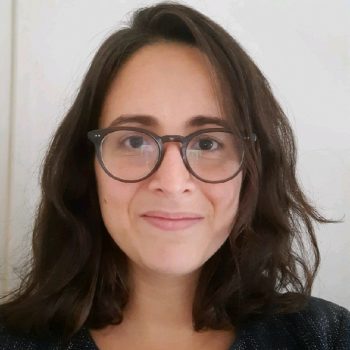
Yana Brugier works currently as Coordinator for External Relations and Partnerships at the Universal Postal Union. Before joining the UPU, she served in various capacities within French diplomacy for over a decade. Her early career included work within the African Directorate, followed by a posting in South Africa. From 2020 to 2023, she was posted in Geneva as negotiating counsellor responsible for UN organizations dealing with digital and economic issues. Prior to these roles, she spent five years as the Head of Multilateral Cooperation at the Cooperation Agency of the Ministry of Labour in France. Yana holds a master’s degree in Philosophy from the University Paris-Sorbonne and a master’s degree in International Affairs, from the Institute of Political Science of Paris. She is fluent in Portuguese, French, English, and Spanish.
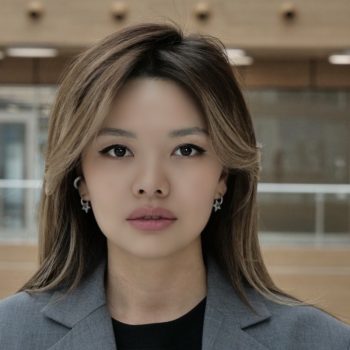
Bayan Khassenova is a distinguished professional, holding a key position at the National Information Technologies JSC (NITEC) – national operator of electronic government of the Republic of Kazakhstan. At NITEC, she is responsible for managing the export of e-government components, significantly enhancing Kazakhstan’s digital presence on the global stage. Her role involves overseeing the development, implementation, and international dissemination of advanced e-government solutions, contributing to the country’s reputation as a leader in digital transformation.
As the national e-government operator, NITEC is central to the creation and maintenance of digital state services, ensuring they are efficient, accessible, and user-friendly for all citizens. These services encompass a wide range of functionalities, from online public service delivery to secure digital identity systems, streamlining interactions between the government and its citizens.
In addition to her work with e-government services, Bayan is also instrumental in NITEC’s role as the national AI platform operator. NITEC is building national AI platform that will bring state bodies and businesses with AI developers in unified platform in order to deploy artificial intelligence technologies across various sectors, fostering innovation and enhancing the efficiency of public and private sector operations. The AI platform supports a myriad of applications, from targeted state bodies’ needs to advanced data analytics, positioning Kazakhstan at the forefront of AI advancements in the region.
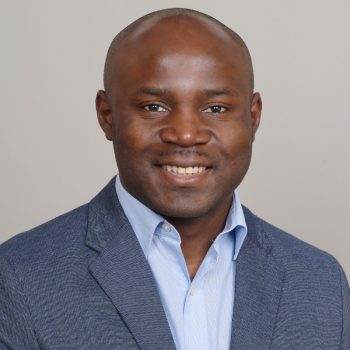
Howard Lakougna is currently a Sr. Program officer at the Gates foundation in Seattle. His team focuses on scaling digital public infrastructure in LMICs and accelerating the impact of digital solutions and emerging technologies. His professional background is in technology development, system designs, AI/ML, and product management. Before the Gates foundation, he was a technical program manager at Facebook/Meta, working on cross-platform initiatives in the Social Impact division. He also worked at PATH, Providence Health systems, and GE Healthcare, building products at the intersection of technology and social impact. Howard holds a bachelor’s degree in computer engineering, a master’s degree in biomedical engineering, and an MBA in Marketing and Entrepreneurship.
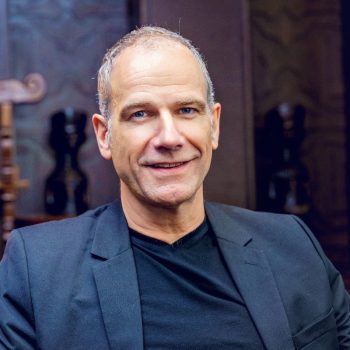
Christian Merz is co-leading the BMZ funded program FAIR Forward – Artificial Intelligence for all dealing with the responsible usage of Artificial Intelligence in international cooperation. Being with GIZ (Deutsche Gesellschaft für Internationale Zusammenarbeit) for more than 5 years he co-coordinated the GIZ Data Lab. Beforehand he has worked within the Agricultural Development Program of the Bill & Melinda Gates Foundation as the Senior Program Officer for Digital Solutions. Between 2011 and 2016 he managed SAP’s research program on ICT4D (Information and Communication Technologies for Development) covering agriculture, rural logistics, procurement & retail, financial services etc. He received his Diploma in Physics from the Albert-Ludwigs-University in Freiburg, Germany.
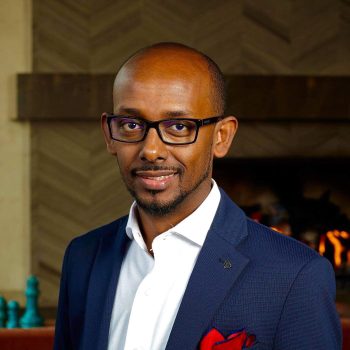
As a career tech professional, a TV personality evangelizing the topics of science and technology, an author of a one-of-its-kind Amharic SciTech book, and a public speaker, Solomon has been advocating for the application of science and technology to cultivate innovation leapfrogging in Ethiopia and Africa at large. As the poster child of technology through his TV show, public speaking, coaching, and authorship, Solomon has been influencing tech policies, galvanizing STEAM (Science, Technology, Engineering, Art, and Math) and the need for tech startups among millions of youths.
As a result of his continuous desire to do more in bringing digital disruption and transformation to Ethiopia, he brought his new vision of establishing 1888 EC, a unique tech startup studio and an innovation co-working hub in Addis Ababa, Ethiopia.
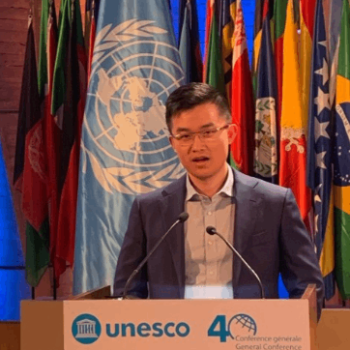
Lihui Xu is a Programme Specialist at the Ethics of AI Unit, Social and Human Sciences Sector of UNESCO in Paris. His role focuses on the overall planning and coordination of the implementation of the UNESCO Recommendation on the Ethics of AI. As a member of the Bioethics and Ethics of Science and Technology Section, he previously managed the secretariat of the International Bioethics Committee and engaged with topics such as the ethics of neurotechnology and ethical issues arising from the Covid-19 pandemic. Before joining UNESCO in 2019, Lihui worked at WHO in Geneva, where he supported the implementation of a WHO global instrument and helped with the establishment and operationalization of the ILO-OECD-WHO Working for Health Programme (W4H). His earlier experiences include research fellowships at the Greater Paris University Hospitals (AP-HP) and the Chinese Center for Disease Control and Prevention (CDC). Lihui holds graduate degrees from the London Business School and the French School of Public Health (EHESP).
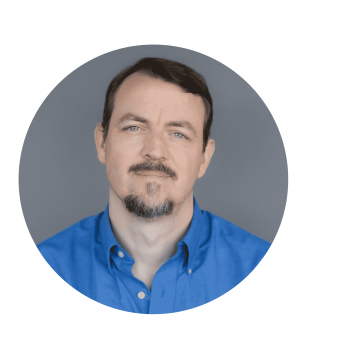
Bobby Reiner, MS, PhD, is an Associate Professor of Health Metrics Sciences at the Institute for Health Metrics and Evaluation at the University of Washington. His research focuses on the role and drivers of spatiotemporal variation in past, present, and future disease incidence and burden. Leveraging his background in mathematics and statistics, as well as 15+ years in Global Health, Dr. Reiner blends quasi-mechanistic models of transmission dynamics, geospatial analyses, and forecasting approaches with bespoke analytic techniques to address pressing public health challenges. He has led work developing spatio-temporal estimates for leading causes of under-5 mortality as well as contemporary WASH risk factors such as access to clean water. During the pandemic, he served as faculty lead for model development for the IHME COVID-19 Forecasting model, where he drew upon his modeling experiences from past outbreaks such as Ebola, Yellow Fever, and Zika. Currently Dr. Reiner leads method development for IHME’s geospatial work as well as forecasting of infectious diseases, contributing crucial expertise for addressing strategic questions. His ability to create high resolution population density maps with climate overlays enables the estimate of future population distributions and the identification of communities at heightened environmental or health risk. This work is instrumental in pinpointing populations susceptible to climate-induced health risks, thereby informing targeted interventions and policy decisions.

Stella holds a double master’s degree in Geoinformatics and Geo-Data Science from the University of Salzburg and Université Bretagne Sud. Currently, she is pursuing her PhD at the Chair of Data Science in Earth Observation, Technische Universität München. Her research centers on leveraging machine learning for crop yield forecasting using multi-modal remote sensing data. Before embarking on her research career, she served as a remote sensing application specialist, developing customized geo-solutions for stakeholders in the forestry, extractive industry, and water sectors. Stella has a deep interest in deriving insights from satellite data to support SDGs.
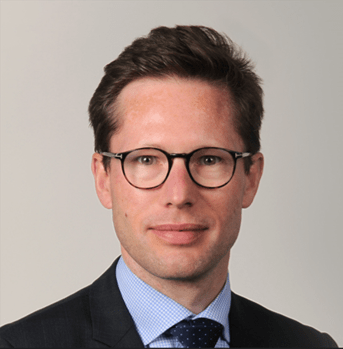
Based in Geneva, Guillaume serves as artificial intelligence lead for International Development across Europe, the Middle East, India, and Africa.
Guillaume has 12 years of experience in leading innovation and digital transformation within the humanitarian and financial sectors.
This experience encompasses leading artificial intelligence programs leveraging cutting-edge technology in international and intergovernmental organizations, as well as driving the digital transformation of financial institutions. Guillaume holds two Master’s degrees and is certified as a SAFe Agilist and Scrum Master.
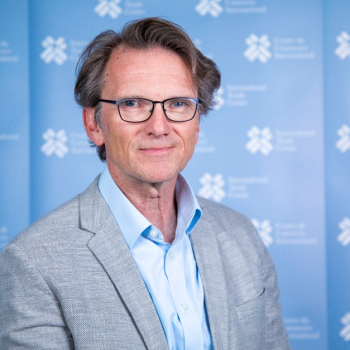
James Howe is Head Digital, Markets and Connectivity and Senior Adviser International Marketing and Branding. He leads ITC’s “Digital Moonshot” initiative which supports inclusive access to the opportunities of digital trade and in particular e-commerce. His team also leads marketing and branding initiatives at the country, sector and individual enterprise level, designed to ensure enterprises from developing countries successfully connect to markets in the digital age.
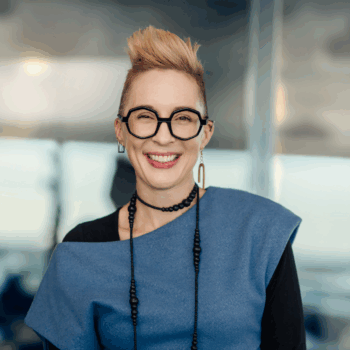
Prof Mary-Anne “Annie” Hartley, leads the Laboratory for intelligent Global Health and Humanitarian Response Technologies (LiGHT).
LiGHT is an international research group based jointly at EPFL (School of Computer Science) and Harvard (T.H. Chan School of Public Health, Ariadne Labs) with satellite presence at Ashoka University in India and the C4IR in Rwanda.
Her team works with NGOs and humanitarian response organizations like Doctors Without Borders and the International Committee of the Red Cross to develop implementable AI-powered technology that provably improves healthcare in resource-limited settings and under-represented populations.
In her free time, Annie is a passionate lover-of-street-dogs and medical doctor, and continues to work clinically in a volunteer capacity in her home country of South Africa.
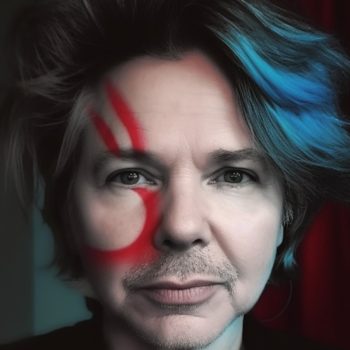
Werzowa, a renowned composer, music producer, and entrepreneur, has been pivotal in this endeavor. Known globally for composing the iconic Intel jingle and scoring major Hollywood films, Werzowa has recently utilized AI to complete Beethoven’s Tenth Symphony and orchestrate Robbie Williams’ latest best-selling album. He is collaborating with Pharrell Williams, bringing MusicMedicine to a global audience. This fusion of AI with traditional composition opens new realms of artistic possibility, redefining the boundaries of musical creativity.
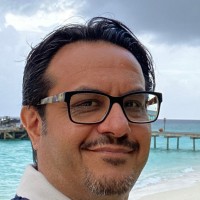
Yaser Alonaizan
CEO, National Center for AI at SDAIA from 2022 until present. Senior Manager, Applied Science, Human Language Technology at AWS Deep Learning at Amazon Web Services from 2017-2022, Principal RSM and RSM Manager at IBM Research/ Watson Group from 2014-2017, Research Staff Member Manager at IBM from 2006-2014, Research Scientist at IBM from 2002-2006, Graduate Research Assistant at University of Southern California Information Sciences Institue (USC/ISI) from 1996-2002.
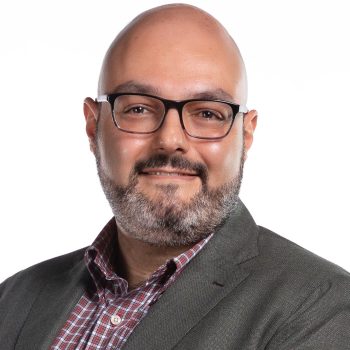
Bernard Ghanem is currently a Professor in the CEMSE division, a theme leader at the Visual Computing Center (VCC), and the Deputy Director of the AI Initiative at King Abdullah University of Science and Technology (KAUST). His research interests lie in computer vision and machine learning with emphasis on topics in video understanding, 3D recognition, and theoretical foundations of deep learning. He received his bachelor’s degree from the American University of Beirut (AUB) in 2005 and his MS/PhD from the University of Illinois at Urbana-Champaign (UIUC) in 2010. His work has received several awards and honors, including six Best Paper Awards for workshops in CVPR, ECCV, and ICCV, a Google Faculty Research Award in 2015 (1st in MENA for Machine Perception) and in 2024, and a Abdul Hameed Shoman Arab Researchers Award for Big Data and Machine Learning in 2020. He has co-authored more than 150 papers in his field. He serves as an Associate Editor for IEEE Transactions on Pattern Analysis and Machine Intelligence (TPAMI) and has served as Area Chair (AC) for the main computer vision and machine learning conferences including CVPR, ICCV, ECCV, NeurIPS, ICLR, and AAAI.

Dr. Abdulrahman Habib, is the Deputy Chief Strategy Officer, Saudi Data and AI Authority (SDAIA). Dr. Habib served as deputy Research Director and led AI Ethics Principles developments among other multiple national AI projects for the National Center for Artificial Intelligence. Before joining SDAIA, he worked as an assistant professor at University of North Texas. Dr. Habib is a data science scholar focused on emerging technology adoptions with focus on smart city, data science, artificial intelligence, open data, and Human Computer Interactions. He has over 20 years of experience in digital transformation and received grants from different government agencies to study open data and smart cities. He has more than 20 scientific publications and presentations. He is a community leader organizing events and conferences with IEEE and ACM among other local data science events. Dr. Habib is honored to represent Saudi delegation in AI ethics recommendations among other local and international committees.
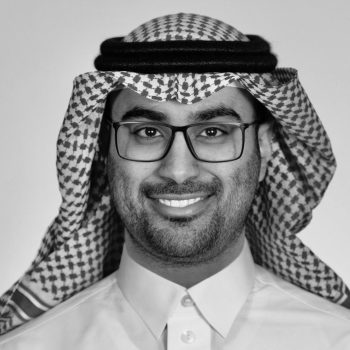
+7 years in harnessing the power of data to drive strategic business decisions, employing predictive modeling, data visualization, and advanced analytics, implementation of data and AI driven solutions across various sectors supporting policy makers and cities operations. Holding a MSc in Electrical Engineering.
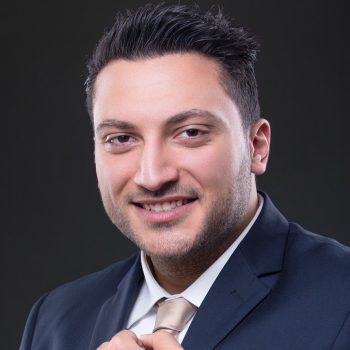
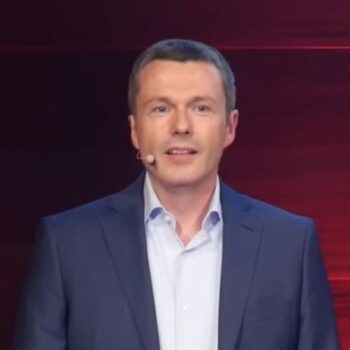

Claire Dennis is a Research Scholar at the Centre for the Governance of Artificial Intelligence (GovAI). Her research focuses on international AI governance, global AI benefit-sharing and compute inequality.
Before joining GovAI, Claire served as a U.S. diplomat and consultant in the United Nations Executive Office of the Secretary-General. She holds a Master in Public Affairs from Princeton University and a B.A. in International Affairs from the George Washington University.
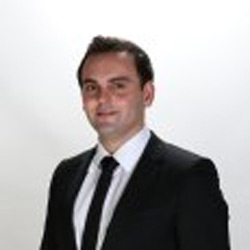
Avdyl brings 14 years of experience in business and technology consulting, he has advised clients from various industries on how to transform business operations and drive innovation using AI technologies
He leads IBM consulting’s AI & Analytics business for EMEA. Previously he built up and led IBM consulting’s offering around AI-based customer service transformation for EMEA and has shaped how IBM supports marquee brands to combine business strategy and AI technology to drive significant business outcomes.
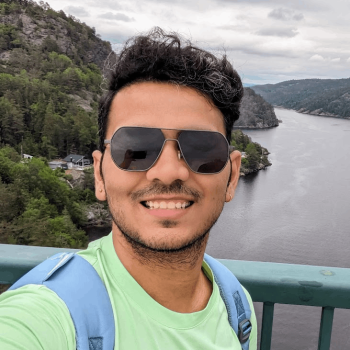
Mr. Yogender Yadav is currently pursuing a Ph.D. in Urban and Regional Development at the SDG 11 Lab, Politecnico di Torino. His doctoral research focuses on the application of Digital Twins for regional development. In July 2022, he earned a Master of Science degree in Geoinformation Science and Earth Observation, specializing in Geoinformatics, from the Faculty of ITC at the University of Twente, Netherlands. His research interests include remote sensing, LiDAR, and photogrammetry, particularly their applications in urban planning. Mr. Yogender Yadav also serves on the Board of Directors for the ISPRS Student Consortium as the Website Administrator, facilitating connections among students, young researchers, and professionals interested in photogrammetry, remote sensing, and spatial information sciences.
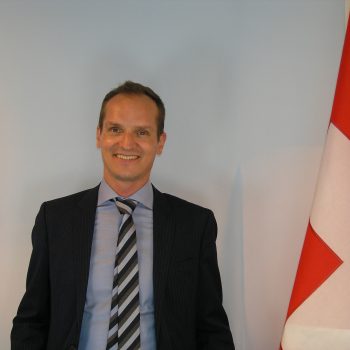
Mr. Jonas Pasquier is Head of Global Affairs at the Permanent Mission of Switzerland to the UN Office and other international organizations in Geneva. He leads a team which covers both transversal issues such as peace/security, health, environment or digital policy and Geneva-based specialized organizations. Prior to this, he spent four years at the Mission of Switzerland at the UN in New York, where he led the political section and the Security Council team. His diplomatic carreer also includes postings in Berlin and Bern. A political affairs and global governance specialist, Mr. Pasquier held previous positions at the University of Geneva and at the Swiss Parliament. He holds MA degrees from the Geneva Graduate Institute and the University of Geneva in political science and arts.
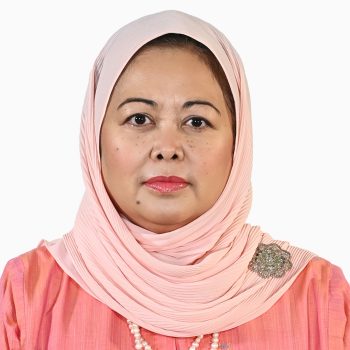
Dato’ Nadzirah Osman, was appointed as Permanent Representative of Malaysia to the United Nations Office at Geneva on 31 October 2023.
Prior to her appointment to Geneva, Ms. Osman had been serving as Ambassador of Malaysia to the Netherlands and Permanent Representative to the Organization for the Prohibition of Chemical Weapons since September 2021. She was Ambassador of Malaysia to the Czech Republic from January 2014 to July 2017. She also served as Counsellor at the High Commission of Malaysia in London, United Kingdom, from May 2004 to April 2009, and as Second Secretary at the Embassy of Malaysia in Mexico City, Mexico, from November 1997 to July 2001.
A career diplomat, Ms. Osman has held several other positions at the Ministry of Foreign Affairs in Malaysia, including as Deputy Secretary-General, Department of Multilateral Affairs from January 2019 to September 2021; Undersecretary, Multilateral Political Division from July 2017 to January 2019; Undersecretary, Human Resource Management Division from May 2010 to January 2014; and Undersecretary, Multilateral Economic Division from April 2009 to May 2010. She joined the Ministry of Foreign Affairs in March 1996.
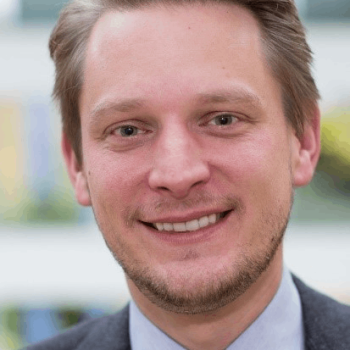
As a Legal Counsellor in WIPO’s Copyright Law Division, Tobias Bednarz leads the Organization’s efforts to provide its Member States with legislative assistance in the area of copyright and related rights. Between 2018 to 2024, Tobias headed WIPO’s Building Respect for Division’s activities in the areas of policy and cooperation. When he joined the Organization in 2011 he was initially assigned to the Trademark Law Section. Prior to that, Tobias was a Research Associate at the SCRIPT Centre for Studies in Intellectual Property and Technology Law of the University of Edinburgh (UK).
Tobias studied law in Germany, France and the United Kingdom and holds an LL.M. in Innovation, Technology, and the Law as well as a PhD in Copyright Law from the University of Edinburgh (UK).
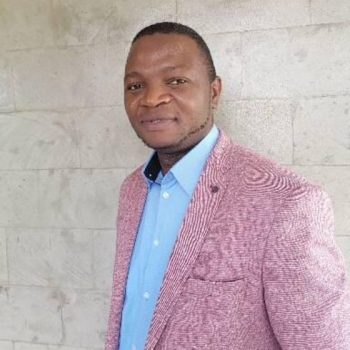
Edmond Wandera is the Principal Data Protection Officer heading Office of The Data Protection Commissioner, Kisumu Regional Office. He is an ICT expert with experience spanning over 10 years in design, implementation and management of ICT and cybersecurity in public sector.
Edmond holds an MPA in Global e-Policy and e-Government from Sungkyunkwan University – South Korea and a Bachelors of Business Information Technology degree. Professionally, he is also a Certified Information Security Manager (CISM), Certified Ethical Hacker (CEH), Cyber Incident Manager, among other certifications he has to his name and is member of ISACA-Kenya Chapter.
Edmond is currently interested in Data Governance, Risk and Compliance practices as tools for managing modern organizations.
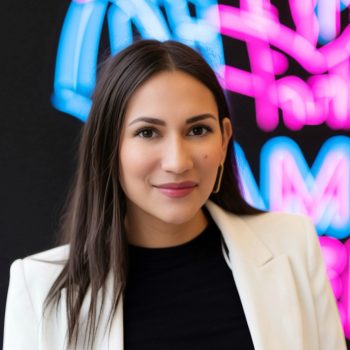
Stavroula is Strategy & Impact Manager for the Global Esports Federation, working on ways esports can serve as the intersection of technology and gaming to make positive impact to the world.
She is an experienced professional in sports business with a bachelor’s in Marketing, and an MBA in Management and Sports Business.
She has worked for numerous global sports events and international sports federations in Marketing, CSR and event legacy.
Currently at the Global Esports Federation she is working on esports’ transformative impact on society, equality, education and career opportunities.
She actively supports that esports is not just a game, but a game changer, and can be the means to advocate and facilitate societal change and positive impact for the future generations.

Professor Celeste Saulo was appointed as the first female and South American Secretary-General of the World Meteorological Organization (WMO) by the Nineteenth World Meteorological Congress (Cg-19). Her four-year term began on 1 January 2024. Prior to this, she served as the Director of the National Meteorological Service of Argentina since 2014 and was the First Vice-President of the WMO.
Professor Celeste Saulo has been the Director of the Argentinean National Meteorological Service (SMN) and Permanent Representative of Argentina at WMO since July 2014. She was elected to the WMO Executive Council in June 2015. She has been a member of the WMO World Weather Research Programme (WWRP) Scientific Steering Committee since 2011 and has served on various WMO panels related to her field of knowledge. She is full professor at the University of Buenos Aires and research scientist at the National Council for Scientific and Technical Research.
As the Director of the Argentinean National Meteorological Service, she has pursued its modernization based of the three axes: enhancement of monitoring, of quality of forecasts and of communications with society. Thus, she has given rise to interinstitutional and interdisciplinary effort and dedication to contribute to the commitments made by the country with regards to the 2030 Agenda for Sustainable Development and the Sendai Framework.
Under her direction, the Argentinean National Meteorological Service has been a venue for various capacity development activities for Meteorological and Hydrological Services of developing countries, with a specific focus on training in accordance with the country’s role of Regional Training Centre.
Her intervention in regional and international activities is extensive, mainly oriented towards capacity building at the regional level and to the inclusion and integration of the younger generations of scientists in all relevant areas. A proof of that is the creation of the WMO YESS (Young Earth System Scientists) Office at the Argentinean National Meteorological Service.
Research career and academic background
Ms Saulo launched her academic career as a teaching assistant in Atmospheric Sciences at the University of Buenos Aires (UBA), where she earned an undergraduate degree in 1987 and a PhD in 1996. Her peers, students and graduates, elected her as Director of the Department of Atmosphere and Ocean Sciences at the Faculty of Exact and Natural Sciences of the UBA for two consecutive periods (2009-2013). Her extensive teaching experience is in the areas of numerical weather prediction, atmosphere dynamics and thermodynamics, mesoscale meteorology, cloud dynamics and cloud microphysics.
Her scientific career specialized in numerical weather prediction, ensemble forecasting, data assimilation, short-to-medium range prediction and predictability, land-atmosphere interactions and the study of heavy precipitating systems in southern South America. Her focus over the last few years has been on interdisciplinary problems such as wind energy production, climate services for agricultural applications and early warning systems.
She has authored and co-authored 46 peer-reviewed scientific journal articles and book chapters. Furthermore, she has supervised five doctoral theses as well as many students, both at the undergraduate and graduate levels, acting as principal investigator or co-principal investigator on research projects funded by international and national agencies.
Summit Overview
Never before presented, state of the art AI solutions and cutting edge knowledge, aligned with UN SDGs and responsible AI
THE TIME IS NOW!
Join us to accelerate progress on the SDGs. Together, we are leading AI actions to advance health, climate, gender + inclusive development worldwide
Summit Sponsors
Interested in supporting AI for Good? Get in touch for sponsorship opportunities
Join us in Geneva, Switzerland
The Summit will take place at the International Conference Center Geneva (CICG) on Rue de Varembé 17, 1202 Geneva, Switzerland. You may discover general information about travelling to Geneva below, via the International Geneva Welcome Centre (CAGI).



The Summit will take place at the International Conference Center Geneva (CICG) on Rue de Varembé 17, 1202 Geneva, Switzerland. You may discover general information about travelling to Geneva below, via the International Geneva Welcome Centre (CAGI).



The portal dedicated to welcoming internationals to Geneva
Check out Demos and Exhibits
 Reset search
Reset search
Greening ITU
While working with our members to leverage digital technologies to monitor, mitigate and adapt to climate change, ITU is also addressing climate change from within. This is in line with UN-wide commitments to ‘walk the talk’ and systematically integrate sustainability across its operations.
This Summit can help ensure that Artificial Intelligence charts the course that benefits humanity and bolsters our shared values. The United Nations stands ready to be a universal platform for discussion together let us make sure we use AI to enhance human dignity and serve the global goods.
António Guterres
Secretary-General, United Nations
AI for Good provides an outstanding mix of world class presentations and discussion topics from an eminent line-up of global researchers and scientists. It is an important must-attend event for any organization or individual interested in demonstrating the possibilities of AI for societal benefit
Monash Data Futures Institute
Sponsor
It’s in our collective interest that we can shape AI faster than it is shaping us. This summit, as the UN’s primary platform for AI, will bring to the table leading voices representing a diversity of interests to ensure that AI can be a powerful catalyst for progress in our race to rescue the SDGs.
Doreen Bogdan-Martin
Secretary-General, ITU
It is wonderful to be with everybody in virtual space. […]. These are some of the most enjoyable and inspiring meetings that I have ever been to.
Stuart Russell
Professor, Author of “Human Compatible”
For important information regarding the classification, please go to the Division’s website and review the last two questions in the Q&A page. Please be advised that the utilization of this list by AI for Good is exclusively for the purpose of ticketing for the 2024 AI for Good Global Summit, unless otherwise specified
| Country or Area | ISO-alpha2 Code | ISO-alpha3 Code | Developed / Developing regions |
| Algeria | DZ | DZA | Developing |
| Egypt | EG | EGY | Developing |
| Libya | LY | LBY | Developing |
| Morocco | MA | MAR | Developing |
| Sudan | SD | SDN | Developing |
| Tunisia | TN | TUN | Developing |
| Western Sahara | EH | ESH | Developing |
| British Indian Ocean Territory | IO | IOT | Developing |
| Burundi | BI | BDI | Developing |
| Comoros | KM | COM | Developing |
| Djibouti | DJ | DJI | Developing |
| Eritrea | ER | ERI | Developing |
| Ethiopia | ET | ETH | Developing |
| French Southern Territories | TF | ATF | Developing |
| Kenya | KE | KEN | Developing |
| Madagascar | MG | MDG | Developing |
| Malawi | MW | MWI | Developing |
| Mauritius | MU | MUS | Developing |
| Mayotte | YT | MYT | Developing |
| Mozambique | MZ | MOZ | Developing |
| Réunion | RE | REU | Developing |
| Rwanda | RW | RWA | Developing |
| Seychelles | SC | SYC | Developing |
| Somalia | SO | SOM | Developing |
| South Sudan | SS | SSD | Developing |
| Uganda | UG | UGA | Developing |
| United Republic of Tanzania | TZ | TZA | Developing |
| Zambia | ZM | ZMB | Developing |
| Zimbabwe | ZW | ZWE | Developing |
| Angola | AO | AGO | Developing |
| Cameroon | CM | CMR | Developing |
| Central African Republic | CF | CAF | Developing |
| Chad | TD | TCD | Developing |
| Congo | CG | COG | Developing |
| Democratic Republic of the Congo | CD | COD | Developing |
| Equatorial Guinea | GQ | GNQ | Developing |
| Gabon | GA | GAB | Developing |
| Sao Tome and Principe | ST | STP | Developing |
| Botswana | BW | BWA | Developing |
| Eswatini | SZ | SWZ | Developing |
| Lesotho | LS | LSO | Developing |
| Namibia | NA | NAM | Developing |
| South Africa | ZA | ZAF | Developing |
| Benin | BJ | BEN | Developing |
| Burkina Faso | BF | BFA | Developing |
| Cabo Verde | CV | CPV | Developing |
| Côte d’Ivoire | CI | CIV | Developing |
| Gambia | GM | GMB | Developing |
| Ghana | GH | GHA | Developing |
| Guinea | GN | GIN | Developing |
| Guinea-Bissau | GW | GNB | Developing |
| Liberia | LR | LBR | Developing |
| Mali | ML | MLI | Developing |
| Mauritania | MR | MRT | Developing |
| Niger | NE | NER | Developing |
| Nigeria | NG | NGA | Developing |
| Saint Helena | SH | SHN | Developing |
| Senegal | SN | SEN | Developing |
| Sierra Leone | SL | SLE | Developing |
| Togo | TG | TGO | Developing |
| Anguilla | AI | AIA | Developing |
| Antigua and Barbuda | AG | ATG | Developing |
| Aruba | AW | ABW | Developing |
| Bahamas | BS | BHS | Developing |
| Barbados | BB | BRB | Developing |
| Bonaire, Sint Eustatius and Saba | BQ | BES | Developing |
| British Virgin Islands | VG | VGB | Developing |
| Cayman Islands | KY | CYM | Developing |
| Cuba | CU | CUB | Developing |
| Curaçao | CW | CUW | Developing |
| Dominica | DM | DMA | Developing |
| Dominican Republic | DO | DOM | Developing |
| Grenada | GD | GRD | Developing |
| Guadeloupe | GP | GLP | Developing |
| Haiti | HT | HTI | Developing |
| Jamaica | JM | JAM | Developing |
| Martinique | MQ | MTQ | Developing |
| Montserrat | MS | MSR | Developing |
| Puerto Rico | PR | PRI | Developing |
| Saint Barthélemy | BL | BLM | Developing |
| Saint Kitts and Nevis | KN | KNA | Developing |
| Saint Lucia | LC | LCA | Developing |
| Saint Martin (French Part) | MF | MAF | Developing |
| Saint Vincent and the Grenadines | VC | VCT | Developing |
| Sint Maarten (Dutch part) | SX | SXM | Developing |
| Trinidad and Tobago | TT | TTO | Developing |
| Turks and Caicos Islands | TC | TCA | Developing |
| United States Virgin Islands | VI | VIR | Developing |
| Belize | BZ | BLZ | Developing |
| Costa Rica | CR | CRI | Developing |
| El Salvador | SV | SLV | Developing |
| Guatemala | GT | GTM | Developing |
| Honduras | HN | HND | Developing |
| Mexico | MX | MEX | Developing |
| Nicaragua | NI | NIC | Developing |
| Panama | PA | PAN | Developing |
| Argentina | AR | ARG | Developing |
| Bolivia (Plurinational State of) | BO | BOL | Developing |
| Bouvet Island | BV | BVT | Developing |
| Brazil | BR | BRA | Developing |
| Chile | CL | CHL | Developing |
| Colombia | CO | COL | Developing |
| Ecuador | EC | ECU | Developing |
| Falkland Islands (Malvinas) | FK | FLK | Developing |
| French Guiana | GF | GUF | Developing |
| Guyana | GY | GUY | Developing |
| Paraguay | PY | PRY | Developing |
| Peru | PE | PER | Developing |
| South Georgia and the South Sandwich Islands | GS | SGS | Developing |
| Suriname | SR | SUR | Developing |
| Uruguay | UY | URY | Developing |
| Venezuela (Bolivarian Republic of) | VE | VEN | Developing |
| Kazakhstan | KZ | KAZ | Developing |
| Kyrgyzstan | KG | KGZ | Developing |
| Tajikistan | TJ | TJK | Developing |
| Turkmenistan | TM | TKM | Developing |
| Uzbekistan | UZ | UZB | Developing |
| China | CN | CHN | Developing |
| China, Hong Kong Special Administrative Region | HK | HKG | Developing |
| China, Macao Special Administrative Region | MO | MAC | Developing |
| Democratic People’s Republic of Korea | KP | PRK | Developing |
| Mongolia | MN | MNG | Developing |
| Brunei Darussalam | BN | BRN | Developing |
| Cambodia | KH | KHM | Developing |
| Indonesia | ID | IDN | Developing |
| Lao People’s Democratic Republic | LA | LAO | Developing |
| Malaysia | MY | MYS | Developing |
| Myanmar | MM | MMR | Developing |
| Philippines | PH | PHL | Developing |
| Singapore | SG | SGP | Developing |
| Thailand | TH | THA | Developing |
| Timor-Leste | TL | TLS | Developing |
| Viet Nam | VN | VNM | Developing |
| Afghanistan | AF | AFG | Developing |
| Bangladesh | BD | BGD | Developing |
| Bhutan | BT | BTN | Developing |
| India | IN | IND | Developing |
| Iran (Islamic Republic of) | IR | IRN | Developing |
| Maldives | MV | MDV | Developing |
| Nepal | NP | NPL | Developing |
| Pakistan | PK | PAK | Developing |
| Sri Lanka | LK | LKA | Developing |
| Armenia | AM | ARM | Developing |
| Azerbaijan | AZ | AZE | Developing |
| Bahrain | BH | BHR | Developing |
| Georgia | GE | GEO | Developing |
| Iraq | IQ | IRQ | Developing |
| Jordan | JO | JOR | Developing |
| Kuwait | KW | KWT | Developing |
| Lebanon | LB | LBN | Developing |
| Oman | OM | OMN | Developing |
| Qatar | QA | QAT | Developing |
| Saudi Arabia | SA | SAU | Developing |
| State of Palestine | PS | PSE | Developing |
| Syrian Arab Republic | SY | SYR | Developing |
| Turkey | TR | TUR | Developing |
| United Arab Emirates | AE | ARE | Developing |
| Yemen | YE | YEM | Developing |
| Fiji | FJ | FJI | Developing |
| New Caledonia | NC | NCL | Developing |
| Papua New Guinea | PG | PNG | Developing |
| Solomon Islands | SB | SLB | Developing |
| Vanuatu | VU | VUT | Developing |
| Guam | GU | GUM | Developing |
| Kiribati | KI | KIR | Developing |
| Marshall Islands | MH | MHL | Developing |
| Micronesia (Federated States of) | FM | FSM | Developing |
| Nauru | NR | NRU | Developing |
| Northern Mariana Islands | MP | MNP | Developing |
| Palau | PW | PLW | Developing |
| United States Minor Outlying Islands | UM | UMI | Developing |
| American Samoa | AS | ASM | Developing |
| Cook Islands | CK | COK | Developing |
| French Polynesia | PF | PYF | Developing |
| Niue | NU | NIU | Developing |
| Pitcairn | PN | PCN | Developing |
| Samoa | WS | WSM | Developing |
| Tokelau | TK | TKL | Developing |
| Tonga | TO | TON | Developing |
| Tuvalu | TV | TUV | Developing |
| Wallis and Futuna Islands | WF | WLF | Developing |
New membership are not allowed.
Are you sure you want to remove this speaker?


